Old
Kẻ Phản Thùng
Is That Kafka?
Walser Stories NYRB
1
2
3
|
|
Sách
& Báo
& Thời Sự Văn Học

Phì
Lũ
Truyện ngắn Phì Lũ này, cũng trong dòng Lưu Đày
và Quê Nhà, "thème" chính của văn học hiện
sinh. Có thể nói, cả 1 cõi văn chương của Camus, là
nằm gọn trong nó. Và nó từ Trước Pháp Luật của
Kafka, mà ra
Enright on Carver
I often ask students to read
"Fat" because it also seems to talk about what a story is. A story is something
told – as the waitress tells her friend Rita about the fat man – it is something
that really needs to be said. But though we feel its force and resonance,
it is often hard to say what a story means. The most we can say, perhaps,
is that a short story is about a moment in life; and that, after this moment,
we realize something has changed.
Tôi [Enright], thường biểu
sinh viên của tôi đọc “Fat” [Phì Lũ], vì có
gì đó ở trong đó, về, một câu chuyện là
gì. Một câu chuyện là một điều gì đó được
kể ra – như cô bồi bàn kể cho cô bạn Rita, về ông
khách mập – đó là một điều thực sự cần nói ra,
kể ra. Nhưng, mặc dù chúng ta cảm thấy, sức mạnh của nó,
sự rộn ràng, âm hưởng tràn trề của nó, nhưng thường
ra, thật khó mà nói, một câu chuyện nghĩa là
gì. Bảnh nhất mà chúng ta có thể nói,
một truyện ngắn là về một khoảnh khắc trong cuộc sống; và, sau
khoảnh khắc đó, chúng ta nhận ra, một điều gì đã
thay đổi.
Carver được coi như là
cha đẻ của thứ truyện ngắn mini.
Truyện ngắn của ông, như
Fat, được Enright diễn tả thật tuyệt vời như
sau đây:
Fat là 1 thí dụ lớn về làm
thế nào mà 1 truyện ngắn được “cắm vào đời” [dùng
những từ của bà Huệ, Gió-O, khi "xoa đầu" NTHL, áp dụng
vô đây thì thật là tuyệt: Cái gì
của Linh là do Linh nẩy bật ra. Tuổi đôi mươi sắc như một nhát
dao. Linh cứa vào đời sống bằng tinh hoa và nội lực một ông
cụ non lẫn một đứa trẻ già]: cái đầu vô của vết thương
thì như là của 1 mũi dao, nhưng cái hệ quả thì
lại chết người!
Enright viết:
Như tất cả những truyện ngắn của RC, Fat có
vẻ đơn giản. Một cô bồi bàn không được nêu tên,
kể với cô bạn, Rita, về chuyện phục vụ 1 ông khách mập.
Cô thích thằng chả, dù phì lũ. Cô thích
phục vụ ông ta. Cuộc quen của họ mặc dù bình thường,
ngắn ngủi, và chỉ có tính giao tiếp, hình thức,
nhưng thật là dịu dàng - và, như một truyện tình,
nó xuất hiện là để chửi bố cái thế giới loài người
còn lại vây quanh nó!
Ui chao, đọc 1 phát, là
Gấu nghĩ ngay đến truyện ngắn của... Gấu Cái!
Cái thứ truyện ngắn “viết
như không viết”, về cái mảnh đất thần tiên Tara không
còn nữa, hóa ra y hệt thứ truyện ngắn của RC: đầu vào
thì nhỏ xíu như vết muỗi chích, như cái xước
da, nhưng đầu ra, là hậu quả của cả 1 cuộc chiến tàn nhẫn, dã
man...
Thảo nào H/A phán, hay
hơn cả Cô Tư, vì nó rất tự nhiên.
Cái gọi là tự nhiên,
là cái viết mà như không viết, nhưng, để có
được như vậy, là nhờ cái nền của nó, là cái
xã hội Ngụy, bị VC kết án tử.
Một tí tỉ tì ti tình mà
cô bồi bàn cảm thấy – cái khoảnh khắc mà cô
gật gù, thằng chả mập này cũng đường được - mới nhức nhối làm
sao, khi, sau đó, vào buổi tối, khi cô ở trên
giường với Rudy, bạn trai của cô: Đúng là cái
cảm tưởng, lén chồng, lên sân thượng “ngắm trăng sao",
của người đàn bà ngoại tình của Camus: giá mà
có tí ti thay đổi, nhỉ?
Raymond Carver's 'Fat' is simple but deadly, says Anne
Enright
Giản dị, nhưng chết người, đó là truyện ngắn Fat, của RC
“Fat" is a great example of how
little a short story has to do in order to work – the entry wound is so small,
you could say, and the result so deadly. Like many of Raymond Carver's stories,
this one seems very simple. An unnamed waitress tells her friend, Rita, about
serving a very fat customer. She likes the guy, despite his girth. She likes
serving him. Their relationship, though ordinary, and brief, and formal,
is quite tender – and, like a love story, it happens in the face of opposition
from the rest of the world. The small love the waitress feels – this moment
of empathy she has for the fat man – becomes briefly amazing later that evening,
when she is in bed with her boyfriend, Rudy, and the waitress is left with
an uneasy, hopeful intimation of change.
I ask often ask students to read
"Fat" because it also seems to talk about what a story is. A story is something
told – as the waitress tells her friend Rita about the fat man – it is something
that really needs to be said. But though we feel its force and resonance,
it is often hard to say what a story means. The most we can say, perhaps,
is that a short story is about a moment in life; and that, after this moment,
we realize something has changed.
Carver coi câu của Pound như
là 1 thứ kinh nhật tụng:
“Thơ, ít ra thì cũng phải cố viết cho thật bảnh như là
văn xuôi”!
http://www.tanvien.net/ds/ds_mieng_bien.html
Camus có một truyện ngắn
"Người đàn bà ngoại tình", đêm đêm, sau
khi làm xong hết bổn phận của người vợ, trong cuộc lữ của cả hai vợ
chồng, đã len lén thoát ra ngoài, để ngắm trời
ngắm sao... Đây là một đề tài lớn của dòng văn
chương hiện sinh, theo tôi, thoát thai từ truyện ngắn "Before
the Law", của Kafka.
Đây là câu
chuyện một người nhà quê ra tỉnh, tới trước "Pháp Luật",
tính vô coi cho biết, nhưng bị người lính gác
cản lại. "Anh vô được mà, nhưng đợi chút xíu nữa
đi". Chờ hoài chở hủy, chút xíu nữa đi hoá ra
là cả một cuộc đời. Trước khi chết, anh nhà quê phều phào
hỏi, tại sao chỉ có một mình anh tính vô chơi,
coi cho biết; người lính gác nói: cửa này chỉ
mở ra cho anh, tôi đứng đây, cũng chỉ vì anh; nhưng bây
giờ anh đâu cần tới nữa, và tôi cũng xong bổn phận ở
đây. Nói xong anh bỏ đi.
Trong truyện ngắn Evelyne của
James Joyce, trong tập "Những người dân thành phố Dublin", người
lính của Kafka xuất hiện qua anh chàng thuỷ thủ tầu viễn dương.
Một người yêu thương, và có đủ điều kiện để đưa cô
gái Evelyne tới một cuộc sống khác tốt đẹp hơn; nhưng tới
giờ phút chót, cô gái quyết định "ở lại".


Rushie khen cái tít,
1 trong những cái tít thần sầu nhất trong cõi văn
hậu chiến, one of the best titles in the post-war literature, như trong
ghi chú cho bản dịch 1998 cho biết.
Than ôi, giá mà ông đọc được tiếng Mít:
Hay nhất trong mọi cái tít, kể từ khi có cái
gọi là văn chương: Đường Tới Ổ Nhện!
Cuốn
này, đầu tay của Calvino, bị chính ông chê,
rồi sau đó thì bèn ngó lại, và bèn
viết
lại nó - viết lại
cuốn tiểu thuyết, nhe -
và
đi 1 đường giải thích thiệt dài.
GCC post 1 đoạn, rất thú vị, sau đây:
What you read and what you experience
in life are not two separate worlds, but one single cosmos. Every life-experience,
in order to be interpreted properly, evokes certain things you have read
and blends into them. That books always derive from other books is a truth
which is only apparently in contradiction with the other truth that books
derive from practical existence and from our relations with other people.
Almost as soon as I had stopped being a partisan I discovered (initially
in excerpts in magazines, then as a whole book) a novel about the Spanish
civil war which Hemingway had written six or seven years previously, For
Whom the Bell Tolls. It was the first book with which I as an ex-partisan
could identify: it was from reading that novel that I began to transform
into narrative motifs and phrases what I had seen and experienced the detachment
of Pablo and Pilar was 'our' detachment. (Nowadays that book of Hemingway's
is the one which I probably like least; in fact Hemingway became the model
for many of us only when we discovered his real stylistic mastery in other
books of his, especially in his earliest short stories.)
The kind of literature we liked was that which contained
this sense of a seething humanity, of ruthlessness, and also of nature.
We also felt that the Russian writers of the civil war period - that is,
before Soviet literature was purged and became idealized - were our contemporaries.
In particular, Isaac Babel: his Red Cavalry, already translated into Italian
before the war, and one of the masterpieces of twentieth-century realism,
also sprang from an intellectual's encounter with revolutionary violence.
But also influential, though to a lesser extent,
was Alexander Fadeyev (at least before he became a mere functionary of official
Soviet literature). He had written his first book, The Rout, with that
particular sincerity and vigor (though I do not remember whether I had
already read it when I wrote my novel, and I am not going to check either:
that's not important, since similar situations breed similar books in terms
of structure and style). Fadeyev knew how to finish things as cleanly as he
had begun them, as he was the only Stalinist writer, in 1956, who showed that
he realized the extent of the tragedy for which he had been partly responsible
(the tragedy in which Babel and so many other genuine writers of the Revolution
had lost their lives). Refusing to go in for hypocritical recriminations,
he faced up to the strictest consequence of his actions, and took a pistol
to his forehead.
These books, then, form the background to The Path
to the Spiders' Nests. But when you are young every new book you read is
like a new eye which opens on to the world and which modifies the viewpoint
of the other eyes or book-eyes which you had before, and so in the midst
of this new idea of literature which I longed to create, there was also space
for a revival of all the literary worlds which had captivated me from childhood
onwards ... The result was that while setting out to write something like
Hemingway's For Whom the Bell Tolls, at the same time I also wanted to
create a work akin to Stevenson's Treasure Island.
It was Cesare Pavese who understood this instantly:
from his reading of The Path he intuited all my favorite literary texts.
He even cited Ippolito Nievo, the nineteenth-century Italian writer to
whom I had wanted to pay secret homage by basing Pin's meeting with Cousin
on Carlino's encounter with Spaccafumo in Nievo's Le confessioni di un
Italiano (The Confessions of an Italian). It was Pavese who was the first
to talk of a fairy-tale tone in my writing. Up until then I had not been
aware of this, but from that point onwards I became only too conscious of
it, and tried to confirm that definition. The story of my literary career
was already beginning to be mapped out, and now I think I see it entirely
encapsulated in that beginning.
Perhaps, in the end, it is only your first book
that counts, perhaps you should only write that one and stop; you only
make the great leap that one time, the opportunity to express your real
self happens only once, what you have to say inside you is either said
at that point or never more. Perhaps real poetry is possible only at one
moment in your life, which for most people coincides with their earliest
youth. Once that phase has passed, whether you have expressed yourself or
not (and you won't know whether you have for a hundred, maybe a hundred
and fifty years: contemporaries cannot be good judges), from that point
on the die is cast, all you will do subsequently is imitate others or yourself,
you won't ever manage to produce a single word that is authentic or unique….
Cái chúng ta đọc và cái chúng ta
kinh nghiệm trong đời không phải là hai thế giới riêng
rẽ, nhưng mà là một cosmos, vũ trụ, đơn. Mọi đời-kinh
nghiệm, để được giải thích tới chỉ, khơi lên một số điều bạn
đã đọc, và trộn vào nhau. Những cuốn sách luôn
chuyển từ những cuốn sách khác là một sự thực, chỉ mâu
thuẫn ở bề ngoài với sự thực khác, sách chuyển từ hiện
hữu thực dụng, thực tế, và từ những liên hệ của chúng
ta với những người khác.
Hầu như liền sau khi tôi không còn là 1 người
lính pạc ti dăng, thì tôi bèn khám phá
ra - thoạt tiên là những mẩu báo chí, rồi trọn
cả cuốn - rằng thì là, me-xừ Hemingway đã đi 1 đường
tiểu thuyết, chừng 6 hay 7 năm trước đó, về cuộc nội chiến Tây
Bán Nhà, Chuông Gọi Hồn Ai.
Đó là cuốn tiểu thuyết đầu tiên tố cáo tôi
là 1 cựu pạc ti dằng!
Chính là do đọc cuốn tiểu thuyết mà tôi
bèn chôm chĩa, và lẫn lộn hầm bà làng
giữa tôi và cuốn tiểu thuyết của Hemingway!
Bây giờ đọc lại nó, thì lại đếch thấy khoái
như trước nữa. Sự thực, Hemingway trở thành khuôn mẫu cho
rất nhiều chúng ta, chỉ từ khi chúng ta khám phá
ra cái sự bậc thầy của ông ta về văn phong, ở trong những
cuốn khác của ông, đặc biệt là trong những truyện ngắn
sớm sủa nhất.
Note: Cái mẩu này, thực là thú vị, nhất
là đoạn sau đây, khi Calvino lèm bèm về đám
vệ quốc “Niên Xô”. Nó giải thích tại làm
sao lũ Bắc Kít mê văn chương Gấu Mẹ Nga Vĩ Đại!
Tôi khởi đầu chậm như rùa.
Nếu có một ý tưởng cho một cuốn tiểu thuyết, tôi phịa
đủ mọi cớ để đừng phải loay hoay với nó. Nếu một tập truyện ngắn,
mỗi truyện lại có cú khởi đầu của nó. Ngay những bài
báo cũng rứa, cứ mỗi lần tính viết, không có
cũng phải phịa ra trục trặc này nọ để trì hoãn. Nhưng
được cái, hễ đã bập vào rồi, là cứ ro ro như
máy mới đổ dầu nhớt!
Nói
ngắn gọn, tôi lẹ lắm, nhưng trước khi lẹ, là những lỗ trắng
lớn. Chuyện viết lách của tôi hơi giống một câu chuyện
Tầu, về một họa sĩ, được nhà vua yêu cầu, hãy vẽ cho
ta một con cua. Nhà nghệ sĩ bèn trả lời, Thưa Hoàng
Thượng, hạ thần cần mười niên, một căn nhà tổ bự, và
hai mươi nàng hầu. Mười năm qua đi, "Thưa Hoàng Thượng, hạ
thần cần thêm hai niên nữa". Rồi thêm một tuần. Sau cùng,
ông nhặt cây cọ lên, múa một đường, là
xong con cua.
Italo Calvino
“Tại sao đọc những tác phẩm cổ điển”
Hãy
thử bắt đầu bằng một định nghĩa:
Tác
phẩm cổ điển là thứ mà người ta nói, “tôi đang
đọc lại nó”, không hề nói, “tôi đang đọc nó.”
Điều này chí ít chỉ có thể xẩy ra giữa
đám “đọc rộng”, không thể áp dụng cho tuổi trẻ, vào
tuổi đó, cái gì gì thì cũng là
nụ hôn đầu, tình đầu, lần đầu gặp gỡ, cú sét
đánh…
Cái mẩu “lại”, trong “đọc lại” có thể làm cho
một độc giả nào đó, đỏ mặt, nhất là những đấng nghĩ
rằng mình chưa từng đọc một dòng Tội Ác và
Trừng Phạt, thí dụ. Để an ủi họ, chúng ta có thể nói,
ngay cả thằng cha Gấu, được đời khen tặng uyên bác, hay chữ,
thực sự, cái đọc của hắn ta thì cũng chỉ quanh quẩn nơi lò
thiêu người, lò lao động cải tạo Đỗ Hòa, Cần Giờ,
hay Phạm Văn Cội, Củ Chi Thành Đồng, là
cùng!
Nào, ai đã từng đọc hết Nguyễn Khải, Lê Lựu,
Nguyễn Minh Châu, Bọ Lập Ký Ức Vụn… giơ tay lên! Ngay
cả những bộ sách lãng mạn trứ danh, thì cũng chỉ
nghe người đời xướng danh, thay vì đọc chúng. Ở Pháp,
người ta bắt đầu đọc Balzac khi đi học, và qua những những lần tái
bản cho thấy, Tây mũi lõ vẫn tiếp tục đọc Balzac, khi hết còn
mài đít quần trên ghế nhà trường. Ở Ý,
đám fans của Dickens thì cũng chỉ có một dúm,
và mỗi lần gặp nhau, là mỗi lần trộ nhau, cứ như là
thằng nào cũng quá rành Oliver Twist!
Cách đây
vài năm, Michel Butor, dậy học tại Mẽo, quá chán vì
cứ nghe lải nhải, Thầy đã đọc Emile Zola chưa, sự thực, ông
chưa từng đọc, và thế là một ngày đẹp trời, bèn
chúi mũi vào Zola. Kết quả ông khám phá
ra một điều không thể ngờ được về bộ Rougon–Macquart:
Một phả hệ học tuyệt vời về huyền thoại và vũ trụ, và sau
đó ông chỉ ra trong một tiểu luận thật đẹp.
*
Coetzee mở ra cuốn Những bến bờ lạ lẫm hơn, Stranger Shores, bằng
bài viết Cái Gì Là Cổ Điển ? thật tuyệt. Bài
này Mít chắc thú hơn bài của Calvino, vì
ông chú trọng tới cái thời của riêng chúng
ta, khi đọc một cổ điển.
Theo cái kiểu, sống sót Lò Cải Tạo, một buổi
chiều nơi xứ Mẽo, nhớ Sài Gòn, bèn lôi Nguyễn
Du ra đọc!
Coetzee dẫn lời nhà thơ cổ điển vĩ đại nhất của thời của riêng
chúng ta, nhà thơ Ba Lan Zbigniew Herbert.
Ông này phán: đối nghịch của cổ điển thì
không phải là hiện đại, mà là man rợ.
Cú đụng độ “cổ điển vs man rợ” không hẳn một đối nghịch,
mà là một đối đầu [not so much an opposition as a confrontation].
Từ đó suy ra, những “Thơ ở đâu xa”, “tôi cùng
gió mùa”… đều là… cổ điển: Chúng dám
đối đầu với man rợ.
*
Câu trả lời của
Coetzee, cho câu hỏi, “Cổ điển là cái gì?”:
Cổ điển là cái sống sót, … that the classic is what
survives…. the classic defines itself by surviving… what survives the
worst of barbarism, surviving because generations of people cannot afford
to let go of it and therefore hold on to it at all costs – that is the
classic.
Cái sống sót những gì tệ hại nhất của man rợ,
sống sót theo cái nghĩa, hết thế hệ này qua thế hệ
khác, con người không thể chịu nổi chuyện buông xuôi,
cố ôm lấy nó, không thể cho man rợ thắng thế, cái
đó gọi là cổ điển.
Gấu này tin rằng, cái gọi là cổ điển của Mít,
chính là văn chương Miền Nam trước 1975. Chỉ có
nó sống sót trong trận chiến "cổ điển vs man rợ"!
Ba
cái thằng bỏ chạy bợ đít VC, mà là… sống sót
ư?
*
“Tại sao đọc cổ điển” của Italo Calvino gồm những bài viết
về một số tác giả. Cách đọc “Bác sĩ Zhivago” của ông,
trong bài “Pasternak và cách mạng”, thật là
tuyệt. Ông không đồng ý với Lukacs, khi tin rằng, chẳng
phải ngẫu nhiên mà thế kỷ của chúng ta là của
truyện kể, récit, của tiểu thuyết ngắn [roman court, không phải
sử thi], của những chứng từ có tính tiểu sử, tự thuật [témoignage
autobiographique]. Calvino viết câu sau đây - có thể
là để vinh danh một số câu văn thần sầu của… Gấu, [vừa thôi
cha nội!], thí dụ như câu: "Trong những đêm chập chờn
mất ngủ, hồn thiêng của thành phố thức giấc ở trong tôi,
tôi tưởng hồn ma của chính mình đang lang thang trên
những nẻo đường xưa cũ, sống lại cái phần đời đã chết theo
cùng với Sài Gòn, bởi cái phần đời đó
mới đáng kể", hay câu "Những ngày Mậu Thân
căng thẳng, Đại Học đóng cửa, cô bạn về quê, nỗi nhớ
bám riết vào da thịt thay cho cơn bàng hoàng
khi cận kề cái chết theo từng cơn hấp hối của thành phố cùng
với tiếng hỏa tiễn réo ngang đầu", [thì đã nói rồi, cái
đám bỏ chạy làm sao viết nổi những câu như thế, và
đây chính là điều Calvino "ngộ" ra, khi không
đồng ý với phê bình gia tổ sư Mạc xít Lukacs,
khi viết]: de nos jours, une prose narrative véritablement moderne
ne peut faire porter sa charge poétique que sur le moment….
Cái gọi là ‘sur le moment’, đám bỏ chạy làm
sao có?
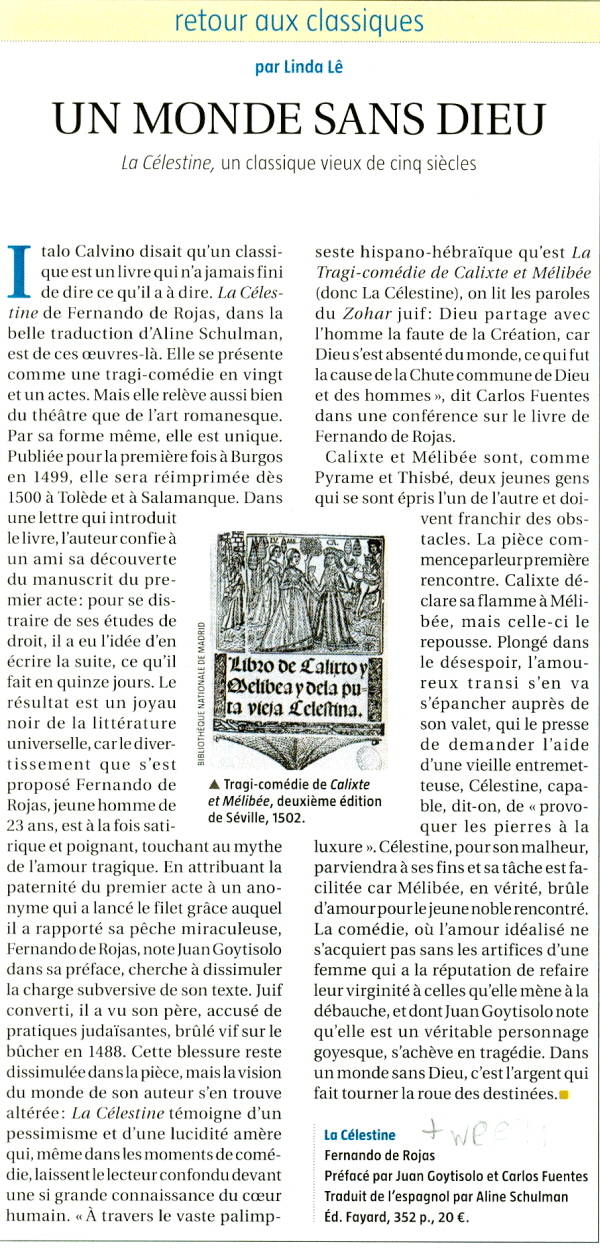
V/v Linda Lê trích dẫn Calvino.
Trong bài viết “Tại sao đọc những tác
phẩm cổ điển”, Calvino đưa ra nhiều đề nghị, trong có một, được
Linda Lê trích dẫn, un classique
est un livre qui n'a jamais fini de dire ce qu'il a à dire.
Nhân đây, post cả bài
viết thú vị đó.
Trong bài viết, Calvino trích dẫn Cioran: Trong khi
người đời sửa soạn làm thịt ông [làm món cigue,
cỏ độc], thì Socrate đang mê mải học thổi ống sáo.
-Để làm gì? Người ta hỏi ông.
-Để biết thêm một điệu nhạc sến trước khi chết.
Note:
Sở dĩ Gấu phải mầy mò, lục lọi trong đống
sách vở hầm bà làng do dọn nhà hai ba phen,
cuốn của Calvino, ấy là vì, Gấu nhớ một câu, cũng trong
bài, khác câu của Linda Lê.
Coi lại, thì ra câu Gấu nhớ, là ở trong bài
tựa, bản tiếng Pháp, của Philippe Sollers. Cũng thật tuyệt.
Tại sao đọc cổ điển? Sollers trả lời: Bởi vì
cổ điển đọc chúng ta.
Pourquoi lire les classiques?
Parce que ce sont eux qui nous lisent (1)
(1) Borges là tác
giả cổ điển, trước khi là một huyền tượng. Nhưng như Philippe Sollers
khi giới thiệu "Tại sao đọc cổ điển", của nhà văn người Ý,
Italo Calvino: Bởi vì chính họ đang đọc chúng ta. Trò
dởm đời: đòi nguyên gốc và tính thực (authenticité),
vốn chỉ là thói soi gương bao giờ cũng chỉ để nhìn
ngắm mình, của chúng ta. Calvino biết rõ điều này,
bởi vì kẻ hiện đại độc nhất, có thể là một cổ điển.
Luôn luôn là vậy, cổ điển là hiện đại. Và
phải chứng minh điều đó ra.
Theo Calvino, lịch
sử gia tài Borges ở Ý, tính ra là đã
được 30 năm. Nó bắt đầu vào năm 1955, khi bản dịch đầu tiên
Giả Tưởng (Ficciones) dưới cái tên Thư Viện Babel, xuất hiện tại nhà
xb Einaudi. Mới nhất, là toàn bộ tác phẩm của ông,
trong tủ sách Meridiani, của Modadori. Nhưng nó có
sau Pháp, và là công của Roger Caillois. Ông
này tới Buenos Aires, Argentine, quê hương của Borges, vào
năm 1939 và ở đây đến cuối Đệ nhị chiến. Quá mê
Borges, ông dịch Xổ số tại Babylone, Thư
viện Babel
(1944), rồi
tuần tự những tác phẩm khác, cho xuất bản trong tủ sách "La Croix du Sud" do ông đảm đương
tại nhà xb Gallimard. Liên hệ giữa hai người cũng thật gai
góc. Một giai thoại: Khi Roger Caillois cho xuất bản tại Buenos
Aires một nghiên cứu về tiểu thuyết trinh thám, ông
cho rằng nguồn gốc của nó là ở thời Napoléon, và
sự thành lập cơ quan cảnh sát, theo một hình thức
hiện đại. Borges nói, tầm bậy, bởi vì "rõ ràng
là thể loại tiểu thuyết trinh thám chẳng mắc mớ gì
tới cảnh sát: đây là một thể loại khác biệt
hẳn thể ký sự". Thực ra, vấn đề cơ bản ở đây là, với
Caillois: giữa thực tại và văn chương, có sự liên tục,
có qua lại, và tương đồng. Còn Borges coi đây
là hai miền hoàn toàn khác biệt, tự chủ, mỗi
nơi có, và bị chi phối bởi những luật lệ riêng. Sau đó,
ông than: Chính nước Pháp đã phát minh
ra tôi. Tôi đâu có hiện hữu. Caillois đã
làm cho người ta nhìn thấy tôi. Than ôi, người
ta nhìn thấy tôi: rõ quá!
Cũng vì lý
do đó, đọc Borges bằng tiếng Pháp sẽ mất đi một điều thiết
yếu: giọng điệu (tonalité) của bản văn. Điều này cho thấy,
sự trung thành với một văn bản nói (thí dụ như văn
chương nói của Miền Nam chẳng hạn), là một điều rất cần thiết:
Khi nói, người ta tính tới "thời lượng" (la durée)
của câu chuyện đang được kể: Người đẹp trong Ngàn Lẻ Một Đêm, đã "nát
óc" tính toán, làm sao cho câu chuyện
ngưng lúc nào, để bắt đầu một câu chuyện mới, nếu nàng
muốn sống thêm một đêm nữa.
Theo tôi, những
người viết Miền Nam ở hải ngoại hầu như đã
quên mất bài học sinh tử này.
Borges và tôi
Italo Calvino được dịch và xb ở trong nước,
và là 1 tác giả có nhiều fan, theo như GCC
được biết.
Nhưng Gấu mê những bài viết essays thần sầu của ông
hơn.
Mới đọc thấy, trên 1 tờ báo cũ, tính tìm
lại, thì đã mất tiêu, 1 tờ NYRB cũ, trong có
bài điểm cuốn "Tại Sao Đọc Những Tác Giả Cổ Điển". Tuyệt. Từ từ, tìm
lại, rồi tính.




Sách & Báo
& Thời Sự Văn Học
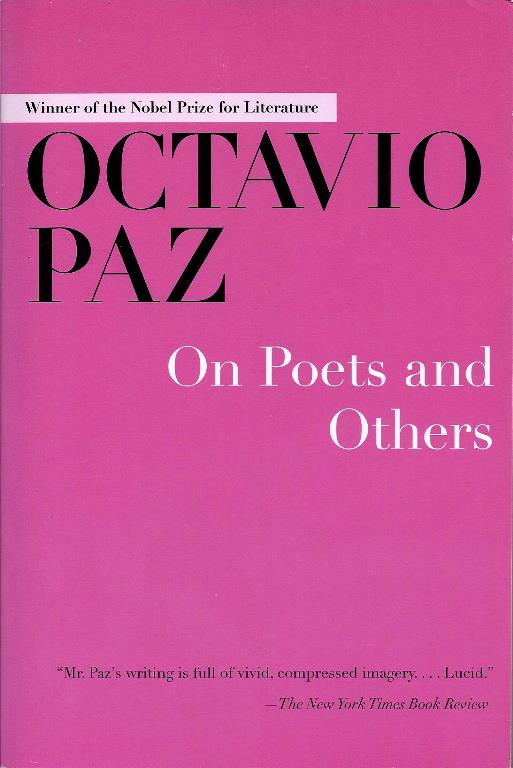
Cuốn này, cũng mới
tậu lại. Trong có mấy bài viết về Solz, về Gulag
muốn đọc lại. Paz cũng rất mê Lukacs, và cái
nhìn Solz của ông, là cũng qua Lukacs, khi coi
Solz mới đúng là nhà văn hiện thực XHCN.
Lukacs presents the author of The First Circle
as the most achieved exponent of socialist realism who has,
socially and ideologically, the chance of discovering all the immediate
and concrete aspects of society, and representing them artistically
according to the laws of their own evaluation.
In the speech he wrote accepting the 1970 Nobel
Prize, Solzhenitsyn spoke a few words which can summarize what
Lukacs meant by socialist realism, something quite distinct from
those propaganda texts disguised as novels which are not realistic
and much less socialist:
Literature is the memory of peoples; it transmits
from one generation to the next the irrefutable experiences
of men. It preserves and enlivens the flame of a history immune
to all deformation, far from every lie.
Văn chương là hồi ức của những con người, những dân
tộc, lưu truyền từ thế hệ này tới thế hệ tới, những kinh nghiệm
không thể phản bác của con người, gìn giữ và
làm sinh động ngọn lửa của 1 lịch sử, miễn nhiễm với mọi vặn
vẹo, bôi xoá, thật khác xa, thật xa lạ, với mọi
dối trá
Solzhenitsyn: Nobel văn chương


Bài
Intro OK. Đi liền
Thầy
của tớ đấy, Grass phán
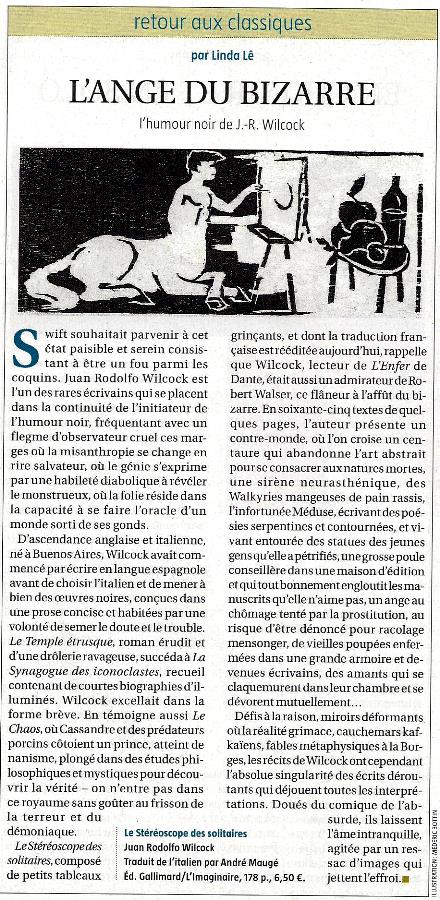
Swift souhaitait parvenir à
cet état paisible et serein consistant à être un fou
parmi les coquins. Juan Rodolfo Wilcock est l'un des rares écrivains
qui se placent dans la continuité de l'initiateur de l'humour noir,
fréquentant avec un flegme d'observateur cruel ces marges où
la misanthropie se change en rire salvateur, où le génie s'exprime
par une habileté diabolique à reveler le monstrueux, où
la folie réside dans la capacité à se faire l'oracle
d'un monde sorti de ses gonds.
D'ascendance anglaise et italienne, né
à Buenos Aires, Wilcock avait commencé par écrire
en langue espagnole avant de choisir l'italien et de mener à bien
des oeuvres noires, concues dans une prose concise et habitées
par une volonté de semer le doute et le trouble. Le Temple étrusque,
roman érudit et d'une drôlerie ravageuse, succéda à
La Synagogue des iconoclastes, recueil
contenant de courtes biographies d'illuminés. Wilcock excellait dans
la forme brève. En temoigne aussi Le Chaos, où Cassandre
et des prédateurs porcins côtoient un prince, atteint de nanisme,
plongé dans des études philosophiques et mystiques pour découvrir
la verité - on n'entre pas dans ce royaume sans gouter au frisson
de la terreur et du démoniaque.
Le Stéréoscopes des solitaires,
composé de petits tableaux grincants, et dont la traduction francaise
est rééditée aujourd'hui, rappelle que Wilcock,
lecteur de L'Enfer de Dante, était aussi un admirateur de
Robert Walser, ce flâneur à l'affut du bizarre. En soixante-cinq
textes de quelques pages, l'auteur présente un contre-monde, où
l'on croise un centaure qui abandonne l'art abstrait pour se consacrer
aux natures mortes, une sirène neurasthénique, des Walkyries
mangeuses de pain rassis, l'infortunée Méduse, écrivant
des poésies serpentines et contournées, et vivant entourée
des statues des jeunes gens qu' elle a pétrifiés, une
grosse poule conseillère dans une maison d'édition et qui
tout bonnement engloutit les manuscrits qu'elle n'aime pas, un ange au
chômage tenté par la prostitution, au risque d'être
dénoncé pour racolage mensonger, de vieilles poupées
enfermées dans une grande armoire et devenues écrivains,
des amants qui se claquemurent dans leur chambre et se dévorent
mutuellement…
Défis à la raison, miroirs déformants
où la réalité grimace, cauchemars kafkaiens, fables
métaphysiques à la Borges, les récits de Wilcock
ont cependant l'absolue singularité des écrits déroutants
qui déjouent toutes les interprétations. Doués du
comique de l'absurde, ils laissent l'âme intranquille, agitée
par un ressac d'images qui jettent l'effroi. +
ML Sept 2007
L' Appel Du Mort

A Memoir of the Warsaw Uprising
by Miron Bialoszewski,
translated by Madeline G. Levine
Reviewed by Alissa Valles
https://brickmag.com/
# 97 Summer 2016
Reading Polish
poet Miron Bialoszewski's account of the Warsaw uprising-the long two
months in 1944 when Hitler's forces, retreating, executed their orders
to leave nothing of the city standing-feels as though you are sitting
in a building that is being demolished. Things come rushing at you from
all sides, in cascades and eruptions of words, stuttering, leaping, and
crashing. A quarter of a century after the events, the poet was able to
recreate in a breathless narrative the visceral fear, disorientation, and
sheer disbelief he felt when the city of his childhood and youth was being
systematically destroyed-bombed, shelled, torched, and riddled with snipers'
bullets-around him, street by street, floor by floor, century by century.
Apartment houses split open .... Split vertically. Crosswise. Empty.
Into chips. Dangling strips. Of plaster, laths, boards, bricks. There was
an awful lot of it. All Warsaw was made of that stuff. Almost. Six -storey
buildings, too: laths, plaster, bricks, boards. Or rather, splinters. Crumbly
material. It was dry. It crackled. When struck, it spurted out. House after
house. Sheet-metal corbels-parapets-were hanging from the empty spaces left
by balconies or from nothing at all. They swung. Clanked. Banged. Thin,
hollow inside .... Warsaw was betraying all her secrets. She'd already betrayed
them-there was nothing left to hide. . . .
She'd revealed a hundred years. Two hundred. Three hundred. And more.
Everything was exposed. From top to bottom. From the Mazovian princes.
Up to us. And back again. Stas, Sobieski, the Saxons, the Vasas. The Vasas.
The Saxons, Sobieski, Stas, Fukier. The Sobieskis, Marysierika, the Sisters
of the Holy Sacrament.
The memoir, a masterpiece of post-war Polish prose, reminds one of
nothing so much as the prose writings of Britain's poets of the First World
War: Robert Graves's Goodbye to All That or (even more) David Jones's
In Parenthesis. Like those books, Bialoszewski's
is written in terse anti-heroic prose continually slipping into strange
poetry. It's also a work that uses almost tribal regional
language codes to give form to a shared and yet intensely personal
wartime existence shaped by abject terror, mad chance, and lightning decisions
that could just as easily lead to death as dodge it. Like these works, Bialoszewski's
memoir succeeds in portraying the contractions and distortions of time occurring
under fire and the periods of unnatural calm that provide relief
from chaos, but also a return to the acute consciousness of loss.
Bialoszewski's book still offends those Poles who
prefer to remember their uprising as it is commemorated in the Warsaw Rising
Museum: the running gag about this museum is that, leaving it, one is
unsure of who won. The story told is of heroism and patriotic sacrifice,
of unbreakable faith in the transcendent power of the Polish nation. There's
literally no room in it for Bialoszewski's description of huddling with
a group of friends in a building under bombardment, listening to a man outside
in the street groan in agony and call for help; the group does not even
have to discuss the matter-the man was a fool to try to cross the street,
no one even considers going to his aid. And instead of reinforcing soldierly
virtues, Bialoszewski dwells on the fate of women and animals in wartime:
So, the twentieth day of the uprising. We are in a new shelter, beneath
the pillars. In times of war, it seems, there is always a return to matriarchy.
And especially during that war. That uprising. Particularly with that descent
underground, under Warsaw (into the anthill of the shelters). It was a
relapse-an explosion. Of the cellars? The caves? What's the difference?
Masses of people. The mothers rule. Sitting underground. Hide! Don't stick
your head out! Mortal danger. Non-stop. Even if you don't stick your head
out .... Animals? There weren't any. The larger ones had been eaten already.
And the small ones? Some people kept an animal they loved, took it below and
sat with it. With an animal. But that was unusual. Particularly in Starowka
[Warsaw's old Town]. There were fewer pets there. Or they weren't taken.
Underground. Or they were brought along and died. Whatever didn't escape,
fly away, burn up, cave in, die, was hunted down. Cats disappeared. Dogs
disappeared. There's no use even talking about winged beasts. Only that cricket
in the wall when it grew dark. And then, in September-lice.
It is hard to exaggerate the difficulties of translating
Bialoszewski's prose, with its fragmentary an idiom, colloquial wildness,
constant self-revisions, and rapid shifts from dense physical detail to
subtle internal states and analyses of perception and of emotion. For the
new NYRB Classics edition of the memoir, Madeline G. Levine revised her
own remarkable translation, originally published in 1977 by Michigan publisher
Ardis, which has long been the source of many important Eastern European
works in English translation. The revision embraces changes incorporated
in the recent Polish reissue of A Memoir, which incorporated for the first
time material cut from previous Polish editions, including brief sentences
or clauses describing Poles taking pleasure in the targeting of Jews in
the Warsaw Ghetto.
But the book is not simply another chronicle of
Eastern European misery; its importance is both larger and more subtle.
Miron Bialoszewski, a naturally exuberant, ludic-indeed ludic-poet, managed
to capture how the human imagination is changed by the sight and sound of
mass destruction, how to have your city destroyed before your eyes is to
participate in a kind of eternal exodus that is the shadow tale of all civilization.
The ways he made language enact rapid and radical metamorphoses of historical
reality are an astonishing resource for poets, historians, and journalists
alike. Imagine New York on 9/11 as it might have been described by Walt
Whitman, E. E. Cummings, or Hart Crane, and you will have some idea of what
Bialoszewski's book does to-and for its readers. +
Viết Mỗi Ngày
Nói
thật mất lòng, cho đến nay tôi không tham
gia bất kỳ tổ chức, hội, nhóm nào trong và
ngoài nước, là bởi sự đoàn kết và tầm
nhìn của người Việt mình nói chung khá
hạn chế.
Mặt khác,
dù bị mọi người chỉ trích vì các
chính sách trong quá khứ và hiện
tại, thú thật Đảng Cộng sản vẫn là tổ chức hùng
mạnh nhất. Do đó, để giải quyết các vấn nạn của xã
hội ngày nay, vai trò của họ vẫn còn rất quan
trọng. Đây là sự thật không thể bác bỏ.
Trong lúc
thời cuộc còn đầy nhiễu nhương thế này, và
giữa cảnh lòng người chưa thu về một mối thế này,
thà mỗi ngày làm nghề tư vấn luật, rồi ngao
du đó đây, chắc chắn tôi sẽ thấy vui hơn. Có
lẽ con đường tôi đi chỉ là thế!
Note:
Mặt khác,
dù bị mọi người chỉ trích vì các
chính sách trong quá khứ và hiện
tại, thú thật Đảng Cộng sản vẫn là tổ chức hùng
mạnh nhất. Do đó, để giải quyết các vấn nạn của xã
hội ngày nay, vai trò của họ vẫn còn rất quan
trọng. Đây là sự thật không thể bác bỏ.
LCD
Viết như thế này, thì đành
chờ VC ban cho tí tự do nào thì được tí
đó vậy.
Có khi nào vị này nghĩ,
như Solzhenitsyn đã từng nghĩ, và làm,
1 mình ta, đủ rồi, một mình ta đủ sức đạp đổ cái
chế độ khốn kiếp đó?
NQT
Nói ra thì bị chửi là phách
lối, 20 năm nay, Gấu làm trang Tin Văn, một mình,
là cũng bắt chước Solzhenitsyn, "1 cách nào
đó"!
Nói
thật mất lòng, cho đến nay tôi không tham gia bất
kỳ tổ chức, hội, nhóm nào trong và ngoài nước,
là bởi sự đoàn kết và tầm nhìn của người Việt
mình nói chung khá hạn chế.
LCD
Nhận xét
của LCD về Đảng CS, theo Gấu, xưa rồi, quá đát rồi,
sau khi “yếu tố Tẫu” xuất hiện, và đây là phát
giác lịch sử mà độc nhất Solzhenitsyn nhìn ra được,
khi không coi cuộc chiến chống Pháp của Mít, là
cuộc chiến giành độc lập của 1 dân tộc thuộc địa của Tẩy.
Trên Tin Văn đã nhiều lần nói về sự kiện này,
khi viện ra, lời chỉ trích của Paz. (1) Ông này
chê Solz không hiểu lịch sử Mít, nhưng bây giờ
chúng ta thấy Solz đúng. Cuộc chiến chống Pháp, là
cơ hội mà Vẹm sử dụng nó vào công cuộc làm
cỏ sạch những đảng phái quốc gia nào không theo chúng,
dù chống Tây. Khi cuộc chiến nổ ra, các đám
đảng phái quốc gia, những vị đầu lĩnh của họ, tò mò,
muốn chứng kiến tận mắt cuộc chiến, rời thành phố, tới mấy vùng
địa phương, tới đâu là bị giết tới đó, và
sau này Vẹm đổ tội cho địa phương giết, không phải chủ trương
của Đảng! Địa phương nào dám giết những đấng như Phan Văn
Hùm, thí dụ. Bắt được 1 phát, là hoả tốc cho
ngựa phi ra Bắc Bộ Phủ.
Thịt liền cho ta, Bác Hồ phán!
Trong
lịch sử Mít, chưa có 1 tổ chức nào tàn
ác như Vẹm cả. Chúng giết sạch bất cứ 1 người nào
không theo chúng.
Cái gì làm cho chúng độc ác
đến như thế? Cái Ác Bắc Kít. Chẳng có
cái gì khác ở đây. Chủ nghĩa CS cũng là
1 “cơ may” để chúng dựa vào đó, cho có “cái
cờ” mà thôi.
Có
thể nói, chưa bao giờ lịch sử Mít hiện rõ ra như
ban ngày, như những ngày này cả!
Một khi yếu tố Tẫu xuất hiện, là mọi lời dối trá
lộ ra hết.
Vai trò của họ rất quan trọng, nghĩa
là sao?
Một hội nghị Thành Đô nữa?
Cái lập luận của LCD về
Đảng CS chính là cái lập luận của chính
chúng. Những tên khốn Bắc Kít, dư luận viên cái
con mẹ gì đó, phán, y hệt LCD, không có
Bác Hồ, không có Đảng thì tụi mi bốc cứt
bỏ vô miệng, tại làm sao mà dám phản động,
lấy tiền ngoại bang, chống Nhà Nước Vẹm. Vẹm là tất cả,
hiểu chưa?
(1)
Trong Về những nhà thơ và những người
khác, On poets and Others, Paz dành
hai bài, một cho Solz, và một cho Gulag. Bài Gulag, viết thêm, bổ túc cái nhìn
trước. Trong bài này, Paz nhắc tới Việt Nam, và
chê cái nhìn của Solz về VN, bị hạn chế, [theo
Paz, Solz phán, cuộc chiến Đông Dương là mâu
thuẫn quyền lợi giữa đám đế quốc, the war in Indochina was an
imperial conflict, và như thế, Solz không nhìn ra,
đây là cuộc chiến giành độc lập của 1 quốc gia].
Nhưng ông bào chữa giùm cho Solz, quan điểm của
ông [dù hạn chế. NQT] không làm giảm giá
trị của tác phẩm, [Gulag.
NQT], như là 1 chứng liệu.
Note:
Không hiểu, giả như Paz,
nếu còn sống, đọc lại những dòng trên, có
còn chê Solz?
GCC sợ rằng, Solz phán quá đúng. Chỉ
là tranh chấp qưyền lợi giữa, không chỉ thực dân
cũ [Tẩy], và mới [Mẽo], mà còn có anh Tẫu
nữa.
Làm đếch gì cái cuộc chiến tranh giải
phóng dân tộc, mà chỉ có cú… ăn cướp? Toàn đoạn văn Paz lèm
bèm về cuộc chiến Mít, đọc thú lắm. TV sẽ post liền
tù tì, và bàn tiếp, hà, hà!
Khi có dịp trở
lại đất Bắc, Gấu bèn mò về, và cũng phải tính
toán thật chi ly. Không dám về thẳng Sài
Gòn, mà phải tới Hà Nội, và phải
phôn ông cậu, Cậu Toàn, em trai bà cụ Gấu, một
người theo CS từ những ngày đầu, và là 1 ký
giả phải nói là
khá nổi tiếng, đích thân ra phi trường đón.
Phải phôn cho ông bạn quí HPA, nhờ giới thiệu
1 đấng nhà văn nhà thơ nổi tiếng, phòng hờ.
Anh giới thiệu 1 tay thật hách là thi sĩ Nguyễn
Quang Thiều. NQT và 1 số bạn bè quen biết sau đó,
lo lắng
cho Gấu đủ thứ, nhân tiện đây, xin đa tạ tất cả.
Một trong những điều Gấu canh
cánh trong lòng, là, tại sao ông cụ Gấu,
bị VNQDD thủ tiêu, ngay những ngày đầu nổ ra cuộc chiến chống
Pháp, vậy mà bà chị ruột, đứa em trai ruột còn
ở lại, không được nhà nước VC công nhận là con
của liệt sĩ. Cái gì khiến ông bố của Gấu không
được coi là 1 tên Việt Minh?
Về, hỏi han đầu này mối nọ, hóa ra là ông
cụ nhất quyết không theo Vẹm.
Dù là hiệu trưởng 1 trường tiểu học, chống Tây,
bị chúng chuyển đổi khắp mọi nơi, kể cả Lục An Châu, nổi
tiếng nước độc, thuốc phiện ê hề!
Bà cụ Gấu, khi thấy thằng con lậm Cô Ba, chửi, mày
thua xa Bố của mày!
Chỉ là 1 cảm tình viên của Đảng, như 1 ông
chú, 1 tỉnh uỷ viên, cho biết.
Có thể, ông đã từng chứng kiến, cảnh VM thủ tiêu những người
chống Pháp, nhưng không theo chúng.
Ông không muốn con cái sau này phải
mang nhục, bố của chúng là 1 tên giết người!
Phạm Quỳnh, ngay cả vào những
giây phút cuối cùng của đời mình, bị Vẹm dùng
đá đập cho tới chết, vì tiếc 1 viên đạn, vẫn khư
khư với ý nghĩ, không có thằng Tây, là
thằng Mít chết. Gấu thực sự không tin, ông giải ra
được cái thai đố, giặc ngồi ngay sau lưng nhà vua, tức “yếu
tố Tẫu”. Cuộc chiến chống Pháp là cơ hội bằng vàng
cho Vẹm làm thịt sạch những ai không theo chúng. Đến
cả những kẻ theo chúng, như Nguyễn Hữu Đang, thí dụ, mà
chúng còn giết, nữa là!
Tuy nhiên, phải đến khi Âu Châu sống sót
Lò Thiêu, và thoát bị nhuộm Đỏ, nhờ nó, thì chúng ta mới hiểu
được, giả như vẫn còn thằng Tẩy, là Mít thoát
hết, ba bốn Cái Ác: Ác Mốt Cu, Ác Bắc
Kinh, và Ác Bắc Kít.
Và một Miền Nam không nhiễm 1 thứ Ác nào
hết, vẫn còn.
Mit Critic
My Old Saigon
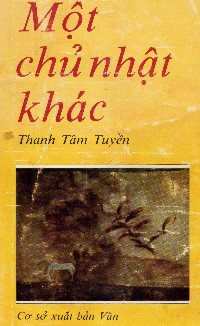
Số phận 1 cuốn sách, cuốn MCNK,
thật là ly kỳ. Theo như Đinh Cường, nó được họa sĩ Ngọc
Dũng vội vã nhét vào valise, khi rời bỏ Sài
Gòn, vào những ngày 30 Tháng Tư.
Nhờ vậy Mai Thảo bèn in nó, nhưng kể như tuyệt
bản.
Thế rồi Gấu ra được hải ngoại, và nghe Nguyễn Đông
Ngạc nói, tao có 1 bản, thế là bèn hỏi
mượn, và trước khi đi, anh bèn “trăn trối” vợ, đưa cho
GCC.
Bà vợ còn bonus, cặp kiếng mát của ông
chồng
Nhờ vậy, mà độc giả Tin Văn được đọc
nó.
Lần ông anh mất, gặp bạn Chất, bạn nói, bà
Hoa cằn nhằn hoài cái vụ mày tự động
post truyện của ông Tâm, thế là bèn lấy xuống,
nhưng nghĩ lại, nếu ông Tâm bực, thì ông đã
nói rồi, thế là lại post lên lại.
Cuốn "Những Ngày Ở Sài Gòn", cũng ly
kỳ chẳng kém.
Nhờ 1 anh lái sách, chắc nghi, cái tít
như thế chắc ăn khách,
bèn
mang theo.
Tay này hình như cùng quê Gấu Cái.
Còn mấy cuốn sách dịch của Gấu, hắn cũng mang theo luôn.
"Ngày Dài Nhất", thí dụ. Ra hải ngoại, nhìn
thấy chúng, cảm khái chi đâu, tụi mi may hơn tao,
xém 1 tí là hết gặp lại nhau!
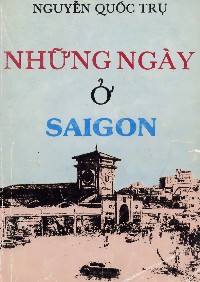
Va, petit livre, et choisis ton monde. Topffer
Hãy lên đường,
cuốn sách nhỏ bé, và chọn lựa cái thế
giới của mày.
Viết xong
sợ bị tác giả bảo xời đây không phải là Đà
Lạt của tui :((
Phải của anh không anh Nguyên
?
Mỗi người
đều có những thành phố cho riêng mình.Thành
phố không được xây từ gạch đá, vôi vữa mà
được xây bằng khao khát về một nơi chốn êm đềm cho tâm
hồn cư ng...
See More
Thiếu cả 1 lô trên đây,
chưa nói tới Cội Rễ Nhà Trời. Thiếu những trang tuyệt vời
về Đà Lạt, trong MCNK
Một
Chủ Nhật Khác
Đà Lạt
5
Kiệt có, ở Đà Lạt, hai,
trong số ba nàng của chàng: Oanh và Ly.
Hai Lúa có, hai, một cô bạn
và một cô bé.
Cô Bé tức Bông
Hồng Đen.
Cô bạn, là cái cô, y
hệt Oanh, đã "miễn cưỡng" nhận lời mời đi coi ciné,
với một anh chàng mê mình, ngày mai đi
xa, ngày mai ra trận!
Anh ta bảo: Anh có thể ra Quảng Trị, hoặc
Kontum, hoặc An Lộc… Oanh cười: Bắt chẹt Oanh quá vậy.
"Lần đầu tiên anh cầm tay em, là bữa
đi ciné. Lần đầu, vì hôm sau anh phải đi Trung
Tâm Ba Tuyển Mộ Nhập Ngũ Quang Trung. Em như miễn cưỡng "chiều"
anh. Ở trong rạp, anh cầm tay em, em giật ra. Bực mình, anh giữ
chặt lại. Nghĩ sao, em để yên. Anh như nghe em nói: thôi
được rồi, tui thương ông đó. Được chưa?"
Cô bạn là tác giả
câu thơ mà bạn có thể để vào bài
ai điếu, cho một nửa của bạn, khi nửa này chẳng may đi trước:
Hồn Đông Phương thất lạc buồn
Tây Phương.
Linda Lê, giữ mục "Trở Về Với Cổ Điển" cho
tờ Văn Học Pháp, Le Magazine Littéraire, số Tháng
Giêng 2005, trong bài viết "Tâm Hồn Lãng
Mạn", L'Âme Romantique, nhân dịp tái xb tuyển
tập "Những Nhà Lãng Mạn Đức", Les Romantiques Allemands,
đã nhắc tới một định nghĩa, thế nào là dịch thuật,
của Novalis.
Một bản dịch, thì, hoặc, có tính
văn phạm [dịch theo nghĩa đen, bám chữ], hay có tính
dẫn giải [mô phỏng, phóng tác], hoặc, có
tính huyền hoặc, mythique. "Những bản dịch huyền hoặc là
thứ bảnh, văn phong thuộc loại thượng thừa, de haute style. Chúng
tái tạo nghệ phẩm, đưa nó trở về dạng trinh nguyên,
toàn bích, ấy là nói về tính cách
của nghệ phẩm, ở trong cái gọi là cá biệt, nhất
khoảnh của nó. Nói một cách riết róng, không
phải một nghệ phẩm mà nó dâng hiến cho chúng
ta, mà chính cái gọi là lý tuởng"....
Nó làm bật ra, còn quá bản văn, mà
là linh hồn của tác phẩm.
Dịch mà làm sao cống hiến cho người
đọc, không chỉ bản văn, mà là linh hồn của
nó, ấy mới là dịch vậy!
Theo nghĩa đó, câu thơ "Hồn Đông
Phương thất lạc buồn Tây Phương" là một câu
thơ dịch. Một bản sao.
Nó chuyển một Hồn Đông Phương thất
lạc, không còn tìm thấy mình,
thành nỗi buồn lưu vong, xa xứ.
Thành Buồn Tây Phương.
Borges đã từng suýt soa, dịch bản
bảnh hơn nguyên bản, là vậy.
Cũng vẫn theo nghĩa đó, một tác phẩm
chỉ là tác phẩm khi tìm được linh hồn của
nó.
Ở trong dịch bản!
Cũng vẫn theo nghĩa đó, một nửa, nửa kia,
của mình, mới là mình.
Mới là linh hồn của mình!
Mình là cái quái gì?
Anh chỉ mong mọi người coi thường anh.
TTT: Một Chủ Nhật Khác
*
Người đọc Một Chủ Nhật Khác, nếu
tinh ý một chút, đã linh cảm ra được, kết
cục bi thảm của nó, khi nhớ tới đoạn Kiệt gặp anh Trung Tá
già, đã từng bị VC tóm được, trốn thoát.
Hai người bàn về loài voi, khi biết mình sắp chết,
là bò về nghĩa địa...
"Loài voi có đặc tính kỳ lạ
là khi biết mình sắp chết thì tự động bỏ đàn
lánh đến chỗ khuất nằm chờ chết? Các nhà thám
hiểm Phi Châu thường gặp những nghĩa địa voi"
"Cũng có phần đúng, thành phố
này là một nghĩa địa voi. Nhưng rừng ở đây
tuyệt giống voi lâu rồi.... Cái ông bác
sĩ tìm ra thành phố này là một con bệnh
ông biết không? Ông ta mắc chứng kỳ quái...".
Một Chủ Nhật Khác
Một cuốn tiểu thuyết, một cách nào
đó, giống như một bài toán đố. Những chi
tiết, những sự kiện, giống như những giả thiết. Đọc, là tìm
cách chứng minh bài toán, tìm ra cái
định lý của nó.
Chính vì thế, người ta cho rằng,
tiểu thuyết trinh thám mới đích thị là tiểu
thuyết.
Theo nghĩa đó, Foucault cho rằng, bất cứ
một kho tàng, dù chôn giấu kỹ lưỡng thế nào,
người chôn cũng để lại tiêu ký, để cho người
tìm có tí dấu vết mà lần mò.
Hai Lúa còn nhớ, có lần, tác
giả Một Chủ Nhật Khác
kể là, hình như trong một bài viết, lúc
nghe tin ông Diệm bị làm thịt, ông đang ngồi
với một vài ông bạn, cũng sĩ quan, lính tráng.
Cả bọn đồng la lên: Hỏng rồi!
Hỏng rồi, là "đại cục" hỏng rồi?
Hỏng rồi, là vui sao nước mắt lại trào?
Hỏng rồi, là sẽ có 10 ngày
ở... Thiên Thai?
Hỏng rồi, là sẽ có một con bọ?
Cái "tiêu ký" 'hỏng rồi' đó,
sao mà... thảm thế!
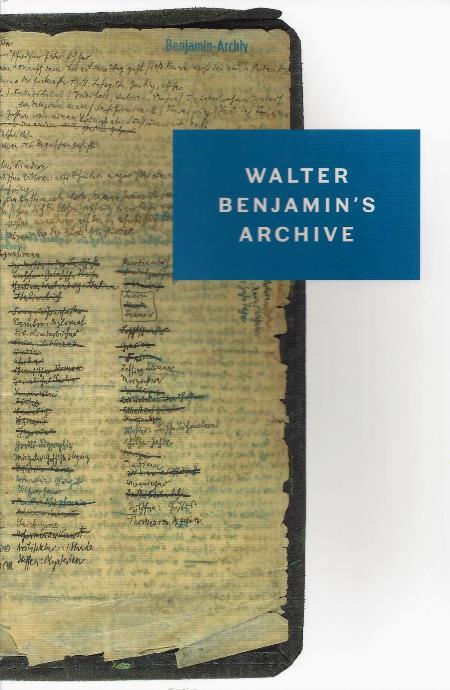

L' Appel Du Mort
Nói
thật mất lòng, cho đến nay tôi không tham gia bất
kỳ tổ chức, hội, nhóm nào trong và ngoài nước,
là bởi sự đoàn kết và tầm nhìn của người Việt
mình nói chung khá hạn chế.
Mặt khác,
dù bị mọi người chỉ trích vì các chính
sách trong quá khứ và hiện tại, thú thật Đảng
Cộng sản vẫn là tổ chức hùng mạnh nhất. Do đó, để
giải quyết các vấn nạn của xã hội ngày nay, vai trò
của họ vẫn còn rất quan trọng. Đây là sự thật không
thể bác bỏ.
Trong lúc
thời cuộc còn đầy nhiễu nhương thế này, và giữa cảnh
lòng người chưa thu về một mối thế này, thà mỗi ngày
làm nghề tư vấn luật, rồi ngao du đó đây, chắc chắn
tôi sẽ thấy vui hơn. Có lẽ con đường tôi đi chỉ là
thế!
Note:
Mặt khác,
dù bị mọi người chỉ trích vì các chính
sách trong quá khứ và hiện tại, thú thật Đảng
Cộng sản vẫn là tổ chức hùng mạnh nhất. Do đó, để
giải quyết các vấn nạn của xã hội ngày nay, vai trò
của họ vẫn còn rất quan trọng. Đây là sự thật không
thể bác bỏ.
LCD
Viết như thế này, thì đành chờ VC ban cho tí
tự do nào thì được tí đó vậy.
Có khi nào vị này nghĩ, như Solzhenitsyn đã
từng nghĩ, và làm, 1 mình ta, đủ rồi, một mình
ta đủ sức đạp đổ cái chế độ khốn kiếp đó?
NQT
Nói ra thì bị chửi là phách lối, 20 năm
nay, Gấu làm trang Tin Văn, một mình, là cũng bắt
chước Solzhenitsyn, "1 cách nào đó"!
Cần gì ai đọc!
Kafka hình
như chỉ để lại trên đời 3 q tiểu thuyết ( và vài
truyện ngắn ), còn lại đốt sạch. Nhưng mình nghĩ
nếu ổng có để lại thêm quyển tiểu thuyết nữa thì
chắc cũng giống vậy thôi. Cả 3 ( Amerika, Lâu đài,
Vụ án) có vẻ như là một, đều là một
kiểu phiên tòa và anh K nào đó
là bị cáo. Từ đầu đến cuối anh bị buộc tội mà
anh không biết không làm, nhưng toàn
bộ hành trình của anh không phải là để
chứng minh mình vô tội mà đi tìm tội
danh của mình. Kafka mà hiện thân là 3
anh K kia đều luôn tin mình có tội, chỉ có
điều là không biết mình có tội gì
thôi. Không thích nghi được cũng là tội,
không hành xử lý tính là tội, không
theo kịp kỳ vọng cũng là tội. Hoặc là có mặt trên
đời này chính là cái tội to nhất mà
không tài nào bào chữa được.


Tất cả những gì được
xb khi Kafka còn sống, là ở trong cuốn này.
Mấy cuốn tiểu thuyết thì đều dở dang, và được xb sau
khi ông mất. Trên blog NL cũng có 1 bài
mới, về Kafka.
Theo GCC, khủng nhất của Kafka, đúng là
Thuộc địa Trừng giới, và quái
làm sao. nó được viết ra là cho xứ Mít,
tương tự Y Sĩ Đồng Quê, cũng là
cho xứ Mít, tếu thế!
Viên y sĩ đồng quê ngồi bên
lề đường Xề Gòn, khóc ròng, ngày
30 Tháng Tư 1975, "ta bị lừa", đúng là hình
ảnh DTH.
Điều này giải thích
Mít mê Kafka, chăng?
http://nhilinhblog.blogspot.ca/2015/06/doc-va-doc-lai-kafka.html?showComment=1478945727886
Of course, Kafka is not the first
writer, nor will he be the last, to figure himself as a martyr to his art—think
of Flaubert, think of Joyce—but he is remarkable for the single-mindedness
with which he conceived of his role. Who else could have invented
the torture machine at the center of his frightful story “In the
Penal Colony,” which executes miscreants by graving their sentence—le mot juste!—with a metal stylus into their very flesh?
Lẽ dĩ nhiên, Kafka đâu
phải nhà văn đầu tiên, càng không phải
nhà văn cuối cùng, nhìn ra mình, lọc
mình ra, như là 1 kẻ tuẫn nạn, vì cái
thứ nghệ thuật mà mình chọn lựa cho mình: “dziếc
dzăng”!
Hãy nghĩ tới Flaubert, hãy nghĩ
tới Joyce [Xém 1 tí là thêm tên
GCC vô!]. Nhưng ông bảnh nhất, khác hẳn mấy
tay kia, là, loay hoay hì hục, chỉ chúi vô
có mỗi cú đó, với “cái mình,
cái đầu, cái tim của mình” [the single-minded]
chỉ xoáy vô có mỗi chỗ “ấy ấy”, và từ đó,
tìm ra, nhận ra vai trò của mình, "nhà
dzăng".
Làm sao có thằng cha nào,
ngoài Kafka ra, phịa ra được cái máy tra
tấn người ở trung tâm câu chuyện đáng sợ “Ở
thuộc địa trừng giới" [xém thêm cái tên
của nó, là Xứ Mít bi giờ!], nó hành
quyết những tên “ly khai, dám chống lại Đảng VC”, bằng
cách dùng cây kim châm khắc mẹ bản án
[le mot just],
vô da vô thịt họ.
http://www.tanvien.net/Souvenir/9.html

Ai, ngoài Sshulz ra, ảnh
hưởng tới ông?
Kafka, tuy nhiên, thật khó mà
kiếm thấy một nhà văn không bị ảnh hưởng bởi Kafka,
ngay cả khi người này không viết cùng một cái
văn phong như của Kafka. Kafka là một giai đoạn
văn học mà bạn bắt buộc phải vuợt qua [Kafka is a literary
stage you have to go through]. Tôi luôn luôn tưởng
tượng ra cái xen, Kafka đứng, hai tay trên bờ cửa sổ, nhìn
bên trong vào cuộc đời [looking inside into life]. Như thể
ông nhìn ra phía bên ngoài từ cái
chết, ngay cả khi ông đang còn sống. Tôi chưa tìm
ra điều này, ở bất cứ nhà văn nào khác.
Trong Chết như là Cách Sống, Death
as a Way of Life, ông phán: “Tôi không
thuộc về số người coi Lò Thiêu là một sự kiện
đặc thù Do Thái”.
Grossman: Tôi không nghĩ, người ta có
thể tách "tính Do Thái", the Jewishness,
ra khỏi Lò Thiêu, the Shoah, nhưng đây là
một sự kiện mắc mớ đến toàn nhân loại. Mọi người, bất
cứ một người, ai cũng nên đặt ra cho chính mình,
một vài câu hỏi liên quan tới Lò Thiêu.
Chúng ta phải đọc Kafka, nhất là Mít,
đúng như Grossman phán.
Kim Dung, khi phịa ra nước cờ Hư Trúc,
không tin có ai phá được, vì phải giết,
chính mình, trước đã!
Một cách nào đó, câu
phán khủng khiếp của Kafka, có gì tương
tự. Người phán, trong cuộc đấu tay đôi, sinh tử,
duel, giữa mi và thế giới, hãy hỗ trợ thế giới.
Sở dĩ khó đọc Kafka, là do đạo hạnh
chưa đủ đô, theo GCC.
Có những tác giả, bạn muốn đọc họ,
là phải tu thân, dọn mình, không gần
đàn bà, tịnh khẩu, ăn chay trường....
Kafka là thứ tác giả như thế!
Kafka's Answer
In the duel between you and
the world, back the world.
Kafka
F. Kafka, Everyman
Zadie Smith
The Tremendous World I Have Inside
My Head:
Franz Kafka: A Biographical Essay
by Louis Begley.
Atlas and Co., 221 pp., $22.00
1.
How to
describe Kafka, the man? Like this, perhaps:
It is
as if he had spent his entire life wondering what he
looked like, without ever discovering there are such things
as mirrors.
A naked
man among a multitude who are dressed.
A mind
living in sin with the soul of Abraham.
Franz
was a saint.
Kafka: Một người như mọi người
Zadie Smith đọc Franz Kafka: Một
tiểu luận mang tính tiểu sử, tác giả Louis Begley.
Một bài tuyệt vời về Kafka,
“với riêng Gấu”!
Có
vẻ như Gấu mê Kafka, vì ông rất thù ông
bố "Bắc Kít" của ông!
Cái tay Begley tả cuộc
tình của Kafka với Felice mới thú vị làm
sao, và làm Gấu ngộ ra, về tất cả những mối tình
của Gấu với Đất Bắc, qua Cô Hồng Con, BHD, và chừng
vài em nữa….!
Kafka
điên cuồng chạy theo em [ôi, lại nhớ cái xen
ở cổng trường Đại Học Khoa Học, Sài Gòn], rồi
cố chạy trốn em, Begley viết, ‘với một mục đích và
đam mê thui thủi [single-minded], của một con chồn, cố cắn
nát cái chân của chính nó,
để thoát ra khỏi cái bẫy’!
Zadie
Smith viết về nỗi đau Do Thái của Kafka:
Tính Do Thái của
Kafka thì là một thứ mộng mơ, khoảnh khắc
đích thật của nó luôn ngụ trong quá
khứ hoài nhớ [Kafka’s Jewishness was a kind of dream,
whose authentic moment was located always in the nostalgic past.]
Kafka
Early Years
Kafka: The Early Years.
By Reiner Stach. Translated by Shelley Frisch. Princeton
University Press; 564 pages; $35.
POOR Franz
Kafka. His lifetime being misunderstood by his family has been
followed by an even longer literary afterlife being misunderstood
by the world. According to a new biography by Reiner Stach, Kafka
was not the neurotic, world-removed writer of, say, Isaac Bashevis
Singer’s 1960s story, “A Friend of Kafka”, in which a friend says
Kafka’s inhibitions “impeded him in everything”. Nor was he scarred
solely by a difficult relationship with his overbearing father, an
idea that Alan Bennett’s play “Kafka’s Dick” toyed with in the 1980s.
In “Kafka:
The Early Years”, the last instalment of a mighty, three-volume biography,
Mr Stach pursues close description of Kafka’s life and times rather than
the “critical biography” approach combining biography and textual interpretation.
What Mr Stach uncovers in this volume—written last because of a long
struggle over access to documents—are the formative experiences
of a Kafka who becomes new and surprisingly relevant.
“Readers…will
find myths about Kafka exploded,” writes Shelley Frisch in her
translator’s preface. Mr Stach himself lauds “the many pieces of
the mosaic discovered by others”, a half-century of academic discovery
(about Kafka’s first-rate work as an insurance clerk, for example)
that Mr Stach now brings to a wider audience. Yet even those immersed
in the specialist work benefit from the illumination that Mr Stach’s
detailed digging brings.
Kafka wrote
his famous “Letter to His Father” in 1919, in which he took his
father, Hermann, to account for his boorish ways with his son,
who became beset by guilt and fear of punishment. But, as Mr Stach
vividly shows, loneliness, not humiliation, was Kafka’s first formative
experience. Until he was four, his father and mother were busy in the
family haberdashery shop 12 hours a day, six and a half days a week.
Kafka learned that social relations were fraught and unstable—with great
consequence for literature.
In Mr Stach’s
telling, this insecurity was compounded by threats that the observant
and highly sensitive Kafka found in the world: an education system
based on rigorous exams, and the risk of failing them; a society
beset by tensions between Czechs and Germans, in which Jews were
often the scapegoats; and new-fangled machines like aeroplanes, which
both delighted and terrified the young author.
According
to Mr Stach, guilt and punishment preoccupied Kafka from 1912—the
year he wrote “The Metamorphosis”, a groundbreaking story—until
early 1915. But later works posed a new question: “What do people
have to do to be accepted by a group—and why are some never accepted?”
For the biographer, this is precisely the theme of “The Castle”, an
unfinished novel that Mr Stach calls Kafka’s most brilliant work,
written two years before he died of tuberculosis in 1924, aged 40.
In today’s
age of backlash against globalisation, the arc that Mr Stach draws between
“The Early Years” and Kafka’s later life takes on a new significance.
It traces the life of a misunderstood German-speaking Jew in a
city run first by an Austrian emperor, then by assertively nationalist
Czechs. “We move from guilt to the question of identity,” Mr Stach
says. “The question, ‘Who am I?’ is, after all, closely linked to,
‘Where do I belong?’”
The bloody
climax of nationalism that followed makes Kafka’s story not a
little poignant: he found a true home neither in life nor in death.
The difficulty of writing “The Early Years” was a symptom of this.
Mr Stach spent years trying to persuade the Israeli heirs of Max Brod,
Kafka’s friend and literary executor, who left Prague for Palestine
in the 1930s, to let him read Brod’s diaries. Though he will not say
how, Mr Stach got hold of copies of three volumes, rendering new insights
about Brod’s and Kafka’s world.
The Israeli
Supreme Court recently ruled that the Brod manuscripts should
be placed in the National Library. This is good news for the public,
but ensures that Kafka will remain rootless: his and Brod’s manuscripts
will be scattered between Germany, Britain and Israel. And rootlessness
breeds indifference. Vienna has neglected the sanatorium where Kafka
died. Berlin has left commemoration of Kafka’s time there to private
initiatives. And the Czech government sees Kafka more as a tourist
magnet than as a cultural icon. Mr Stach concludes that “No state
feels responsible for him. That’s absurd.”
This article appeared
in the Print Edition with the headline: Refugee
avant la lettre
Tờ Người Kinh Tế số mới nhất, điểm cuốn
tiểu sử của Kafka, Những năm đầu đời, trong khi cuốn “Những năm
đốn ngộ” thì đã điểm từ hồi Diễm Xưa lận. Tin Văn đi
cả hai, ở đây, rồi lèm bèm tiếp. Bộ này,
bạn NL chê thấu trời, pháo xịt.
Xịt hay không, từ từ tính.
Một Kafka Khác
Kafka's Prague
Is That
Kafka?
Note: Số
báo cũ về Kafka, ML 2002. Có bài phỏng vấn
Reiner Stach, tác giả cuốn tiểu sử mới nhất về ông.
Bài Kafka/Walser: Un air de parenté, tuyệt. Không
ảnh hưởng lên nhau, có vẻ anh em, 1 hội tụ, convergence,
xa và tối, lointaine et obscure, trong 1 tiền giả dụ chung,
dans un présupposé commun. Cùng tách
ra khỏi thế giới. Walser thảm hơn nhiều, thèm đi xa, avide
de se perdre. TV sẽ đi bài này.
Cùng lúc, đi
luôn 1 đường, trên tờ NYRB, của Francine Prose, điểm
cuốn "Phải Kafka đó không đấy"?

òn tay này.
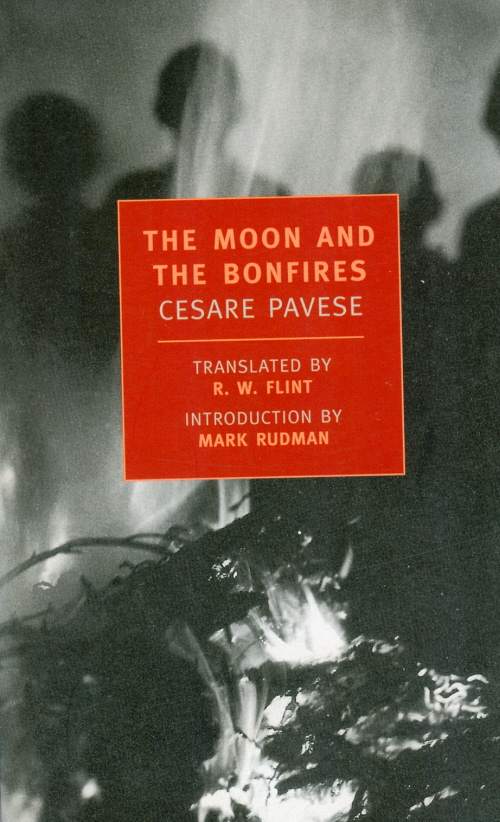
Đúng hơn,
dịch Faulkner, nhưng, do viết văn, cho nên bị ảnh hưởng. Trong
“Tại sao đọc cổ điển” của Italo Calvino có 1 bài thần
sầu về ông. Gấu tính dịch hoài, quên hoài.
Tay Pavese này bảnh hơn Gấu nhiều lắm, ổng dám
đi luôn, còn Gấu, xin làm đệ tử Cô Ba, mấy
lần năn nỉ, xin cho theo hầu luôn, cổ lắc đầu, mi còn
phải trả nợ nhiều lắm, chưa đi được.
“Trăng & Lửa” có lẽ là cuốn tiểu thuyết
“Mẽo ơi là Mẽo”, the most American novel, đã được viết
bởi một ngôn ngữ nước ngoài.
Mẽo nhất, Mẽo ơi là Mẽo, 1 phần là nhờ Faulkner.
TV sẽ đi bài của Italo Calvino. Tuyệt.
Hé tí, sơ sơ, theo kiểu sex appeal:
Mỗi cuốn tiểu thuyết của Pavese thì lòng
dòng [resolve] quanh 1 đề tài ẩn [hidden theme], một
điều gì không nói ra, và đúng là
điều ông muốn nói, và điều này chỉ có
thể diễn tả bằng cách đừng nhắc đến [… which can be expressed only
by not mentioning it]
Nơi chốn không làm
sao sống nổi là nơi chốn con người cảm thấy hạnh phúc!
Một lý do tốt lành để tự tử thì không
hiếm hoi ở bất cứ một con người
Nỗi buồn lớn lao nhất một con người cảm thấy, đó
là khi những lý tưởng thất bại của người đó,
biến thành hiện thực!
Những nhà văn trở thành
huyền hoặc thì ít khi hạnh phúc. Vào
năm 1950, khi đợp giải Strega nhờ "Trăng & Lửa", và xb
cuốn tự thuật, Nghề sống,
Cesare Pavese bèn tự làm thịt chính mình….
Điều mà Nhật Ký
của Kafka giáng lên văn hóa Đức, thì cũng
là điều Pavese mang tới cho văn hóa Ý.
“Cái nón nhà
văn DoThái Mẽo chẳng có nghĩa gì đối với tôi”,
Roth phán, trong bài viết "America Amok", “Mẽo Khùng”,
hay “Khùng Mẽo”, khi trả lời phỏng vấn liền sau khi cho xb
American Pastoral. “Nếu tôi không
phải là nhà văn Mẽo, tôi đéo là
cái gì hết.”
Một nhà văn Mít,
thì cũng phải như thế.
Mít, Mít Mít, đéo có
Bắc Kít, Nam Kít, trước sau 1975..... cái con
mẹ gì hết!
Gấu chửi Bắc Kít để nó trở thành
thứ Mít như thế, chứ không thù hằn gì
Bắc Kít!
Có lần Gấu phán
nhảm. Mít không cần sự thực về cuộc chiến, mà
cần giả tưởng, bởi, chỉ giả tưởng mới làm nổi chuyện này.
Đừng hiểu theo nghĩa chung chung, cái kiểu, bằng
lời dối trá tôi nói lên sự thực, mà
hiểu theo nghĩa cụ thể. Không 1 thứ gì khác
làm được điều này, nhất là ba thứ hồi ký,
kể cả hồi ký tù, Chuyện
Kể Năm 2000, hay Bên Thắng
Nhục, Đêm Hay Ngày….
TTT, khi viết Một Chủ Nhật Khác, trước khi cuộc
chiến chấm dứt, chẳng đã nói về những người bỏ nước
ra đi rồi trở về ư.
Đọc bài viết về cuốn American Pastoral,
trong có nhắc lại 1 ý của Roth: Giả tưởng phịa ra
ý thức, Fictions invents consciousness.
Tuyệt.
MCNK chẳng là ý thức được phịa từ giả tưởng
ư? Cái ý thức [niềm ao ước, giấc mộng...] mà
Steiner đã từng mơ ước, được chết ở Lò Thiêu cùng
với những người cùng thế hệ ông.
Một cách nào đó, suốt cuộc chiến,
Gấu đếch dám bỏ nước ra đi là vì thế!
Bà cụ Gấu cũng phán như thế: Chết cả đống
còn hơn sống một người!
A[merican] P[astoral] là 1 cuốn
tiểu thuyết mà đề tài của nó là cuộc
chiến Mít. Nhân vật chính, 1 người đàn bà,
đã cho nổ tung 1 tòa nhà để phản đối nó.

Tập tiểu luận, essays, được
viết theo kiểu hồi ký, về Roth. Tác giả, Claudia Roth
Pierpont, là staff writer của tờ “Người Nữu Ước”
Đọc loáng thoáng bài "Những đứa trẻ
của Kafka", nơi tiệm sách, thế là bèn bệ về.
Roth đụng vấn đề Do Thái,
y chang Gấu đụng vấn đề Bắc Kít.
Bị chúng tấn công, "mi vưỡn viết những tác
phẩm như thế, nếu mi sống ở Đức Nazi?", ông thề, tao đéo
bao giờ viết về Do Thái nữa!
Roth viết, Kafka chết “sớm
quá, đối với Lò Thiêu”, Kafka died “too soon for
the holocaust”.
Cả 1 nền văn học VC, được,
chỉ có cuốn này, [dù những chi tiết sai lầm về
thám báo của nó, như THT chỉ ra!]
Nó đánh dấu chấm hết thật là đáng
mừng, cái thứ văn chương chỉ có siêu nhân,
hay quái vật, như anh hùng Núp của Nguyên
Ngọc.
Trong khi Miền Nam, có muôn vàn thứ
OK, nào truyện ngắn, nào truyện dài, chưa kể
những thứ tạp nhạp như của THT!
Đó là sự thực.
Văn chương đâu phải trò đàn đúm!
GCC đâu có thù hằn gì ông
THT?
Bài điểm sách của Gấu, ngày nào,
viết về ông ta, và những nhà văn cầm súng
như ông, là cả 1 hoài bão về 1 văn tài,
về cả 1 thế hệ văn chương.
Gấu
đọc Kafka rất sớm, từ ngay vào lúc vừa có tiền,
do làm thêm cho UPI, và ti toe viết. Trong Những
Ngày Ở Sài Gòn, còn bệ 1 câu của Kafka,
hình như là đọc qua nhóm Tel Quel, cụ thể hơn nữa,
qua 1 bài viết nào đó, của Sollers. Nhà
văn, dê tế thần, bouc-émissaire, thì dùng từ này,
để phạng Nguyên Sa, trong bài viết về Nguyễn Du!
'I am memory come alive' … Franz Kafka.
Photograph: Culture Club/Getty Images
Note: Câu của Kafka, I am memory come
alive, Gấu đã từng chôm, khi còn Sài
Gòn, trước 1975, qua bản tiếng Tây, "Je suis une mémoire
devenue vivante d’où l’insomnie", và đặt lên đầu
truyện ngắn Kiếp Khác.
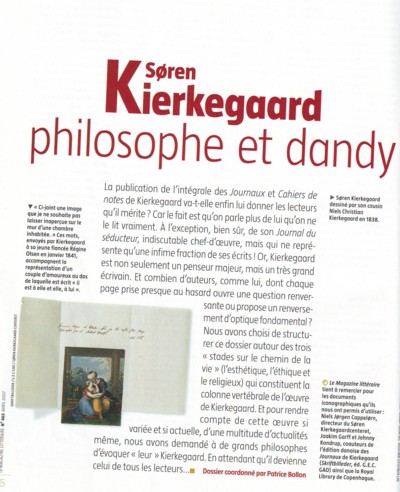
Tờ Văn học Pháp, Tháng
Tư, 2007, đặc biệt về triết gia hiện sinh Ky Tô Kierkegaard,
nhân phát hành toàn bộ Nhật Ký của
ông, được dịch lại hoàn toàn.
Je suis une mémoire devenue vivante d'où l'insomnie
Tôi là cái hồi ức trở nên sống động,
thành ra không làm sao ngủ được.
Mây Bay Đi
Nguyễn Du giữa chúng ta
Why Saki’s stories are due a revival
With their dismantling of stupidities,
Saki’s macabre tales are due a revival 100 years after his death
Always
relevant … Hector Munro, who wrote under the pen name Saki
Always relevant … Hector Munro, who wrote under the pen name
Saki. Photograph: Alamy
Monday 14 November 2016 07.00 GMT
Last modified on Monday 14 November 2016 07.02 GMT
If only Saki – the pen name of Hector Hugh Munro – were still
alive. The age of Trump needs his brutal dismantling of human stupidities.
Despite a coterie of literary fans, Saki’s icy, perfectly constructed
short stories have been relatively little read over the past 50 years
– years of smug belief in endless progress – but his tales, by turns
malevolent and macabre, may be due a revival in our new age of exigency.
George Saunders's funny, sad stories from a divided nation
An anniversary always helps, and Monday marks the centenary
of his death – in the Battle of the Ancre, the fag end of the Battle
of the Somme. Fag end really is the phrase, because, hunkered down in
a shell crater with his fellow fusiliers, his last recorded words were
“Put that bloody cigarette out!” Too late, sadly – the light had already
attracted the attention of a German sniper. An end Saki would surely
have appreciated: his stories often culminate with an unexpected, untimely
death.
Saki shouldn’t even have been at the front. He was 43 when
war broke out, too old to enlist. But a proud son of empire – he
was born in British-ruled Burma to a father who was an inspector-general
in the Indian imperial police –he joined up anyway, turning down a
commission because he didn’t think soldiers should serve under an officer
who had gained no military experience.
The imperial, high Tory side stands in stark contrast with
his anarchistic temperament and pitch-black literary imagination,
as exemplified in his numerous short stories and two novels. He was
a glorious pyromaniac let loose in the genteel upper-middle-class Edwardian
world he knew so well. In many of his stories, stuffy authority figures
are set against forces of nature – polecats, hyenas, tigers. Even if
they are not eaten, the humans rarely have the best of it.
One can be too reductive in tracing the links between a writer’s
life and his work, but in Saki’s case it is impossible not to. His
mother died after a collision with a runaway cow; he was brought up
in a village in Devon by tyrannical aunts determined to beat some sense
in to him; and, as a gay man in a post-Wildean age, he was forced to lead
the closeted life of the outsider (the sexual significance of the squiggles
in a notebook unearthed by one of his biographers have been much argued
over).
Despite uneven popular appeal, Saki has had many devotees
over the past century – Graham Greene, Noël Coward, PG Wodehouse,
Roald Dahl. “In all literature, he was the first to employ successfully
a wildly outrageous premise in order to make a serious point,” said Dahl,
who wasn’t just influenced by Saki’s style but occasionally borrowed
one of those outrageous premises, too. Among modern writers, Will Self
is a champion, doing his bit to ensure a blue heritage plaque was installed
outside Saki’s former flat in central London. “Saki’s stories are highly
relevant to any society in which convention is confused with morality,”
says Self, “and all societies confuse convention with morality, so he’ll
always be relevant.”
But why “Saki”, I hear you ask? It is one of the mysteries
about him – and his sister Ethel helpfully burned most of his papers
after his death. There are two theories about the nom de plume: that
it is taken from a cupbearer who appears in the Rubaiyat of Omar Khayyám,
and that it is the name of a South American monkey which appears in one
of his stories. A very Sakian choice.
'Bored
to the point of murder' ...
HH Munro.
Photograph: Time Life Pictures/Mansell Collection
Saki
Trong
Gánh Nặng Tuổi
Thơ, Greene nhắc tới Munro,
[một trong ba ông, mỗi ông tìm mỗi cách
hất bỏ gánh nặng tuổi thơ, hai ông kia là Kipling,
và Dickens], và tự hỏi, không biết ông lấy
ở đâu ra bút hiệu Saki.
Bài viết trên Guardian giải thích:
Hector Hugh Munro's pen-name refers either to the cupbearer
in the Rubáiyát of Omar Khayyam, which is spoken of disparagingly
in more than one of his stories, or a type of South American monkey.
I prefer to think it was the latter: not only did Saki have an abiding
love for animals, but his mischievousness and capability for sudden
viciousness are traits that seem, at least to my limited zoological
knowledge, eminently monkey-like. [Saki là từ tác phẩm
của Omar Khayyam, chỉ một sĩ quan hầu rượu, hoặc, một thứ khỉ Nam Mỹ]
*
Greene viết, bất hạnh, tuyệt vời thay, trợ giúp,
aid, hồi ức, [Gấu đã từng dịch ẩu là, bất hạnh là
thuốc bổ của hồi ức]. Và những truyện ngắn hay nhất của Munro
thì tất cả đều là về thơ ấu, sự hóm hỉnh, ẩu tả,
anarchy, cũng như là sự độc ác, và bất hạnh của
nó.
Even when Saki is not writing explicitly "horrific" stories,
however, the unease is present. His stories are more subtle variations
on what William Burroughs, writing of Naked Lunch, described as the
"frozen moment when everyone sees what is on the end of every fork".
Or as VS Pritchett put it, "Saki writes like an enemy. Society has bored
him to the point of murder. Our laughter is only a note or two short of
a scream of fear."
Saki
Ngay cả khi Saki
không viết về [tuổi thơ] kinh dị, thì vẫn thật nhức nhối
khi đọc ông... Saki viết như một kẻ thù. Xã hội
làm ông buồn bực đến nỗi chỉ muốn làm thịt một kẻ
nào đó. Độc giả đọc ông, "thi thoảng" bật ra một
tiếng cười, ấy là do quá sợ!
*
-Sơ Dạ Hương, tại sao?
-Một cái tên mượn từ Lâu Đài
Họ Hạ, truyện Hoffmann, Vũ Ngọc Phan dịch. Trong đó chỉ có
một từ, là thực.
Phỏng vấn Gấu
*
Có nhiều những hao hao rất giống nhau trong quãng
đầu đời giữa Kipling và Saki, và phản ứng của Saki đối
với sự cơ cực, thì gần Kipling hơn là Dickens. Kipling
sinh ở Ấn Độ. H.H. Munro, [tôi không khoái cái
bút hiệu Saki không biết lấy ở đâu ra của ông,
nghe vô duyên làm sao!], sinh ở Burma, [Miến
Điện]. Cuộc sống gia đình của những đứa trẻ như thế thì
luôn bị đổ vỡ. Những nỗi cơ cực Kipling và Munro ghi lại
cũng là những kinh nghiệm của đám con cái nhân
viên dân sự, hay sĩ quan phục vụ tại những xứ sở thuộc địa
tại Đông phương: một chiếc tắc xi đưa đến một căn nhà bà
con lạ hoắc, đồ đạc lỉnh kỉnh khui ra, miếng ăn nước uống không
làm sao nuốt trôi, và 4 năm trời xa cách bố
mẹ, thiếu vắng sự thương yêu vỗ về chăm sóc, chỉ 4 năm thôi
mà dài bằng cả một thế hệ [4 tuổi, thì là
một đứa bé, 8 tuổi, đã là một cậu con trai]. Kipling
tả nỗi ghê rợn của thời gian này ở trong những cuốn như Baa,
Baa Black Sheep - một câu chuyện mặc dù cái vẻ tình
cảm của nó, nhưng thật khó mà đọc nổi: Những lời
cầu nguyện của bà cô, những trận đòn, lá bài
với từ “LIAR” [Tên Nói Dối] ở mặt sau, sự quờ quạng do bị
bỏ mặc không biết bấu víu vào đâu cứ thế lớn
dần và sau cùng, là nổi loạn
Có một điều gì thật hao hao giống tuổi thơ
của Gấu, ở những dòng trên.
Quái thế.
Gấu cũng từng có những chuyến di chuyển như thế,
tuy có tí khác: Ông cụ hồi còn sống,
làm hiệu trưởng một trường tiểu học, không ưa Tây,
nên bị chúng đì, không bao giờ được ở yên
chỗ, di chuyển liên tục. Trong những kỷ niệm của Gấu, có
những cảnh nằm ngủ tại nhà ga, chờ xe lửa giữa đống hành
lý.
Thế rồi ông cụ bị một đấng học trò làm
thịt, và những năm tháng bất hạnh sau đó chính
là cái tuổi thơ mất mát của Gấu, y chang những
dòng trên đây.
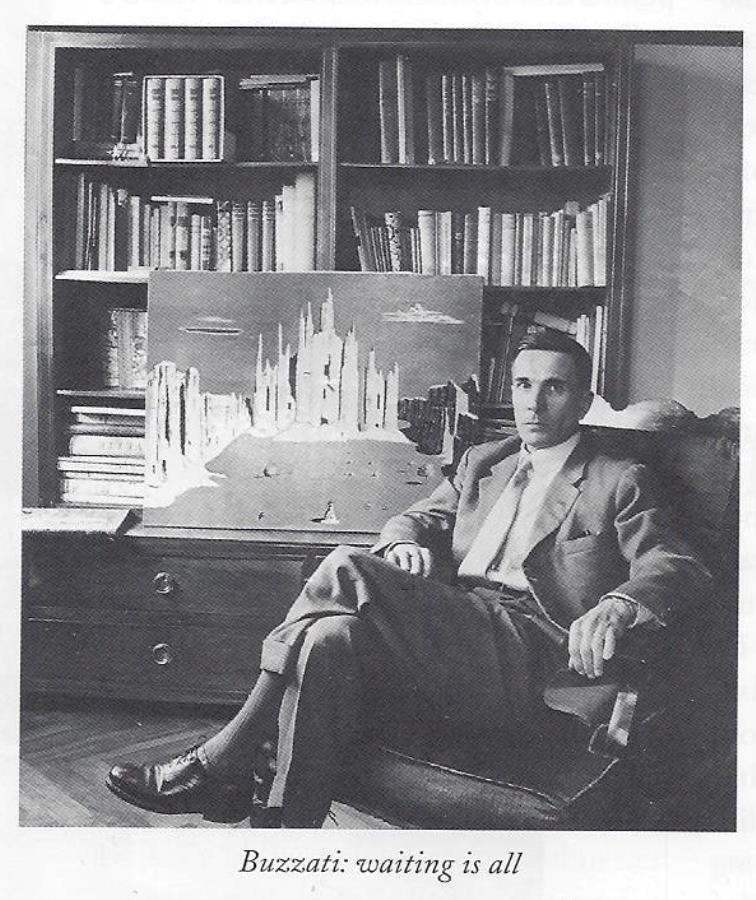

JOANNA KAVENNA
Dino Buzzati &
'The Tartar Steppe'
https://literaryreview.co.uk/dino-buzzati-the-tartar-steppe
JOANNA KAVENNA
Dino Buzzati & 'The Tartar Steppe'
FROM THE SIBILLINI
'I was working at Corriere delia Sera in those days.
It often occurred to me that that routine would never end and so
would eat up my whole life quite pointlessly.' This cheerful sentiment
comes from Dino Buzzati, the Italian novelist and journalist. In the
Sibillini Mountains of Italy, I have been rereading Buzzati's Il deserto
dei Tartari ('The Desert of the Tartars', translated into English as
The Tartar Steppe). Written in 1938, this prescient and disturbing novel
relays the trials of Giovanni Drogo, a young soldier who is posted to
a remote mountain outpost, Fort Bastiani, where he must watch for the
Tartars to invade. Each day, Drogo waits, scouring the barren landscape
for a glimpse of his enemy. 'To right and left the mountains stretched
out as far as the eye could see in precipitous and apparently inaccessible
ranges ... from the invisible north a thick cloud was rising over the
glacis and imperturbably the sentries walked up and down under the high
sun.' Time passes. Each day Drogo paces the ramparts and, each day,
nothing happens. After several decades, Drogo becomes ill and is dismissed
from the fort. He dies alone, in a little inn, on the eve of the long-awaited
invasion. This might sound like the most depressing novel in literary
his- tory. Yet, as with Kafka or Beckett, Buzzati derives bleak comedy
from uncertainty, suffering and even death. In the Northern Sibillini, clouds
obscure the highest peaks, evening shadows seep across the lowlands. These
mountains are named after an allegedly once-resident sibyl, prophetic denizen
of a magical kingdom that could only be reached through a cave. There is
also a story that Pontius Pilate, after being sentenced to death by Emperor
Tiberius, was stuffed into a sack and dragged into a lake - now called Lake
Pilate. Wolves and wildcats roam the tangled forests; goshawks, eagles and
peregrine falcons soar across dappled skies. Mountains were a retreat for
Buzzati; he walked in the Dolomites whenever he could. In fiction, mountains
are places of enchantment, as Hans Castorp discovers in The Magic Mountain,
when he goes to an Alpine sanatorium for a brief visit and stays for a mythical
seven years. Equally, Drogo tries to leave Fort Bastiani, but is drawn back
to its dreamlike repetitions. As Buzzati knew, mountains are beautiful and
terrible at the same time: 'ice and stones speaking a strange language',
the 'desolation of an uninhabited waste'. As this article goes to press,
the volcanic Apennines have been struck by another devastating earthquake.
During the First World War, the bloody carnage even reached the Dolomites;
battles were fought in treacherous storms at high altitude. More than a million
were killed, on both sides, and more than two million were injured. In The
Black Swan, Nassim Nicholas Taleb cites Giovanni Drogo as a significant exception
to his theory of the significant exception. Drogo is told from the start
that Fort Bastiani is never attacked. Yet he has been enchanted and so he
awaits the unexpected, even urgently. For Taleb, Drogo is blessed with 'the
cathartic simplicity of a single purpose'. He is saved from futility and
absurdism and, in the end, it turns out that he was right. Drogo has been
enchanted and yet he is more awake than everyone else; he does not believe
that things will continue as they are, forever. Drogo fully inhabits
his grinding routine; each day is imbued with significance because it
might be the day when the Tartars attack. Because of this, he surrenders
to the ineluctable passing of years, even with equanimity: 'Meanwhile
time was slipping past, beating life out silently and with ever-increasing
speed; there is no time to halt even for a second, not even for a glance
behind. "Stop, stop," one feels like crying, but then one sees it is
useless ... Then there was the secret hope whereby Drogo looked forward
to what should be the best part of his life. In order to nurse it he
sacrificed month upon month without a thought.' Buzzati, like Mann and
like Woolf, under-stands that the waiting is all, and all that matters
is how you wait. And there is no grail, however enchanted your mountain,
just the mesmerizing, tortuous quest. Camus argued that novels are intrinsically
philosophical. In novels people live (and wait). They engage, as we all
must, in this weird experiment of being alive, just once, and they ask
what it means, this exquisite madness, glory and peril. As I stand in
the forests at night, watching meteors burning out in the atmosphere,
I understand that the stars represent the past, that they are illuminated
ghosts of a former reality. I am looking at Time, which looks like Space.
Faced with such perplexities, you might run screaming from the olive groves,
the mountain, the fortress. Or you might clutch at
some consoling single purpose. We are all as doomed as Drogo, and
yet we get up each day, we adopt our routines, we continue. We expect
and hope. There is a further irony intrinsic to The Tartar Steppe,
the most hopeful irony of all: Buzzati converted his daily grind, the
tedious regime that was devouring his life, into a beautiful and elusive
work of art.
Literary Review, Sept 2016
Gấu đọc Tô Hoài
rất sớm, và giấc mộng, sẽ có ngày tới được
nước Nam Kỳ, là do đọc ông mà có.
Khi còn ở xứ Bắc, mỗi lần đói, mỗi
lần rét, mỗi lần ăn miếng ăn, ăn thêm một câu
nói, là giấc mơ sẽ có ngày tới được
nước Nam Kỳ lại trỗi dậy.
Cho tới khi tới được nước Nam Kỳ.
Tưởng thoả mãn, mà thoả mãn
thực, nhưng, oái oăm thay, một nước Nam Kỳ khác
xuất hiện!
Lúc thì ở nơi BHD, và cái
nước Nam Kỳ lần này, khốn nạn thay, lại chính là
cái xứ Bắc Kỳ mà Gấu đã bỏ chạy!
Và ở trong bao nhiêu nước Nam Kỳ khác,
do đọc sách mà có!
Trong những “nước Nam Kỳ” do đọc sách những
ngày mới lớn mà có đó, có “Sa
mạc Tartares” của Dino Buzzati.
Mới đây, đọc A Reading
Diary, Alberto Manguel có viết về cuốn này, ông
nói là đọc nó vào thời mới lớn, cũng
như Gấu, đọc nó vào lúc mới lớn, tại nưóc
Nam Kỳ, tại Sài Gòn, khi có BHD.
*
Gấu mua cuốn A Reading Diary
Nhật Ký Đọc, cũng lâu rồi. Quăng vào một xó,
rồi quên luôn, cho tới khi dọn nhà, nhặt nó
lên…
Buzzati notes that, from the
very beginning of his writing career, people heard Kafka's echoes
in his work. As a consequence, he said, he felt not an inferiority
complex but "an annoyance complex." And as a result, he lost any desire
to read Kafka's work
Buzzati and Kafka: Perhaps it
is not only impossible to achieve justice. Perhaps we have even
made it impossible for a just man to persevere in seeking justice.
Buzzati cho biết, vào
lúc khởi nghiệp, người ta nói, có mùi
Kafka ở trong những gì ông viết ra. Nghe vậy, ông
cảm thấy, không phải mặc cảm tự ti, mà là bực
bội. Và sau cùng, ông mất cái thú
đọc Kafka!
Buzzati và Kafka:
Có lẽ không phải
chỉ là bất khả, cái chuyện đi tìm công
lý.
Nhưng bất khả còn là
vì: Chúng ta làm cho nó trở thành
bất khả, để chỉ cho có một thằng cha, cố đấm ăn sôi,
cứ đâm sầm vào cái chuyện tìm công
lý!
"Không con, thì
ai bi giờ hả mẹ?"
[Gửi NTT. NQT]
Gấu đọc Sa mạc Tác Ta
[Tartar là một giống dân], bản tiếng Pháp,
và không hiểu làm sao, bị nó ám
ảnh hoài, câu chuyện một anh sĩ quan, ra trường, được
phái tới một đồn biên xa lắc, phòng ngừa sự tấn
công của dân Tác Ta từ phía sa mạc phía
trước. Chờ hoài chờ huỷ, tới khi già khụ, ốm yếu, hom hem,
sắp đi, thì nghe tin cuộc tấn công sắp sửa xẩy ra....
Đúng cái air Kafka!
Trên tờ Bách Khoa
ngày nào còn Sài Gòn có
đăng truyện ngắn K. của Buzatti. Đây là câu chuyện
một anh chàng, sinh ra là bị lời nguyền, đừng đi biển,
đi biển là sẽ gặp con quái vật K, nó chỉ chờ gặp
mày để ăn thịt. Thế là anh chàng chẳng bao giờ
dám đi biển, cho đến khi già cằn, sắp đi, bèn tự
bảo mình, giờ này mà còn sợ gì nữa.
Thế là bèn ra Vũng
Tầu, thuê thuyền đi một tua, và quả là gặp con K thật.
Con quái vật cũng già khòm, sắp đi, nó thều thào
bảo, tao có viên ngọc ước quí, chờ gặp mày để
trao, nó đây này...
Ui chao Gấu lại nhớ đến Big Minh,
thều thào, tao chờ chúng mày để bàn giao viên
ngọc quí Miền Nam, và con K bèn biểu, tao lấy rồi, cám
ơn lòng tốt của mày!
Doãn Quốc Sĩ, có
chuyện Sợ Lửa, tương tự. Đây là câu chuyện một
anh chàng sinh ra đời là bị thầy bói nguyền
chớ có đến gần lửa. Thế rồi, một ngày đẹp trời, thèm
lửa quá, bèn đến gần nó, và ngộ ra một
điều, sao mà nó đẹp đến như thế.
Thế là về, và chết!
Gấu cũng thấy lửa rồi. Và
đang sửa soạn về...
Sự thực, Gấu không gặp
lửa, mà gặp… xác của Gấu, trôi lều bều trên
dòng Mékong, lần tá túc chùa
Long Vân, Parksé, chờ vuợt sông qua trại tị nạn
Thái Lan. Gấu đã kể chuyện này nhiều lần rồi.
Như nhiều cuốn sách yêu
thích, cuốn của Buzzati tôi đọc thuở mới lớn, câu
chuyện của Drogo, một sĩ quan trẻ được phái đi trấn giữ“Đồn
Xa”, ở tận mép bờ sa mạc Tác Ta, và năm này
qua tháng nọ, anh bị ám ảnh bởi cái chuyện là,
phải chứng tỏ mình là một tên lính xứng
đáng trong cuộc chiến đấu chưa hề xẩy ra, với rợ Tác
Ta.
Đồn Xa quả là một tiền
đồn heo hắt. Và chẳng giống ai. Nó có một
hệ thống rắc rối, của những mật ngữ dùng để kiểm tra, khi vô
cũng như khi ra.
Tôi [Alberto Manguel] nhớ
là đã từng cảm thấy khiếp sợ [và lúc này
đang bị] đẩy vào trong một cơn ác mộng của Drogo,
gồm đầy những bí mật của những bí mật, của những mật
mã, được trao cho, chỉ một vị sĩ quan chỉ huy, và vị
này có thể bị mất trí nhớ, hoặc quên mẹ
mất đường. Một mạng nhện, của những luật lệ phi lý, sự đe dọa
của một kẻ thù vô hình, chúng âm vang,
vọng đi vọng lại, rền rền rĩ rĩ, tất cả những nguồn cơn ai oán,
những bực bội không lối thoát, vô hy vọng, của một
thời mới lớn, và bây giờ, của một người đàn ông
đi quá nửa đời người.
*
Ui chao, đọc một cái là
nhớ ra, đúng rồi, đúng rồi, đúng là tình
cảnh của… Gấu, những ngày ở Sài Gòn!
Nào thử so sánh:
... Bao nhiêu năm, quãng
đời vẫn bám cứng. Những giây phút tuy chết
chóc, tuy kinh hoàng nhưng sao vẫn có vẻ chi
quyến rũ, chi kỳ cục. Cảm giác của một người tuy biết rằng
có thể chết bất cứ lúc nào nhưng vẫn loay hoay,
cựa quậy: Gã chuyên viên trẻ lui cui chỉnh tín
hiệu máy chuyển hình, như đây là tấm cuối
cùng, đặc biệt nhất, chất lượng nhất. Gã phóng
viên người Mẽo cao như cây sào, chẳng biết một chút
gì về máy móc, kỹ thuật, nhưng cũng chăm chú
theo dõi, như để nhắc nhở nếu có gì sai sót,
và không quên lom khom, cố thu gọn cái thân
xác kềnh càng sao cho bằng gã chuyên viên
người Việt, ý như vậy là đồng đều nếu chẳng may có
một viên đạn bất ngờ. Cả hai cùng lúc nhoài
người xuống sàn nhà, có khi còn trước cả
một tiếng nổ lớn ngay phía dưới chân building, hay ở Đài
Phát Thanh liền bên. Những lúc tiếng súng
tạm ngưng, trong khi chờ Tokyo xác nhận chất lượng buổi chuyển
hình, và quyết định tấm nào cần lập lại, cả hai chăm
chú theo dõi biến động trên bản tin AP, UPI qua máy
viễn ký, có cảm giác vừa ở bên trong vừa bên
ngoài những giây phút nóng bỏng, và
chiến tranh cho đến lúc này, vẫn còn thuộc về những
kẻ kém may mắn hơn mình.
... Đêm, vẫn đêm
đêm, như hồn ma cố tìm cách nhập xác,
như tên trộm muốn đánh cắp thời gian đã mất,
mi một mình trở lại Sài-gòn, quán Cái
Chùa. Những buổi sáng ghé 19 Ngô Đức Kế,
nếu không có Radiophoto cần chuyển, thay vì như
người ta trở về nhà chở vợ đi ăn sáng rồi đưa tới sở làm,
mi chạy xe dọc đường Tự Do, ngó con phố bắt đầu một ngày
rồi ghé quán Cái Chùa làm người
khách thứ nhất, chẳng cần ra dấu, người bồi bàn tự động
mang tới ly cà phê sữa, chiếc bánh croissant, và
mi ngồi trầm ngâm tưởng tượng cô bạn chắc giờ nầy đang ngó
xuống trang sách, cuốn tập tại giảng đường Văn Khoa khi đó
đã chuyển về đường Cường Để, cũng gần nơi làm việc, tự
nhủ thầm buổi trưa có nên giả đò ghé qua, tuy
vẫn ghi danh chứng chỉ Triết Học Tây Phương nhưng gặp ông
thầy quá hắc ám đành chẳng bao giờ tới Đại Học,
nếu có chăng thì cũng chỉ lảng vảng ở khu chứng chỉ Việt
Hán. Rồi lũ bạn rảnh rỗi cũng dần dần tới đủ... Lại vẫn những lời
châm chọc, khích bác lẫn nhau, đó cũng là
một cách che giấu nỗi sợ, nếu đủ tay thì lại kéo
tới nhà Nguyễn Đình Toàn làm canh xì.
…. Những ngày Mậu Thân
căng thẳng, Đại Học đóng cửa, cô bạn về quê,
nỗi nhớ bám riết vào da thịt thay cho cơn bàng
hoàng khi cận kề cái chết theo từng cơn hấp hối của
thành phố cùng với tiếng hỏa tiễn réo ngang đầu.
Trong những giờ phút lặng câm nhìn bóng mình
run rẩy cùng với những thảm bom B52 rải chung quanh thành
phố, trong lúc cảm thấy còn sống sót, vẫn thường
tự hỏi, phải yêu thương cô bạn một cách bình
thường, giản dị như thế nào cho cân xứng với cuộc sống
thảm thương như vậy...
...
Đau khổ nhất là những ngày cô bạn đi lấy
chồng. Vẫn những ngày tháng ngây ngô bên
mớ máy móc, nghe tiếng người nói xôn xao
từ những thành phố xa lạ phía bên ngoài
địa ngục, qua đường dây điện thoại viễn liên, mơ màng
tưởng tượng chiến tranh rồi sẽ qua đi, cô bạn rồi sẽ hạnh phúc,
hạnh phúc... Hết còn nỗi ngây thơ tưởng mình
ở trên cao, trên tận đỉnh cồn, thấy hết, hiểu hết. Vẫn
những đêm dài điên cuồng đuổi theo bóng mình
sợ hãi trốn sâu dưới đáy địa ngục, trong những
hang cùng ngõ hẻm thành phố, chạy hoài,
chạy hoài, không còn nơi để ghé, không
còn chỗ để ngừng... Chỉ mong gặp lại những hồn ma quen, những
gã phóng viên người Nhật, người Mỹ, hai gã
chuyên viên Phi Luật Tân, để hỏi coi họ có còn
luyến tiếc đất nước này hay không, chỉ muốn la lớn, tôi
yêu em, tôi yêu em, cho cả thế giới, cả loài
người đều nghe...
Cho người chết gật đầu thông
cảm.
Cõi Khác
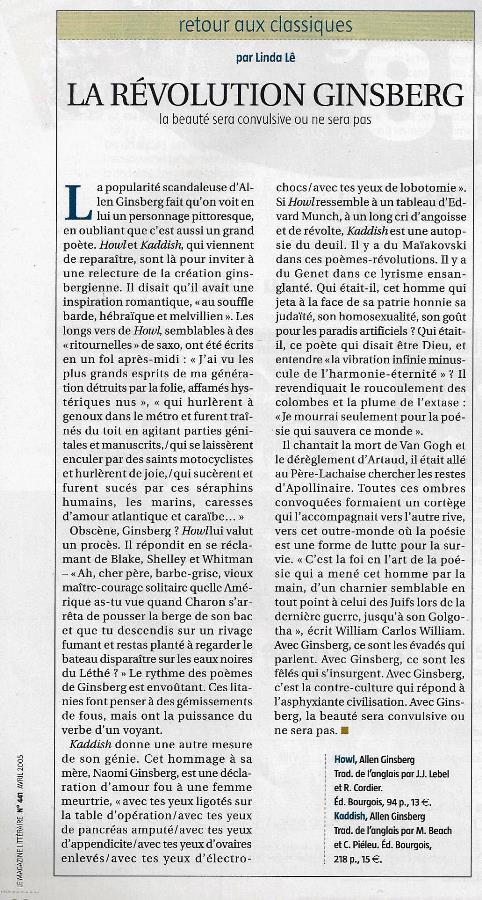
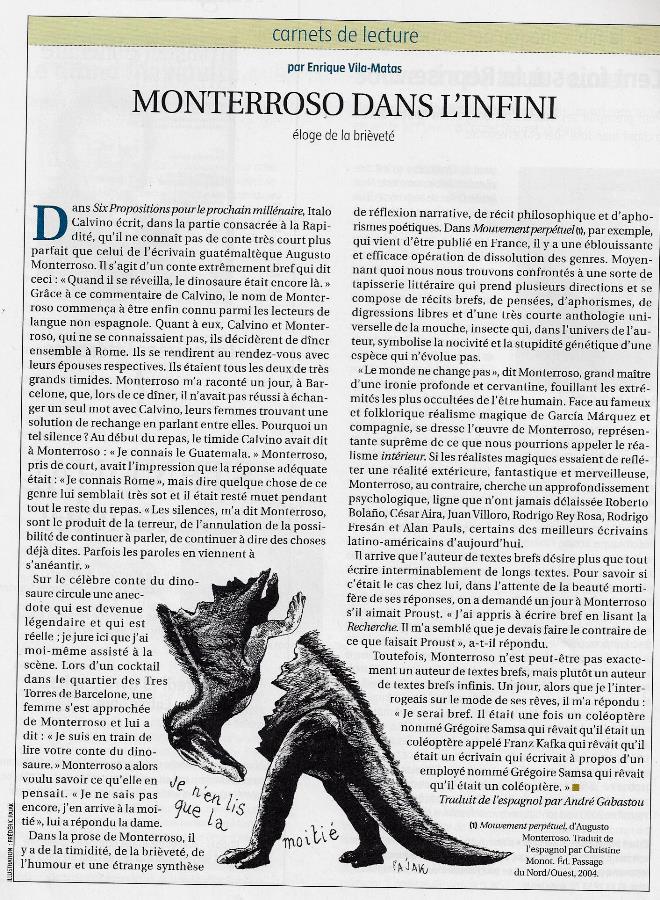 ML Avril 2005
ML Avril 2005
Mit Critic
A Different Kafka
by John Banville
Note: Tay này, John Banville , nhà văn số 1, phê
bình, điểm sách cũng số 1.
Phê bình gia Mít, ít khi viết
điểm sách, vì lười đọc, và đọc, cũng đếch biết
viết 1 bài điểm sách cho ra hồn!
Đó là sự thực.
Thử đếm coi, Thầy Kuốc điểm sách
của ai, khui ra được nhà văn nào. Mũi lõ cũng không,
mà mũi tẹt lại càng không?
Thầy Phúc thì cũng rứa.
Nữ phê bình gia viết bằng tiếng Tẩy, DCT,
cũng thế.
TK y chang.
GCC ư? Nhiều lắm.
Bảo Ninh, thí dụ, Gấu phát giác
ra, ở hải ngoại, và cái ông BN mà Gấu
viết, cũng khác ông ở trong nước.
Vầng Trăng Góa, Gấu chỉ ra.
Nhà dzăng đang lú lên,
Bà Tám nào đó, cũng GCC phát giác!
(1)
Hà, hà!
Miêng, Mai Ninh, Trần Thanh Hà, Trần Thị
NgH... Gấu đều trân trọng viết về họ.
(1)
Ông cũng
chả có công mẹ gì trong cái vụ
bà Tám ló ra ló vào
văn chương này cả. Lý do là trang của
ông chỉ một mình ông tự sướng. Bà
Tám thì gửi bài cho nhiều nơi khác
như Da Màu, Việt Văn Mới (newvietart.org), Thư Quán
Bản Thảo, Sài Gòn Nhỏ, và nhiều nơi khác.
Như vậy bà Tám được nhiều nơi khác giới
thiệu cùng một lúc, mà ông nào
có phải là nhà phê bình và
là chủ bút một tờ báo nào đâu
mà ông bảo là ông xúc bà
Tám lên.
LB
Tên LB
này quả là 1 độc giả hết sức “cần mẫn”
của TV.
Trong 1 dịp tự
hào về cái chiều dài 20 năm làm
trang TV, Gấu quả có khoe, đã khám
phá ra khá nhiều tác giả, trong
có vị chủ trang blog Bà Tám nói
trên, và Gấu thú thực, rất hãnh
diện về chuyện này.
Nhưng cái
sự nổi tiếng của Bà Tám, không
có Gấu ở trỏng.
Thú thực
cái trò có bài đăng búa
xua ở những nơi như trên, chỉ làm bẩn mắt
độc giả, vì, vừa mới đọc ở đây, lại phải đọc ở
kia, hay đã khổ, mà dở thì thực là
khốn nạn.
Steiner, trong
1 lần xoa đầu Sartre, lôi đúng câu
mà Gấu trích dẫn, trong bài viết
về LMH, “Bếp Lửa” trong văn chương:
Sartre (Situations,
I) nhắc tới "ý hướng tính", coi đây
là tư tưởng cơ bản của hiện tượng luận: "Husserl
đã tái tạo dựng (réinstaller) sự
ghê rợn và sự quyến rũ vào trong những
sự vật. Ông tái tạo thế giới của những nghệ sĩ
và của những nhà tiên tri: Ghê sợ,
thù nghịch, nguy hiểm trùng trùng, với
những bến cảng, nơi trú ẩn của ân sủng và
tình yêu."
LMH. Lần đầu
tiên vợ chồng Gấu gặp gỡ gia đình, trong
chuyến ngao du Paris cuối thiên niên, Bà
nhắc tới bài biết của Gấu đăng trên Văn Học,
và nói, làm sao mà ông lại
kiếm ra đúng câu văn cháu giấu thật kỹ ở trong
đó, không hề tin rằng có người tìm
ra nó, để mà khen?
Cũng thế, là
với Bà Tám. Câu văn mà
Gấu, đọc 1 phát, đúng là bị chấn động
khủng khiếp, nhưng khác câu của LMH, ai cũng
đọc nó, không thể bỏ qua, nhưng thực sự, chưa
đọc:
Trước khi thấy
biển tôi thấy cái nghĩa địa nhỏ có
chừng chục ngôi mộ của người tị nạn.
Bà Tám
này, đúng ra là rất sợ nổi
tiếng, theo Gấu.
Có lần
chính Bà thú nhận, tôi sợ
đau, nên không dám đụng vô những
chỗ đau.
Và mỗi
lần lỡ đụng vô, là có 1 bản văn
thật được!
GCC mới đọc 1
truyện, đúng thứ đó.
Mời bạn nghe truyện ngắn Màu
Mắt Chưa Quên qua giọng đọc của
Ngọc Phụng. Cám ơn chị Ngọc Phụng và
Gió O. Nhắn nhỏ: Truyện hoàn toàn
là tưởng tượng.
https://chuyenbangquo.wordpress.com/2016/09/06/mau-mat-chua-quen/
Thời gian viết
cho Văn Học của NMG, Gấu được Thấm Vân gửi cho mấy tác
phẩm của Bà, chắc cũng có ý nhờ đi
1 đường điểm sách.
Thú thực, lúc
đó, Gấu không đọc được, do cái
khẩu vị của mình không hợp.
Phải đến những ngày
mới đây, tò mò theo dõi,
khi được Bà yêu cầu/ra lệnh, ta cho phép
mi là bạn FB của ta, thì mới nhận ra cái
phần “ngộ nhận” của Gấu về chuyện sex của Thấm Vân: Tác
giả cũng có “giấu”, khi đụng vô nỗi đau này.
Quái “1 phát”,
là đây chính là nội dung
“thư toà soạn” của tờ Văn Học Pháp, Le Magazine
Littéraire, số đặc biệt về Lò Thiêu, lấy
từ 1 câu của Melville, “Tôi chọn đừng”.
Đây cũng là
câu TTT viết, khi “ngừng viết”, sau khi ra khỏi
Trại Tù VC, qua 1 ấn bản khác của nó:
Tôi tự hỏi khi nào
tôi lại-viết?
Truyện ngắn của HH, theo
tôi, đúng là thứ "tôi chọn
đừng", như vậy, khi viết về nỗi đau/hạnh phúc:
Tôi không tiến
tới dù chưa có người đàn ông
nào làm tôi cơ thể thèm muốn đến
thế. Tôi nhớ cái mùi đàn ông
của anh đến ngây ngất. Tim tôi vẫn đập rộn ràng
khi nghĩ đến buổi sáng dưới chân cầu. Scott thích
mái tóc dài, dáng dấp nhỏ nhắn,
nước da màu mật của tôi. Anh không ngần ngại
nói với tôi điều này và ngạc nhiên
khi tôi nói thật là tôi vẫn thường mang mặc
cảm xấu xí. Màu da của anh và màu da
của tôi thường làm tôi liên tưởng đến cà
phê sữa và kem vanilla hay con ong bầu đậu trên
hoa lan trắng. Anh thường bảo, “mỗi sáng em phải soi gương và
tự bảo mình là Scott thấy em rất là xinh xắn.”
Tôi nói xa xôi, “quan hệ làm việc không
nên để lẫn tình cảm cá nhân. Những người
làm việc chung dễ ghét nhau vì tranh tài
giành chức giành quyền, tình cảm riêng tư
thường bị tổn thương và chết sớm.” Anh hay nói đùa
là tôi là hiện thân của sắt (thành
cầu) và đá (chân cầu). Anh nói nếu vợ anh
làm lương cao hơn, anh tình nguyện ở nhà nấu
cơm và viết văn. “Nếu em trở thành xếp của tôi, tôi
sẵn sàng nâng xếp lên khỏi đầu bằng hai cánh
tay tôi.” Tôi dùng một ẩn dụ của dân kỹ thuật
trả lời, “thép này đã từng đổ biết bao nhiêu
mồ hôi đấy nhé!”
Điều mà tôi
muốn nói nhưng giữ lại lời là, tôi
là một phiến đá biết sầu tư!
Tên số 2, tên Phén, thi sĩ LH….
Cả 1 băng văn học này, hình như đều được gia đình
của chúng bảo lãnh qua Xứ Lạnh. Chúng chưa
từng biết cái nhục ở Trại Tị Nạn, vừa lo bị trả về, vừa lo
không nước nào nhận, vừa đói, vừa nhục, đủ thứ.
Chúng tưởng vô xứ người dễ lắm. Không tên
nào thở ra được 1 câu cám ơn cái xứ sở đã
nhận chúng cả. Tên số 2 than thở, ở xứ lạnh tôi
chỉ có bạn mũi lõ, không có 1 tên
bạn mũi tẹt nào. Nó đâu có coi cái
băng đảng văn học Montreal là thằng nào thằng nào
đâu. Được dịp là tếch đi Mẽo, làm chủ bộ lạc Cờ Lăng,
làm Thái Thượng Hoàng cơ sở Người Vịt, cực kỳ khốn
nạn. Lần đầu Gấu đọc hắn, là 1 bài viết ngắn, trên
tờ Thế Kỷ 21, hình như cũng đã viết ra rồi, một buổi sang
hắn vô tòa báo, nhấp nhấp ly cà phê,
phán, Sài Gòn có người chết đói rồi
đấy, ngay bên hông Chợ Bến Thành.
Jean
Améry
Torture, writes Améry, has "an indelible character". Whoever was
tortured, stays tortured.
Sebald: Chống Lại Sự Không Thể Đảo
Ngược: Về Jean Améry, trong Lịch sử tự nhiên về
huỷ diệt [Against the Irreversible. On Jean Améry.
On the natural history of destruction, nhà xb Vintage
Canada].
Améry
viết, tra tấn có cái tính quái
dị, không thể tẩy xoá đi được, là: Ai đã
từng bị tra tấn, là suốt đời bị tra tấn.
Câu này, theo Gấu tôi,
đọc [đảo] ngược lại, vẫn có nghĩa.
Rằng, kẻ tra tấn, là cứ thèm
tra tấn suốt đời!
Jean Améry viết về Sầu
Xa Xứ:
Cái sầu xa xứ thứ thiệt,
le vrai mal du pays, le Hauptwehe,
“nỗi nhức nhối số 1 “la douleur capitale”, nếu tôi được
phép mượn từ của Thomas Mann, thì khác,
cực khác về bản chất, so với những gì tôi viết
ở trên, và nó chỉ ngưng, khi bạn chỉ còn
bạn với bạn. Vào lúc đó, đếch có hát
hỏng Thuyền Viễn Xứ cái con mẹ gì nữa, cũng chẳng
có gợi nhớ những đồng ruộng Mít đã mất, và
bạn cũng không vãi ra những giọt nước mắt đồng lõa.
Sầu Xa Xứ không phải là tự an ủi, mà là
tự huỷ. Le vrai mal du pays ce n’était pas l’autocompassion,
mais l’autodestruction.

The destruction of someone's
native land is as one with that person's destruction. Séparation
becomes déchirure [a rendingl, and there can be no
new homeland. "Home is the land of one's childhood and youth.
Whoever has lost it remains lost himself, even if he has learned
not to stumble about in the foreign country as if he were drunk."
The ‘mal du pays’ to which Améry confesses, although he wants
no more to do with that particular pays—in this connection he quotes
a dialect maxim, "In a Wirthaus, aus dem ma aussigschmissn worn is,
geht ma nimmer eini" ("When you've been thrown out of an inn you never
go back")—is, as Cioran commented, one of the most persistent symptoms
of our yearning for security. "Toute nostalgie," he writes, "est
un dépassement du présent. Même sous la forme
du regret, elle prend un caractère dynamique: on veut forcer
le passé, agir rétroactivement, protester contre
l'irréversible." To that extent, Améry's homesickness
was of course in line with a wish to revise history.
Sebald viết về Jean Améry:
Chống Bất Phản Hồi: Against
The Irreversible.
[Sự huỷ diệt quê nhà
của ai đó thì là một với sự huỷ diệt
chính ai đó. Chia lìa là tan hoang,
là rách nát, và chẳng thể nào
có quê mới, nhà mới. 'Nhà là mảnh
đất thời thơ ấu và trai trẻ của một con người. Bất cứ ai mất
nó, là tiêu táng thòng, là
ô hô ai tai, chính bất cứ ai đó.... '
Cái gọi là 'sầu nhớ xứ', Améry thú
nhận, ông chẳng muốn sầu với cái xứ sở đặc biệt này
- ông dùng một phương ngữ nói giùm: 'Khi
bạn bị người ta đá đít ra khỏi quán, thì
đừng có bao giờ vác cái mặt mo trở lại' - thì,
như Cioran phán, là một trong những triệu chứng dai
dẳng nhất của chúng ta, chỉ để mong có được sự yên
tâm, không còn sợ nửa đêm có thằng
cha công an gõ cửa lôi đi biệt tích. 'Tất
cả mọi hoài nhớ', ông viết, 'là một sự vượt thoát
cái hiện tại. Ngay cả dưới hình dạng của sự luyến tiếc,
nó vẫn có cái gì hung hăng ở trong đó:
người ta muốn thọi thật mạnh quá khứ, muốn hành động
theo kiểu phản hồi, muốn chống cự lại sự bất phản hồi'. Tới mức độ đó,
tâm trạng nhớ nhà của Améry, hiển nhiên,
cùng một dòng với ước muốn xem xét lại lịch sử].
L'homme a des endroits de son
pauvre coeur qui n'existent pas encore et où la douleur
entre afin qu'ils soient.
Trái tim đáng thương của
con người có những vùng chưa hề có, cho
đến khi đau thương tiến vào. Và tạo ra chúng.
Léon Bloy.
W.G. Sebald trích dẫn,
làm đề từ cho bài viết "Sự Hối Hận Của Con Tim:
Về Hồi Ức và Sự Độc Ác trong Tác Phẩm của
Peter Weiss", The Remorse of the Heart: On Memory and Cruelty in
the Works of Peter Weis, trong
"Lịch sử tự nhiên về huỷ diệt, On the natural history of
destruction", nhà xb Vintage Canada, Anthea Bell dịch, từ
tiếng Đức.
… Weiss to attend the Auschwitz trial
in Frankfurt. He may also have been motivated before the event
by the hope, never quite extinguished, "that every injury has its
equivalent
somewhere and can be truly compensated for, even if it be through
the pain of whoever inflicted the injury." This idea, which Nietzsche
thought was the basis of our sense of justice and which, he said,
"rests on a contractual relationship between creditor and debtor
as old as the concept of law itself”…
W.G.
Sebald: The Remorse of
the Heart.
On Memory and Cruelty in the Work
of Peter Weiss


ON JANUARY 23RD 1963 Kim Philby, a
British spy (and one-time contributor to The Economist) disappeared
following his defection to the Soviet Union. Nine months later “The Spy Who
Came in from the Cold” was published. It was the third novel from John le
Carré, the pseudonym for David John Moore Cornwell, an unknown 30-year-old
writer who was working as an intelligence officer in Bonn. It was fiction,
but the book seemed to reflect the larger reality of the cold war. It also
changed the face of the thriller genre forever.
The novel starts with Alec Leamas, a British
spy running the counter-intelligence unit in Berlin, waiting
for one of his agents to cross the border into the West. From the
very first sentence Mr le Carré’s writing is startling. Scenes
are illuminated as if by flashpoint. Characters are sketched in sharp,
quick phrases. Sentences are short and to the point. The plot is complex,
but never over-burdened with secondary characters or unnecessary
twists and turns.
Unlike the spy fiction of “James Bond”, Mr le
Carré’s world was gritty and distinctly dark. Leamas
drinks whisky by himself in badly-lit, barely-furnished rooms.
Women are muted and downtrodden, rather unlike the Technicolour
fantasies in silk stockings created by Ian Fleming. Far from being
glamorous, Mr le Carré’s spies are, in the words of Leamas,
“a squalid procession of vain fools, traitors…pansies, sadists and
drunkards, people who play cowboys and Indians to brighten their
rotten lives”.
This starkness made Mr le Carré’s world
of spooks and double-agents seem, as he writes in a new afterword
to the book, credible if not authentic. His writing owes much
to another master of the well-written thriller, Graham Greene,
and his 1938 masterpiece “Brighton Rock”. But the grittiness of “The
Spy Who Came in from the Cold” can be seen in other fiction that emerged
at the time. Five years earlier Allan Sillitoe wrote about working-class
life in Nottingham in “Saturday Night, Sunday Morning”, shocking readers
with descriptions of back-street abortions and evenings spent drinking
away dole money in the pub. In 1956 John Osborne wrote “Look Back
in Anger”, a realist play revolving around an angry, disaffected young
man. Mr Le Carré's novel spun a rather different yarn,
but it reflected a larger rift in post-war Britain and tapped into
a new way of writing about British life.
Soon after the novel was published, Mr le Carré
gave up his work with the foreign office to concentrate on writing.
Another 20 novels followed, including “A Delicate Truth”, released
earlier this year, and “Tinker, Tailor, Soldier, Spy”, his dazzling
1974 novel which was made into both a television series in 1979
and a film in 2011. All of these novels contain the
same taut language and keen eye for detail. But “The Spy Who Came
in from the Cold” remains his finest work. Nearly 30 years after the
fall of the Berlin wall, Mr le Carré’s novel still reverberates
with frustration at the impotence and deceit of the cold war. It is
a reminder, if ever one was needed, of how good fiction can question
the way that governments work.
Read more: Emma Hogan
considers what makes John le Carré's voice
distinctive for Intelligent Life
Ngày 23 Tháng Giêng,
1963, Kim Philby, gián điệp Anh (cộng tác viên một thời
cho Người Kinh Tế) chuồn qua Xô Viết. Chín tháng
sau, “Điệp Viên Từ Miền Lạnh" ra lò.
Giả tưởng, tất nhiên,
nhưng hình như nó còn thực hơn cả sự thực,
phản chiếu một thực tại rộng lớn hơn, cái gọi là Cuộc
Chiến Lạnh.
Bảnh hơn nữa, nó
xuất hiện, và sau đó, tiểu thuyết điệp viên
thay đổi hẳn, không còn như trước nữa.
Cuốn tiểu thuyết mở ra với cảnh Alec Leamas, điệp
viên Anh, phụ trách một đơn vị phản gián
ở Bá Linh, chờ 1 đệ tử, biệt kích ném qua
Đông Đức, bị cháy, và phải bỏ chạy, qua Trạm
kiểm soát Charlie. Ngay từ câu “rất” đầu tiên,
là cái viết của Le Carré, như 1 con rắn độc, thò
mỏ ra chơi 1 phát. Những xen, cảnh thì được chiếu sáng
theo kiểu cà giựt, bằng “flashpoint” [điểm hỏa, tia loé].
Nhân vật thì được phác họa bằng những câu
sắc, lẹ. Câu văn ngắn, điểm đúng huyệt. Tình tiết
rắc rối, không dễ mò, nhưng không bao giờ lâm
vô tình trạng quá tải, với những nhân vật
phụ, những cú xoắn thừa thãi, hay khúc ngoặt
không cần thiết.
Không giống tiểu
thuyết gián điệp “James Bond 007”, thế giới của le Carré
gân guốc, chai sạn, và rặt một màu u tối. Leamas
tự mình chuốc rượu mình, trong những căn phòng
tù mù, bàn ghế không phải không bày
mà gần như đếch có. Đờn bà thì câm,
nếu không muốn nói là nín khe, trầy trụa,
không phải thứ lụa là gấm vóc của Ian Fleming.
Xa vời cái thứ hoành tráng, say đắm, những điệp
viên của le Carré thì, bằng những từ của Leamas,
"tuồng ảo hóa đã bày ra đấy, toàn 1 lũ khùng
điên, ba trợn, phản bội, những tên sa đích, ghiền
rượu, những kẻ thắp sáng cuộc
đời thối rữa của chúng, bằng cách chơi trò cao
bồi vs mọi da đỏ”, “a squalid procession of vain fools, traitors…pansies,
sadists and drunkards, people who play cowboys and Indians to brighten
their rotten lives”.
Cái sự “trần thùi
lụi” này làm cho thế giới của những tên ma
quỉ, gián điệp hai mang của le Carré, nếu không
“xác thực”, thì “đáng tin”, như chính
ông viết, trong lời bạt, 50 năm sau khi nó được xb lần
thứ nhất. Cái viết ông mắc nợ rất nhiều từ 1 bậc thầy
khác, trong giới viết truyện điệp viên bảnh tỏng, Graham
Greene, và tác phẩm thần sầu của ông này,
“Brighton Rock”, xb năm 1938. Nhưng cái vẻ gân guốc, chai
sạn của “Tên Điệp Viên Từ Miền Lạnh” còn có
thể tìm thấy ở trong 1 giả tưởng khác, cũng xuất hiện vào
thời kỳ này. Năm năm trước đó, Allan Sillitoe viết về cuộc
sống của giai cấp lao động ở Nottingham, trong “Saturday Night, Sunday
Morning”, đã làm độc giả phát sốt với những miêu
tả những vụ phá thai ở những con phố sau, những chiều tối trải
qua trong những quán rượu, bằng tiền trợ cấp thất nghiệp. Vào
năm 1956, John Osborne viết “Nhìn lại với Cáu Giận”, “Look
Back in Anger”, một vở kịch hiện thực xoay quanh một anh chàng
trẻ tuổi cáu giận, bất mãn. Tiểu thuyết của le Carré
xoay quanh một chuyện khác, và nó phản chiếu một
vết nứt rạn rộng hơn, về thời hậu chiến Anh, và mở ra 1 đường viết
khác về cuộc sống ở xứ sở này.
Chẳng bao lâu sau khi
cuốn tiểu thuyết xb, le Carré nghỉ chơi với sở ngoại
giao và chỉ lo viết. Chừng 20 cuốn tiếp theo, kể cả cuốn
mới ra lò, đầu năm nay, 2013, “Một Sự Thực Thanh Nhã.”
Tất cả đều có thứ văn phong căng thẳng, và xoáy vào
chi tiết. Nhưng “Điệp viên từ Miền Lạnh” kể như bảnh nhất. Gần
30 năm sau khi Bức Tường Bá Linh sụp đổ, cuốn tiểu thuyết của
le Carré vẫn làm độc giả nhức nhối với Cuộc Chiến Lạnh,
sự bất lực và dối trá của nó. Cuốn tiểu thuyết
nhắc nhở chúng ta, 1 giả tưởng, thứ thật bảnh, có thể
tra hỏi, về chuyện, nhà nước làm ăn ra làm sao.
Prospero
*
Lần kỷ niệm lần thứ 100, năm
sinh của Greene [1904-1991], tác
phẩm của ông được xb toàn bộ [chắc thế], mỗi cuốn
kèm 1 bài biết thật bảnh.
Coetzee, trong tập tiểu luận của ông,
chọn Brighton Rock
[Introduction, ấn bản Penguin,
New York, 2004] Theo ông, đây là tác
phẩm nghiêm trọng đầu tiên của Greene, his first serious
novel, theo nghĩa, viết với những ý nghĩ nghiêm trọng.
GG rất mê mấy dòng thơ dưới đây:
Our interest's on the dangerous
edge of things.
The honest thief, the tender murderer,
The superstitious atheist.
[Nỗi quan hoài của chúng ta,
là vào sát na sợi tóc nguy hiểm,
ở mép bờ.
Tên trộm lương thiện, tên sát
nhân dịu dàng. kẻ vô thần mê tín].
Robert Browning,
« Bishop Blougram's Apology »
[Lời xin lỗi của Bishop Blougram]
Pamuk, cũng mê, bệ làm
đề từ cho cuốn Tuyết (1)
Theo GCC, le Carré thua Thầy của ông là
Graham Greene.
Ở GG, còn có thứ điệp
viên của Chúa, như cái tít bài
viết của Steiner về ông: God's Spies.
Steiner muốn nhắc tới cái tính Ky
Tô giáo ở nơi GGG.
Bài này cũng thật tuyệt.
PXA vs Graham Greene
A
Burn-Out Case
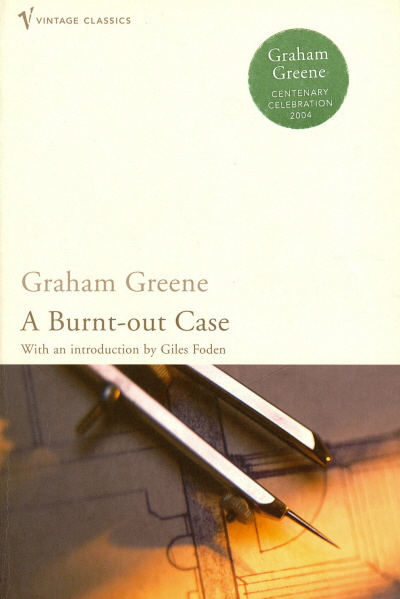
Trong một vài đường hướng,
đây là một cuốn sách tuyệt hảo đối với tôi
- mặc dù đề tài và sự quan tâm của nó,
thì rõ ràng thuộc về một cõi không
tuyệt hảo. Tôi đọc nó, lần đầu khi còn trẻ, dân
Ky tô, lớn lên ở Phi Châu, vào lúc
mà trại cùi còn phổ thông. Tôi còn
nhớ, lần viếng thăm cùng với mẹ tôi, một trại cùi
như thế, được mấy bà sơ chăm sóc, tại Ntakataka, nơi
hồ Lake Malawi. Và
tôi sợ đến mất vía bởi cái sự cử động dịu dàng
đến trở thành như không có, của những người cùi
bị bịnh ăn mất hết cánh tay, y hệt như được miêu tả ở
trong cuốn tiểu thuyết: “Deo Gratias gõ cửa. Querry nghe tiếng
cào cào cánh cửa của cái phần còn
lại của cánh tay. Một xô nước treo lủng lẳng ở cổ tay giống
như một cái áo khoác, treo ở cái núm
trong tủ áo”.
Vào cái lúc
tôi đọc nó, thì tôi đang phải chiến
đấu, như những người trẻ, hay già, phải chiến đấu, và
cũng không phải chỉ ở Phi Châu, với những đòi hỏi
về một niềm tin, khi mà niềm tin này thì thực là
"vô ích, vô hại, vô dụng, vô can…",
tại một nơi chốn, bất cứ một nơi chốn, bị tai ương, bệnh tật, và
cái chết nhòm nhỏ, đánh hơi, quấy rầy, không
phút nào nhả ra.
Thành thử câu chuyện
của Greene về một gã Querry, một tay kiến trúc sư
bảnh tỏng, tới xứ Công Gô, chỉ để chạy trốn, và
tìm ra một thế giới, và có thể, Chúa bắt
kịp anh ta đúng ở đó, một câu chuyện
như thế, làm tôi quan tâm.
Trong một vài đường hướng, cuốn tiểu thuyết
có thể được đọc như một cuộc điều tra, về niềm tin hậu-Ky
tô, một toan tính để nhìn coi xem, cái
gì dấy lên từ tro than của thế kỷ trứ danh về cái
sự độc ác của nó…
Ui
chao, bạn đọc có thể mô phỏng đoạn trên, và đi
một đường “bốc thúi” trang Tin Văn:
Trong
một vài đường hướng, trang Tin Văn có thể được
đọc như là "… niềm tin hậu chiến Mít, một cái
gì dấy lên từ tro than của cuộc chiến trứ danh vì
Cái Ác Bắc Kít của nó."!
Nhưng,
biết đâu đấy, Ky Tô giáo đang lâm đại
nạn tại nước Mít, là cũng ứng vào cuộc "điều
tra" này, của trang Tin Văn?
Nhờ cày hai job, vừa thằng thợ
máy Bưu Điện, vừa chuyên viên gửi hình
cho UPI, Gấu mua sách, đọc sách, như 1 ông
vua giữa Sài Gòn, cho bõ lúc đói
khổ. Đúng lúc đó Tẩy bày ra chương trình
IC, Thông tin & Văn hóa, bán sách
Tẩy ở Sài Gòn đồng giá với ở Pháp, Gấu
tha hồ đọc thứ sách bỏ túi, livre de poche, của Tẩy,
đời Gấu thay đổi hẳn, kể từ lúc đó. Đến ông anh
nhà thơ mà còn bảo thằng em, mi đưa ta đọc “Cours
ngôn ngữ”, Cours de linguistique générale, của Saussure,
coi sao! Rồi Lịch Sử và Ý Thức Giai Cấp của Lukacs. Rồi
Barthes, rồi Genette….. Ui chao, ra hải ngoại, lại tha hồ đọc, nhờ
Canada cho ăn tiền bịnh, khỏi đi làm, cứ ở nhà đọc sách,
làm trang Tin Văn.
Sách
& Báo & Thời Sự Văn
Học
Funny
Man by David Grossman
Funny man
How David Grossman draws laughter
from tears
A Horse Walks into a Bar. By
David Grossman. Translated by Jessica Cohen. Jonathan Cape; 197
pages; £14.99. To be published in America by Knopf in February
2017.
L' Appel Du Mort


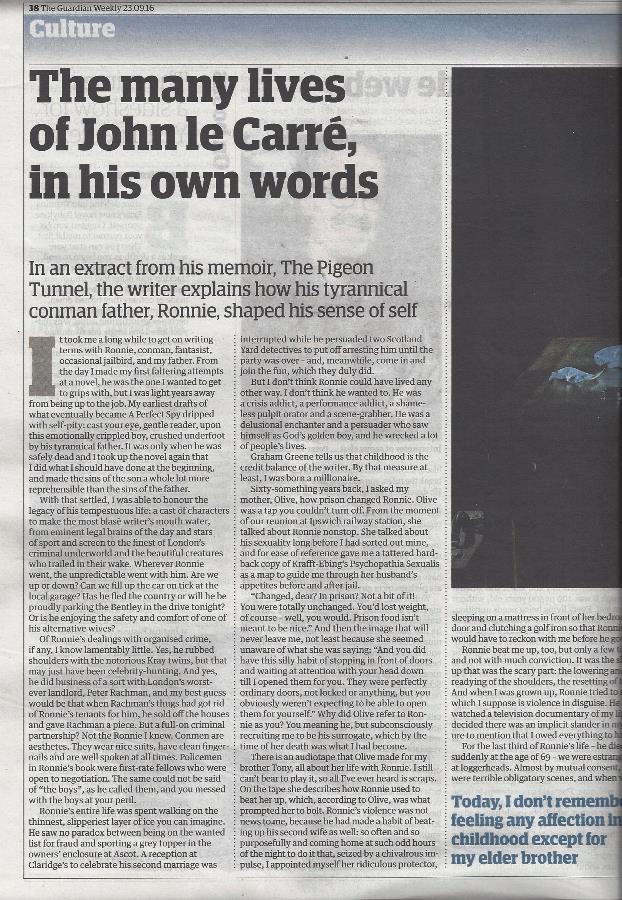
 Tin
Văn sẽ dịch tiếp Call For The Dead
Tin
Văn sẽ dịch tiếp Call For The Dead
Ấn bản mới, có cái intro, viết năm
1992, của tác giả.
Có thể nó
là cuốn đầu tiên của Le Carré, mà
Gấu đọc, khi Saigon tràn ngập sách Tẩy, thứ sách
bỏ túi, Livre de poche, qua chương trình IC, Thông
tin & Văn hóa, bán bằng giá ở Tẩy.
Đọc nhưng lại bỏ qua.
Phải đến khi vớ được cuốn Gián điệp đến từ miền đất lạnh, cũng
qua bản tiếng Tẩy, ở nhà sách Xuân Thu,
mới sững sờ.
Có thể nói,
lúc đó, chưa
tên Mít nào biết đến Le Carré. Phải
đến khi ở tù Bangkok, thì mới lại gặp nó,
qua bản tiếng Anh.
Với GCC, cuốn này
bảnh hơn nhiều, so với Gián điệp về từ miền đất lạnh, do hai đòn,
phải nói là của bậc thầy, trong nghề viết trinh
thám điệp viên nghẹt thở.
Đành phải mua,
vì mấy cuốn cũ Cô Út đem cho nhà thương,
làm từ thiện!
Bố đừng đọc sách
nữa, vui với cháu chẳng sướng hơn ư!
Tên Yankee mũi lõ
đầu tiên được Man Booker
Mardi 25 octobre à Londres,
Paul Beatty a remporté le Man Booker Prize pour son
roman Moi contre les Etats-Unis d’Amérique (Cambourakis),
satire sur la vie urbaine américaine. « Un livre
très dur à digérer », a confié
à la BBC l'auteur qui a empoché un chèque de
52000 livres, soit 59000 euros.
Âgé de 54 ans,
Paul Beatty est le premier écrivain américain
à être le lauréat de ce prix créé
en 1968, parmi les plus prestigieux en langue anglaise, au départ
réservé aux romanciers britanniques, irlandais
et ressortissants du Commonwealth. En effet, il a fallu attendre
2013 pour que son champ s’étende à l’ensemble
du monde anglophone.
Sách
& Báo & Thời Sự Văn Học
Mục này cũng bị trục trặc,
mới sửa lại
Anh Yankee mũi lõ
đầu tiên được Man Booker

Số Summer, 2016. Đã tính không
mua, nhưng bữa nay, cầm lên, thấy có cái
truyện ngắn của Phan Triều Hải, đành bệ về.
PTH: Forever on the Road.
Charles Waugh dịch từ tiếng Việt.
Có 1 câu, trong truyện được trích
dẫn, in chữ bự, theo kiểu chim mồi, lạ làm sao, làm
nhớ tới .. Thảo Trần:
Uyên đã thực sự rời bỏ
dòng sông để ra biển cả, không hề hiểu
được một điều: biển cả, bởi vì mênh mông,
cho nên thật khó mà nhận ra con đường ngày
ra đi, hay tìm thấy được, con đường trở về...
A leaf blown to the middle of the ocean has
no way to find its path back home. This is a terrible thing. Terrible
because when the leaf dies it knows how many regrets it has.
Một cái lá bị thổi ra giữa đại
dương không có cách chi tìm thấy
đường về lại nhà.
Thật khủng.
Khủng ư?
Bởi là vì khi cái lá
chết, nó biết, biết bao điều ân hận
Phan Trieu Hai (prose 132) was born
in 1969 in Quy Nhon, Vietnam. A 1998 participant in the International
Writing Program at the University of Iowa, he has published
five collections of short stories and was awarded best young writer
from Avant Garde newspaper in 2000.
Thương
gia PTH và nữ đồng nghiệp e thẹn của anh
chẳng
mắc mớ gì tới thực tại Việt Nam hiện nay.
Hardy never
said much about writing or the difficulties of it, or the moral difficulties
of it. Kafka said that a writer was doing the devil's work, writing
a wholly inadequate response to the brutishness of the world, and Hardy
increasingly felt this. It's not that it's an immoral activity or
an amoral one; it's just that the act of creation is something to which
the ordinary standards of human behavior do not apply. Hardy never liked
to be touched. He always walked in the road to avoid brushing against
people, and servants were told never to help him on with his coat and
just to drop the shawl around his shoulders and not tuck him in. The pen
had been his weapon in his struggle for life - and it had been a struggle.
The next poem is a dialogue with
the moon.
Hardy chẳng hề lầu bầu về viết, hay những khó khăn
về viết, hay khó khăn đạo đức của nó. Kafka phán
nhà văn làm, việc của quỉ, viết trọn một phúc đáp
không thoả đáng về tính thú vật của thế
giới, và Hardy càng ngày càng cảm thấy
đúng như thế. Nó không phải là 1 hành
động đạo đức, hay không đạo đức, mà cái hành
động sáng tạo có 1 điều gì mà lũ chó,
hay phường mắt trắng dã, không hiểu được, hay, không
áp dụng được.
Hardy đếch khoái ai đụng vô ông ta.
Cây viết là vũ khí của ông ta, trong cuộc
chiến đấu với đời – và quả có cuộc chiến đấu đó
thực.
Bài thơ sau đây là 1 cuộc lèm
bèm với trăng.
I Looked Up from My Writing
I looked up from my writing,
And gave a start to see,
As if rapt in my inditing,
The moon's full gaze on me.
Her meditative misty head
Was spectral in its air,
And I involuntarily said,
'What are you doing there?'
'Oh, I've been scanning pond and hole
And waterway hereabout
For the body of one with a sunken soul
Who has put his life-light out.
'Did you hear his frenzied tattle?
It was sorrow for his son
Who is slain in brutish battle,
Though he has injured none.
'And now I am curious to look
Into the blinkered mind
Of one who wants to write a book
In a world of such a kind.'
Her temper overwrought me,
And I edged to shun her view,
For I felt assured she thought me
One who should drown him too.


SOMETHING ABOUT WRITING
IF I'M not mistaken, Balzac,
for example, wrote novels nonstop until the moment that pulled
him out of the practice of his profession. Let us just try and
roughly imagine the extent of such a faculty for fantasizing. For
Dostoyevsky, as I believe I should know, it may have been the same.
After publishing a string of comparatively very worthwhile novellas,
Gottfried Keller entered the civil service, which for the next
fifteen years kept him from any further continuous literary work.
Adalbert Stifter, who possessed a lively talent for narrative like
an effervescent spring upon which he drew to his heart's content,
held a civil service post in education. Goethe, this giant, as his
life history displays, poeticized himself into, as it were, a courrlike,
that is, administrative position through works that soared into the
ranks of the imperishable. The existence of a writer is determined
by neither success nor acclaim, but rather depends on his desire or power
to tabulate anew again and again. Balzac apparently did this constantly,
Keller not, and undoubtedly there were reasons why he didn't. I believe
the causes as to why some continue to write on and on and others at
times cease their poetic endeavors are, under certain circumstances,
too subtle to be easily defined. External events are capable of giving
a career a certain direction; for example, the character or incidents
in the region of the heart may be worthy of serious consideration.
Some writers present their best work at the beginning of their strivings
only to succumb afterwards to their proclivity, bit by bit, to flatten
out, while we know of quite a few others who strike us as curious because
they happen to start inconspicuously or uncertainly, but nevertheless
precisely for this reason acquire in the course of time more certitude,
superior vision, etc. To which type one gives preference is left to necessity.
Every writer is an aggregate of two people, the citizen and the artist,
to which he, more or less fortunately, resigns himself.
(1930)
Note: Bài Bạt tuyệt
lắm. Tin Văn sẽ đi
liền. Tác giả bài viết, Tom Whalen nhìn
ra 1 Walser khác hẳn với cách nhìn chung,
coi ông cùng dòng với Musil, Broch hay Thomas
Mann, thí dụ.


LI-YOUNG LEE
Folding a Five-Cornered
Star
So the Corners Meet
This sadness I feel tonight is not my sadness.
Maybe it's my father's.
For having never been prized by his father.
For having never profited by his son.
This loneliness is Nobody's. Nobody's lonely
because Nobody was never born
and will never die.
This gloom is Someone Else's.
Someone Else is gloomy
because he's always someone else.
For so many years, I answered to a name,
and I can't say who answered.
Mister Know Nothing? Brother Inconsolable?
Sister Every Secret Thing? Anybody? Somebody?
Somebody thinks:
With death for a bedfellow,
how could thinking be anything but restless?
Somebody thinks: God, I turn my hand face
down
and You are You and I am me.
I turn my hand face up
and You are the I
and I am your Thee.
What happens when you turn
your hand?
Lord, remember me.
I was born in the City of Victory,
on a street called Jalan Industri, where
each morning, the man selling rice cakes
went by
pushing his cart, its little steamer whistling,
while at his waist, at the end of a red
string,
a little brass bell
shivered into a fine, steady seizure.
This sleeplessness is not my sleeplessness.
It must be the stars' insomnia.
And I am their earthbound descendant.
Someone, Anyone, No one, me, and Someone
Else.
Five in a bed, and none of us can sleep.
Five in one body, begotten, not made.
And the sorrow we bear together is none
of ours.
Maybe it's Yours, God.
For living so near to your creatures.
For suffering so many incarnations unknown
to Yourself.
For remaining strange to lovers and friends,
and then outliving them and all of their
names for You.
For living sometimes for years without
a name.
And all of Your spring times disheveled.
And all of Your winters one winter.
from Image
SUJI KWOCK KIM
Return of the Native
****
for Kang,
born in Sonchon, North Korea
Better not to have been born
than to survive everyone you loved.
There's no one left of those who lived here
once,
no one to accuse you, no one to forgive you-
only beggar boys or black-market wives
haggling over croakers and cuttlefish,
hawking scrap-iron and copper-pipes stripped
from factories
in the shadow of the statue of the Great Leader.
Only streets emptied of the villagers you knew,
only the sound of steps of those no longer
living,
ghosts grown old, grim shadows of what they
had once been:
some in handcuffs, some in hoods taken away
at midnight,
some roped and dragged into Soviet Tsir trucks
driven to the labor camps that "don't exist."
Every absence has a name, a face, a fate:
but who, besides you, remembers they were ever
alive?
You don't know why you were spared,
why you breathe walk drink eat laugh weep-
never speaking of those who had been killed,
as if they had never existed, as if the act
of surviving them
had murdered them.
Forget,jorget! But they want to be remembered.
Better people than you were shot:
do you think your life is enough for them?
For the silence
is never silent: it says We hate you
because you survived. No. We hate you
because you escaped.
from Ploughshares
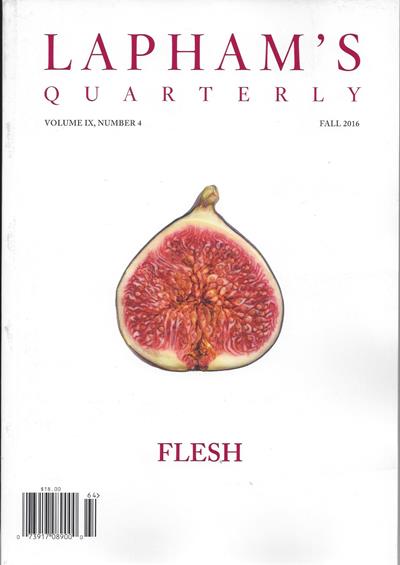
Thịt [tươi, sống]
Every man must descend into the flesh
to
meet mankind.
Mọi thằng đàn ông đều phải lặn vô đó, để gặp...
Chúa
[Đó: Nơi chốn âm u và ẩm
ướt, cái cửa mở ra mọi siêu hình học và
tôn giáo, nơi Thượng Đế thường xuyên ẩn nấp...]
-G.K Chesterton, 1910
Study of Flesh
and Gold, by William Merritt Chase 1888
Vàng [Gold] bay
mấy lá năm hồ
hết
Hờ hững ai xui Thiếp [Flesh]
phụ Chàng!
Sách
&
Báo
Mới
FOREWORD
One of the basic human requirements is
the need to dwell, and one of the central human acts is the
act of inhabiting, of connecting ourselves, however temporarily,
with a place on the planet which belongs to us, and to which
we belong. This is not, especially in the tumultuous present, an
easy act (as is attested by the uninhabited and uninhabitable no-places
in cities everywhere), and it requires help: we need allies in
inhabitation. Fortunately, we have at hand many allies, if only
we call on them, other upright objects, from towers to chimneys
to columns, stand in for us in sympathetic imitation of our own
upright stance. Flowers and gardens serve as testimonials to our
own care, and breezes loosely captured can connect us with the very
edge of the infinite. But in the West our most powerful ally is light.
"The sun never knew how wonderful it was," the architect
Louis Kahn said, "until it fell on the wall of a building." And for
us the act of inhabitation is mostly performed in cahoots with the sun,
our staunchest ally, bathing our world or flickering through it, helping
give it light. It comes with the thrill of a slap for us then to hear praise
of shadows and darkness, so it is when there comes to us the excitement
of realizing that musicians everywhere make their sounds to capture silence
or that architects develop complex shapes just to envelop empty space.
Thus darkness illuminates for us a culture very different from our own,
but at the same time it helps us to look deep into ourselves to our own
inhabitation of our world, as it describes with spine tingling insights
the traditional Japanese inhabitation of theirs. It could change our lives.
Charles Moore
School of Architecture, UCLA
"...
Bây giờ, phút này tôi đang nhớ đến
cái dáng trang trọng của Hương Cơ khi nàng
bưng một lư trầm nhỏ ra đặt trên cái bàn con trong
phòng khách, khẽ nhắc Phấn:
-Anh tắt bớt đèn đi.
Xong nàng đỡ cây đàn
tranh trên chiếu, thong thả ngồi xuống, rồi bắt đầu vặn
trục so dây. Vẻ đẹp của người đàn bà vốn có
sẵn nhan sắc thiên phú, lúc dịu dàng
kéo lại tà áo cho thẳng thớm trước khi đem
tấm lòng của mình ra mà ngỏ với một người mà
nàng cho là biết nghe nhạc cổ của đế đô, tôi
không đủ tài tả hết. Nhưng mà tôi cảm động
lắm, cảm động đến độ vọt miệng nói ra một câu thật ngớ
ngẩn:
-Nãy giờ chưa thấy chị ăn uống chi
cả. Để chị dùng cơm rồi mới đàn chứ.
-Dạ không, bụng có trống thì
tiếng đàn mới thanh thoát được, mới hư được. Thầy
dậy tôi vậy. Là vì tiếng đàn, cái
nhấn là để cho nó một phần thực thôi, còn
thì phải là chín phần hư mới trúng
cách.
... Phấn bạn tôi đã nằm xuống
rồi. Người sĩ quan thiện chiến và tài hoa ấy vào
phút cuối cùng đã trối với một người bạn
tù..."
Còn Hương Cơ (14), qua kể lại của
người con trai... "trong những ngày đói khó
sau khi cha nó bị đem ra ngoài Bắc để cho người ta
sửa đổi tạo một cái gì mới đó (tôi cũng
không biết rõ) mẹ nó ở nhà xoay sang mở quán
ăn để độ nhật. Trong khi nấu nướng củi lửa dầu mỡ sao đó mà
Hương Cơ bị phỏng nặng... khiến cho ba ngón tay chết cứng..."
Đọc
là liên tưởng, là mò mẫm tìm sợi giây
vô hình nối kết những con chữ, nối kết những linh hồn, những
tâm hồn... tôi cứ tưởng tượng ra rằng Hương Cơ, trong một phút
quá hoảng sợ những ngày sắp tới, quá nhớ nhung người
chồng ở trại tù... đã "lơ đễnh" thò tay vào chảo
dầu cũng nên! Trong Trăm Năm Cô Đơn, bà cụ ngoại-ngoại
của Ursula Iguarant, khi Sir Francis Drake đánh chiếm Riohacha vào
thế kỷ 16, nghe tiếng chuông trống báo động, tiếng đại bác,
bà mất vía, ngồi ngay lên cái bếp
than hồng. Những vết phỏng biến bà thành một người
vợ vô dụng suốt quãng đời còn lại. Ngay trong
Nghe Đàn, Trúc Chi vẫn còn bị ám ảnh
bởi biến cố Mậu Thân ở Huế, khiến ông phải "mở ngoặc
đóng ngoặc", và chính nó làm cho
ông nhớ đến Hương Cơ...
Về tai nạn, Trúc Chi đành
đổ cho lịch sử, cho cuộc nồi da nấu thịt. Nhưng mượn cái
cớ mà Nguyễn Du vin vào đó bắt Kiều mười
lăm năm lưu lạc, người viết xin được đưa ra một hai lời bàn
Mao Tôn Cương ở đây.
Là
bởi vì, ngay khi đọc ông tả một nhan sắc, một tiếng
đàn như thế, người đọc đã "hốt" rồi: làm
sao mà "lão tặc thiên" (chữ của Kim Mao Sư
Vương Tạ Tốn) không quen thói má hồng đánh
ghen cho được?
Sẽ có
người bực mình, bỏng có ba ngón tay mà
làm rối lên, nhất là sau một cuộc nồi da
nấu thịt. Thật ra, chẳng thể nào mà trả lời cho một
sự bực bội "thuần lý" như vậy, như Nabokov khẳng định, khi
đọc Hóa Thân của Kafka: biến thành con bọ,
rồi sao? Nhưng ông cho rằng trước nỗi sững sờ "thuyền mấy
lá đông tây lặng ngắt", con người đành
thốt lên: Beauté plus pitié, Cái Đẹp cộng
Thương Hại (15). Đây cũng là tâm trạng cùng
một lứa bên trời lận đận, đồng bệnh tương lân giữa nghệ
sĩ và nghệ sĩ. Và đó cũng là cách
chúng ta tiếp cận nghệ thuật: Nơi nào có cái
đẹp nơi đó có thương hại, bởi vì một lý
do thật giản đơn, cái đẹp phải chết: Mỹ nhân tự cổ như
danh tướng...
Vả chăng,
cái tai nạn đó, là bắt buộc phải có,
như một chia sẻ cùng Nạn Lớn, Kinh Hoàng Lớn. Ở
đây, tôi lại mượn Kafka, và "con bọ" của ông,
và cứ nói "xưng xưng" ra rằng: Phải có tai
nạn đó, nhan sắc tiếng đàn của Hương Cơ mới được
vẹn toàn.
Walter
Benjamin, trong bài viết về Kafka (16), nhận xét:
"điều lạ là, đàn bà nòi đĩ ở trong
truyện Kafka không hề tỏ ra đẹp (these whorelike women
never seem to be beautiful)... Hơn thế nữa, cái đẹp ở trong
thế giới Kafka thường chỉ xuất hiện tại những nơi u tối nhất - ở
giữa đám "tề nguỵ" (cho phép tôi liều lĩnh dịch
chữ "accused persons" như vầy, cho đúng với "tinh thần bài
viết"!)... "Vụ Án cho thấy những thủ tục là vô
hy vọng đối với tội nhân, vô hy vọng ngay cả khi họ có
hy vọng để trắng án. Có thể chính cái
gọi là vô hy vọng đã làm lộ ra cái
đẹp ở nơi họ; chỉ có họ là được ông ưu ái"
(17). Benjamin nhớ lại một cuộc trò chuyện giữa Max Brod (18)
và Kafka. "Tôi nhớ lại", Brod viết, "một lần trò
chuyện với Kafka, bắt đầu bằng Âu-châu ngày-này
và sự suy tàn của nhân loại. 'Chúng ta là
những tư tưởng hư vô, những tư tưởng tự sát vốn đến từ cái
đầu của Thượng Đế', Kafka nói. Điều này thoạt đầu làm
tôi (Brod) nhớ tới ý niệm Gnostic (19), về cuộc đời: Thượng
Đế chỉ là một ác thần. Thế giới: Sự Sa Ngã của
Người. 'Ô, không phải đâu,' Kafka nói, 'thế
giới chúng ta chỉ là một cơn xấu tính, bad mood,
của Thượng Đế, một ngày xấu của người.' 'Vậy thì có
hy vọng ở bên ngoài cái thế giới mà chúng
ta biết'. Ông mỉm cười. 'Ôi, nhiều hy vọng, hằng hà
sa số hy vọng - nhưng không cho chúng ta, dù chỉ
một'. Những lời nói này đã tạo cây cầu tới
những nhân vật thực là kỳ quái của Kafka: những kẻ
độc nhất đã thoát ra ngoài cái vòng
tròn gia đình, chỉ với họ may ra có thể có
hy vọng. Những kẻ không phải là loài vật; ngay cả giống
lai hoang (hybrids), hay nhân vật giả tưởng như Cat Lamb hay Odradek
cũng không luôn; họ vẫn còn ở trong cái vòng
tròn gia đình. Không phải ngẫu nhiên mà
Gregor Samsa thức giấc như là một con bọ ở trong nhà bố mẹ,
mà không ở một nơi nào khác, và cái
con vật khác thường nửa mèo nửa cừu đó, là
thừa hưởng từ người cha. (Một nhân vật) Odradek như thế là
mối quan tâm của người cha trong gia đình. "Những kẻ trợ
giúp", tuy nhiên, là ở bên ngoài vòng
tròn này. (The "assistants", however, are outside this circle).
(20).
(Hãy đặt câu hỏi: Một nhân
vật "toàn bích" như Tiêu Phong, tại sao
là người Khiết Đan, mà không phải người Hán,
tại sao lại xâm hình con cáo ở trước ngực...?
Hãy tưởng tượng Trung-nguyên/Hán/Tây-vực/Khiết-đan...
là những nơi chốn, giống dân khác...)
Tôi trích dẫn, cả một đoạn
dài Benjamin viết về Kafka, là để nhấn mạnh hai
điều, có liên can đến Hương Cơ, đến chúng
ta.
Thứ nhất: Hương Cơ, một nhan sắc của cố
đô, "vầng trăng mười bốn", chỉ tuyệt vời "nhờ" tai nạn,
và tiếng đàn của người n "tượng trưng cho cả một
dân tộc", chỉ tuyệt vời khi nàng không còn
có thể đàn được nữa, như lần đàn sau này...
Thứ hai: đã đến lúc chúng
ta phải có một cái nhìn khác, về phi
nhân.
Nguyễn Tuân, trong một truyện ngắn,
cho rằng trăng mười bốn hơn trăng rằm: trong cái chưa
chín có cái chưa tàn lụi. Nghe nói
ở bên Nhật, có những cảnh chùa dở dang: cứ để dành
một khoảng trống cho tín đồ nhập vào. Đây là
sự khác biệt rất cơ bản giữa Đông và Tây.
Charles Moore, trong lời giới thiệu tác phẩm Ca Ngợi Bóng
Tối (21) của nhà văn Nhật Tanizaki, cho rằng đồng minh mãnh
liệt nhất (the most powerful ally) của chúng ta (Tây
phương) là ánh sáng. Dẫn Louis Kahn, một nhà
kiến trúc: 'Mặt trời chẳng bao giờ hiểu được nó tuyệt
vời như thế nào, cho tới khi nó ngã xuống bức tường
của một tòa nhà'; do đó việc xây nhà
dựng cửa (là một trong những đòi hỏi cơ bản, đòi
hỏi trú thân, nối kết, quần tụ với nhau, cho dù
theo kiểu ăn xổi ở thì với nơi chốn thuộc về con người, hay
con người thuộc về nó, nhưng) đối với chúng ta, cái
nhà phải tương hợp với mặt trời, đồng minh số một, phải giúp
đồng minh ban ánh sáng. Và ông cho rằng Tây
phương đã "tá hoả" khi nghe chuyện ca ngợi bóng
tối và bóng đen; và đã sững sờ thích
thú khi nhận ra rằng, nhạc sĩ, ở đâu đâu cũng thế
thôi, tạo nên những âm thanh của họ, là để
nắm bắt sự im lặng, và kiến trúc sư, khi tạo ra nhà
cửa, là để ôm lấy quãng không.
Thành thử cái thuyết tài
mệnh tương đố mà Nguyễn Du vin vào đó để
làm khổ cô Kiều, là nằm trong truyền thống
Đông-phương: không phải ông Trời ghen cái
đẹp, mà là: ông Trời chỉ đẹp, khi té
xuống, khi nhập vào một con người luân lạc như Kiều. Với Hương
Cơ của Trúc Chi, tiếng đàn, trong chín phần hư cần
một phần thực, và phần thực này, chỉ có cuộc
đời - cuộc nồi da nấu thịt, củi đậu đun hạt đậu, chúng ông
"chơi" chúng mày... - mang lại cho nó thôi.
Ôi chao, đọc lại mà còn
thấy sướng mê tơi, tại làm sao mà mi ăn
cắp hay đến như thế, hử GCC?
Bài Bạt mới cực thú.
Từ từ Tin Văn giới thiệu tiếp.

Ôi chao, cầm cuốn sách
mỏng dính lên, đọc [lại] nó vào lúc
tám bó, sắp đi xa, tự hỏi chính mình,
làm sao mà ngày đó tháng đó,
chân ướt chân ráo đến được Xứ Lạnh, ngoài
cái diễm phúc gặp lại cô bạn ngày nào,
lại có cái hạnh phúc, đọc nó?
Khó hiểu thật, về cái chuyện gặp nhau
trên đời, giữa sách và người.
IN PRAISE OF SHADOWS
This eloquent, though sometimes perverse, essay on
the Japanese sense of beauty by one of the most articulate of
modern Japanese novelists is something everyone interested in Japan
should read. I shall certainly recommend it strongly to all my students.
The publishers of this book have given us a little gem.
Edwin Me Clellan Yale University
I read the piece with absolute delight. Tanizaki
captures in an amusing, flowing commentary on architecture, drama,
food, feminine beauty, and many other aspects of Japanese life the
uneasy mixing of two clashing aesthetic traditions based on differing
technologies. He makes clear his own love of the softer, quieter,
more shadowy, older aesthetic tradition and his pain as it is challenged
by the brighter, more garish products of Western technology.
Edwin O. Reischauer
Iiarvard University
Lời
giới thiệu trang bìa
FOREWORD
One of the basic human requirements is the need to
dwell, and one of the central human acts is the act of inhabiting,
of connecting ourselves, however temporarily, with a place on
the planet which belongs to us, and to which we belong. This is
not, especially in the tumultuous present, an easy act (as is attested
by the uninhabited and uninhabitable no-places in cities everywhere),
and it requires help: we need allies in inhabitation. Fortunately,
we have at hand many allies, if only we call on them, other upright
objects, from towers to chimneys to columns, stand in for us in sympathetic
imitation of our own upright stance. Flowers and gardens serve as testimonials
to our own care, and breezes loosely captured can connect us with the
very edge of the infinite. But in the West our most powerful ally is light.
"The sun never knew how wonderful it was," the architect
Louis Kahn said, "until it fell on the wall of a building." And for
us the act of inhabitation is mostly performed in cahoots with the sun,
our staunchest ally, bathing our world or flickering through it, helping give
it light. It comes with the thrill of a slap for us then to hear praise of
shadows and darkness, so it is when there comes to us the excitement of realizing
that musicians everywhere make their sounds to capture silence or that
architects develop complex shapes just to envelop empty space. Thus darkness
illuminates for us a culture very different from our own, but at the same
time it helps us to look deep into ourselves to our own inhabitation of
our world, as it describes with spine tingling insights the traditional
Japanese inhabitation of theirs. It could change our lives.
Charles Moore
School of Architecture, UCLA
"...
Bây giờ, phút này tôi đang nhớ đến cái
dáng trang trọng của Hương Cơ khi nàng bưng một lư
trầm nhỏ ra đặt trên cái bàn con trong phòng
khách, khẽ nhắc Phấn:
-Anh tắt bớt đèn đi.
Xong nàng đỡ cây đàn tranh trên
chiếu, thong thả ngồi xuống, rồi bắt đầu vặn trục so dây.
Vẻ đẹp của người đàn bà vốn có sẵn nhan sắc thiên
phú, lúc dịu dàng kéo lại tà
áo cho thẳng thớm trước khi đem tấm lòng của mình
ra mà ngỏ với một người mà nàng cho là
biết nghe nhạc cổ của đế đô, tôi không đủ tài
tả hết. Nhưng mà tôi cảm động lắm, cảm động đến độ vọt
miệng nói ra một câu thật ngớ ngẩn:
-Nãy giờ chưa thấy chị ăn uống chi cả. Để
chị dùng cơm rồi mới đàn chứ.
-Dạ không, bụng có trống thì
tiếng đàn mới thanh thoát được, mới hư được. Thầy
dậy tôi vậy. Là vì tiếng đàn, cái
nhấn là để cho nó một phần thực thôi, còn
thì phải là chín phần hư mới trúng cách.
... Phấn bạn tôi đã nằm xuống rồi.
Người sĩ quan thiện chiến và tài hoa ấy vào
phút cuối cùng đã trối với một người bạn tù..."
Còn Hương Cơ (14), qua kể lại của người con
trai... "trong những ngày đói khó sau khi
cha nó bị đem ra ngoài Bắc để cho người ta sửa đổi
tạo một cái gì mới đó (tôi cũng không
biết rõ) mẹ nó ở nhà xoay sang mở quán
ăn để độ nhật. Trong khi nấu nướng củi lửa dầu mỡ sao đó mà
Hương Cơ bị phỏng nặng... khiến cho ba ngón tay chết cứng..."
Đọc
là liên tưởng, là mò mẫm tìm sợi giây
vô hình nối kết những con chữ, nối kết những linh hồn, những
tâm hồn... tôi cứ tưởng tượng ra rằng Hương Cơ, trong một phút
quá hoảng sợ những ngày sắp tới, quá nhớ nhung người
chồng ở trại tù... đã "lơ đễnh" thò tay vào chảo
dầu cũng nên! Trong Trăm Năm Cô Đơn, bà cụ ngoại-ngoại
của Ursula Iguarant, khi Sir Francis Drake đánh chiếm Riohacha vào
thế kỷ 16, nghe tiếng chuông trống báo động, tiếng đại bác,
bà mất vía, ngồi ngay lên cái bếp than
hồng. Những vết phỏng biến bà thành một người vợ vô
dụng suốt quãng đời còn lại. Ngay trong Nghe Đàn,
Trúc Chi vẫn còn bị ám ảnh bởi biến cố Mậu Thân
ở Huế, khiến ông phải "mở ngoặc đóng ngoặc", và
chính nó làm cho ông nhớ đến Hương Cơ...
Về tai nạn, Trúc Chi đành đổ cho lịch
sử, cho cuộc nồi da nấu thịt. Nhưng mượn cái cớ mà
Nguyễn Du vin vào đó bắt Kiều mười lăm năm lưu lạc,
người viết xin được đưa ra một hai lời bàn Mao Tôn Cương
ở đây.
Là
bởi vì, ngay khi đọc ông tả một nhan sắc, một tiếng
đàn như thế, người đọc đã "hốt" rồi: làm sao
mà "lão tặc thiên" (chữ của Kim Mao Sư Vương
Tạ Tốn) không quen thói má hồng đánh ghen
cho được?
Sẽ có
người bực mình, bỏng có ba ngón tay mà
làm rối lên, nhất là sau một cuộc nồi da nấu
thịt. Thật ra, chẳng thể nào mà trả lời cho một sự bực
bội "thuần lý" như vậy, như Nabokov khẳng định, khi đọc Hóa
Thân của Kafka: biến thành con bọ, rồi sao? Nhưng ông
cho rằng trước nỗi sững sờ "thuyền mấy lá đông tây
lặng ngắt", con người đành thốt lên: Beauté plus
pitié, Cái Đẹp cộng Thương Hại (15). Đây cũng là
tâm trạng cùng một lứa bên trời lận đận, đồng bệnh
tương lân giữa nghệ sĩ và nghệ sĩ. Và đó
cũng là cách chúng ta tiếp cận nghệ thuật: Nơi
nào có cái đẹp nơi đó có thương hại,
bởi vì một lý do thật giản đơn, cái đẹp phải chết:
Mỹ nhân tự cổ như danh tướng...
Vả chăng,
cái tai nạn đó, là bắt buộc phải có,
như một chia sẻ cùng Nạn Lớn, Kinh Hoàng Lớn. Ở đây,
tôi lại mượn Kafka, và "con bọ" của ông, và
cứ nói "xưng xưng" ra rằng: Phải có tai nạn đó,
nhan sắc tiếng đàn của Hương Cơ mới được vẹn toàn.
Walter
Benjamin, trong bài viết về Kafka (16), nhận xét:
"điều lạ là, đàn bà nòi đĩ ở trong truyện
Kafka không hề tỏ ra đẹp (these whorelike women never seem
to be beautiful)... Hơn thế nữa, cái đẹp ở trong thế giới Kafka
thường chỉ xuất hiện tại những nơi u tối nhất - ở giữa đám "tề
nguỵ" (cho phép tôi liều lĩnh dịch chữ "accused persons"
như vầy, cho đúng với "tinh thần bài viết"!)... "Vụ Án
cho thấy những thủ tục là vô hy vọng đối với tội nhân,
vô hy vọng ngay cả khi họ có hy vọng để trắng án.
Có thể chính cái gọi là vô hy vọng
đã làm lộ ra cái đẹp ở nơi họ; chỉ có họ là
được ông ưu ái" (17). Benjamin nhớ lại một cuộc trò
chuyện giữa Max Brod (18) và Kafka. "Tôi nhớ lại", Brod
viết, "một lần trò chuyện với Kafka, bắt đầu bằng Âu-châu
ngày-này và sự suy tàn của nhân loại.
'Chúng ta là những tư tưởng hư vô, những tư tưởng
tự sát vốn đến từ cái đầu của Thượng Đế', Kafka nói.
Điều này thoạt đầu làm tôi (Brod) nhớ tới ý
niệm Gnostic (19), về cuộc đời: Thượng Đế chỉ là một ác
thần. Thế giới: Sự Sa Ngã của Người. 'Ô, không
phải đâu,' Kafka nói, 'thế giới chúng ta chỉ là
một cơn xấu tính, bad mood, của Thượng Đế, một ngày xấu
của người.' 'Vậy thì có hy vọng ở bên ngoài
cái thế giới mà chúng ta biết'. Ông mỉm cười.
'Ôi, nhiều hy vọng, hằng hà sa số hy vọng - nhưng không
cho chúng ta, dù chỉ một'. Những lời nói này
đã tạo cây cầu tới những nhân vật thực là kỳ
quái của Kafka: những kẻ độc nhất đã thoát ra ngoài
cái vòng tròn gia đình, chỉ với họ may ra
có thể có hy vọng. Những kẻ không phải là
loài vật; ngay cả giống lai hoang (hybrids), hay nhân vật
giả tưởng như Cat Lamb hay Odradek cũng không luôn; họ vẫn
còn ở trong cái vòng tròn gia đình.
Không phải ngẫu nhiên mà Gregor Samsa thức giấc như
là một con bọ ở trong nhà bố mẹ, mà không ở
một nơi nào khác, và cái con vật khác
thường nửa mèo nửa cừu đó, là thừa hưởng từ người
cha. (Một nhân vật) Odradek như thế là mối quan tâm
của người cha trong gia đình. "Những kẻ trợ giúp", tuy nhiên,
là ở bên ngoài vòng tròn này. (The
"assistants", however, are outside this circle). (20).
(Hãy đặt câu hỏi: Một nhân vật
"toàn bích" như Tiêu Phong, tại sao là
người Khiết Đan, mà không phải người Hán, tại
sao lại xâm hình con cáo ở trước ngực...? Hãy
tưởng tượng Trung-nguyên/Hán/Tây-vực/Khiết-đan...
là những nơi chốn, giống dân khác...)
Tôi trích dẫn, cả một đoạn dài
Benjamin viết về Kafka, là để nhấn mạnh hai điều, có
liên can đến Hương Cơ, đến chúng ta.
Thứ nhất: Hương Cơ, một nhan sắc của cố đô,
"vầng trăng mười bốn", chỉ tuyệt vời "nhờ" tai nạn, và tiếng
đàn của người n "tượng trưng cho cả một dân tộc",
chỉ tuyệt vời khi nàng không còn có thể
đàn được nữa, như lần đàn sau này...
Thứ hai: đã đến lúc chúng ta
phải có một cái nhìn khác, về phi nhân.
Nguyễn Tuân, trong một truyện ngắn, cho rằng
trăng mười bốn hơn trăng rằm: trong cái chưa chín
có cái chưa tàn lụi. Nghe nói ở bên
Nhật, có những cảnh chùa dở dang: cứ để dành một
khoảng trống cho tín đồ nhập vào. Đây là
sự khác biệt rất cơ bản giữa Đông và Tây.
Charles Moore, trong lời giới thiệu tác phẩm Ca Ngợi Bóng
Tối (21) của nhà văn Nhật Tanizaki, cho rằng đồng minh mãnh
liệt nhất (the most powerful ally) của chúng ta (Tây phương)
là ánh sáng. Dẫn Louis Kahn, một nhà kiến trúc:
'Mặt trời chẳng bao giờ hiểu được nó tuyệt vời như thế nào,
cho tới khi nó ngã xuống bức tường của một tòa nhà';
do đó việc xây nhà dựng cửa (là một trong
những đòi hỏi cơ bản, đòi hỏi trú thân, nối
kết, quần tụ với nhau, cho dù theo kiểu ăn xổi ở thì với
nơi chốn thuộc về con người, hay con người thuộc về nó, nhưng)
đối với chúng ta, cái nhà phải tương hợp với mặt
trời, đồng minh số một, phải giúp đồng minh ban ánh sáng.
Và ông cho rằng Tây phương đã "tá hoả"
khi nghe chuyện ca ngợi bóng tối và bóng đen; và
đã sững sờ thích thú khi nhận ra rằng, nhạc sĩ, ở đâu
đâu cũng thế thôi, tạo nên những âm thanh của họ,
là để nắm bắt sự im lặng, và kiến trúc sư, khi tạo ra
nhà cửa, là để ôm lấy quãng không.
Thành thử cái thuyết tài
mệnh tương đố mà Nguyễn Du vin vào đó để làm
khổ cô Kiều, là nằm trong truyền thống Đông-phương:
không phải ông Trời ghen cái đẹp, mà
là: ông Trời chỉ đẹp, khi té xuống, khi nhập
vào một con người luân lạc như Kiều. Với Hương Cơ của
Trúc Chi, tiếng đàn, trong chín phần hư cần một
phần thực, và phần thực này, chỉ có cuộc đời - cuộc
nồi da nấu thịt, củi đậu đun hạt đậu, chúng ông "chơi"
chúng mày... - mang lại cho nó thôi.
Ôi chao, đọc lại mà còn
thấy sướng mê tơi, tại làm sao mà mi ăn cắp
hay đến như thế, hử GCC?
Bài Bạt mới cực thú.
Từ từ Tin Văn giới thiệu tiếp.
07/07/10 at 4:56 PM
"Mot chuyen di" cua GNV hay qua. Nguoi trong nuoc
cung dang viet hang loat ve Nguyen Tuan, nhung khong hieu sao, doc
ho cu co cam giac nhu dang nghe mot nhom nguoi noi chuyen voi nhau
trong mot... dam gio^~. Toi khong noi dieu nay vi do-ky gi dau, that
long thoi.
Nhung xin dung co dua mail toi len TV day nhe, toi
dang tro chuyen voi GNV thoi.
HA
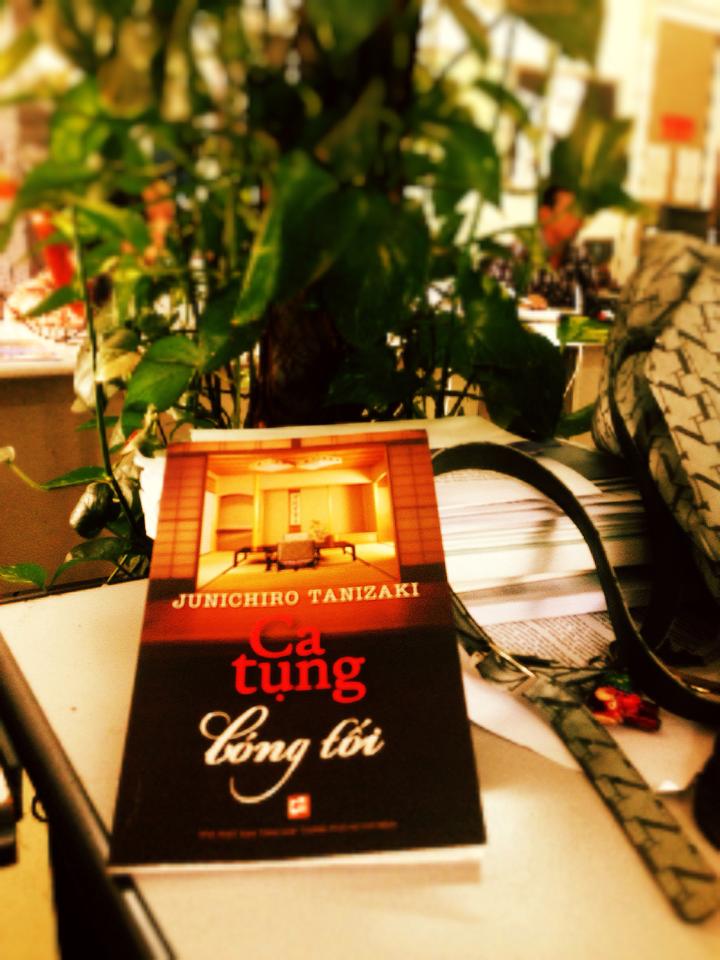
Thúy Hà
Lê
November 18, 2014
· Hoang Cau, Vietnam
· Edited
·
Mỗi lần
tôi vào một nhà vệ sinh cũ kỹ, âm u nhưng sạch sẽ
không chê vào đâu được ở khu đền thờ Nara hay Tokyo,
tôi lại thấy thán phục những hiệu quả phi thường của kiến trúc
Nhật Bản. Phòng khách có thể mang nét duyên
dáng riêng nhưng nhà vệ sinh Nhật mới đúng là
nơi thư giãn tâm hồn. Nó luôn nằm tách
biệt với ngôi nhà chính, ở tận cùng của hành
lang, trong một khu rừng hương hoa với lá cây và
rêu. Không từ ngữ nào có thể diễn tả cái
cảm giác một người đang ngồi trong nguồn sáng lờ mờ,
phơi mình trong ánh sáng yếu ớt phản chiếu từ
cánh cửa trượt dán giấy, đắm chìm trong suy nghĩ
hoặc nhìn đăm đắm ra khu vườn. Tiểu thuyết gia Natsume Soseki
xem những chuyến đi ra nhà vệ sinh buổi sáng là
niềm vui lớn, ông gọi đó là “niềm khoái cảm
sinh lý”… Tôi thích ngồi lắng nghe tiếng mưa rơi nhè
nhẹ ở trong một nhà vệ sinh như thế, với những cửa sổ dài
và hẹp nằm ngang mặt đất; ở đó có thể nghe được thật
gần tiếng mưa rơi xuống từ mái chìa và cây cối,
thấm xuống mặt đất sau khi dội vào lớp đế của cây đèn
đá và làm tươi mới lớp rêu trên những
tảng đá giậm bước.. Tôi ngờ rằng đây là nơi mà
các nhà thơ haiku qua năm tháng đã nghĩ ra
nhiều ý thơ tuyệt vời… (Ca tụng bóng tối – In praise of shadows,
陰翳礼讃 Junichiro Tanizaki,
1933)
Cuốn
này, In Praise of Shadow, cc 1994, GCC mượn thư viện về
đọc, hồi mới qua Xứ Lạnh, làm nghề bán bảo hiểm nhân
thọ, - thì cũng để chiều lòng cô bạn ngày
nào, ông chồng của cô là 1 tay trong nghề,
vả chăng, cũng cần có 1 nghề làm, để lo cho mấy đứa
nhỏ còn kẹt lại ở Lào, tính bỏ luôn ba cái
trò viết lách… - mê quá, bèn đi 1 đường về nó,
khi làm nghề viết muớn cho ông chủ NMG, cc 1997, giữ mục
Tạp Ghi. Và khi thôi viết, đã đi 1 đường từ giã
băng VH, với những ông bạn thân như Trúc Chi, Tạ Chí
Đại Trường - nhờ viết muớn cho tờ VH mà quen được - bằng những
dòng viết về nhân vật Hương Cơ, một nhân vật của
Trúc Chi.
Em của
GCC, "hồi nào", đọc bài viết, mê lắm, có mail
khen!
Tôi
vốn không có thói quen cất giữ báo Việt,
thí dụ tờ Văn Học.....
[Nhớ là, Trúc Chi đọc, bật cười,
phách lối thật!]
"Ngày
mai là ngày hôm qua", đó là
câu mở đầu cuốn tiểu thuyết "Gặp gỡ ở Westphalie" của nhà
văn Đức, Gunter Grass. Sau Cuộc Chiến Lớn 1939-45, những gì
còn lại của nước Đức của ông chỉ là những điêu
tàn, và một nền văn chương đã phát sinh
từ đó: văn chương của những mảnh vụn, và phản ứng của
một nhà văn trước những mảnh vụn đó: Làm thế
nào, sau Hitler, những ngòi bút Đức viết lại sự
sống, Vũ Trụ Luận? Làm thế nào con chim phượng hoàng
thò cái mỏ của nó ra khỏi biển lửa? Heinrich Boll,
Nobel văn chương (1972), nhà văn người Đức cùng thời
với ông, đã viết: Chúng ta chẳng có bất cứ
lý do gì để mà hổ thẹn về một nhãn hiệu
như thế... Chúng ta nhìn sự vật như nó là,
với con mắt trần tục, thường không hoàn toàn khô,
và cũng không hoàn toàn ướt, nhưng mà
là ẩm, bởi vì đừng quên, từ La-tinh diễn tả ẩm là
humor, diễu cợt*. Nếu Grass không thể chọn một văn phong nào
khác, ngoài văn phong ẩm (theo tôi có thể giải
thích văn phong của Phạm Thị Hoài trong Marie Sến), ông
cũng không thể nào chọn lựa những đề tài khác:
những đề tài của tôi đã có sẵn, đã được
"chỉ định": chế độ Nazi, hậu quả của nó (theo như người viết được
biết, đề tài, nhân vật trong Marie Sến, đều "thực" cả, tác
giả của nó không hề hư cấu ra những nhân vật như thế).
Nguyễn Tuân, trong một truyện
ngắn, cho rằng trăng mười bốn hơn trăng rằm: trong cái
chưa chín có cái chưa tàn lụi. Nghe nói
ở bên Nhật, có những cảnh chùa dở dang: cứ để
dành một khoảng trống cho tín đồ nhập vào.
Đây là sự khác biệt rất cơ bản giữa Đông và
Tây. Charles Moore, trong lời giới thiệu tác phẩm Ca Ngợi
Bóng Tối (21) của nhà văn Nhật Tanizaki, cho rằng đồng
minh mãnh liệt nhất (the most powerful ally) của chúng
ta (Tây phương) là ánh sáng. Dẫn Louis Kahn,
một nhà kiến trúc: 'Mặt trời chẳng bao giờ hiểu được nó
tuyệt vời như thế nào, cho tới khi nó ngã xuống
bức tường của một tòa nhà'; do đó việc xây
nhà dựng cửa (là một trong những đòi hỏi cơ bản,
đòi hỏi trú thân, nối kết, quần tụ với nhau, cho dù
theo kiểu ăn xổi ở thì với nơi chốn thuộc về con người, hay con
người thuộc về nó, nhưng) đối với chúng ta, cái nhà
phải tương hợp với mặt trời, đồng minh số một, phải giúp đồng minh
ban ánh sáng. Và ông cho rằng Tây phương
đã "tá hoả" khi nghe chuyện ca ngợi bóng tối và
bóng đen; và đã sững sờ thích thú khi
nhận ra rằng, nhạc sĩ, ở đâu đâu cũng thế thôi, tạo nên
những âm thanh của họ, là để nắm bắt sự im lặng, và
kiến trúc sư, khi tạo ra nhà cửa, là để ôm lấy
quãng không.
Thành thử cái thuyết tài
mệnh tương đố mà Nguyễn Du vin vào đó để làm
khổ cô Kiều, là nằm trong truyền thống Đông-phương:
không phải ông Trời ghen cái đẹp, mà
là: ông Trời chỉ đẹp, khi té xuống, khi nhập
vào một con người luân lạc như Kiều. Với Hương Cơ của Trúc
Chi, tiếng đàn, trong chín phần hư cần một phần thực,
và phần thực này, chỉ có cuộc đời - cuộc nồi da
nấu thịt, củi đậu đun hạt đậu, chúng ông "chơi" chúng
mày... - mang lại cho nó thôi.

Tks. NQT
V/v Kafka:
Walter Benjamin, trong bài viết về Kafka
(16), nhận xét: "điều lạ là, đàn bà
nòi đĩ ở trong truyện Kafka không hề tỏ ra đẹp (these
whorelike women never seem to be beautiful)... Hơn thế nữa, cái
đẹp ở trong thế giới Kafka thường chỉ xuất hiện tại những nơi u tối
nhất - ở giữa đám "tề nguỵ" (cho phép tôi liều lĩnh
dịch chữ "accused persons" như vầy, cho đúng với "tinh thần bài
viết"!)... "Vụ Án cho thấy những thủ tục là vô hy
vọng đối với tội nhân, vô hy vọng ngay cả khi họ có
hy vọng để trắng án. Có thể chính cái gọi
là vô hy vọng đã làm lộ ra cái đẹp
ở nơi họ; chỉ có họ là được ông ưu ái" (17).
Benjamin nhớ lại một cuộc trò chuyện giữa Max Brod (18) và
Kafka. "Tôi nhớ lại", Brod viết, "một lần trò chuyện với
Kafka, bắt đầu bằng Âu-châu ngày-này và
sự suy tàn của nhân loại. 'Chúng ta là
những tư tưởng hư vô, những tư tưởng tự sát vốn đến từ
cái đầu của Thượng Đế', Kafka nói. Điều này thoạt
đầu làm tôi (Brod) nhớ tới ý niệm Gnostic (19),
về cuộc đời: Thượng Đế chỉ là một ác thần. Thế giới:
Sự Sa Ngã của Người. 'Ô, không phải đâu,' Kafka
nói, 'thế giới chúng ta chỉ là một cơn xấu tính,
bad mood, của Thượng Đế, một ngày xấu của người.' 'Vậy thì
có hy vọng ở bên ngoài cái thế giới mà
chúng ta biết'. Ông mỉm cười. 'Ôi, nhiều hy vọng,
hằng hà sa số hy vọng - nhưng không cho chúng
ta, dù chỉ một'. Những lời
nói này đã tạo cây cầu tới những nhân
vật thực là kỳ quái của Kafka: những kẻ độc nhất đã
thoát ra ngoài cái vòng tròn gia
đình, chỉ với họ may ra có thể có hy vọng.
Những kẻ không phải là loài vật; ngay cả giống lai
hoang (hybrids), hay nhân vật giả tưởng như Cat Lamb hay Odradek
cũng không luôn; họ vẫn còn ở trong cái vòng
tròn gia đình. Không phải ngẫu nhiên mà
Gregor Samsa thức giấc như là một con bọ ở trong nhà
bố mẹ, mà không ở một nơi nào khác, và
cái con vật khác thường nửa mèo nửa cừu đó,
là thừa hưởng từ người cha. (Một nhân vật) Odradek
như thế là mối quan tâm của người cha trong gia đình.
"Những kẻ trợ giúp", tuy nhiên, là ở bên
ngoài vòng tròn này. (The "assistants", however,
are outside this circle). (20).
Note:
Những dòng chót - Tâm, trong Bếp Lửa của
TTT, khi chạy thoát ông bố Bắc Kít, xứ Bắc Kít,
viết cho Thanh - khép lại cuốn Bếp Lửa, cái gì
gì, buộc vào quê hương, là phải ruột thịt,
bạn bè không thôi, chưa đủ, có thể là
từ Kafka, mà, có thể, khi đó TTT chưa đọc
Thanh,
Không ngờ Thanh còn nhớ
đến anh.
Anh cảm động khi đọc thư. Anh tưởng nơi quê
hương không còn ai nhớ đến anh nữa. Đôi lúc
anh vẫn ân hận rằng anh không buộc với xứ sở một dây
liên lạc nào ngoài anh ra. Nguời ta gặp nhau ở
ngoài phố rồi quên nhau ngay, thì ở quê
hương hay một phương trời nào khác gì nhau.
Một hôm tình cờ anh nghe đài
phát thanh và được gặp giọng hát Thanh.
Vẫn giọng ấy. Trở về mái nhà xưa.
Anh định viết cho Thanh nhưng anh nghĩ biết đâu, Thanh chẳng
đã quên anh rồi như mọi người. Được thư Thanh anh phải
cám ơn Thanh nhiều.
Thanh lại sống một mình. Nga đã
lấy chồng. Chắc Nga thôi viết văn rồi nhỉ? Bên này
anh cũng có người bạn gái là văn sĩ nổi danh.
Thanh hát lại là phải, anh đã chẳng nói
thế sao? Vợ chồng Minh vẫn mạnh khỏe, được mấy cháu rồi?
Hãy nói với Minh lấy tên anh đặt cho một đứa con
của Minh để anh được đinh ninh anh còn nhiều liên lạc với quê
hương.
Chúng ta là những người sinh ra
để đi một mình suốt đời. Thanh hãy can đảm nhận lấy
điều ấy. Đi một mình suốt đời khó nhọc đấy chứ. Không
có một sự gì ràng buộc ta, thật là
bất hạnh.
Những buổi trời lạnh, tự sửa soạn bữa ăn lấy,
anh nhớ Thanh hơn hết. Anh chỉ còn có Thanh và
chắc Thanh chỉ còn có anh. Hãy cho anh sự tin
tưởng khi anh có dịp trở về quê hương, anh đã
có sự ràng buộc, ấy là Thanh. Không phải
những người bạn. Bạn chưa đủ. Buộc vào quê hương phải
là những người cùng máu mủ với mình.
Chúng ta phải tự tạo lấy sự ràng
buộc nhau để cùng bám chặt quê hương, nếu
không chúng ta sẽ mất trong sự quên lãng.
Anh yêu quê hương vô cùng
và anh yêu em vô cùng.
Tâm
Viết xong tại Thủ Dầu Một
vào tháng 10-1956
Số báo này có bài essay của
Bắc Đảo, Smells, Mùi, đọc tuyệt lắm, dù loáng
thoáng, lúc nhặt nó lên, tự nhủ,
đọc bài này, làm mồi, viết về ốc nhồi Bắc
Kít, chắc là đã lắm:
Mùi Bắc Kít, khi bạn xa
nó, nhớ nhất, thèm nhất, là mùi
gì?
Với Gấu, là mùi ốc nhồi!
Bắc Đảo viết essay tới lắm. Tin Văn
đã từng giới thiệu, nhưng cuốn essay của ông
cũng đi theo Cô Út làm từ thiện mất rồi.
Về nhà, đọc, thêm được bài
essay về Woolf cũng quá tuyệt, tác giả Margot Livesey: (1)
Nothing Is Simply One Thing
She always had the feeling
that it was very, very dangerous to live even one day.
Mrs Dalloway
http://www.tanvien.net/new_daily_poetry/Kafka_Prague.html
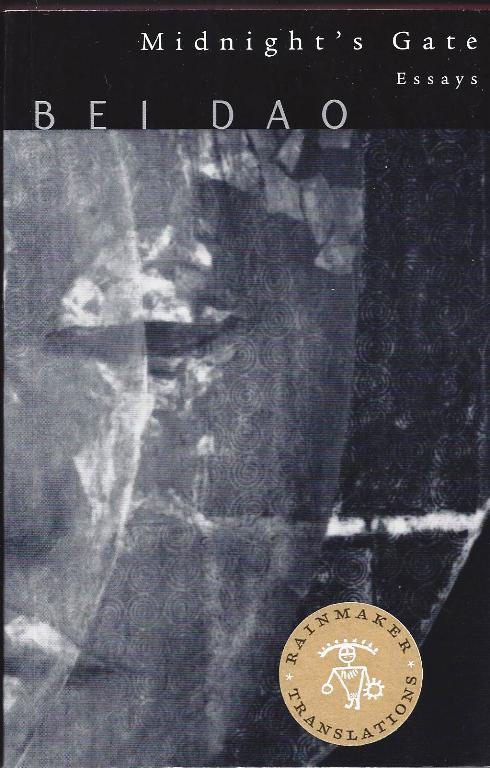
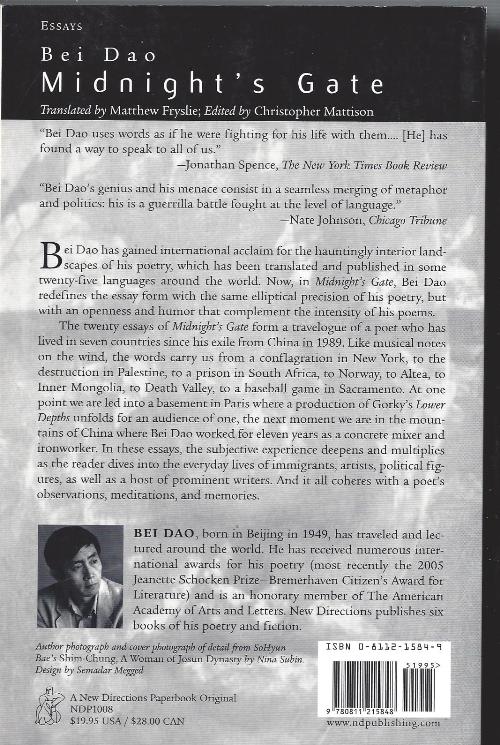
Hai
Anh commented on this.
Follow
Hai hôm
trước thấy mọi người khen món bún ốc nguội,
bún ốc nóng ở một chỗ là ngon nhất vịnh
Việt Nam . Mình tò mò mua về ăn thử . Nói
thật một cách khiêm tốn nhất ngon bằng 70 % mẹ mình
nấu thôi nhé . Mình cả 10 năm nay không
ăn bún ốc của ai nấu vì không ai nấu ngon
bằng mẹ . Nịnh bà cho công thức Post lên cho
cả nhà tham khảo nhé . Bạn nào thích nấu
thử đi bảo đảm có món bún ốc thần thánh
gia truyền của cô giáo Thiện ( mẹ mình Hà
Nội gốc 8 đời ) Nhé
Chuẩn bị nguyên liệu (...
Continue Reading
Ui chao, đây
là 1 trong những món Bắc Kít, Gấu cực
mê.
Về già, Gấu tự hỏi mi mê
nó, tất nhiên là do ngon, nhưng còn
do 1 điều gì khác nữa, đúng không?
Quả có thế.
Chỉ đến khi trở lại đất Bắc, thì
Gấu mới vỡ ra được.
(1)
Có lần Gấu lèm bèm
về cái “viết như không viết” của Gấu Cái, khác
hẳn cái viết cực kỳ khốn khổ của Gấu, Woolf giải thích,
chỉ khi nào viết tới đỉnh thì mới bật ra được cái
viết như không viết.
Nhưng dù Bà viết như thế, theo
Gấu, vấn đề vẫn chưa thông.
Ở đây còn là vấn đề của
“thiên tài của nơi chốn”: Lối viết của Thảo Trần,
Cô Tư, Mai Minh, cái nhịp của nó là từ
sông ngòi kênh, rạch… của Miền Nam:
Here she is, in 1926, in the thick of To the
Lighthouse, writing to Vita.
Style is a very simple matter; it is all rhythm.
Once you get that, you can't use the wrong words ... Now this
is very profound, what rhythm is, and goes far deeper than words.
A sight, an emotion, creates this wave in the mind, long before it
makes words to fit it; and in writing (such is my present belief) one
has to recapture this, and set this working (Which has nothing apparently
to do with words) and then, as it breaks and tumbles in the mind,
it makes words to fit it.

Cuốn này, mới mua, có
minh họa, cuốn cũ, Cô Út làm từ thiện!
Fairies
The name of these creatures
is linked to the Latin word faturn, meaning "fate" or "destiny";
with their magic they intervene in the affairs of men. Some have
said that the Fairies are the most numerous, beautiful, and memorable
of the minor deities. They are not limited to anyone region r
time; the ancient Greeks, the Eskimos, and the American Indians tell
stories of heroes who have won the love of these fantastic creatures.
Such adventures are dangerous, however: once the Fairy's passion
is satisfied, it may kill its lover.
In Ireland and Scotland,
Fairies are said to have underground dwellings where they lock
up the men, women, and children that they kidnap. People believe
that the neolithic arrowheads they dig up in their fields once
belonged to the Fairies, and that these arrowheads possess unfailing
medicinal properties.
Fairies like singing
and music and the color green. In the late seventeenth century,
a Scottish cleric, one Reverend Kirk, of Aberfoyle, compiled
a treatise titled The Secret Commonwealth of
the Elves, Fairies, and Fauns. In 1815, Sir Walter Scott had Kirk's
manuscript printed. Mr. Kirk was said to have been carried off
by the Fairies because he had revealed their secrets. In the seas off
Italy, there is a Fairy, the Fata Morgana, that weaves mirages that con-
fuse sailors and make them lose their course.
http://www.tanvien.net/Viet/Borges_Imaging_Beings.html
An Animal Imagined by Kafka
It is the animal with the big
tail, a tail many yards long and like a fox's brush. How I
should like to get my hands on this tail some time, but it is
impossible, the animal is constantly moving about, the tail is
constantly being flung this way and that. The animal resembles a kangaroo,
but not as to the face, which is flat almost like a human face, and
small and oval; only its teeth have any power of expression, whether
they are concealed or bared. Sometimes I have the feeling that the
animal is trying to tame me. What other purpose could it have in withdrawing
its tail when I snatch at it, and then again waiting calmly until I
am tempted again, and then leaping away once more?
FRANZ KAFKA: Dearest Father (Translated from the
German by Ernst Kaiser and Eithne Wilkins)
Một con vật
Kafka tưởng tượng ra
Ðó là 1 con
vật có 1 cái đuôi lớn, dài nhiều
mét, giống đuôi chồn. Ðòi phen tôi thèm
được sờ 1 phát vào cái đuôi của em, [hãy
nhớ cái cảnh, 1 anh học sinh, xa nhà, trọ học, đêm
đêm được chồn viếng thăm, trong Liêu Trai,
nhá!] nhưng vô phương, con vật cứ ngoe nguẩy cái
đuôi, thân hình luôn uốn oéo. Con
vật giống như con kangaro, nhưng cái mặt không giống,
bèn bẹt y chang mặt người, nho nhỏ, xinh xinh, như cái
gương bầu dục, chỉ có hàm răng là biểu hiện rõ
rệt nhất của tình cảm của em chồn này, lúc thì
giấu biệt, lúc thì phô ra. Ðôi khi tôi
có cảm tưởng em tính thuần hóa tôi, biến tôi
thành 1 con vật nuôi trong nhà, quanh quẩn bên
em. Hẳn là thế, nếu không tại sao em thu cái đuôi
lại, khi tôi với tay tính sờ 1 phát, và sau
đó lại nhu mì ngồi, cho tới khi tôi thèm quá,
thò tay ra, và em lại nguẩy 1 phát, đau nhói
tim?
The Bloi and the Morlocks
The hero of the novel The Time Machine, which
a young writer Herbert George Wells published in 1895, travels
on a mechanical device into an unfathomable future. There he finds
that mankind has split into two species: the Eloi, who are frail
and defenseless aristocrats living in idle gardens and feeding on
the fruits of the trees; and the Morlocks, a race of underground proletarians
who, after ages of laboring in darkness, have gone blind, but driven
by the force of the past, go on working at their rusted intricate machinery
that produces nothing. Shafts with winding staircases unite the two
worlds. On moonless nights, the Morlocks climb up out of their caverns
and feed on the Eloi.
The nameless hero, pursued
by Morlocks, escapes back into the present. He brings with him as
a solitary token of his adventure an unknown flower that falls
into dust and that will not blossom on earth until thousands and
thousands of years are over.
Nguỵ vs VC
Nhân vật chính trong cuốn tiểu thuyết
“Máy Thời Gian”, sử dụng cái máy thần sầu
du lịch xuyên qua thời gian tới những miền tương lai không
làm sao mà dò được. Ở đó, anh ta thấy
Mít – nhân loại - được chia thành hai, một,
gọi là Ngụy, yếu ớt, ẻo lả, và là những nhà
trưởng giả, bất lực, vô phương chống cự, sống trong những khu
vườn nhàn nhã, ăn trái cây, và một,
VC, gồm những tên bần cố nông, vô sản, sống dưới hầm,
địa đạo [Củ Chi, thí dụ], và, do bao nhiêu đời
lao động trong bóng tối, trở thành mù, và,
được dẫn dắt bởi sức mạnh kẻ thù nào cũng đánh thắng,
với sức người sỏi đá cũng thành cơm, cứ thế cứ thế lao
động, để thâu hoạch "chẳng cái gì". Có những
cầu thang nối liền hai thế giới, và vào những đêm
không trăng, VC, từ những hang động, hầm hố, bò lên làm
thịt lũ Ngụy.
Nhân vật chính, không tên,
bị VC truy đuổi, trốn thoát được, và trở lại thời
hiện tại. Anh ta mang theo cùng với anh, một BHD, như chứng
tích của cuộc phiêu lưu, và vừa trở lại hiện
tại, bông hồng bèn biến thành tro bụi, và,
như…. Cô Sáu trong Tiền Kiếp Của GCC, hàng
hàng đời sau, sẽ có ngày nào đó,
bông hồng lại sống lại…
Who knows?
Hà, hà!
Sách
& Báo

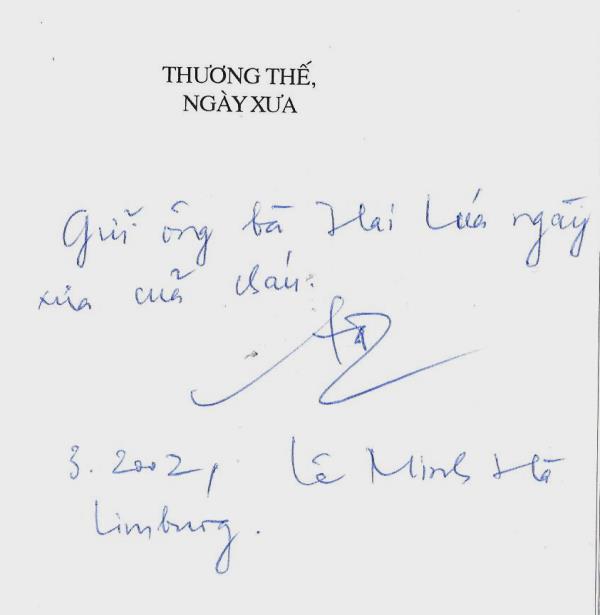 Hanoi Nostalgie
http://www.tanvien.net/sangtac/st01_days_saigon.html
Hanoi Nostalgie
http://www.tanvien.net/sangtac/st01_days_saigon.html
Hà Nội, thành phố có
hương thơm và mặt trời ve vuốt, thành phố mà Cẩn nói,
được dựng lên cho những nhớ nhung và mơ tưởng của một thời
trẻ dại, "con đường Trường Thi, hai hàng me bên đường vào
khoảng tháng sáu, tháng bẩy như thế này, lá
me bắt đầu rụng để lộ những nhánh cây nhỏ, những đứa trẻ háu
ăn đã vô ý tưởng là những quả me, và ngó
lên bằng cặp mắt thèm thuồng. Mùa hè vàng
nắng không còn, nhưng những ngày cuối mùa nóng,
người dân Hà Nội có thói quen trước khi ngủ mở
tất cả những cánh cửa sổ để đón gió mát, đột
nhiên trong đêm khuya, có những cơn gió lạ từ
đâu chợt tới, thổi thốc những chiếc lá khô bay phấp
phới, và người lớn vội vàng trở dậy đóng bớt cửa
sổ, "đó là những dấu hiệu đầu tiên báo hiệu
mùa thu trở về."
Niên học cuối của Lan
Hương ở bậc trung học bắt đầu bằng những buổi sáng sớm
giá lạnh xô đẩy trí nhớ tôi tìm
lại Hà Nội, tôi thức giấc sớm, thân thể rét
run, bàng hoàng tưởng như đang run rẩy trong một buổi
sáng nào đó trong Hà Nội, tưởng như chiến
tranh đã hết.
Anh NQT quí
mến,
Vừa nhận được Lần Cuối
Sài Gòn trưa nay. Đọc trên chuyến
xe lửa từ nhà trở lại sở. Đọc thích thú.
Đọc chia sẻ. Và đọc, không biết tại sao, lại rất buồn,
có lẽ những thành phố anh đang gợi lại đã
vĩnh viễn ngoài chúng ta, có phải thế?
Hà Nội là một
chiếc bóng đằng sau Sài Gòn. Sài
Gòn là một chiếc bóng đằng sau hiện tại.
Chữ gợi lại chập chùng những bóng. Những người
đã từng có mặt. Những chỗ ngồi. Những góc đường.
Những tàng cây.
Mới cách đây vài
hôm, đọc lại Rilke, toàn bộ thư của Rilke
và tập Duino Elegies, vẫn còn bần thần, vì
nhận ra, quả là đúng, chúng ta vừa nhìn
cái gì, là lập tức cái ấy đã
là nội tại, là mất đi. Mọi thứ đều đã là
Lần Cuối. Chúng ta tới đây, như để có mặt,
một lần, nhìn, [hai chữ không rõ nghĩa], rồi qua
đi.
Đọc mới xong phần đầu của bút
ký, và thơ, đã đầy cả Sài
Gòn của một thời kỳ kỳ lạ, tan hoang, lãng mạn,
đổ vỡ, và bi tráng của nó.
Cám ơn anh đã
gửi sách. Đã cho một buổi trưa [chấn động
như nhìn xuống con nước Thị Nghè, trưa có
mây - hay là “trưa cỏ may”?- chiều nhiệt đới,
mù trắng xa xa Thủ Đức].
Vài hàng viết
gấp kẻo anh trông, sợ sách có thể đi
lạc.
Sẽ đọc tiếp Lần Cuối tối nay.
Anh vẫn viết mạnh. Mong anh mãi được vậy.
TQ (1998)
Akhmatova: Kinh Cầu
Chẳng có ai người cười
nổi, những ngày đó
Ngoại trừ những người chết, sau cùng tìm
thấy sự bình an
Như 1 cánh tay thừa thãi, 1 sức nặng
vô dụng
Hà Nội đong đưa quanh Hỏa Lò
Hàng theo hàng, đám Ngụy diễu
[không phải diễn] hành,
Khùng vì đau, nhắm nỗi bất hạnh của
họ
Bài ca vĩnh biệt, sắc, gọn
Tiếng còi tầu chở súc
vật rú lên
Ngôi sao thần
chết đứng sững trên nền trời Hà Nội
Và xứ Bắc
Kít, ngây thơ vô tội,
Quằn quại dưới gót
giầy máu
Dưới bánh
xe chở tù.
Không phải tôi. Ai
đó đau khổ
Tôi làm sao chịu nổi nỗi đau đó
Hãy choàng nó bằng vải liệm
đen
Và mang đèn đi chỗ khác
Đêm rồi!

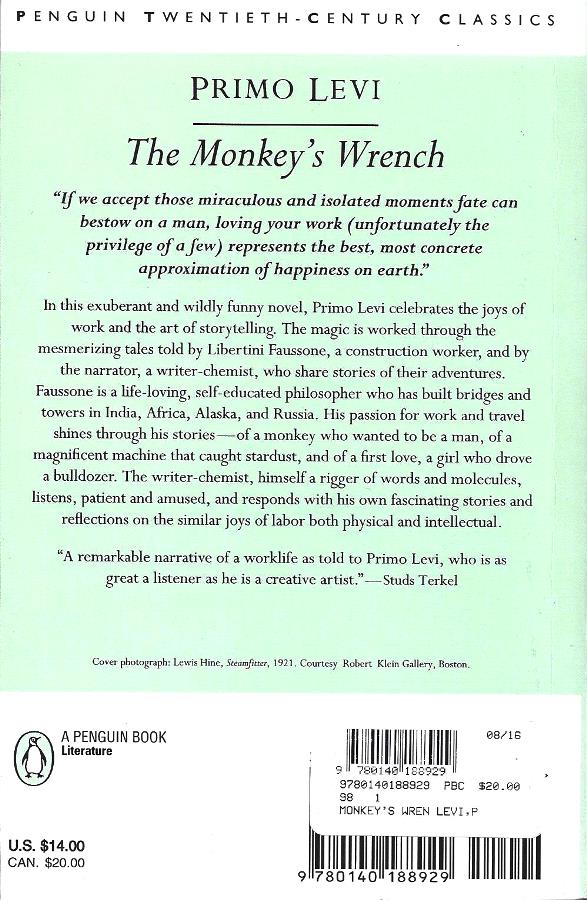
Nostalgie de la boue
La
nostalgie de la boue is alien to history’s victims.
Nỗi nhớ bùn thì
xa lạ, với những nạn nhân của lịch sử.
My Old Saigon
Anh NQT quí
mến,
Vừa nhận được Lần Cuối
Sài Gòn trưa nay. Đọc trên chuyến xe lửa từ
nhà trở lại sở. Đọc thích thú. Đọc chia sẻ.
Và đọc, không biết tại sao, lại rất buồn, có lẽ
những thành phố anh đang gợi lại đã vĩnh viễn ngoài
chúng ta, có phải thế?
Hà Nội là một
chiếc bóng đằng sau Sài Gòn. Sài
Gòn là một chiếc bóng đằng sau hiện tại.
Chữ gợi lại chập chùng những bóng. Những người
đã từng có mặt. Những chỗ ngồi. Những góc đường.
Những tàng cây.
Mới cách đây vài
hôm, đọc lại Rilke, toàn bộ thư của Rilke
và tập Duino Elegies, vẫn còn bần thần, vì
nhận ra, quả là đúng, chúng ta vừa nhìn
cái gì, là lập tức cái ấy đã
là nội tại, là mất đi. Mọi thứ đều đã là
Lần Cuối. Chúng ta tới đây, như để có mặt,
một lần, nhìn, [hai chữ không rõ nghĩa], rồi qua
đi.
Đọc mới xong phần đầu của bút
ký, và thơ, đã đầy cả Sài
Gòn của một thời kỳ kỳ lạ, tan hoang, lãng mạn,
đổ vỡ, và bi tráng của nó.
Cám ơn anh đã
gửi sách. Đã cho một buổi trưa [chấn động
như nhìn xuống con nước Thị Nghè, trưa có
mây - hay là “trưa cỏ may”?- chiều nhiệt đới,
mù trắng xa xa Thủ Đức].
Vài hàng viết
gấp kẻo anh trông, sợ sách có thể đi
lạc.
Sẽ đọc tiếp Lần Cuối tối nay.
Anh vẫn viết mạnh. Mong anh mãi được vậy.
TQ (1998)
1998
Trong số những nhà văn nhà
thơ hải ngoại, Gấu chưa từng quen biết, chỉ nghe đến tên,
chỉ đọc họ, những ngày đầu ra hải ngoại, lần ra sách
đầu tiên, cố tìm địa chỉ để gửi sách tặng, chỉ
có TQ là viết thư trả lời. Còn những tên
như nhà thơ ngồi bên tách cà phê,
không. Nhớ, lần đầu làm quen, gửi cho hắn 1 bài viết
về TTT, lúc đó hắn đang làm 1 trang báo,
hắn bèn tự nhiên như người Hà Nội, đăng liền, chẳng
thèm xin phép cái con mẹ gì.
Thời gian đó, hăm hở với giấc
mơ vá lại cái bướm nát tan của bướm
Mít, bản đồ Mít… như 1 ẩn dụ của Borges, Gấu
bỏ qua hết, báo nào cũng viết, nào gió
đông, nào cánh én, nào là
ta là gì, bị cả 1 bầy chó hải ngoại xúm
lại tính xẻ thịt con sói đơn độc, (1) bỏ qua hết, chỉ đến khi biết
rằng vô phương, vô ích, chỉ đến khi đó,
mới làm trang Tin Văn, hy vọng 1 thân 1 mình
làm được điều không 1 tên Mít nào làm
được, đâu có phải tự nhiên mà vị bằng hữu K chúc, đừng để ý đến
bất cứ tên nào, tẹt kệ cha tẹt, lõ kệ cha
lõ, chỉ làm thơ thôi!
Bằng hữu mà biết đến tận gan
tận ruột Gấu như thế, nhờ làm trang TV mà có
được, thì quá xứng đáng 1 đời lưu vong rồi,
còn đòi hỏi gì nữa?
Hà, hà!
(1)
Chôm từ 1 bài viết về DTH, trên
báo Tẩy
La louve solitaire de Hanoï
Manuel Carcassonne
16 février 2006
http://www.tanvien.net/dich/louve.html
Sách
& Báo

Cuốn sách cuối cùng
của Borges, là cuốn Conversations, và nó
gồm hai cuốn, cuốn thứ nhì cũng đã xb, nhưng Gấu đọc
tin văn trên 1 tờ báo mũi lõ, không nhớ tờ
nào, cho biết, cuốn thứ nhì dở, do Borges già quá,
trí nhớ lộn xộn rồi.
"Phần hồi ức con người"
của Kafka, thì cũng giống như 1954 của TTT, với hồi ức
Mít: Chúng ta không thể nào hiểu được 1954
nếu thiếu "Bếp Lửa", thí dụ vậy,
Nhưng chúng ta được biết
là chúng ta không thể có được cú
diễn giải trung thực về thời của chúng ta nếu không
có sự giúp đỡ của Kafka.
Đúng, nhưng K quan trọng
hơn thời của chúng ta. Thật thê lương,
K phải sống sót thời kỳ này, và những giản
lược của nó. Lẽ dĩ nhiên, chúng ta chịu đựng cái
thế kỷ này mà chẳng có lấy 1 tí tự hào,
Với tí hoài nhớ thế kỷ 19, mà nó thì
lại có tí hoài nhớ thế kỷ 18. Có lẽ Oswald Spengler có lý về cái
sự thoái trào mà chúng ta hoài
nhớ - hiển nhiên là chúng ta có thể nói
về cái thời cũ kỹ [trước 1975]
của chúng ta, và chúng ta có
lý, hơn lũ VC, tất nhiên. Bất cứ cái chó
gì dính dáng tới trước 1975, thì đều bảnh
tỏng cả!
Có em Carmen Gándara
đi 1 đường tiểu luận thú vị về Kafka, tôi mới đọc gần
đây. Em phán 1 phát cực lạ về Kafka: Xuyên
suốt đời mình, Kafka tìm kiếm một Thượng Đế “vắng mặt”
của thời của chúng ta.
Borges: Tôi bị hỏi hoài
về vụ này, mà thực sự không hiểu. (1)
Ý của tôi là, mặc dù
mọi chuyện, Kafka có thể là 1 tín hữu, hay
có 1 tinh thần tôn giáo.
Borges: Đúng như thế,
nhưng tinh thần tôn giáo thì không
cần phải tin vào một ông trời cá nhân. Thí
dụ tín hữu Phật Giáo đâu có tin vào
một ông Phật có hình hài giống… chúng
ta, đúng không, và chuyện đó đâu
cần. Cái ý tưởng tin vào 1 ông trời cá
nhân thì không phải là 1 yếu tố cần thiết trong
tinh thần tôn giáo. Những kẻ phiếm thần, hay Spinoza –
ông này thì thực là bí ẩn và
ông phán, “Deus sive natura”, Trời hay Thiên nhiên.
Hai thứ đó là một đối với ông ta.
(1)
Điều mà Borges,
bị hỏi hoài, mà thực sự không hiểu, theo
Gấu, chính là cái gọi là Tận Thế Là
Đây, mà xứ Mít cần, trong bài essay trên
tờ Harper's nhắc tới, dưới đây.
Thượng Đế vắng mắt, là để cho Tận Thế
xuất hiện.
Gấu nhức đầu, với câu hỏi này, cho tới khi cầm số báo
Harper's mới nhất lên...
Bây giờ chỉ có Tận Thế thì
mới cứu Mít ra khỏi Địa Ngục Đỏ do Cái Ác
Bắc Kít gây nên thôi!

For those who have never experienced
defeat, destruction, or exile, there is an undeniable charm
to loss
Với những kẻ chưa từng kinh nghiệm thất bại,
huỷ diệt, hay lưu vong, có 1 sự quyến rũ không
thể nào chối cãi được về mất mát.
Lũ Ngụy, chỉ đến khi vô tù VC, thì
mới hiểu được, chúng đánh mất Thiên Đường Miền Nam!

Ấn bản mới, có cái
intro, viết năm 1992, của tác giả.
Có thể nó là cuốn đầu
tiên của Le Carré, mà Gấu đọc, khi Saigon
tràn ngập sách Tẩy, thứ sách bỏ túi,
Livre de poche, qua chương trình IC, Thông tin &
Văn hóa, bán bằng giá ở Tẩy.
Đọc nhưng lại bỏ qua. Phải đến khi vớ được
cuốn Gián điệp đến từ miền đất lạnh,
cũng qua bản tiếng Tẩy, ở nhà sách Xuân Thu,
mới sững sờ.
Có thể nói, lúc đó, chưa tên Mít nào
biết đến Le Carré. Phải đến khi ở tù Bangkok,
thì mới lại gặp nó, qua bản tiếng Anh.
Với GCC, cuốn này bảnh hơn nhiều,
so với Gián điệp về từ miền đất lạnh, do hai đòn,
phải nói là của bậc thầy, trong nghề viết trinh
thám điệp viên nghẹt thở.
Đành phải mau, vì mấy cuốn
cũ Cô Út đem cho nhà thương, làm
từ thiện!
Bố đừng đọc sách nữa, vui với cháu
chẳng sướng hơn ư!
http://www.tanvien.net/Roman/goi_nguoi_da_chet_1.html
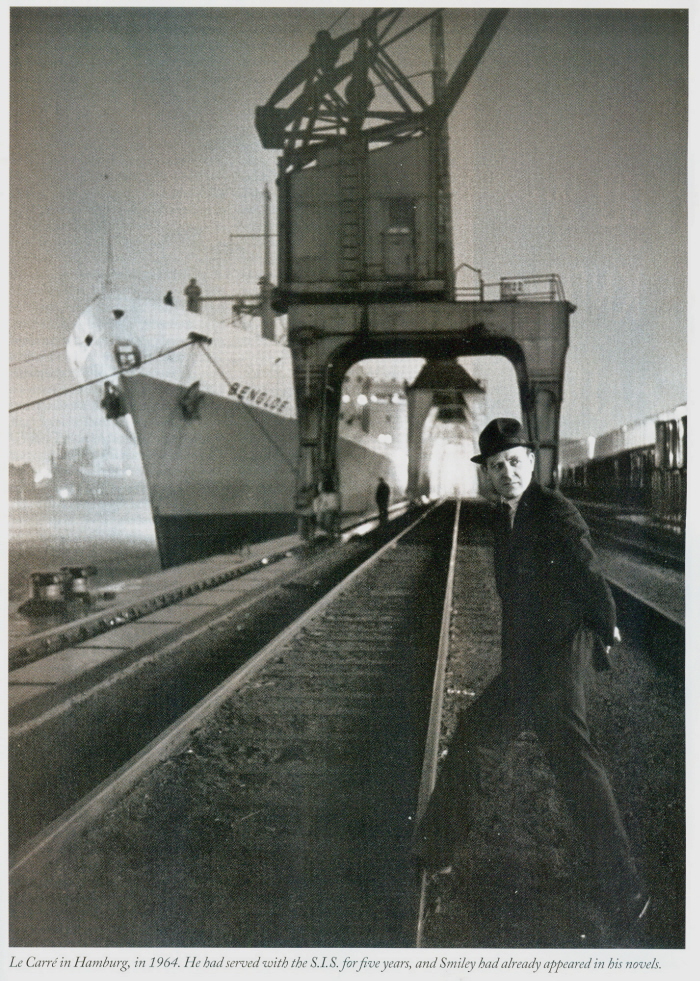
A CRITIC AT LARGE
I SPY
John le Carré and the
rise of George Smiley
http://www.newyorker.com/magazine/2011/12/12/i-spy-anthony-lane
Smiley is compared to a "surgeon
who has grown tired of blood":
Smiley được so sánh với 1 y sĩ giải
phẫu quá mệt mỏi với máu.
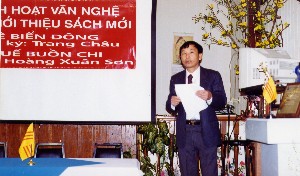

Bộ dạng hắn
như cũng phản chiếu sự thiếu thoải mái này dưới
dạng suy nhược thể chất, khiến cho hắn hơn bất cứ lúc nào,
ngày một thêm lọng cọng, giống y chang một con cóc.
Hắn nhấp nháy con mắt nhiều hơn, và mang thêm
biệt danh Chuột nhũi.
Nhưng cô thư ký mới vào nghề khâm phục
hắn, và luôn gọi hắn là "Gấu cưng" của tôi.


JOHN LE CARRÉ
GỌI NGƯỜI ĐÃ CHẾT
CALL FOR THE DEAD
Lời
giới thiệu:
John
Le Carré là bút hiệu của David Cornwell,
người Anh. Sinh năm 1931. Học Đại học Berne, Oxford. Dạy học
tại Eton. Sau làm Bộ Ngoại Giao, vì vậy ông
không được phép dùng tên thật khi viết.
Bút hiệu Le Carré, tiếng Pháp có nghĩa
là hình vuông, do ông tình cờ nhìn
thấy trên kính một cửa tiệm ở Luân đôn.
Tuần báo Time đã mô tả ông:
Người viết truyện gián điệp số một của thời đại ông
ta hiện đang sống. Và có lẽ của mọi thời.
Gọi Người Đã Chết, tác
phẩm đầu tay trong đó gói ghém tất cả ước
vọng của tác giả, muốn sử dụng thể loại gián điệp, một
hình thức phổ cập, đại chúng, dể giải quyết những vấn
đề lớn lao, như văn chương, chính trị, thời đại... Ông
còn muốn tìm lại cội rễ của nó, vốn bắt nguồn
từ bi hùng kịch Hy Lap. — Màn Cuối (The Last Act) trong
Gọi Người Đã Chết, độc giả, và có thể, chính
tác giả cũng không tiên đoán được kẻ thù
sẽ phản ứng như thế nào: Chúng sẽ làm một điều gì
đó. Chắc chắn như vậy. Chúng ta còn có
cơ hội...
Đối những độc giả quá
quen thuộc với Smiley, nhân vật chính của Le Carré
qua những tác phẩm The Spy who came in from the Cold, The
Smiley People... cơ hội đó là sự sụp đổ của chủ nghĩa
Cộng sản, chấm dứt Chiến Tranh Lạnh.

Cuộc song đấu Levi vs Roth tuyệt
lắm.
Note: Nhân ngày 16
tháng 8 năm nay, mừng tám bó, thân hữu
chúc, đọc khỏe, viết khoẻ.
Năm ngoái, K chúc, iêu
khoẻ (1)
Chẳng ai chúc, thôi, nghỉ đi
là vừa rồi!
Cô Út, nhân Bố đi chơi
với cháu, bèn chở cả kho sách đem cho từ
thiện!
Có rất nhiều cuốn, mới tinh, chưa
kịp đọc!
Tiếc nhất, là mấy cuốn của Walser!
Cuộc trò chuyện giữa Roth & Levi,
quả là thần sầu. (b)
GCC đọc, trên đường đi gặp bác
sĩ gia đình. Nhờ là 1 nhà hóa
học, mà cõi văn của Levi khác hẳn những người
viết khác, và ông sống sót Lò
Thiêu của ông, cũng nhờ nó. Roth coi đây
là “gift of fate”, quà của số mệnh, của Levi, và
cái mà ông nhà văn Mẽo cực thú, khi đọc The Truce,
1 tác phẩm của Levi, là “a mood of mourning and inconsolable
despair”: “nhân hậu và cảm động”, thì cứ dịch
đại như vậy, hà, hà! [Đúng ra là, 1 cách
tưởng niệm và 1 nỗi chán chường không làm
sao an ủi được]
Đây cũng là điều
GCC về già, nhận ra, khi nhìn lại cõi viết
lách của Gấu: Khác hẳn, đám Văn Khoa Mít,
nhờ là 1 chuyên viên kỹ thuật.
(1)
HAPPY 78TH BIRTHDAY.
Today at 6:01 PM
CHÚC LUÔN KHỎE ĐỂ GIỮ TIN VĂN
ĐỘC ĐÁO VỚI THƠ VÀ SINH HOẠT VĂN CHƯƠNG THẾ GIỚI
.
CHÚC LUÔN NHỚ ĐỂ NHỮNG "ĐỜI"
TRƯỚC MÃI VẪN ĐẬM TRONG KÝ ỨC
CHÚC LUÔN QUÊN ĐỂ NHỮNG
"THNM" MẤT DẤU BỚI HOÀI TRONG TRÍ VẪN KHÔNG
RA
CHÚC LUÔN AN ĐỂ HƯỞNG HẠNH
PHÚC BÊN CẠNH NHỮNG NGƯỜI THÂN YÊU
ĐANG HIỆN DIỆN
K
Đa tạ.
GCC

hãy thêm củi vào
lò
đốt cho cháy hết những tháng
năm này
để mùa đông dài
thật dài
và chén đắng cay tưởng
không bao giờ cạn
và chén đắng cay
tưởng không bao giờ cạn:
Tuyệt!
Tks
NQT
Nhớ là Kundera có nhận xét,
cái gì gì, "chúng ta có một
đời để sống", nhảm. Một đời thì sống làm khỉ gì.
Phải vài đời, nhiều đời, đời đời.
Gấu Cà Chớn cũng nghĩ như thế,
và cũng đã kể về vài đời Gấu đã
từng trải qua. Luôn cả 1 tiền kiếp của GCC.
Trong những cuộc đời như thế, khủng
nhất là cuộc đời dởm, chẳng có gì hết,
vậy mà cực kỳ thê thương….
Ui chao, Vargas Llosa cũng phán
như thế, và không chỉ phán, mà còn
đi cả 1 cuốn tiểu thuyết về nó, và ông coi đó
là giấc mơ của 1 tên… Bắc Kít, Ái Nhĩ
Lan.
Each one of us is, successively,
not one but many. And these successive personalities that
emerge one from the other tend to present the strangest, most astonishing
contrasts among themselves.
-Jose Enrique Rodó,
Motives of Proteus
“The Dream of the Celt” is a moral tale.
It is about the choice between denial or denunciation in the
face of evil, and the fine line between activism and fanaticism.
That makes an old story strikingly contemporary.
“Giấc mơ của tên Bắc Kít,
GCC” là một câu chuyện đạo đức. Đó là
về sự chọn lựa giữa nói “Không” với cái Cái
Ác Bắc Kít – hay là ị vào mặt Bắc Bộ
Phủ như 1 bà nhà văn cũng Bắc Kít đã
từng làm – và sợi dây mỏng dính, đẹp tuyệt
vời, như sợi sữa, trong 1 bức danh họa, (2) giữa hành
động và cuồng tín.
Mỗi tên GCC trong chúng
ta, là tiếp diễn của, không phải một, mà
là nhiều tên GCC. Trong số những tên GCC, tên
nọ tiếp tên kia như thế đó, sẽ có 1 tên
cực là khủng, chứa chấp trong nó, những tương phản
lạ lùng nhất, kinh ngạc nhất - bảnh nhất trong những tên
GCC - giữa chúng.
Chắc là tên GCC làm trang
Tin Văn?
Hay là tên chạy theo em
BHD, khóc như cha chết ở Đại Lộ Cộng Hòa, bên
ngoài cổng trường Đại Học Khoa Học?
Hay là tên khóc thằng
em trai, tử trận, khiến một em không làm sao nỡ bỏ
đi, lấy sữa cho con uống? (2)
Hay là…
Hay là...
Hà, hà!
(2)
Ui chao, đọc ba chớp ba nháng, as always,
tưởng em không nỡ bỏ đi lấy chồng, hóa ra, con khóc,
khát sữa, đi lấy sữa cho con!
(b)
[Roth]… You appear to be someone who requires,
above all, rootedness-in his profession, his ancestry, his
region, his language-and yet when you found yourself as alone
and uprooted as a man can be, you considered that condition a gift.
Levi:
A friend of mine, an excellent doctor, told
me many years ago: "Your remembrances of before and after are
in black and white; those of Auschwitz and of your travel home
are in Technicolor." He was right. Family, home, factory are good
things in themselves, but they deprived me of something that I
still miss: adventure. Destiny decided that I should find adventure
in the awful mess of a Europe swept by war.
A Conversation with Primo
Levi

https://literaryreview.co.uk/
T ờ
Điểm Sách này của Ăng Lê, khác nhiều
lắm, so với Mẽo, hoặc Tẩy.
Mắc hơn nữa!
Anna Reid
‘Things only ever got worse’
Second-Hand Time: The Last of Soviets
By Svetlana Alexievich (Translated by Bela Shayevich)
Fitzcarraldo Editions 695pp £14.99 order
from our bookshop
Literary Review - Britain's best-loved Literary
Magazine
Until recently, Svetlana Alexievich was little
known outside the world of Russian studies. That changed last
October, when she was awarded the Nobel Prize in Literature, becoming
the first ever Belarussian and the first non-fiction writer since
Winston Churchill to receive it. Since the start of her publishing
career in the mid 1980s, her theme has been the tragic past of the former
Soviet Union, as recounted by multiple individuals in their own voices.
Hundreds of subjects are interviewed at length, some repeatedly and
over many years. The resulting transcripts are edited down to anything
from a one-line snippet to a chapter-length monologue and presented
to the reader with minimal biographical information and little or no authorial
comment.
Best known abroad of Alexievich’s books is Zinky
Boys, the title taken from the zinc coffins in which Soviet soldiers
killed in the Soviet–Afghan War were transported home. Most recent
is Voices from Chernobyl, which gathers together first-hand accounts
of the nuclear disaster. Ten years in the making, Second-Hand Time
is her longest and most ambitious work to date. Her subject, she
explains, is the Homo sovieticus or, pejoratively ‘sovok’, meaning
someone ineradicably formed by the Soviet Union. ‘People who have
come out of socialism’, she writes, ‘are both like and unlike the rest
of humanity – we have our own lexicon, our own conceptions of good
and evil, our heroes and martyrs. We have a special relationship with
death.’
RUSSIA & CRIMEA
32 Douglas Smith
The House of the
Dead· Siberian Exile under the Tsars
Daniel Beer
33 Anna Reid
Second-Hand Time:
The Last of the Soviets
Svetlana Alexievich
35 Donald Rayfield
Crimea: A History
Neil Kent· The
Crimean Tatars: From
Soviet Genocide to Putin's Conquest
Brian Glyn Williams
Bài điểm cuốn Second-Hand
Time, tuyệt. GCC mua số báo vì bài
điểm này.
Trong khi chờ đợi, độc giả TV đọc
đỡ bài trên báo Mẽo
Book Review | Nonfiction
‘Secondhand Time,’ by Svetlana Alexievich
By ADAM HOCHSCHILDMAY 27, 2016
http://www.nytimes.com/2016/05/29/books/review/secondhand-time-by-svetlana-alexievich.html?_r=0
Số này còn có
bài điểm cuốn thứ nhì, sau cuốn
Kẻ Phản Thùng của anh Mít Mẽo được Pulitzer:
Chẳng có gì chết đi, Nothing
Ever Dies.
Người điểm là Jonathan Mirsky.
A Right Way to Remember?
Nothing Ever Dies: Vietnam and the
memory of War
Cách đọc, của ông,
cũng cách viết về cuộc chiến Mít, của Viet
Thanh Nguyen, theo GCC, lỗi thời rồi.
Trong bài điểm cuốn sách
của Bà Nobel, có 1 câu
thật tuyệt, cho thấy cái lỗi thời của cả hai:
Chỉ 1 tên Xô Viết mới
hiểu được 1 tên Xô Viết khác.
Only a Soviet person can understand
another Soviet person
Phải 1 tên Bắc Kít
thì mới hiểu 1 tên Bắc Kít khác!
Cách
đúng để nhớ?
Theo Mirsky, VTN có ba cách,
Nguyen actually perceives three kinds of memory of the
war.
Vẫn thiếu 1 cách.
Đúng hơn, thiếu yếu tố Tẫu.
Ông chủ không biết trong
nhà của mình có gì, cô
tớ gái trong Y sĩ đồng quê
của Kafka, phán.
Thiếu con quỉ nơi chuồng heo.
Khi Hồ tới Moscow, đúng thời
gian Xì thanh trừng đám cựu trào.
"Cái gì" khiến Xì
tha mạng Hồ?
Xì tha Hồ, vì đã
giao tính mạng Hồ, và số phận xứ Mít,
cho.... con quỉ nơi
chuồng heo!
Đám Mít, con cái
Ngụy, lớn lên ở Mẽo, do cũng thuộc nhóm thiểu
số, bị khinh khi, ngay từ khi còn nhỏ, khi còn đi
học, phải
vượt qua được cái mặc cảm/bất hạnh này, thì
mới viết lách được, theo GCC.
SECONDHAND TIME
The Last of the Soviets
Thời gian xài rồi xài
lại:
Kẻ Cuối Cùng của những tên
Xô Viết
[Tạm dịch cái tít]
By Svetlana Alexievich
Translated by Bela Shayevich
470 pp. Random House. $30.
Svetlana Alexievich has said that
when she assembles one of her remarkable collections of
oral histories she is constructing a “novel in voices.” In
this latest book, one voice is of a woman who seems to have stepped
out of a tale by Chekhov. With three children, she is married
to a good man who loves her. But then, on the strength of a photograph,
she decides that someone else is the man she really loves — whom she
once saw in a dream. He, however, is in prison, serving a life sentence
for murder.
To top it off, his prison is a converted
monastery, with walls five feet thick, on an island in an
isolated northern lake. She divorces her husband, abandons
her children, marries the prisoner, whom she is seldom allowed
to see, and finds a low-paying job nearby. Then they quarrel and
she disappears.
But recent history has added a twist
Chekhov could not have imagined. This prisoner committed
his murder in what was then still the Soviet Union. If he
is ever released, it will be into a radically different Russia, where,
as one of Alexievich’s interview subjects says, “the discovery
of money hit us like an atom bomb.” It is the contrast between these
two countries — as felt by people living in the second but remembering
the first — that is the subject of “Secondhand Time,” her first book
to appear in English since she won the Nobel Prize in Literature last
year. (It appeared in Russia in 2013.)
As in many a Chekhov story, few
of the people she records are happy. “There is something
in the Russian spirit,” she said in her Nobel lecture, “that
compels it to try to turn . . . dreams into reality.” This was
true of the woman who loved the prisoner, and it was also true
of the Russian people as a whole, who lived, for some 70 years,
in a society ostensibly based on a dream of human brotherhood that
turned out to be something catastrophically different.
Among believers in the dream of
Soviet Communism, Alexievich finds a nostalgia for its
achievements and a deep sense of loss. Quite poignantly, she
zeros in from several angles (press reports, official documents,
an interview with someone who knew him) on Marshal Sergey Akhromeyev,
who was said to be a supporter of the 1991 coup attempt against
Mikhail Gorbachev, and who hanged himself in his Kremlin office
when it failed. “I cannot go on living,” he wrote, “while my Fatherland
is dying and everything I heretofore considered to be the meaning
of my life is being destroyed.” In a final humiliation, symbolic of
the crass market society replacing Akhromeyev’s beloved Communism,
his grave was robbed and his uniform, cap and medals — all of which
now fetch high prices from antique dealers — were taken.
Alexievich also describes another
military suicide. Anyone who spent time in the old Soviet
Union will remember the immense honors lavished upon World
War II veterans. One, Timeryan Zinatov, won a medal for his role
in defending the famous fortress at Brest, and then fought through
the rest of the war. A construction worker in Siberia, he returned
to the fortress, the scene of his moment of glory, every year. In
1992, shocked by the new Russia, where brand name fashion accessories
mean more than war medals, he came back one last time to Brest, which
by then was in a different country, Belarus. Then he threw himself
under a train, leaving a message asking to be buried in the fortress.
Continue reading the main story
It’s more surprising that Alexievich
finds similar true believers among those who suffered the
very worst Soviet fury. A onetime factory director, for instance,
had been arrested during Stalin’s Great Purge of the late 1930s,
beaten, tortured, hung “from hooks like it was the Middle Ages!”
After the interrogator is done with you, he says, “you’re nothing
but a piece of meat . . . lying in a pool of urine.” Luckier than
millions, he was released after a year: “It had been a mistake.”
In the army in World War II, he
ran into his former interrogator, who now said to him,
“We share a Motherland.” The Soviet dream, as much about patriotism
for the Motherland as about utopia, offered a universe of certainties
despite “mistakes,” even to those who were its victims. For
this factory director, in his retirement, tells Alexievich that
he feels “surrounded by strangers” in the new Russia. “When I go
into my grandchildren’s room, everything in there is foreign: the shirts,
the jeans, the books, the music. . . . Their shelves are lined with
empty cans of Coke and Pepsi. Savages!” He finishes: “I want to die
a Communist. That’s my final wish.”
Despite their oppressive “mistakes,”
empires of all kinds keep a lid on things, and one of the
tragedies of the post-Soviet world — as it was of post-British
India and of the post-Tito former Yugoslavia — is the upwelling
of long-contained ethnic and religious strife.
Among those whose voices Alexievich
brings us is an Armenian woman married to an Azerbaijani.
In Soviet times, they lived in Azerbaijan’s capital, Baku,
“my favorite city . . . in spite of everything! . . . I don’t remember
any discussion of . . . nationalities. The world was divided
up differently: Is someone a good or bad person, are they greedy
or kind?” To welcome spring, everyone in her apartment building
— Armenians, Azerbaijanis, Georgians, Russians, Ukrainians —
would share food around a long table in the courtyard. Then, as
the Soviet Union collapsed, demagogues everywhere whipped up tensions.
The bodies of murdered Armenians appeared on the streets. Azerbaijanis
attacked her husband, beating him with iron rods, for being married
to an “enemy.” She asked her mother, “Mama, did you notice that the
boys in the courtyard have stopped playing war and started playing
killing Armenians?” When she fled for her life to Moscow, her husband’s
family refused to pass on her phone messages to him — and claimed to
her that he had remarried. Years later, he finally made it to Moscow
too, where they now live, illegally and traumatized.
I have a few minor quibbles with
the way Alexievich weaves her rich tapestry of voices. Although
the interviews are grouped by decades (1991-2001, 2002-12),
she does not tell us whether she talked to someone in 1991, when
the enfeebled Soviet Union was still alive, or in 2001, when
it was 10 years dead. She uses many ellipses in each paragraph,
which show how a monologue has been edited but give it a slightly
spacey and disjointed feel. And unlike her distinguished American
counterpart Studs Terkel, who sometimes set the scene in a headnote
to an interview, she gives us little or no background on her subjects,
usually just something as cryptic as “Olga V., surveyor, 24.” And
when she does provide a rare headnote, her own editorial voice can intrude:
“Sometimes I think that pain is a bridge between people, a secret connection;
other times, it seems like an abyss.” There is no need for this:
She has successfully bridged the abyss.


Hai số báo trên, cùng
1 đề tài: Phép Lạ Hy Lạp
http://www.magazine-litteraire.com/critique/greene-la-gr%C3%A2ce-intranquille-0
Greene, la grâce intranquille
Par Pierre Assouline dans Magazine
Littéraire 569
daté juillet-août 2016 - 1375
mots
Converti au catholicisme, le Britannique
conjuguait la foi et le doute : il fut toujours hanté
par le vertige de la déloyauté.
Un retour en grâce des romans de Graham
Greene en librairie serait un signe des temps. Un peu comme si
Mauriac et Bernanos surgissaient dans la liste des meilleures
ventes. Tous trois étaient baptisés « écrivains
catholiques », label que le Britannique rejetait : «
On peut être écrivain et catholique sans être
écrivain catholique », disait celui qui avait déserté
la foi anglicane des siens à 22 ans pour trouver refuge
sur l'autre rive, du côté des minoritaires jadis persécutés.
Dieu, la Grâce, le Salut, dans cet ordre et sans oublier les
majuscules : La Puissance et la Gloire, Le Fond du problème
et La Fin d'une liaison n'ont cessé de tourner autour, en
un temps où nombre de lecteurs à travers le monde partageaient
le grand souci métaphysique, sans oublier Rocher de Brighton,
tout aussi travaillé par l'intranquillité spirituelle.
Depuis, il semble que l'inquiétude ait modifié ses paramètres,
ce qui ne va pas sans retirer une certaine profondeur à la
fiction contemporaine, l'adultère ne conduisant plus à
la sainteté. Même le constant éloge de la déloyauté
risque fort de paraître inactuel en nos temps de surveillance
des moeurs et des esprits par le politiquement correct. N'empêche
que la souffrance issue de la trahison tourmente l'essentiel de l'oeuvre
de Graham Greene. L'écrivain nous entraîne dans le labyrinthe
des couples illégitimes, de l'amour à la haine en passant
par la jalousie, le spectre de l'ennui, l'excitation du danger, les délires
d'interprétation, et ce doute incessant qui corrode les âmes
les mieux armées plus profondément que toute culpabilité.
La Fin d'une liaison est l'un de ses romans
dont l'empreinte sur le lecteur est la plus prégnante.
C'est le troisième volet d'une manière de trilogie
sur la question de la grâce divine. Un homme et une femme, à
Londres, pendant la guerre. Elle est mariée à un fonctionnaire
civil, il est écrivain et célibataire ; leur rencontre
est un coup de foudre. Un jour, alors qu'ils se retrouvent dans
une chambre d'hôtel, une bombe allemande leur tombe dessus.
Pendant quelques minutes, elle est convaincue qu'il est mort sous
les décombres. Lorsqu'il réapparaît, elle met
un terme à leur relation, sans explication. Craignant qu'elle
ait changé d'amant, il la fait suivre par un détective
: en fait, elle se rend régulièrement chez un ecclésiastique...
Pour la première fois, Graham Greene usait du « je
» dans un roman. À une rupture dans sa vie devait correspondre
une rupture dans son style. Il savait qu'on n'est jamais mieux masqué
que lorsqu'on écrit à la première personne. L'histoire
de cette folle passion amoureuse était la sienne. À
sa parution, en 1951, le roman était dédié à
une mystérieuse « C. ». Après la mort de
l'écrivain, des biographes révéleront qu'elle
s'appelait Catherine, qu'elle était l'épouse de lord Walston,
haute personnalité travailliste ; elle fut sa maîtresse
de 1946 à 1957, mais jamais ils ne se déprirent l'un de
l'autre, leur correspondance jusqu'à la toute fin en témoigne.
Il ne l'aimait pas : il l'adorait. Quand Catherine disparut, il envoya
un message de condoléances à son mari, lequel répondit
: « Vous lui avez donné quelque chose, j'ignore quoi, que
personne d'autre ne lui avait donné. » Elle-même,
dans sa dernière lettre, lui avouait : « Il n'y a jamais
eu quelqu'un comme toi dans ma vie. » On s'en doutait, mais on en
a la confirmation : sa vie fut son meilleur roman.
Vingt-six romans et un grand nombre de nouvelles,
traduits en quarante langues, entre 1926 et 1990. À quoi
il convient d'ajouter des milliers d'articles, une correspondance
très fournie, le noircissement quotidien de petits carnets
et d'agendas Hermès. Graham Greene, dont rien ni personne
ne bridait la curiosité, a touché à tous les genres
: roman policier (Un Américain bien tranquille), roman de
divertissement (Notre agent à La Havane), roman d'espionnage
(Le Facteur humain), thriller (Le Ministère de la peur), essai
autobiographique (Une sorte de vie, Les Chemins de l'évasion),
scénario (Le Troisième Homme), pamphlet (J'accuse),
lettre au courrier des lecteurs des grands journaux, une anthologie
des plus savoureuses dans le registre de l'understatement (Avec mes
sentiments les meilleurs), et jusqu'à l'interprétation
de ses rêves (Mon univers secret). On allait faire l'impasse,
impardonnable s'agissant d'un écrivain britannique, sur les
nouvelles, dont il évoquait le goût comme « une
boisson fraîche dans une bouche brûlante ». Le meilleur,
et donc le plus troublant et le plus ambigu, y est reflété
d'un écrivain qui admirait Dickens et Conrad, avant d'être
lui-même admiré par John Le Carré ; c'est peu dire
qu'il a inspiré ce dernier, du moins pour le tourment de la trahison.
On est ce qu'on reçoit et ce qu'on transmet
à condition de créer son petit quelque chose dans
l'intervalle. Graham Greene ne dissimulait pas que l'écriture
était pour lui une thérapie. Le remords lui était
si naturel qu'il continuait à remettre ses livres sur le
métier après publication. D'une édition à
l'autre, les corrections se poursuivaient, jusqu'à transformer
le texte en palimpseste. Ses archives déposées à
l'université d'Austin, Texas, pourraient être considérées
comme faisant partie de ses oeuvres complètes tant elles sont
riches et édifiantes. Avant de les verser, ou plutôt
de les vendre aux Américains, il en conservait certaines chez
lui, c'est-à-dire chez sa compagne française, Yvonne
Cloetta, à Antibes. Il m'avait notamment montré dans
un grand éclat de rire le dossier que le FBI avait constitué
sur lui, le fichant tel un dangereux révolutionnaire. Conséquence
moins drôle : alors que son nom était régulièrement
évoqué dans les années 1950-1960 comme nobélisable,
il était systématiquement barré en raison de
sa réputation de « crypto-communiste ». Graham Greene
aimait la France, qui le lui rendait bien. Les lecteurs faisaient fête
à ses traductions et souvent aux films adaptés de ses
romans. Une saga qui avait commencé le jour où, ayant
reniflé le dernier Greene dans une librairie de Londres à
la fin des années 1940, un jeune éditeur marseillais,
un certain Robert Laffont, s'était présenté tout
simplement au domicile de l'écrivain pour lui dire son désir
de le publier en français et de signer un contrat, lequel fut
tacitement renouvelé pendant des décennies. À
la fin des années 1980, comme le romancier passait par Paris,
l'éditeur lui fit la surprise d'organiser une projection privée
sur grand écran du chef-d'oeuvre dont il avait été
le scénariste : Le Troisième Homme de Carol Reed ; et,
pour y avoir assisté assis entre l'un et l'autre, je puis témoigner
de l'intensité de l'estime et de l'amitié qui lient parfois
un auteur et son éditeur.
Greeneland ! L'intéressé détestait
cette AOC qui nimbait son oeuvre. Pourtant, cet univers métaphysique,
et même psychologique, se reconnaissait d'emblée.
François Gallix, l'un de ses meilleurs connaisseurs, le ramasse
ainsi : « Un arrière-plan très typé donnant
une fausse impression de réalisme et dont la couleur locale
n'est pas totalement absente, tout en étant très imprégné
de symbolisme, avec des personnages entre deux âges, esseulés,
à bout de course, aux vies souvent ratées - anti-héros
solitaires qui sont amenés à faire des choix cruciaux
tout en étant capables d'actes de courage. » Encore
faut-il préciser qu'un mot clé ouvre la porte de ce monde
gris, à la frontière entre le bien et le mal : seediness,
que l'on rendrait improprement par « sordidité »
ou « sordidisme ».
Pour avoir eu le privilège de passer
une journée à bavarder avec lui à bâtons
rompus, à l'écouter regretter d'être passé
par Moscou sans avoir revu son ami, le traître Kim Philby,
dénoncer les clowneries et ragots d'Anthony Burgess à
son endroit, démentir qu'Orson Welles ait été
l'auteur des dialogues les plus célèbres du Troisième
Homme, ce que l'acteur s'attribuait publiquement (« Et pendant
ce temps, qu'a inventé la Suisse ? Le coucou ! »), je
me souviens notamment d'une phrase : « A novel is never what it
is about. » Tout romancier devrait la garder à l'esprit,
tout lecteur aussi : un roman, ce n'est pas un sujet, ça parle
de tout autre chose que ce qui est annoncé. Bienvenue dans ce
territoire de l'imaginaire aux frontières si floues, mais si
prégnantes qu'il faut s'en échapper pour savoir qu'on
y a été. Un monde où la déloyauté est
une vertu, où tout se passe la nuit, où il pleut tout
le temps et où celui qui tire les ficelles de l'histoire se fait
toujours l'avocat du diable pour les individus hors limites.
Greene, Ân sủng đếch trầm lặng
.
The Virtue of Disloyalty,
Đạo hạnh của Cái Bất Trung, một trong những nỗi nhức nhối của
GGG, và cũng còn là tít 1 bài viết/đáp
từ của ông, khi nhận giải thưởng Shakepeare Prize của Đại Học
Hamburg, 6 June, 1969, có trong Reflections
Reflections là
những bài viết ngắn, về đủ thứ, những chuyến đi, những
bài điểm sách, điểm phim, giới thiệu sách.
Trong có hai bài thật thú. Một, về những tiệm bán
sách cũ, và một, tưởng niệm Borges, cũng là kỷ
niệm lần Greene gặp Borges. TV sẽ chuyển ngữ cả hai.
Bài về những tiệm sách
cũ làm Gấu nhớ tới những tiệm sách cũ ở khu Chợ
Đũi, cũng một thiên đường tuổi mới lớn của Gấu cùng
với Sài Gòn. Thời gian quen HPA. Gấu đã kể
về chúng trong một bài viết cũ. Đọc bài viết của
Greene còn làm Gấu nhớ tới cái tiệm sách
cũ nằm giữa một con hẻm giữa hai bức tường, của hai căn nhà
trên con phố Catinat, cũng gần Quán Chùa. Gấu thường
ghé đó, cùng với ông Hưng, AP man. Cũng một
trong những đền thiêng của VNCH, và cũng bị VC ủi sập, cùng
với Givral, Passage Eden, Quán Chùa.
Tôi không biết Freud
giải thích thế nào về chúng, nhưng trong
hơn ba chục năm, những giấc mơ hạnh phúc nhất của tôi,
là về những tiệm bán sách cũ: những tiệm trước
đó tôi chẳng hề biết, hoàn toàn vô
danh đối với tôi, hay những tiệm quen thuộc, cũ xưa mà
tôi đang ghé.
Đó là những tiệm sách
quen chẳng hề hiện hữu; tôi thật ngại ngần và đành
phải đi đến kết luận như vậy.
Đâu đó, không xa Gare du
Nord ở Paris tôi vẫn còn nguyên những kỷ
niệm tươi rói về một tiệm sách ở cuối một con phố dài
chạy mãi lên một đỉnh đồi, một tiệm sách sâu
hun hút, với những quầy, giá sách cao thật cao,
và cao như tôi mà cũng phải dùng tới một
cái thang, để lục lọi những giá sách gần đụng trần
nhà. Trong ít ra là hai lần, tôi đã
lục lọi như vậy, và tôi tin rằng, đã vớ được bản dịch
một cuốn của Apollinaire, nhà xb Fanny Hill, trong một lần
đó.
Nhưng khi chiến tranh chấm dứt tôi cố
tìm tiệm sách cũ trên, vô ích,
vô phương.
Lẽ dĩ nhiên, tiệm có thể biến
mất, nhưng con phố, chính nó, cũng đếch còn.
Thế mới quái!
Rồi còn một tiệm sách cũ của
London, nó cứ trăn trở, đi đi lại lại hoài, trong
những giấc mộng của tôi; tôi có thể nhớ ra thật
là rõ ràng mặt tiền của nó, nhưng chịu
thua, phía bên trong tiệm. Nó đứng đâu
đó trong khu đằng sau Charlotte Street trước khi bạn tới Euston
Road. Tôi chưa từng đi vô bên trong tiệm, và
bây giờ thì tôi tin chắc là làm đếch
gì có cái tiệm quỉ quái đó, và
tôi luôn luôn tỉnh giấc mơ với cảm giác, ôi
chao, sướng ơi là sướng nếu mình kiếm thấy nó.
Graham Greene
Ui chao, không lẽ
Sài Gòn, Khu Chợ Đũi, BHD, Quán Chùa.....
của Gấu, thì cũng chỉ như một trong những tiệm sách
cũ, như trên, của Greene?
Nhưng, giả như thế, thì lại càng
tuyệt, tuyệt!
Bởi vì rõ ràng là,
khi dịch Istanbul, Gấu cũng
có cảm giác như vậy, không phải về những con phố
của Istanbul của Pamuk, nhưng mà là của Sài Gòn.
Những đoạn phóng bút, là về Sài Gòn,
về BHD của Gấu, không phải về Istanbul, về BHD của Pamuk!
Một thân hữu nhận ra điều
này, khi viết:
Những mối tình e ấp ,
sót lại những sợi tơ vương vướng đâu đó
trong tâm hồn phần đông trong chúng ta, không
giống như vết dao vẫn còn tươm máu mãi trong “Lan
Hương” của tác giả Nguyễn Quốc Trụ . Anh có thể lồng
bóng mình và người yêu một thời (và
một đời) của mình gần như vào bất cứ một mối tình
văn chương nào mà anh đọc đến, chỉ cần mối tình
ấy là một mối tình lý tưởng, trong trắng và
mù quáng đến rũ rượi . Đọc truyện tình của anh,
K có cảm tưởng như nếu giả thử cần bắt đầu lại, thì
anh cũng sẽ lao vào cuộc tình như thế, không ngần
ngại chút nào, chỉ lại để được đau đớn một cách
hạnh phúc.
Ui chao Gấu Cái đọc đoạn trên,
lắc đầu!
Di sản của Yêu
Love is haunted by loss; generosity
is haunted by guilt.
Yêu bị ám ảnh bởi
mất mát; rộng lượng, khoan thứ thì bị ám
ảnh bởi tội lỗi
Introduction
Emily Dickinson refers to two legacies
in one of her poems; one of love and one of pain, the latter'
capacious as the sea'. Love and pain, love and loss: the two
are twinned. To know love is to know (or to imagine) the loss
of love.
In some cultures,
of course, the risk of love is much greater than the potential
loss of that love. In Nigeria, and in many other countries
around the world, homosexuality is criminalized. Pwaangulongii
Dauod's essay in this issue, 'Africa's Future Has No Space
for Stupid Black Men', is about C. Boy, a student activist who
formed a gay club to support LGBT people, some of whom were shunned
by their families, and vulnerable to state persecution. Running
such a club is a crime in Nigeria, punishable by up to ten years
in prison. Homosexual cohabitation can lead to jail terms of up
to fourteen years, and worse in the northern areas which have adopted
sharia law.
Dauod's essay,
sent to me by Binyavanga Wainaina, founding editor of Kenyan
literary magazine Kwani?, shows the dangers
of state-sponsored homophobia: fear, concealment, suicide. It
also shows resistance. This essay is not only about homophobia
- it is also about the relationship between individuals and the
state, and a movement of hope and regeneration.
Each story in this issue is about
love. Patrick Flanery writes about adoption: 'I find him
in front of the painting. Though you can't tell much about
the boy in the picture, he must be about the same age as the
boy standing there on the carpet in the living room, the boy who
is now, I remind myself, my son.' The boy is six, previously neglected
and somewhat feral; he creates disorder in the aesthetic space
and the well-ordered life. The painting Flanery refers to is by
South African artist Kate Gottgens. It depicts a boy with a tied-on
tail and an enigmatic smile, his pose watchful and energetic - you
can see it on page 68. Flanery's story evokes the question of how
love emerges when you adopt a child of that age, in the context of damage
and transition between families, between cultures, and between neighbourhoods.
Like Erica jong,
the Danish writer Suzanne Bragger wrote freely about sexuality
and women's liberation. This extract from her diaries, translated
by the author, is a time piece of the 1980s.
Brogger is in love,
but she is also stalked; the stalker does not accept her new
relationship, and may love her, or perhaps he hates her. It's
hard to know: the narrative of stalking hasn't settled yet.
Claire Hajaj tells
the story of one of Syria's refugees in Lebanon. It's a
true story, and one in which Claire and her husband were closely
involved. Thanks to them, it ended well, but Hajaj's narrative
is haunted by all the other stories, the refugees we walk away from
without helping: 'They turn us into moral cowards; the more reasons
they give us to stop, the faster we walk, and the tighter we cling
to the belief that we have some useful, urgent destination.'
Love is haunted
by loss; generosity is haunted by guilt.
Kathleen Collins was an African-American
film-maker, artist, educator and writer. We lead with the
title story of her hitherto unpublished collection of stories,
'Whatever Happened to Interracial Love?'. The narrator is a young
black woman, relatively privileged- she has been to college, the only
black woman of her cohort at Sarah Lawrence; she is in love with
a white civil rights activist, she lives on the Upper West Side, she
hangs out with poets and community organisers.
'It's the
year of "the human being"', Collins writes, 'The year of race-creed-color
blindness. It's 1963.' She ironically identifies the race of
each character in brackets and quotation marks: ('white'), or
('negro') - an oblique comment on the reality of that race-creed-
color blindness'.
The author ends
her story: 'It's 1963. Whatever happened to interracial love?'
It's 2016. Whatever
did happen to interracial love, and to 'race- creed-color
blindness'? +
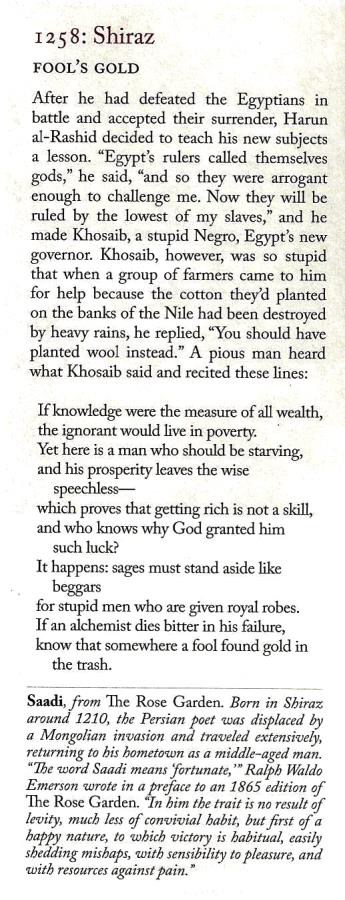
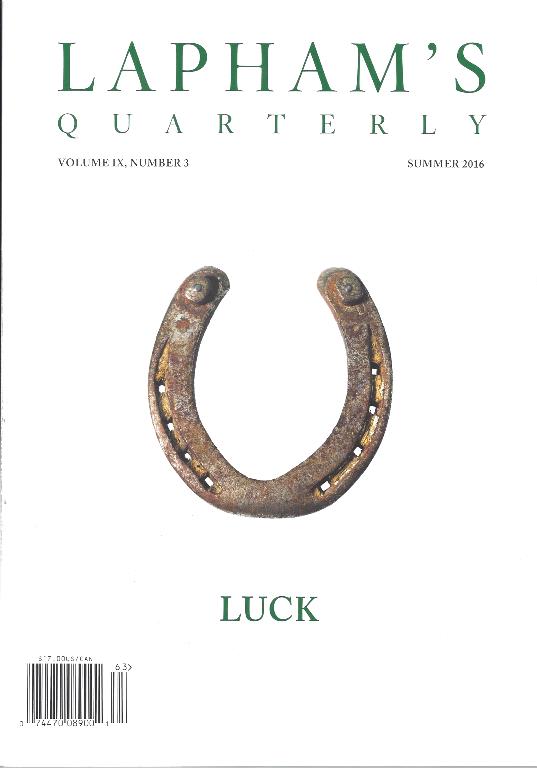
Sau khi ăn cướp được Miền
Nam, Bắc Kít bèn mang văn minh sông
Hồng ra giảng dạy.
"Ngụy" chúng mày
lúc nào cũng nghĩ chúng mày
cực kỳ thông minh.
Bây giờ ta cho 1 tên
chăn trâu học lớp 1 lên làm Trùm
của chúng mày. OK?
Tên Trùm này
quả là ngu thật.
Khi đám trồng bông
bị mưa lớn làm hư hại, đến than thở, hắn phán,
sao không trồng... len?
Ui chao, thảm họa biển vừa
qua, chẳng đúng như trên ư?
Chúng mi muốn gì,
cá hay thép?


Introduction
The Book of Blam is the first
of three novels about the Holocaust in Yugoslavia written
by the Serbian writer Aleksandar Tisma, the other two being The
Use of Man and Kapo. It was published in 1972 in Belgrade and was
well received, as were the two books that followed. Tisrna's work
was translated into seventeen languages and he became internationally
known. Although a child of a Serbian father and Jewish mother,
who lost relatives on his mother's side in the Holocaust, Tisma
carne to the subject of the camps late: He attributed this new interest
of his to a trip he took to Poland in the 1960s and a visit he made to
Auschwitz that reminded him of the horrors he registered as a boy but had
learned not to think about in order to keep his sanity. The trip to
Poland made him realize that he had a history he could not run away from.
As Tisma's compatriot Danilo Kis noted, "One doesn't become a writer
accidentally, one's biography is the first and the greatest cause."
Tisrna would have agreed. In one of his journals he describes himself
as a bug who had survived the bug spray and whose role now is to convey
to the descendants of the killers the atrocities their fathers and grandfathers
perpetrated on their millions of victims.
Tisrna was born
in 1928 in Horgos, a town on the border of Serbia and Hungary,
where thousands of Syrian war refugees lately have massed while
waiting to be allowed passage to Western Europe. His father came
from Lika, an impoverished region in western Croatia inhabited
by many Serbs. Though his parents, expecting him to become a priest,
sent him to school in Serbia, on graduation he went to work for a
wholesaler and eventually started a business importing fruit from
the south. Tisma's mother was Jewish Hungarian. She grew up in a small
village in Hungary where her father ran a small, barely thriving store.
She met her future husband at her aunt's rooming house in Horgos where
he used to stay on his business trips. The newlyweds settled in Novi
Sad, the largest and most multiethnic city in the region, where Tisma
lived for the rest of his life and wrote his many books, including The
Book of Blam.
In April 1941,
when Tisrna was thirteen years old, Yugoslavia was invaded
and occupied by German, Italian, Hungarian, and Bulgarian troops.
Vojvodina, the area north of Belgrade, where Novi Sad is situated,
was divided into three zones: one occupied by Hungary, one by
the newly founded Croatian fascist state, and the rest under German
control. Serbs, who had settled in the region after World War I, when
the Austro-Hungarian Empire was dissolved and Yugoslavia came into
existence, were to be deported; Jews, if they did not fall into
the hands of the Nazis to be taken to Serbia and gassed in mobile
gas vans, were persecuted or perished in a series of raids, the most notorious
of which took place in Novi Sad. There, over a period of three days,
starting on January 20, 1942, some 1,400 Jews and Serbs, including
women and small children, were led at gunpoint onto the frozen Danube,
shot in the back, and shoved into holes in the ice. Tisrna and most
of his family were spared thanks to a Hungarian neighbor who misled
the soldiers knocking on doors and searching for people on their
list, but his beloved grandmother Theresa Miller was rounded up
with several hundred other Jews and Serbs and was on her way to the
banks of the Danube to be killed when a cable arrived from military
authorities in Budapest ordering an end to the mass slaughter.
Of course, the
persecution and killings continued. In 1942 all Jews and
Serbs between the ages of twenty-one and forty-eight were
conscripted into forced labor battalions. Some 4,000 Jews from Backa
and Baranja were sent to Ukraine, near the front, where they succumbed
to disease and starvation or were murdered; others were put to
work in copper mines and on the railroads in Serbia and Hungary. In
March 1944 when Hungary realized that it had taken the losing side
in the war and began to negotiate with the Allies, Germany seized control
of the country and the occupied territories. Any remaining Jews-there
had been approximately 20,000 in Vojvodina before the war; now there
were 4,000-were collected and sent into camps. Some Jews had already
left the region since-until that March-territories held by Hungary
were safer than neighboring Serbia and Croatia. Tisma and his mother
were among them. They had traveled to Budapest in 1942 and he had enrolled
at the university to study economics (changing after a semester to
French). He even got a job working in an office. As he later explained
to an interviewer, students enjoyed a privileged status in Hungary during
the war. In 1944, Tisma and his classmates were conscripted into labor
brigades to dig trenches against the advancing Russian tanks, but except
for sleeping in tents they were not otherwise mistreated. His mother and
grandmother also survived, though living in mortal fear as they watched
friends and relatives being taken away to the camps.
"All my novels
are autobiographical," Tisma said, explaining that he is
not recounting his life but using elements of his experience
in them. His central characters without exception share his
own sense of alienation. Even as a child, he said that he was aware
of being different and kept asking himself whether that was really
true. He felt he didn't belong, only pretended to, imitating people's
voices, accents, phrases, deeds, while remaining an outsider. Asked
in a census which nationality he belonged to, Tisrna checked off
undecided. He had always wanted to leave, but he had never had the
courage to, even when the opportunities arose. "I am a man who stayed
in the hole because he couldn't part company with its warmth," he
confessed in his journal.
Miroslav Blam,
the protagonist of this novel, is that sort of man, a guilt-ridden
Holocaust survivor, a Jew who married a Christian and was therefore
exempted from annihilation while the rest of his family perished
in the 1942 raid. He is a loner obsessed with the past, married
to a woman who cheats on him. He has a grown daughter fathered by
the Serbian collaborator who was his wife's lover and who gave him
a job and saved his life after his parents and sister were killed.
He walks the city full of ghosts, a man whose faith in the world has
proved to be futile, since those like his neighbors who lived by it
expecting to thrive, as we all do wherever we live, ended up being murdered
and forgotten. "Manhunt" is the name Blam gives to the onslaught of
memories that pursue him and torment him wherever he goes. They make
up the plot of this book and provide it with its large cast of interesting
characters and their astonishing life stories. Tisma, who had previously
published three short-story collections and a novel about a love affair,
said that he wrote this book without a plan or a model, following his
instincts, which, as the reader can verify, turned out to be flawless.
A friend who read
the manuscript told him that even someone as inconspicuous
as his hero must do at least one extraordinary thing. Not in
Tisrna's books. The heroes of an age, he believed, are not its
winners, but those who bear its wounds. He writes about the private
lives of people at the mercy of historical events beyond their
control, the choices they did or did not make, victims and killers,
both of whom he sees clearly, neither judging them nor forgiving them.
An interviewer once asked how he had come to write so well about
murderers. Tisma responded that crime fascinated him; the violence
he witnessed during the war had made him comprehend hatred and cruelty.
I've read in my lifetime many vivid and ghastly accounts of people
led to their death in novels and historical documents, but few that
match Tisrna's depiction of what those thousands inching forward
on the frozen Danube felt and told themselves while hearing the sound
of a machine gun, growing closer and closer, louder and louder, firing
in quick bursts and now and then falling silent in the early-morning
dark.
One of the most
poignant stories in The Book of Blam describes how in April 1944
the Jews and their families who were to be deported to the
camps were assembled in the huge synagogue in Novi Sad. They spent
three days and three nights there, not bothered by the guards,
waiting quietly. The only discordant note came from five or six dogs
who had trotted alongside their owners as they were being led to
the synagogue and remained outside watching for an opportunity to
dash inside. The guards chased them away, yelling and cursing, but
the dogs came back. They did see their masters one last time, nuzzling
them and getting them to part with some hidden morsel of food, when they
were at the station waiting to be loaded into the train, but soon the
train was on the move and the dogs were left alone on the tracks, though
they kept running after it for a long time until at last their noses lost
the familiar smells of their owners.
At the end of The
Book of Blam, Blam goes to a concert held in that same synagogue,
known for its fabulous acoustics. There is one other Jew
in the large crowd, an old man who dodged death in a camp playing
the violin in a band that accompanied prisoners on their way to
the firing squad.
-CHARLES SIMIC
Cuốn
này, cũng là về Lò Thiêu. Cuốn phê
bình, mới nhất, của Cynthia Ozick, đa số bài viết,
cũng là về Lò Thiêu. Bài viết Siêu
thoát cái gọi là Kafka, Transcending
the Kafkaesque, Gấu đọc thoáng, thì có vẻ
giống 1 bài điểm cuốn tiểu sử mới ra lò về Kafka.
Bài Souls, lèm bèm về câu phán
khủng khiếp của Adorno. Rồi bài Love and Levity
at Auschwits, điểm cuốn mới ra lò của Martin Amis, 1
cuốn tiểu thuyết về Lò Thiêu: Vùng Lợi Tức, Zone
of Interest. Ozick phán, một cuốn tiểu thuyết về Lò
Thiêu, nó có cái quyền năng làm hư
ruỗng lịch sử, corrupt history, và như thế, thereby, làm
hư ruỗng trái tim độc giả!
Bà này cũng bị cái búa, hay cái
rìu phá băng Lò Thiêu, bổ trúng
đầu.
Bà đã từng phán,
cuốn nhật ký của Anne Frank đúng ra nên
đốt bỏ: Loài người chẳng có ai xứng đáng để
đọc nó.
Ui chao, GCC đã áp
dụng câu này cho hiện tượng Trâm Thạc
cái con mẹ gì đó, khi 1 đấng phê bình
gia VC gán ghép cuốn nhật ký này,
với nhật ký của Anne Frank, nhưng theo GCC, cuốn của Trâm
Thạc dễ đốt hơn, vì trong nó có sẵn lửa!
Kứt cả 1 lũ!
Cả Yankee mũi tẹt lẫn mũi lõ!
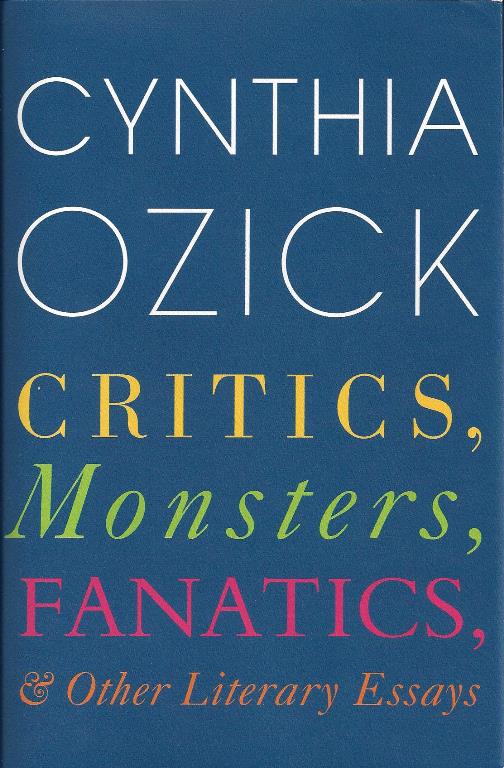
Writers, Visible and Invisible
Writers' invisibility has
little to do with Fame, just as Fame has little to do with Literature.
(Fame merits its capital F for its fickleness, Literature its capital
L for its lastingness.) Thespians, celebrities, and politicians, whose
appetite for bottomless draughts of public acclaim, much of it manufactured,
is beyond any normal measure, may feed hotly on Fame - but Fame is always
a product of the present culture: topical and variable, hence ephemeral.
Writers are made otherwise. What writers prize is simpler, quieter,
and more enduring than clamorous Fame: it is recognition. Fame, by
and large, is an accountant's category, tallied in Amazonian sales.
Recognition, hushed and inherent in the silence of the page, is
a reader's category: its stealth is its wealth.
And recognition itself can
be fragile, a light too easily shuttered. Recall Henry James's
lamentation over his culminating New York Edition, with its considered
revisions and invaluable prefaces: the mammoth work of a lifetime
unheralded, unread, unsold. That all this came to be munificently
reversed is of no moment: the denizens of Parnassus are deaf to
after-the- fact earthly notice; belatedness does them no good. Nothing
is more poisonous to steady recognition than death: how often is
a writer -lauded, feted, bemedaled - plummeted into eclipse no more
than a year or two after the final departure? Already Norman Mailer
is a distant unregretted noise, and William Styron a mote in the middle
distance (a phrase the nearly forgotten Max Beerbohm applied to the fading
Henry James). As for poor befuddled mystical Jack Kerouac and declamatory
fiddle-strumming mystical Allen Ginsberg, both are diminished to Documents
of an Era: the stale turf of social historians and excitable professors
of cultural studies.
Yet these eruptions of sudden
muffiings and posthumous silences must be ranked entirely apart
from the forced muteness of living writers who work in minority
languages, away from the klieg lights of the lingua franca, and whose
oeuvres linger too often untranslated. The invisibility of recently
dead writers is one thing, and can even, in certain cases (1 would
be pleased to name a few), bring relief; but the invisibility of the
living is a different matter altogether, crucial to literary continuity.
Political shunning - of writers who are made invisible, and also
inaudible, by repressive design - results in what might be called public
invisibility, rooted in external circumstance: the thuggish prejudices
of gangsters who run rotted regimes, the vengeful prejudices of corrupt
academics who propose intellectual boycotts, the shallow prejudices
of the publishing lords of the currently dominant languages, and finally
(reductio ad absurdum!) the ideologically narrow prejudices of some
magazine editors. All these are rampant and scandalous and undermining.
But what of an intrinsic, delicate, and far more ubiquitous private
invisibility?
Vladimir Nabokov was once
an invisible writer suffering from three of these unhappy conditions:
the public, the private, the linguistic. As an emigre fleeing
the Bolshevik upheavals, and later as a refugee from the Nazis, he
escaped the twentieth century's two great tyrannies. And as an emigre
writing in Russian in Berlin and Paris, he remained invisible to
nearly all but his exiled compatriots. Only on his arrival in America
did the marginalizing term "emigre" begin to vanish, replaced first
by the notion of citizen, and ultimately by American writer - since
it was in America that the invisible became invincible. But Brian Boyd,
in Nabokov: The American Years, his intimate yet panoramic biography,
recounts the difficulty of invisible ink turning visible - not only
in the protracted struggle for the publication of Lolita, but in the
most liberal of literary journals. It was the otherwise audacious New
Yorker of the 1950S that rejected a chapter of Pnin, the novel chronicling
Nabokov's helplessly charming and self-parodying alter ego, "because,"
according to Boyd, "Nabokov refused to remove references-all historically
accurate - to the regime of Lenin and Stalin." (The phrases in question
included "medieval tortures in a Soviet jail," "Bolshevik dictatorship,"
and "hopeless injustice," characterizations that the editors apparently
regarded either as excessive or as outright falsehoods.) Certainly
the politically expelled chapter did not languish in invisibility
for very long; and as for Lolita, decades after its electrifying and
enduring triumph, it burst out once again, dazzlingly, in the
title of Azar Nafisi's widely admired memoir linking Lolita's fate
to the ruthless mullahs of Tehran. (Still, even today, even in New York,
one can find a distinguished liberal journal willing to make a political
pariah of a writer: an instance of ordinarily visible ink rendered punitively
invisible.)
*****
And here at last is the crux and the paradox:
writers are hidden beings. You have never met one - or, if
you should ever believe you are seeing a writer, or having an argument
with a writer, or listening to a talk by a writer, then you can be
sure it is all a mistake. Inevitably, we are returned to Henry James,
who long ago unriddled the conundrum of writers' invisibility. In
a story called "The Private Life," Clare Vawdrey, a writer burdened
by one of those peculiar Jamesian names (rhyming perhaps not accidentally
with "tawdry"), is visible everywhere in every conceivable social
situation. He is always available for a conversation or a stroll,
always accessible, always pleasantly anecdotal, never remote or preoccupied.
He has a light-minded bourgeois affability: "He talks, he circulates,"
James's narrator informs us, "he's awfully popular, he flirts with
you." His work, as it happens, is the very opposite of his visible
character: it is steeped in unalloyed greatness. One evening, while
Vawdrey is loitering outdoors on a terrace, exchanging banalities
with a companion, the narrator steals into Vawdrey's room - only to
discover him seated at his writing table in the dark, feverishly driving
his pen. Since it is physically impossible for a material body to be
in two places simultaneously, the narrator concludes that the social Vawdrey
is a phantom, while the writer working in the dark is the real Vawdrey.
"One is the genius," he explains, "the other's the bourgeois, and it's
only the bourgeois whom we personally know."
And lest we dismiss this
as merely another of James's ghost stories, or simply as a comical
parable, we had better recall that celebrated Jamesian credo,
a declaration of private panic mixed with prayerful intuition, which
so many writers secretly keep tacked over their desks: "We work
in the dark - we do what we can-we give what we have. Our doubt is our
passion, and our passion is our task." The statement ends memorably, "The
rest is the madness of art."
The madness of art? Maybe
so. But more likely it is the logic of invisibility. James has
it backwards. It's not the social personality who is the ghost;
it is the writer with shoulders bent over paper, the hazy simulacrum
whom we will never personally know, the wraith who hides out in the
dark while her palpable effigy walks abroad, talking and circulating
and sometimes even flirting. Sightings of these ghost writers are rare
and few and un- reliable, but there is extant a small accumulation
of paranormal glimpses that can guide us, at least a little, to a
proper taxonomy. For instance: this blustering, arrogant, self-assured,
muscularly disdainful writer who belittles and brushes you aside, what
is he really? When illicitly spotted facing the lonely glow of his computer
screen, he is no more than a frightened milquetoast paralyzed by the
prospect of having to begin a new sentence. And that apologetically obsequious,
self-effacing, breathlessly diffident and deprecatory creature turns
out, when in the trance-like grip of nocturnal ardor, to be a fiery
furnace of unopposable authority and galloping certainty. Writers are
what they genuinely are only when they are at work in the silent and
instinctual cell of ghostly solitude, and never when they are out industriously
chatting on the terrace.
What is the true meaning
of "the madness of art"? Imposture, impersonation, fakery, make-believe
- but not the imposture, impersonation, fakery, or transporting
make-believe of ventive storytelling. No: rather, art turns mad
in pursuit of the false face of wishful distraction. The fraudulent
writer is the visible one, the crowd-seeker, the crowd-speaker, the
one who will go out to dinner with you with a motive in mind, or will
stand and talk at you, or will discuss mutual writing habits with you,
or will gossip with you about other novelists and their enviable good
luck or their gratifying bad luck. The fraudulent writer is like Bellow's
Henderson: I want, I want, I want.
If all this is so - and
it is so - then how might a young would-be writer aspire to join
the company of the passionately ghostly invisibles? Or, to put
it another way, though all writers are now and again unavoidably
compelled to become visible, how to maintain a coveted clandestine
authentic invisibility? Don't all young writers look to the precincts
of visibility, where heated phalanxes of worn old writers march back
and forth, fanning their brows with their favorable reviews? Isn't that
how it's done, via models and mentors and the wise counsel of seasoned
editors? "I beg you," says Rilke, addressing one such young writer,
I beg you to give all that up.
You are looking outwards, and of all things that is what you must
now not do. Nobody can advise you and help you, nobody. There is
only one single means. Go inside yourself. Discover the motive that
bids you to write; examine whether it sends its roots down to the deepest
places in your heart, confess to yourself whether you would have to
die if writing were denied you. This before all: ask yourself in the
quietest hour of the night: must I write? Dig down into yourself for
a deep answer. And if this should be in the affirmative if you may meet
this solemn question with a strong and simple "I must, " then build your
life according to this necessity.
Thus the poet Rilke, imploring
the untried young to surrender all worldly reward, including
the spur, and sometimes the romantic delusion, of Fame, in order
to succumb to a career in ectoplasm. Note that he speaks of "the
quietest hour of the night," which is also the darkest, where we do
what we can and give what we have. The madness of art - and again I
willingly contradict Henry James-is not in the art, but in the madding
and maddening crowd, where all manner of visibilities elbow one
another, while the ghosts at their writing tables sit alone and
write, and write, and write, as if the necessary transparency of
their souls depended upon it.
Cynthia Ozick
Trên
TV đã từng giới thiệu Ozick. Gấu đọc bà, lần đầu, là
bài viết về Anne Frank.
Trong cuốn mới ra lò,
có 1 bài về Kafka, đọc loáng thoáng
thấy lạ, cực lạ: Transcending the
Kafkaesque.
Trong 1 bài viết,
Ozick cho biết, cuốn sách thay đổi đời bà, là
cuốn của Henry James, Washington Square, đúng cuốn
Gấu thật mê, khi còn Sài Gòn, và
đã tính dịch cho nhà xb Sóng của Nguyễn
Đông Ngạc
Cynthia Ozick, trả lời phỏng vấn, "Cuốn
sách thay đổi đời tôi", cho biết, đó là
cuốn Washington Square,
của Henry James. Bà viết:
Một bữa, khi tôi 17 tuổi, ông anh mang về nhà
một tuyển tập những câu chuyện bí mật, mystery stories,
trong, lạ lùng sao, có truyện The Beast in the Jungle của Henry
James. Đọc nó, tôi có cảm tưởng đây là
câu chuyện của chính đời tôi. Một người
đàn ông lớn tuổi, đột nhiên khám phá
ra, ông bỏ phí đời mình hàng bao năm
trời.
Đó là lần đầu tiên Henry James làm quen
với tôi. Washington
Square tới với tôi muộn hơn. Câu chuyện
của cô Catherine được kể một cách trực tiếp, cảm
động, và gây sốc. Đề tài xuyên suốt tác
phẩm này là: Sự giả đò. Giả đò làm
một người nào đó, mà sự thực mình không
phải như vậy. Ở trong đó có một ông bố tàn
nhẫn, ích kỷ, giả đò làm một người cha thương
yêu, lo lắng cho con hết mực. Có, một anh chàng
đào mỏ giả đò làm người yêu chân thành
sống chết với tình, một bà cô vô trách
nhiệm, ngu xuẩn, ba hoa, nông nổi giả đò làm một
kẻ tâm sự ruột, đáng tin cậy của cô cháu.
Và sau cùng, cô Catherine, nạn nhân của tất cả,
nhập vai mình: thảm kịch bị bỏ rơi, biến cô trở thành
một người đàn bà khác hẳn.
Ozick cho rằng, ý tưởng giả đò đóng vai
của mình, là trung tâm của cả hai vấn đề, làm
sao những nhà văn suy nghĩ và tưởng tượng, và
họ viết về cái gì. Không phải tất cả những
nhà văn đều bị vấn đề giả đò này quyến rũ, nhưng,
tất cả những nhà văn, khi tưởng tượng, phịa ra những nhân
vật của mình, là khởi từ vấn đề giả đò, nhập
vai.
Tuy nhiên, nguy hiểm khủng khiếp của vấn đề giả đò
này là:
Những nhà văn giả đò ở trong đời thực, sẽ không
thể nào là những nhà văn thành thực
của giả tưởng. Cái giả sẽ bò vô tác
phẩm.
[Writers who are impersonators in life cannot be honest writers in fiction.
The falsehood will leach into the work].
Gấu
đọc Washington Square
khi còn Sài Gòn,
và bị nó đánh cho một cú khủng khiếp,
ấy là vì cứ tưởng tượng, sẽ có một ngày,
bắt cóc em BHD ra khỏi cái gia đình có
một ông bố tàn nhẫn, ích kỷ, đảo ngược cái
cảnh tượng thê lương ở trong cuốn tiểu thuyết:
Khi ông bố không bằng
lòng cho cô con gái kết hôn cùng
anh chàng đào mỏ, cô gái quyết định
bỏ nhà ra đi, và đêm hôm đó, đợi
người yêu đến đón, đợi hoài, đợi hoài, tới
tận sáng bạch...
Và
Gấu nhớ tới lời ông anh nhà thơ phán, mi yêu
thương nó thì xách cổ nó ra khỏi cái
gia đình đó, như vậy là may mắn cho cả nó
và cho cả mi!
Ôi chao giá mà
Gấu làm được chuyện tuyệt vời đó nhỉ.
A Critic at Large October 6,
1997 Issue
WHO OWNS ANNE FRANK?
By Cynthia Ozick
Thông
Điệp Của Anne Frank
http://www.tanvien.net/Tuong_niem/anne_frank.html
Sách
Báo


Note: Cuốn này, mua xôn,
cực lạ, trong những tác phẩm của Banville, dựng lại cuộc đời
của Copernicus, 1 trong ba kẻ mộng du, của Koestler, trong
The Sleepwalkers. Ông còn là tác
giả của 1 cuốn về Kepler, cũng 1 kẻ mộng du khác, của Koestler,
cuốn này được Guardian Fiction Prize, 1981.
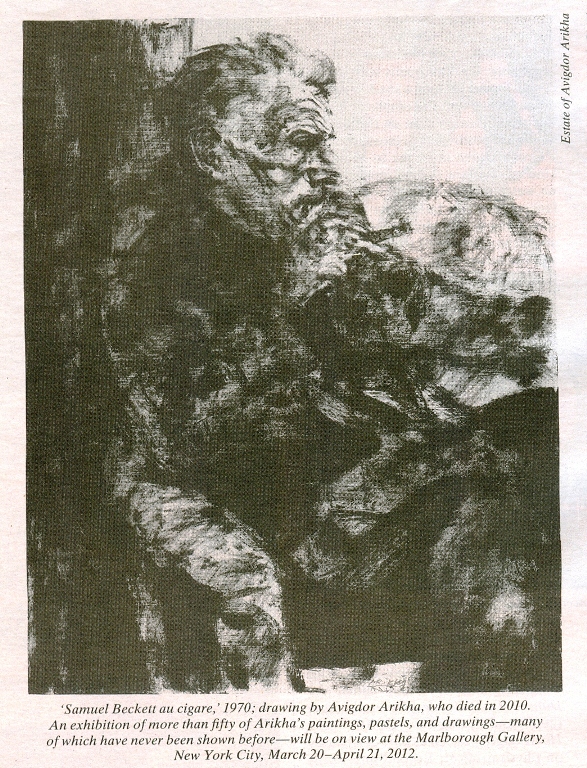
"Beckett hút xì
gà"
Beckett: Storming for Beauty
John Banville
 Trong khi chờ đọc bài
Intro của Brodsky, bảnh hơn "Đêm giữa ban ngày, 1984"
Trong khi chờ đọc bài
Intro của Brodsky, bảnh hơn "Đêm giữa ban ngày, 1984"
Ghi chú trong ngày


TLS đọc cuốn tiểu sử của Danilo
Kis, của Mark Thompson: Giấy Khai Sinh: Chuyện của Danilo
Kis.
Một giai thoại. Kis ghiền thuốc lá.
Và phải Gitanes không đầu lọc Và ông
giải thích: A man writes so that he can
smoke. Nhưng lý do thực sự, theo tay điểm sách,
là dù ở đâu, Paris hay New York Kis vẫn chỉ
mình ên, Kis was still isolated. “Là 1 nhà
văn Yugoslav ở Paris có nghĩa là mình ên"
Câu trên giải thích
luôn cả trường hợp Camus, theo GCC. Ông là
Tẩy, nhưng Tẩy “chân đen”, từ Algeria tới Paris, và
không làm sao nhập vô được. Có thể vì
lý do này, ông kết bạn với Milosz khi không
ai dám chìa tay ra?
"Thiên
tài của một thời điểm, kinh nghiệm, nơi chốn đặc biệt". Nadine
Gordimer thổi Kis.
Trong Một cuộc gặp gỡ Kundera viết
về ông:
Trung thành với Rabelais
và đám Siêu thực: Những kẻ lục lọi những giấc
mộng.
Tôi
ngồi lật lật cuốn của Danilo Kis, cuốn sách cũ về suy
tưởng, và có cảm tưởng đang ngồi với ông,
trong một quán rượu gần Trocadéro, và ông đang
nói với tôi bằng một giọng oang oang, gầm gừ, như muốn
vặc vào mặt kẻ đối diện.
Trong tất những nhà văn lớn lao
cùng thế hệ, Tây hay ngoại quốc, vào những
năm 1980 sống ở Paris, ông là kẻ vô hình
nhất. Vị nữ thần có tên là Thời Sự chẳng có
lý do gì để mà giọi đèn vào mặt
ông. "Tôi không phải là một tên ly
khai", ông nói.
Ông cũng chẳng phải một tên
di dân. Ông đi lại thoải mái giữa
Belgrade
và Paris.
Ông chỉ là một “nhà văn-đứa con tư sinh,
écrivain bâtard, đến từ một thế giới chìm
khuất, englouti, của Đông Âu”. Cho dù chìm
khuất, thế giới này, trong suốt cuộc đời của Danilo (ông
mất năm 1989), là một cái hố đen chứa trọn thảm kịch
Âu Châu. Nam Tư: cuộc chiến dai dẳng, đẫm máu (và
chiến thắng) chống Nazi; Lò Thiêu, sát hại, nhất
là, surtout, những người Do Thái Đông Âu
(trong số họ, có bố ông); cuộc cách mạng Cộng Sản,
tiếp theo liền, là cuộc đổ vỡ, cắt bào đoạn nghĩa, thật
bi thảm (và cũng lại chiến thắng) với Staline và chủ
nghĩa Stalinisme.
Với một dấu ấn giống như một vết chàm
lên cơ thể như thế, bởi cái thảm kịch lịch sử như
vậy, trọn đời ông, ông không hề hy sinh những
cuốn tiểu thuyết của mình cho chính trị.
Từ đó, là số phận nghiệt
ngã của ông, của những kẻ bị quên lãng
ngay từ khi sinh ra: những thảm kịch riêng tư về thanh quản.
Ông có thể đồng ý với Orwell, nhưng làm
sao ông có thể yêu nổi 1984,
cuốn tiểu thuyết của một phát
ngôn viên chống lại chủ nghĩa toàn trị, pourfendeur
du totalitarisme, nhưng lại giản lược cuộc sống con người chỉ còn
có một chiều chính trị, y hệt như những tên Mao
ít trên tthế giới. Để chống lại sự hạ nhục con người, làm
cho cuộc sống của nó trở thành hèn hạ, ông
cầu cứu Rabelais, với những trò khôi hài, tiếu
lâm, tức cười, nhóm siêu thực, những kẻ “lục lọi
tiềm thức, những giấc mộng”.
Tôi lật những trang sách cũ
của ông, và nghe giọng nói mạnh mẽ, chối
tai của ông: “Thảm thay, cái giọng trưởng thượng, le ton
majeur, của văn học Pháp, bắt đầu với Villon, đã biến
mất”.
Khi ngộ ra điều trên, ông càng
thêm trung thành với Rabelais, với siêu
thực, những kẻ “lục lọi những giấc mộng”, và với xứ Nam Tư
của ông, mắt cũng bị bịt kín, lầm lũi tiến vào
cõi mất.
Kundera:
Gặp Gỡ
Danilo
Kis kể chuyện tiếu lâm, thời gian ở Paris, ông
nhận "thư nhà", từ Nam Tư, một phong bì dán
tem, đóng dấu bưu điện hẳn hoi. Mở ra, trang thư thứ nhất,
là con dấu, với những dòng chữ như sau: Thư này
không bị kiểm duyệt.
Câu
chuyện tiếu lâm, tưởng như đùa đó thực
sự đã xẩy ra, với một ông Danilo Kis mũi tẹt nào
đó, trở về trong nước, và mang những trang sách
đã từng được xuất bản tại hải ngoại, và trình
nhà nước, để được đóng dấu chứng nhận:
Những
trang sách này ở hải ngoại chưa "bị", nay
xin, "được", kiểm duyệt!

Danilo
Kis, Paris, 1985
A
Genius from Four Countries
May 23, 2013
Charles Simic.
Bài này tuyệt lắm.
Thiên tài văn chương
Kis đã từng được Susan Sontag vinh danh. Bây giờ
tới lượt Simic gọi ông là thiên tài
từ bốn xứ sở. Còn chính Kis, thì gọi mình
là “giống hiếm”, “ethnographic rarity".
Bỏ ra ngoài cái
chuyện tự thổi, thì những định nghĩa về mình như vậy,
rất quan trọng đối với 1 người viết. TTT chẳng gọi mình là
đứa con tư sinh của 1 miền đất ư? Một nhận xét như thế, tiên
tri ra cả 1 giống nhà văn, bị ruồng bỏ, và tự ruồng bỏ.
Kis phán, “Không
có sự cực nhọc thời thơ ấu chiến tranh, tôi đếch
thèm làm nhà văn”, “If not for the hardships
of a wartime childhood,” Kiš once told an interviewer, “I’d never
have become a writer.”

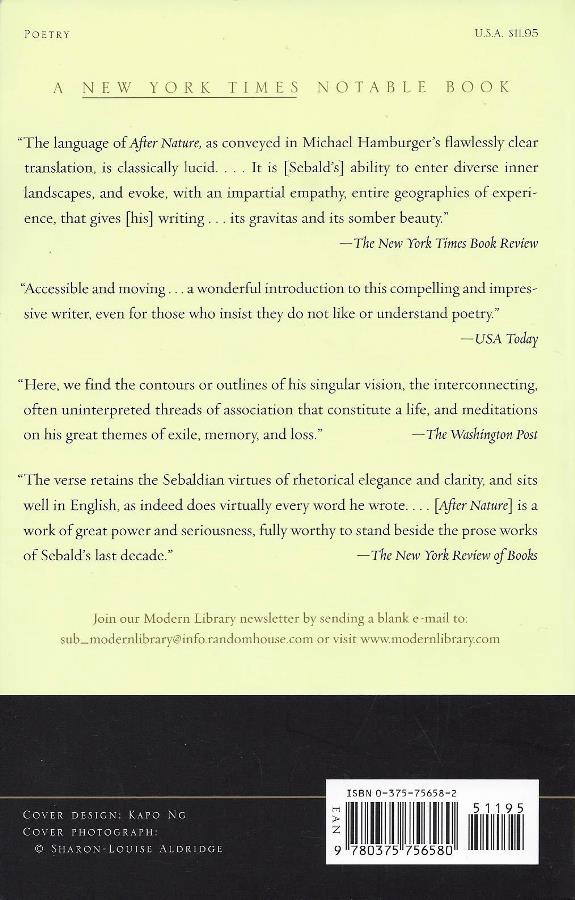
PRAISE FOR AFTER NATURE
"Before the four incomparable
novels that made him a world figure in literature, W G.
Sebald wrote the free verse triptych After
Nature, now fluently translated by Michael Hamburger. Aftter
Nature sets the pattern of the novels:
reveries on distant lives alongside something like autobiography.
This and the later books sustain a search for threads along
which conscious and lost memories in private life connect with
surviving and lost evidence about lives and worlds long gone
.... As in Sebald's novels, images and echoes link narrative meditations
in this work."
-The San Francisco Chronicle
"
[There are] three poems in After
Nature. The first is about the sixteenth- century
painter Matthias Grunewald, the second about the nineteenth-
century botanist Georg Steller, [and the third] is an autobiographical
prose poem. The scientist, the artist, and the writer all trying
to make sense of life and death, pulled between images of white
snow in the Alps and green forests and pastures. The late W G.
Sebald is a writer who often stops, in his quest for meaning, with
the unexplained coincidence. [Sebald] will not translate coincidence
for his readers, and this is the secret of his perfect timing. Here
is the other secret: We are willing to be carried along in a haze of
not quite understanding because Sebald also revels in the pure music
of words .... Only by suspending readerly willfulness will you be able
to float weightless through his writing."
-Los Angeles Times "
Remarkably lucid English translation
... After Nature consists of
three interrelated narratives, spanning different historical
periods .... It is Sebald's graphic description of a subject
in a Grunewald painting that seems to capture the random,
irrational movements of nature most vividly."
- The Washington Post
"Europe ... is a continent soaked
in bloody history; its every street corner, its every green
and lovely field has likely borne witness to some episode
of war or religious terror or plague. W G. Sebald ... was a
master at evoking this haunted Europe .... By the time he died
on a rural English road, he had been acknowledged as one of the
great postwar European writers .... Now,
After Nature, a book of three long poems by Sebald,
is being published in English for the first time .... This translation
(by his friend Michael Hamburger) reveals him to be a poet of
subtlety and lingering power."
-Time Out New York
"His work recalls Gustav Herling's
Journal Written at Nipht: or, when he includes uncaptioned
photographs, the early work of Sebald's contemporary,
Michael Ondaatje. Comparisons, however, do no justice to Sebald.
Eventually, even the most familiar prose unit, the paragraph,
dissolves in his hands. He was an original."
-The Philadelphia Inquirer
"The three long poems in After
Nature ... anatomize the correspondence between the
life and the work, the work and the world, the world and the
life. Wary of abstraction, alert to history's detours and infernal
turns, Sebald had the ability to consort with the unspeakable
.... After Nature is Sebald's alpha and omega, at once
the first and last of his literary works, and a seedbed for his later
projects .... Sebald, near the end of After Nature, under a lowering
sky, writes, 'What's dead is gone/forever,' then a shard from
Lear: 'What did'st /thou say?' More
questions follow, and the section dissolves into 'Water? Fire?
Good? /Evil? Life? Death?' it's the one moment in his entire body
of work where he gives the impression of losing control, and the
effect is liberating and haunting."
-The Village Voice
"The art that he created is of
near-miraculous beauty."
-The New Republic
"After Nature, which now
appears in an excellent translation by Michael Hamburger,
is a work of considerable scope and ambition .... The aims
of the Grunewald and Steller poems are not biographical or historical
in any ordinary sense. Though the scholarship behind them is
thorough ... scholarship takes second place to what he intuits
about his subjects and perhaps projects upon them .... It is thus
best to think of Grunewald and Steller as personae, masks that enable
Sebald to project back into the past a character type, ill at ease
in the world, indeed in exile from it, that may be his own but that he
feels possesses a certain genealogy which his reading and researches
can uncover .... 'Dark Night Sallies Forth,' the third of the poems in
After Nature, is more overtly autobiographical. Here, Sebald, as 'I,'
takes stock of himself as a person but also as inheritor of Germany's
recent history."
-The New York Review of Books
W.G. Sebald, Bombing and Thomas
Bernhard
The first thing to be said
about W G. Sebalds books is that they always had a posthumous
quality to them. He wrote - as was often remarked - like
a ghost. He was one of the most innovative writers of the late
twentieth century; and yet part of this originality derived
from the way his prose felt as if it had been exhumed from the
nineteenth.
Geoff Dyer
Điều đầu tiên
được nói về những cuốn sách của Sebald,
là chúng đều có cái air di cảo. Ông
ta viết, như một hồn ma. Là 1 trong những nhà
văn làm mới số 1 của hậu thế kỷ 20, tuy nhiên, 1 phần
của cái uyên nguyên, là từ cái
cách ông viết văn xuôi, như thể chúng được lôi
lên từ cái xác thế kỷ 19!
Gấu biết đến Sebald là
qua 1 bài viết của Sontag. Bà
coi ông, 1 thứ nhà văn của nhà văn.
Viet Thanh Nguyen coi ông là “hero” của
mình, và rất mê lối viết trộn lẫn nhiều
thể loại, phê bình, văn xuôi, hồi
tưởng…. Gấu đọc Sebald khác hẳn, một kẻ săn hồn ma, như
chính ông tự nhận, hay, với GCC, một lương
tâm của nước Đức hậu chiến. Vả chăng tuy trộn lẫn nhiều
thể loại, trong khi viết giả tưởng, nhưng với những bài
viết đúng là phê bình, hay biên
khảo, Sebald xuất hiện như 1 vị quan tòa, và văn
của ông, là thứ phán đoán, truy xét,
hỏi tội, Judgment.
TV giới thiệu bài viết mới có được, về
ông, nhân mới xuống phố.
Trong bài
viết, trong cuốn trên, tác giả nối
kết Sebald, với vụ không kích, và
với Thomas Bernhard.
Bài viết của Dyer về
Sebald xoáy vào cuốn mà Gấu mê
nhất của ông, Về lịch sử tự nhiên
về huỷ diệt, “On the natural history of destruction”.
TV
“phải” mua cuốn sách, để “phải” đi 1 đường về Sebald,
là vì bài viết này, chưa
kể bài viết về “Cuộc Tình Bỏ Đi” của Scott Fitzgerald,
“Tender Is the Night” [cuốn “Một Chủ Nhật Khác”
là cùng dòng với nó]
Cách
đọc W.S. Sebald của cái tay được Pulitzer, mà
anh ta gọi là “hero” của anh ta, thật là tếu,
nhưng thôi bỏ, viết về Sebal thú hơn nhiều,
nhân vớ được After Nature. Toàn bài
viết của Coetzee, trên tờ NYRB, GCC có, nhưng do
Cô Út, gặp khó khăn về kinh tế, tiền bạc, tính
bán nhà, mua cái nhỏ hơn,
không
có chỗ chứa sách nữa, nên cho vô thùng
cả 1 kho sách báo, tính vứt thùng rác
tất cả.
Bố già rồi, sắp chết rồi, ai
đọc, cho thư viện họ cũng không lấy…
Ui chao, cứ mỗi lần dọn nhà, là
bỏ 1 số, lần này, chắc là bỏ hết.
Thê "nương" quá!
https://www.theguardian.com/books/2013/apr/27/wg-sebald-place-country-review
Sách
& Báo
April 5, 2012
W. G. Sebald’s Poetry of the Disregarded
Posted by Teju Cole
Thơ của những kẻ bị bỏ đi, chẳng ai
thèm để ý đến, của W.G. Sebald
... See More
 Second-hand!
Second-hand!
Quà SN tuyệt vời!
Bảnh hơn "Bóng Đen & 1984",
Joseph Brodsky, trong bài Intro khen nức nở.
Quả đúng như thế. Cả hai ông
kia, thực sự không phải là nhà văn!
Tin Văn sẽ đi liền bài Intro.
Tập thơ Sebald thì khỏi nói
rồi.
Xin giới thiệu bài của Coetzee
dưới đây:
Kẻ thừa kế của 1 Lịch sử U tối
Sebald
… Weiss to attend the Auschwitz
trial in Frankfurt. He may also have been motivated before
the event by the hope, never quite extinguished, "that every
injury has its equivalent
somewhere and can be truly compensated for, even if it
be through the pain of whoever inflicted the injury." This
idea, which Nietzsche thought was the basis of our sense of
justice and which, he said, "rests on a contractual relationship
between creditor and debtor as old as the concept of law itself”…
W.G.
Sebald: The Remorse of
the Heart.
On Memory
and Cruelty in the Work of Peter Weiss
Weiss tham dự
tòa án xử vụ Lò Thiêu ở Frankfurt. Có thể
là do ông vẫn còn hy vọng, một niềm hy vọng chẳng hề
tàn lụi, rằng, “mọi tổn thương thì có cái phần tương đương của nó, ở đâu đó, và
có thể thực sự được đền bù, bù trừ, bồi hoàn,
ngay cả, sự bồi hoàn này thông qua nỗi đau của bất cứ
kẻ nào gây ra sự tổn thương”. Tư tưởng này Nietzsche
nghĩ, nó là cơ sở của cảm quan của chúng ta về công
lý, và nó, như ông nói, “nằm trong liên
hệ có tính khế ước, giữa chủ nợ và con nợ, và
nó cũng cổ xưa, lâu đời như là quan niệm về luật pháp,
chính nó”
W.G. Sebald: Sự hối hận của con tim.
…
even if it be through
the pain of whoever inflicted the
injury.
Moi, je traine le fardeau de la
faute collective, dis-je, pas eux.
Jean Améry viết, trong Vượt
quá tội ác và hình phạt,
Par-delà le crime et le châtiment.
Gấu cũng có thể nói
như thế:
Ta mang cái gánh nặng
của Cái Ác Bắc Kít, đâu phải
lũ
Bắc Kít?
Heir of a Dark History
J.M. Coetzee
October 24, 2002 Issue
After Nature
by W.G. Sebald, translated from the
German by Michael Hamburger
Random House, 116 pp., $21.95
http://www.nybooks.com/articles/2002/10/24/heir-of-a-dark-history/


Tờ NYRB, số mới, nhiều
bài thần sầu, nhưng thật dã man, đếch cho đọc free
một bài nào, kể cả bài thơ, "Sách
thiếu nhi" mà TV đã post.
Cái tay John Banville
này, cực tuyệt. Tiểu thuyết gia, phê bình,
điểm sách... thần sầu, bây giờ viết tiểu thuyết
trinh thám, với cái nick Benjamin Black.
Banville đọc cuốn tiểu sử
mới ra lò về Kafka. Bài điểm sách đầu tiên
của ông, mà GCC đọc, là về Nhà Hội, của
Amis
http://www.tanvien.net/TG_TP/Other_Kafka.html
http://www.tanvien.net/T_G/nha_hoi.html
Tờ này, báo nhà,
lần đầu mua. Có bài thật lạ, liên quan
đến văn chương Thổ Nhĩ Kỳ & Pamuk và nỗi buồn Thổ
[tả]
Cái hiệu ứng lầm lạc, giống như
ảo giác, của giải thưởng Nobel văn chương. Nhân
mới đọc 1 bài về Pamuk, trên 1 blog văn học, bèn
bệ về
Chúng tớ có nhiều tay
bảnh hơn.
Những vì anh hùng vô
danh của văn chương Thổ.
When your luck deserts you,
even cold food burns.
[Zambian proverb]
Khi may mắn bỏ chạy bạn, cơm
lạnh bỏng như lửa!
1931: Lisbon
BEAST UNBURDENED
O cat playing in the street
As if it were a bed,
I envy you your luck,
Because it isn't luck
at all.
Servant of the fatal laws
Governing stones and people,
You are ruled by instincts
And feel only what you
feel.
That's why you're happy.
The nothing that's you
is all yours.
I look at myself but I'm
missing.
I know myself it's not
me.
Fernando Pessoa, a poem.
The Portuguese poet left Lisbon at the age of seven in
1896 to move to Durban, South Africa, and lived there until
he was seventeen; his first poems were written in English. He
published much of his work under more than seventy literary "heteronyms,"
artistic personae for which he created complex and overlapping
biographies. In a 1962 essay, Octavio Paz described Pessoa, who
died in 1935 of hepatitis, as 'a humorist who never smiles and who
freezes our blood, inventor of other poets and destroyer of himself"
Thú Hoang Vu
Ôi chú mèo
trên con phố
Như thể là cái
giường
Ta thèm may như mi
Bởi là vì chẳng
may cái con mẹ gì
Tà lọt của lề luật
tàn khốc
Cai trị đá và
người,
Mi, tuân theo bản năng
Chỉ cảm, cái mi cảm
Mi, hạnh phúc
Mi, hư vô một cục
Ta không được như mi
Ta thiếu cái ta thiếu
[Dịch… thoáng!]
Pessoa rời Lisbon khi bảy tuổi
vào năm 1896 tới Durban, Nam Phi và sống ở đó
tới năm 17 tuổi. Những bài thơ đầu của ông được viết bằng
tiếng Anh. Hầu hết tác phẩm của ông được viết dưới
hơn 70 cái nick khác nhau, mỗi 1 cái nick như
thế thì lại kèm 1 cái tiểu sử! Trong 1 bài
essay viết năm 1962, nhà thơ Octavio Paz miêu tả Pessoa,
mất năm 1935 do bịnh gan, như 1 tay “tiếu lâm, hài hước,
không bao giờ cười, và làm máu của
chúng ta đóng băng, kẻ phát minh ra những nhà
thơ, và kẻ huỷ diệt chính mình”.
1942: Hollywood
RANDOM SELECTION
I know of course; it's
simply luck
That I've survived so many
friends. But last night
in a dream
I heard those friends say
of me: "Survival of the fittest"
And I hated myself.
Bertolt Brecht, 'I, the Survivor."
Brecht left for California in June 1941 on what
would turn out to be the last possible ship; during the
voyage, word came that the United States had stopped granting
entry visas to those with close relatives in Germany. In spring
1942 Brecht and two other émigrés living around Los
Angeles, Salka Viertel and Ruth Berlau, discussed a report about German
forces murdering thousands of Russian civilians. The next morning Brecht
slipped this poem under Viertel's door.
Chọn Đại
Gấu biết, lẽ dĩ nhiên,
nhờ may
Gấu sống dai hơn mấy đấng bạn
quí
Nhưng tối qua,
Trong một giấc mơ
Gấu nghe họ lèm bèm
về thằng bạn lùn lé của họ:
Mi sống dai nhất, quái
thế, tên xì ke kia!
Và Gấu bèn ghét
Gấu thậm tệ
Còn hơn cả tên
Lăng Băm, hay Thầy Đạo, hay Thầy Kuốc
Ghét Gấu!
Hà, hà!
Luck is a very thin wire between
survival and disaster and not many people can keep balance on it
-Hunter S. Thompson, 2000
May mắn là sợi dây
mỏng dính, giữa sống sót và thảm họa,
ít người giữ
được thăng bằng, khi đi trên sợi dây đó!
One should always play fairly
when one has the winning cards
-Oscar Wilde, 1895
Khi có những cây
bài tốt, thì đừng chơi bửn!
Câu này tặng Bắc
Kít thật tuyệt: Chúng có tất cả
những cây bài đẹp, sau 30 Tháng Tư 1975.




[Zambian proverb]
Khi may mắn bỏ chạy bạn, cơm lạnh bỏng
như lửa!
1931: Lisbon
BEAST UNBURDENED
O cat playing in the street
As if it were a bed,
I envy you your luck,
Because it isn't luck at all.
Servant of the fatal laws
Governing stones and people,
You are ruled by instincts
And feel only what you feel.
That's why you're happy.
The nothing that's you is all yours.
I look at myself but I'm missing.
I know myself it's not me.
Fernando Pessoa, a poem.
The Portuguese poet left Lisbon at the age of seven in 1896 to
move to Durban, South Africa, and lived there until he was seventeen;
his first poems were written in English. He published much of his
work under more than seventy literary "heteronyms," artistic personae
for which he created complex and overlapping biographies. In a 1962
essay, Octavio Paz described Pessoa, who died in 1935 of hepatitis,
as 'a humorist who never smiles and who freezes our blood, inventor of
other poets and destroyer of himself"
Thú Hoang Vu
Ôi chú mèo trên
con phố
Như thể là cái giường
Ta thèm may như mi
Bởi là vì chẳng may cái
con mẹ gì
Tà lọt của lề luật tàn
khốc
Cai trị đá và người,
Mi, tuân theo bản năng
Chỉ cảm, cái mi cảm
Mi, hạnh phúc
Mi, hư vô một cục
Ta không được như mi
Ta thiếu cái ta thiếu
[Dịch… thoáng!]
Pessoa rời Lisbon khi bảy
tuổi vào năm 1896 tới Durban, Nam Phi và sống ở đó
tới năm 17 tuổi. Những bài thơ đầu của ông được viết bằng
tiếng Anh. Hầu hết tác phẩm của ông được viết dưới hơn
70 cái nick khác nhau, mỗi 1 cái nick như thế thì
lại kèm 1 cái tiểu sử! Trong 1 bài essay viết năm
1962, nhà thơ Octavio Paz miêu tả Pessoa, mất năm 1935 do
bịnh gan, như 1 tay “tiếu lâm, hài hước, không bao
giờ cười, và làm máu của chúng ta đóng
băng, kẻ phát minh ra những nhà thơ, và kẻ huỷ diệt
chính mình”.
1942: Hollywood
RANDOM SELECTION
I know of course; it's simply luck
That I've survived so many friends.
But last night
in a dream
I heard those friends say of me:
"Survival of the fittest"
And I hated myself.
Bertolt Brecht, 'I, the Survivor."
Brecht left for California in June 1941 on what would
turn out to be the last possible ship; during the voyage, word
came that the United States had stopped granting entry visas to
those with close relatives in Germany. In spring 1942 Brecht and
two other émigrés living around Los Angeles, Salka Viertel
and Ruth Berlau, discussed a report about German forces murdering
thousands of Russian civilians. The next morning Brecht slipped this
poem under Viertel's door.
Chọn bừa
Gấu biết, lẽ dĩ nhiên, chỉ nhờ
may
Mà Gấu sống dai hơn mấy đấng bạn
quí
Nhưng tối qua,
Trong 1 giấc mơ
Gấu nghe họ lèm bèm về
thằng bạn lùn lé của họ:
Mi sống dai nhất, quái thế, tên
xì ke kia!
Và Gấu bèn ghét
Gấu thậm tệ
Còn hơn cả tên Lăng Băm,
hay Thầy Đạo, hay Thầy Kuốc
Ghét Gấu!
Hà, hà!
Luck is a very thin wire between
survival and disaster and not many people can keep balance
on it
-Hunter S. Thompson, 2000
May mắn là sợi dây mỏng
dính, giữa sống sót và thảm họa, ít
người giữ được thăng bằng, khi đi trên
sợi dây đó!
One should always play fairly
when one has the winning cards
-Oscar Wilde, 1895
Khi có những cây bài
tốt, thì đừng chơi bửn!
Câu này tặng Bắc Kít
thật tuyệt: Chúng
có tất cả những cây bài đẹp, sau 30
Tháng Tư 1975.
Note: Số này có
bài tưởng niệm C.K.Williams của Adam Zagajewski
Sách
Báo
Cuốn
này thú lắm. Tính mua lâu rồi. Bữa qua,
đọc cọp 1 bài, mê quá, đành bệ về.
Cuốn của Eco, mua lâu rồi.
Số báo Brick, mới, có
bài của 1 nhà thơ tiểu thuyết gia Khun Sun,
Những đoạn rời của 1 kẻ bị buộc tội. Fragments from
The Acused. Đọc, thấy có gì giống Mít.
Một tay ở Nam Vang, sau
lên rừng....
Sách
Báo
Bạch Vệ

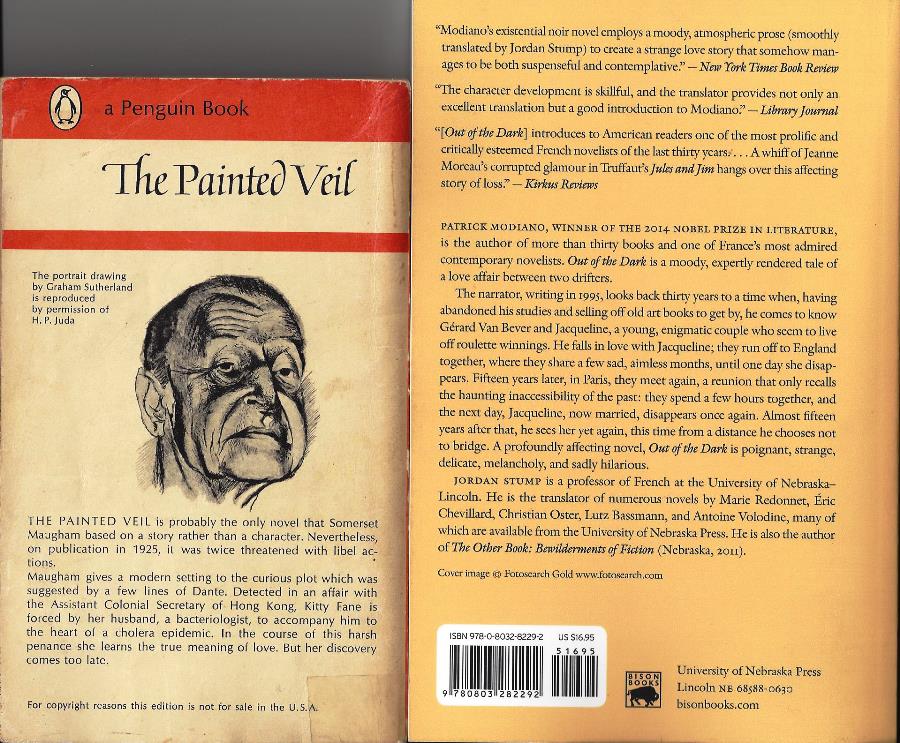
Sách Xôn.
GCC rất mê Maugham.
Thời mới lớn đọc ông, rồi mê luôn,
dù sau này, đọc giới phê bình, chê,
và ông cũng chê ông, tớ hạng xoàng, "số 1 trong lũ nhà văn
số 2", nhưng
sao thiên hạ quá mê tớ!
Cuốn này, lạ nhất của ông,
viết, từ vài dòng của Dante!
Cuốn của Modiano mà
không khủng sao! Tiểu thuyết đen hiện sinh, Xa
lắm, xa quá xá quà xa, quá cả miền
quên lãng, Du plus loin de l'oubli.
GCC đọc Modiano, trước
khi ông được Nobel, qua giới thiệu của tờ ML,
Văn Học Pháp
Trong lời nói
đầu, của dịch giả,
ông cho biết, tiếng Anh đếch có từ oubli,
du plus loin, cũng không, no real équivalent.
Cả hai cuốn đều là
truyện tình
Modiano
is never easy to translate; the apparent simplicity
and neutrality of his style conceals a wealth of subtle difficulties
for the translator, and I wish to thank here several people
who helped me through those difficulties. The French title
of this book, Du plus loin de l'oubli, poses
a particularly thorny problem, since the English language has
no real equivalent for oubli,
nor even a simple way of saying du plus loin.
The phrase, taken from a French translation of a poem by the German
writer Stefan George, is literally equivalent to 'from the furthest
point of forgottenness,' and I have found no way to express this
idea with the eloquent simplicity of the original. I would like
to extend my most grateful thanks to Eleanor Hardin for coming
up with the current title, and for all the invaluable help she has
given me with this translation; thanks, too, to Warren Motte and
Tom Vosteen for their sympathetic reading and insightful suggestions.
Thầy của Pico Iyer là Graham
Greene. Gấu mê Thầy, rồi tò mò đọc đệ tử
của ông, và mê luôn!
Nhưng đọc Pico Iyer, thì
quái làm sao, cứ nghĩ đến bạn Khờ của GCC!
Thầy dậy trò, chỉ
có 1 đòn, làm thế nào "đi đâu
loanh quanh":
How to move around the world
Bạn Khờ mà không
thế sao?
 Graham Greene in 1982: he taught
Pico Iyer ‘how to move around the world’. Photograph:
AFP
Graham Greene in 1982: he taught
Pico Iyer ‘how to move around the world’. Photograph:
AFP
The Man Within My Head:
Graham Greene, My Father and Me by Pico Iyer – review
Pico Iyer's meditation
on the great influences of his life is a book that
deserves to be loved
https://www.theguardian.com/books/2012/may/20/man-within-head-graham-greene-review
Graham Greene Dangerous
Edge
http://www.tanvien.net/Tac_gia_ngoai/Pico_Iyer.html
Pico Iyer Commemorates the
Centennial of Graham Greene's Birth Oct. 6, 2004
Pico Iyer tưởng
niệm GG, nhân kỷ niệm 100 năm ngày sinh
của sư phụ
https://www.theguardian.com/books/2005/feb/13/travel.features?INTCMP=SRCH
Iyer apparently reads like he
travels, mixing often brilliant critical observation
with autobiography, never travelling very far from himself.
Some of the pieces describe these vicarious journeys, like
that into the work of WG Sebald. Iyer's impression of the late
German is that he was working to 'put us in the state he inhabits,
unmoored, at a loss, in the dark'.
This reading crucially neglects,
it seems to me, the great comedy of books like The
Rings of Saturn; Sebald's everpresent sense of his chaotic,
burdensome quests as morose caricatures of the human condition;
his raised-eyebrow acknowledgment that the eternal seeker
after truth is by his nature, at least, a somewhat ludicrous
figure.
Though his own journeys don't
have the historical heft of Sebald's, Iyer aspires to
a similar psychological terrain. His clear eye for the ironies
of contemporary global culture, for the Anglo-Indian heritage
of Mumbai, the anachronistic tourist industry of Tibet, lead
him always back, he says, to 'the questions I take everywhere
with me, of possession ... of the play of light and dark ... and
of what we take to be real'.
There are important questions,
no doubt, but as he wanders with them in his head, the
one sound Iyer seems never to hear is just the occasional snigger
from around one of the world's four corners.
Note: Tờ Guardian đọc Sun
After Dark, của Iyer, và so sánh với,
của Sebald.

Note: Cuốn này, cũng tuyệt.
Trong 1 bài viết ngắn, Reader's Block, Dyer
- không phải Iyer - cảnh cáo thú đọc sách,
và cho biết, càng ngày ông càng
bớt đọc, và trích 1 câu của Nietzsche:
Sáng sớm, vớ cuốn sách
đọc, tôi coi đó, là, bửn.
'Early in the morning, at break
of day, in all the freshness and dawn of one's strength,
to read a book - I call that vicious!'
Nietzsche: Ecce Homo
Cái kinh
nghiệm đọc, đọc sách nào, về già, nhìn
lại, với riêng GCC, là 1 thử thách của ông
Trời, đối với 1 độc giả, và sau khi thử thách
rồi, thì là món quà của Xừ Luỷ!
TV xin post lại, kinh nghiệm của
Kafka, và đây là 1 dẫn nhập tuyệt hảo
cho cái việc đọc:
Cuộc Xét Nghiệm [The Test]
Tôi là một người
hầu, nhưng không có việc làm. Nhút
nhát, lại ít khi tỏ ra hết mình, thực ra
tôi chẳng chịu sắp hàng, chen lấn với người khác;
nhưng đây chỉ là một lý do khiến tôi thất
nghiệp; cũng có thể chẳng có chi liên can tới
chuyện thất nghiệp của tôi, trong bất cứ trường hợp nào,
chuyện là thế này: chẳng bao giờ người ta gọi tôi
đi hầu; những người khác được gọi, tuy họ chẳng cố gắng gì
hơn tôi, mà thực ra có khi họ còn chẳng cảm
thấy cái ao ước được gọi, trong khi tôi, ít ra đôi
lúc cảm thấy điều này một cách thật dữ dội.
Vậy là tôi nằm dài
trong khu sảnh dành cho người hầu, ngó lên
chùm ánh sáng trên trần, mơ mơ màng
màng, chợt thức, và lại rơi vào giấc
ngủ. Đôi khi, tôi bước vào quán, nơi người
ta bán bia đắng, đôi khi tôi cũng nốc nó
một cách ghê tởm, nhưng những lần khác, tôi
uống nó…
Một lần tôi vô quán,
một người khách ngồi ở chỗ tôi hay ngồi quan
sát mọi người. Tôi không dám nhìn
ông ta thật gần, và quay mình tính bỏ
đi. Nhưng người khách gọi giật lại; hóa ra cũng là
một người hầu, tôi có gặp trước đó, nhưng chưa
từng nói chuyện với anh ta.
-Tại sao anh bỏ chạy? Hãy
ngồi đây làm một ly. Tôi trả tiền.
Vậy là tôi ngồi xuống.
Anh hỏi tôi đôi điều, nhưng tôi không
thể trả lời, thực ra là tôi không hiểu ngay
cả những câu hỏi của anh ta. Thế là tôi nói:
"Có lẽ anh buồn vì anh đã mời tôi,
như vậy tôi nên đi thì hơn", và tôi
tính đứng dậy. Nhưng anh ta vươn tay qua bàn đẩy tôi
ngồi xuống. "Hãy ở lại", anh ta nói, "đây chỉ
là một cuộc xét nghiệm. Kẻ nào không trả
lời những câu hỏi, là qua được cuộc xét nghiệm".
Nên nhớ, Kafka đã
từng phán, Ông Trời năn nỉ tôi, đừng viết,
NO!
Đọc, với ông, chắc cũng rứa.
Nhưng căng nhất, là đọc
cái gì?
Một anh Tẫu chẳng đã phán,
thứ nhà văn bảnh nhất trên đời, là thứ,
đếch thích viết!
Vưỡn cũng thế, thứ độc giả bảnh, đếch thích đọc!
Có thể nói, tất
cả cái đọc của GCC, là 1 thử thách, của
Ông Trời, nhắm trả lời cuộc xét nghiệm, liệu mi chịu
nổi... Lò Thiêu?
Hà, hà!
Phách lối thật
Chọc chúng chửi!
Errata: Xin lỗi, GCC lộn hai ông,
Geoff Dyer với ông Pico Iyer. Và đây là
lần thứ nhì! Lần trước, nhờ Bà Tám
chỉ cho thấy! (a)
Có
thể nói, cái sự [tưởng như là] tình
cờ cầm lên cuốn Ngôn ngữ và Câm Lặng của
Steiner ở 1 thư viện Toronto, của Gấu, là do Gấu đã
trải qua trước đó, 1 cuộc xét nghiệm theo kiểu
của Kafka, đúng như NTV nhận xét, anh đã đọc cuốn
đó từ những năm 1960 ở Sài Gòn, mà không
nhận ra nó!
Nói rõ hơn, bạn phải
được sửa soạn, hoặc trải qua 1 cuộc xét nghiệm theo
kiểu của Kafka, như trên, thì mới đọc được “nó”.
Lần Gấu cầm lên cuốn Gián
Điệp Từ Miền Đất Lạnh, L'Espion qui venait du froid, của
le Carré, ở nhà sách Xuân Thu, cũng tương
tự. Cứ như là …Archimedes, Ơ Rơ Ka, kiếm thấy nó
rồi!
Khủng nhất là cuốn “Asalom,
Abalom!” của Faulkner. Cầm lên, nghe như cuốn sách
thở phào 1 phát, thằng khốn, sao tới trễ thế, tao
nằm chờ mi, mệt bã cả người!
Hà, hà!
(a)
Pico Iyer dường như chuyên viết du
hành ký, và tôi rất ưa đọc du hành
ký, đọc rất nhiều nhưng chẳng nhớ gì, tôi
có lẽ thuộc về nhóm người đọc và viết là
để quên đi những cái mình đã đọc và
viết; do đó tôi biết tên Pico Iyer cũng từ những
bài du hành ký. Riêng Iyer, ông lại
chuyên viết du hành ký về Nhật Bản, và có
lẽ trong lúc lang thang trong khu vườn văn học Nhật Bản tôi
bắt gặp tên ông. (1)
Pico
Iyer mở ra bài viết bằng 1 câu, qua
đó, có vẻ như cũng thật mê Greene (1)
Tôi mất cả nửa đời mình
để nhập vô cuốn phúc âm nhức nhối của
Graham Greene về nhân loại.
It took me half a life time to grow
into Graham Greene’s anguished gospel of humanity.
Tuyệt!
Tờ Brick viết
về Pico Iyer:
Pico Iyer cố làm bật G.G
khỏi hệ thống của mình bằng cách viết ba ngàn
trang về G.G, với cuốn mới nhất: “Người đàn ông
trong đầu tôi”. Nhưng vưỡn thua.
Pico Iyer tried to get Graham Greene
out of his system by writing three thousands pages on him,
boiled down into his most recent book, The Man Within My Head (a). He
still failed
“Writing is, in the end, that
oddest of anomalies: an intimate letter to a stranger.”
Viết, quái nhất trong những
quái: Lá thư riêng tư cho... một kẻ lạ,
người dưng, nước lã!
― Pico Iyer
“Perhaps the greatest danger
of our global community is that the person in LA thinks
he knows Cambodia because he's seen The Killing Fields on-screen,
and the newcomer from Cambodia thinks he knows LA because he's
seen City of Angels on video.”
Cái nguy hiểm nhất của cộng
động toàn cầu, là, ngồi ở LA phán, tớ
biết Cam bốt, vì mới xem phim “Cánh đồng giết người”.
Và 1 tên Cam bốt mới nhập Mẽo phán, tớ biết
LA, vì mới coi video “Thành phố của những thiên
thần”
― Pico Iyer (1)
“Ông số 2”, ngồi ở Quận Cam,
chẳng đã ngậm ngùi phán, Sài Gòn
có người chết đói, ngay bên hông Chợ Bến
Thành!
(a)
The Man Within My Head by Pico
Iyer
We all carry people inside our
heads—actors, leaders, writers, people out of history or
fiction, met or unmet, who sometimes seem closer to us than
people we know.
In The Man Within My Head, Pico
Iyer sets out to unravel the mysterious closeness he has
always felt with the English writer Graham Greene; he examines
Greene’s obsessions, his elusiveness, his penchant for mystery.
Iyer follows Greene’s trail from his first novel, The Man Within,
to such later classics as The Quiet American and begins to unpack
all he has in common with Greene: an English public school education,
a lifelong restlessness and refusal to make a home anywhere, a
fascination with the complications of faith. The deeper Iyer plunges
into their haunted kinship, the more he begins to wonder whether
the man within his head is not Greene but his own father, or perhaps
some more shadowy aspect of himself.
Drawing upon experiences across
the globe, from Cuba to Bhutan, and moving, as Greene would,
from Sri Lanka in war to intimate moments of introspection;
trying to make sense of his own past, commuting between the cloisters
of a fifteenth-century boarding school and California in the
1960s, one of our most resourceful explorers of crossing cultures
gives us his most personal and revelatory book.
(b)
Người Đàn Ông Trong
Đầu Tôi: Đúng ra, 3 người, tác giả,
ông già của tác giả, và Greene.
Đúng hơn nữa, 4 người, vì
còn ông già của Greene cũng hiện diện.
… tôi chắc
chắn một điều, cho dù miền đèo heo hút
gió đó - tôi muốn nói Bắc Hàn -
tà ma ác quỉ tới mức nào, tôi chẳng thể
thù ghét nó." ("... I am certain, no matter
how evil North Korea is supposed to be, that I could never hate it".
Suki Kim: A Visit to North Korea, NYRB, số đề ngày 13 tháng
Hai, 2003)
Ui chao, GCC cũng
muốn phán như thế, về cái xứ "quỉ tha ma
bắt", quê hương Bắc Kít của Gấu, nhưng sao… khó
quá!
Hà, hà!
*
Tôi vẫn tự chế nhạo mình
viết như một ca sĩ không có giọng hát
tốt, yêu hát nhưng không vươn lên nốt
cao được cũng không cúi xuống nốt trầm được, nên
mãi mãi hát những nốt chung chung ngang phè
phè nghe ngấy lỗ tai.
Tôi có những nỗi đau,
tự trách mình nhưng giấu kín không dám
viết ra, không dám đối diện với cái thất bại,
cái ngu xuẩn của chính mình. Biết chỗ nào
đau tôi né tránh chứ không hề dám đụng
đến.
Blog HH
Note: GCC đọc nhà
dzăng HH, từ khi còn Yahoo 360. Lúc đó
bà chưa nổi tiếng!
Tình cờ, GCC đọc bài
viết ngắn trên, cùng lúc đang đọc cuốn
A Reader on Reading [Một độc giả về
Đọc] của Alberto Manguel. Trong có bài viết The End
of Reading [Chấm dứt Đọc].
Trích:
Lars Gustafsson, trong cuốn
tiểu thuyết cảm động của mình, Death of a Beekeeper [Cái
chết của Người giữ mật ong], trong đó, nhân vật kể chuyện,
Lars Lenmart Westin, chết vì ung thư, trước khi chết, làm
1 danh sách những hình thức nghệ thuật, art forms,
theo mức độ khó khăn của chúng, according to their level
of difficulty.
Đứng đầu là nghệ thuật huê
tình [erotic arts. Thảo nào viết về sex cực
khó!], tiếp theo là âm nhạc, thơ, kịch…
Nhưng có 1 thứ hình
thức nghệ thuật không làm sao lọt vô danh
sách trên: Nghệ thuật ôm nỗi đau,
the art of bearing pain.
“Chúng ta đụng hình thức nghệ thuật độc nhất
mà mức độ khó quá cao”, Westin viết, “cho
đến nay, chưa từng có ai hiện hữu để mà thực tập nó”.
(1)
Có thể, Mít chưa
có một tác giả nào đạt tới thứ “nghệ
thuật mang nỗi đau”, thành ra không có tác
phẩm lớn?
Mỹ là mẹ đạo hạnh: Bạn
thực sự đau nỗi đau Mít tới đâu, thì
tác phẩm văn học nghệ thuật của bạn tới đó, đây
là ý của Brodsky trong bài diễn văn Nobel văn chương
của ông:
“Trong diễn từ
Nobel, Brodsky vạch ra một mỹ tín [aesthetic credo]
mà cuộc sống đạo đức của dân chúng sẽ được
xây dựng trên nền tảng đó. Mỹ học như ông
nói, là mẹ của đạo đức, theo nghĩa, con người càng
trọng mỹ tới đâu thì sàng lọc ra cái
vô đạo tới đó. Và nếu như vậy, nghệ thuật tốt sẽ
ở về phía của cái tốt. [Good art is thus on the side of
the good]. Cái ác, cái tà ma, về mặt còn
lại, ‘đặc biệt là cái ác chính trị, luôn
luôn là một thứ văn phong tồi tệ” [Evil, on the other hand,
‘especillay political evil, is always a bad stylist”. On Grief… trang
49].”
Coetzee
Toàn 1 lũ
bỏ chạy, hoặc miệng ngập ngụa "chiến lợi phẩm", trong có
kít Mẽo bỏ chạy, sau khi ăn cướp được Miền Nam, mà
viết lách cái nỗi gì?
Chúng đâu có bao
giờ “đau” đâu?
Sách
Báo
 Michel Foucault: Phê
bình, một thái độ của hiện đại tính:
Michel Foucault: Phê
bình, một thái độ của hiện đại tính:
[Bài viết của MF đăng trong
số này, là từ Dits et écrits,
tome IV]
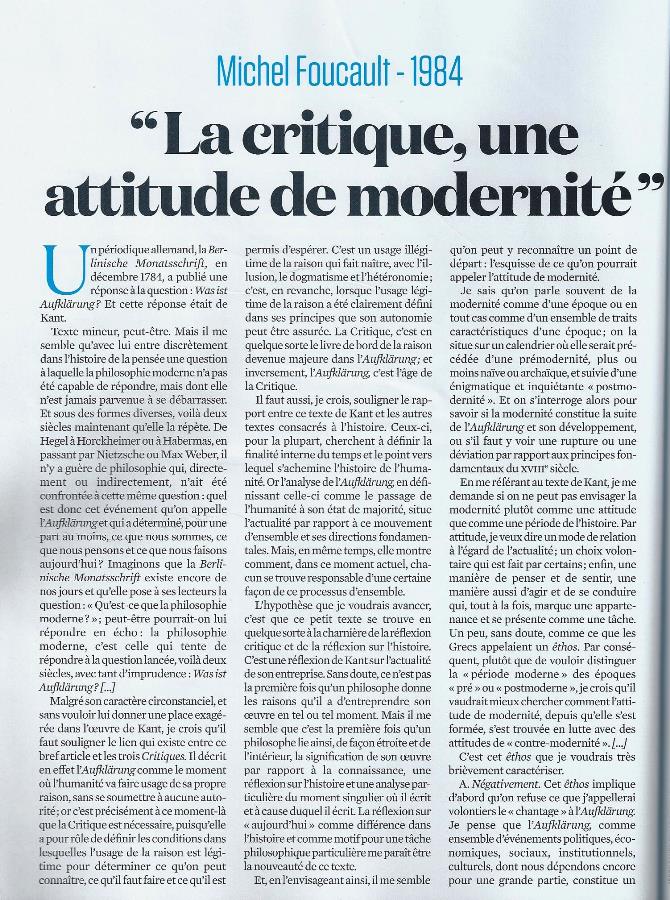 http://triethoc.edu.vn/vi/truong-phai-triet-hoc/chu-nghia-hau-hien-dai/khai-sang-la-gi_32.html
http://triethoc.edu.vn/vi/truong-phai-triet-hoc/chu-nghia-hau-hien-dai/khai-sang-la-gi_32.html
Khai Sáng Là Gì?
Đặng Phùng Quân dịch
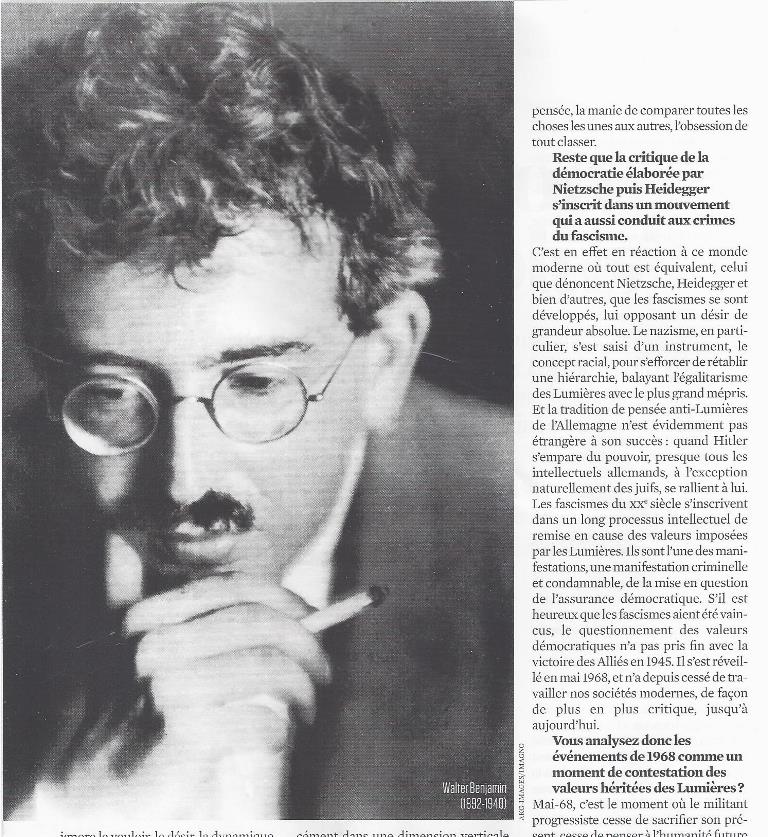
Tập san Văn chương
ra mắt độc giả khoảng 1972-74, tại Sài-gòn. Chết trước
ngày 30/ 4/ 75. Hình như là do bác sĩ kiêm
quản lý bất đắc dĩ, Nguyễn Tường Giang, chán chuyện
đi lấy quảng cáo, mặc dù đi là có; và
mặc dù tập san có nhà in riêng - nhà
in ABC của thân phụ anh Phạm Kiều Tùng. Có lần,
trên tạp chí Thơ, tôi đã viết về cái
đức sửa mo-rát, sửa lỗi chính tả của anh. Tôi
vẫn còn nhớ tiểu đề một số tập san, Mặt Trời Mất Đi, Mặt Trời
Tìm Thấy, do anh đề nghị. Bằng tiếng Tây: Soleils Perdus,
Soleils Retrouvés. Đây là một dị ứng, một
phản ứng tự vệ, trước sự hiện diện, không phải với mấy
anh chàng Yankee đứng ngơ ngẩn ở ngã tư đường phố Sài-gòn,
tò mò nhìn phố xá, dòng người
qua lại, vào những buổi cuối tuần, những ngày mới tới,
mà là những thay đổi quá nhanh chóng của
thành phố, cùng với sự hiện diện của họ.
Y hệt như một phim Viễn Tây,
trên đường phố Sài-gòn đang biến dạng.
Trong bọn, chỉ có Nguyễn
Tử Lộc là sớm sủa làm quen với tư tưởng,
thí dụ, của một F. R. Leavis, phê bình gia lý
tưởng là một người đọc lý tưởng, từ đó văn
chương tùy thuộc hoàn toàn vào những từ
ngữ của nhà thơ, hay tiểu thuyết gia mà kinh nghiệm đã
đem tới cho họ. Và ở đây, là tiếng Anh, một thứ
tiếng nói sức mạnh của nó thuộc về đất, như tổ tiên
của họ là những người dân quê... Khi người ta thêm
vào đó, rằng lời nói, theo một trật tự cổ xưa,
là một dạng văn hóa nghệ thuật phổ thông, rằng
người ta nói thay vì đọc, hay lắng nghe la-dô, đài*
, Nguyễn Tử Lộc đã sớm nhận ra sự đa dạng của một chủ nghĩa tự
chủ mang tính đồng quê, thuộc về đất và những người
đã chết của nó (la terre et ses morts)* anh có lẽ
đã linh cảm, định mệnh của một tiếng nói, như hồi nhớ về
biết bao nhiêu con người (Thanh Tâm Tuyền).
Nếu muối mất vị mặn của nó,
làm sao có lại được. (Phúc Âm theo
thánh Ma-thi-ơ). Nhà văn theo một nghĩa nào
đó, là muối của đất, hay ngắn gọn hơn, là
đất. Marguerite Yourcenar, thuộc Hàn lâm viện Pháp
ghi nhận, trong tiếng Anh của người Mỹ, dirt, dơ dáy, là
đất, theo nghĩa của người làm vườn; một thứ đất mầu mỡ,
sẵn sàng để trồng trọt: Cho thêm tí dơ vào
chậu bông này đi. (Put a little more dirt in this
flower pot.)
Hiểu như thế, một nhà văn,
khi bị bứng ra khỏi đất, anh ta trở nên sạch, theo
nghĩa vô dụng, hết xài, đã bị thiến. Cũng theo
nghĩa đó, nỗi nhớ bùn là thê thảm nhất,
trong mọi nỗi nhớ. Anh ta phải động viên mọi sức lực, quyền
năng, nghệ năng, biến sở đoản thành sở trường, biến chữ thành
đất: Chúng ta đi mang theo quê hương. Sự thành
công của dòng văn chương di dân viết bằng tiếng
Anh là một ví dụ.
Vả chăng, kinh nghiệm ăn nhờ ở
đậu là rất một mình, mỗi người một kiểu. Bạn
luôn đau nỗi đau nhớ nhà, nhưng tệ hại hơn, còn
nỗi đau vong thân: tiến trình biến thân quen
thành xa lạ, hờ hững. Người viết chưa gặp phải tình
trạng này, nhưng hình như một số người Việt về nước
đã gặp cảnh chua xót. Cứ nghe như quê hương nói
mát nói mẻ: Ơ kìa, anh/chị này, tôi
không quen! Ôi nỗi xa lạ hờ hững, không phải của
một dáng dấp chưa từng gặp, mà từ chính người
yêu dấu, thân thương mới ngày nào còn
là của mình!
Nhưng Nguyễn Tử Lộc đã
chẳng cần tới mấy chuyện đó. Chẳng cần thứ kinh
nghiệm đó. Anh ở lại mãi mãi, sau 1975, vì
bạo bệnh. Đám tang anh, có Nguyễn Đạt, J. Huỳnh Văn,
Phạm Kiều Tùng, Phạm Hoán, tôi... đi sau quan
tài. Hình như chỉ thiếu Nguyễn Tường Giang. Sau anh
là Joseph Huỳnh Văn. Mới đây thôi (20/2/95), vậy
mà cũng đã hai năm mấy rồi.
Tôi biết Lộc, và
J. Huỳnh Văn, là qua Tập san Văn chương. Không
biết ai là người đầu tiên đưa ra việc làm báo.
Khi có tôi, mọi chuyện đã được quyết định.
Tôi nhận lời, phần lớn là vì hai người bạn mới.
Nhất là J. Huỳnh Văn. Như một hậu quả tất nhiên của
những buổi bỏ sở ra ngồi quán cà phê gốc me đường
Nguyễn Du, hoặc bên đường Hai Bà Trưng, quãng
gần ngã tư Gia Long, khi bên kia quá ồn. Số là
lúc này, Bưu Điện đã phân đôi,
thành Bưu Vụ, và Viễn Thông; tôi chuyển
về Trung Ương, chuyên lo việc lên đồ biểu điện đàm/
điện tín, dưới quyền ông T. nghe nói người của
Mỹ. Vào những ngày cuối cùng, trong lúc
Đà Nẵng đang trong cơn hỗn loạn, tôi còn cố liên
lạc với Phòng Điện Toán, xin con số điện đàm/ điện
tín ... ỏAnh có biết Đà Nẵng sắp sửa đi đoong không...?,õ
tôi nghe tiếng người bạn bên kia đường dây hốt hoảng.
Quay qua phòng sếp, một đống hồ sơ vẫn y nguyên. Đã
hơn tuần, ông chưa vô sở: người Mỹ đã đưa ông
và gia đình đi từ mấy ngày trước.
Huỳnh Văn là linh hồn của
cả bọn, là tinh thần, và Tổng thư ký,
của tờ báo. Không có anh, chắc tờ báo không
ra quá số hai. Sài-gòn nhỏ xíu:
chiến tranh, nỗi sợ hãi, đời sống riêng tư của mỗi
con người... làm người ta co cụm lại. Đám bạn bè
tuy biết nhau, nhưng chỉ chịu ngồi bên nhau, khi có
anh. Anh nói, anh biết tôi từ hồi Nghệ Thuật, từ những
ngày, thỉnh thoảng ghé quán Cái Chùa,
thấy một gã lúc nào cũng đeo kính
đen, ngồi trơ một mình tại một chiếc bàn ở góc
quán. Nếu không có Tập san Văn chương, chúng
tôi chẳng bao giờ có dịp quen nhau. Và có
thể chẳng bao giờ người đọc biết anh là một thi sĩ. Cũng chẳng
mấy người biết anh dậy học, cho một trường tư ở Biên hoà.
Có thể những dòng Cầm Dương Xanh đã rong ruổi
cùng với anh, suốt quãng đường Sàigòn-Biênhòa,
và ngược lại. Chúng xuất hiện lần đầu tiên, và
cũng là cuối cùng trên Tập san Văn chương. Huy
Tưởng, thay mặt tôi tới gia đình đốt những nén
hương tưởng niệm, sau đó gửi ra vài dòng. Về câu
hỏi, chị còn nhớ...?: Thời gian sau này, bạn bè
nhiều nhưng thật tình là tôi không được quen
biết hết, chỉ có các anh là bạn cũ trước 75 thì
tôi mới nhớ thôi.
Thật đơn giản, nhưng...
Ba mươi năm sau, một tập san cùng
tên dự trù xuất hiện ở hải ngoại. Những dòng
hồi tưởng ở trên, là do tôi muốn anh em chủ
trương làm quen với những người đã cũ, hoặc đã
chết. Muốn anh em chia sẻ cùng chúng tôi
không khí ngột ngạt của Sài-gòn hồi đó.
"Tôi hi vọng vào khoảng cách giữa các
thế hệ. Hoàng Cầm và tôi là người cùng
thời, nhưng ông có trước tôi một thời đại không
lập lại nữa, hay dùng chữ của ông: một gia phả tinh
thần mà dù đã được rũ bụi thì tôi cũng
không đơn giản làm quen". (Phạm Thị Hoài, Đọc Mưa
Thuận Thành của Hoàng Cầm, Tạp chí Thơ, Mùa
Đông, 1997). Tôi không hiểu anh em trong ban chủ
trương khi đồng ý với nhau về một danh xưng, có biết,
có những người đã gắn bó với nhau chung quanh một
cái tên như vậy. Rằng nó đã có một
tiền thân? Hay đây chỉ là tình cờ? Và chủ
trương, đường lối của tờ báo mới mẻ này có gì
tương tự với tờ cũ không? Và liệu người cũ có cần
làm một nghi lễ rũ bụi, trước khi ngồi xuống bàn viết, ở
đây?
Bởi vì Tập san Văn chương
quả có những nét riêng: nó cách
mạng, lật đổ theo tinh thần bất bạo động, hoặc theo hiểu hiền
lành của nhà văn Nga, Chekhov. Bây giờ, sau hơn
ba mươi năm, trong số ít ỏi những thực sự quan tâm
và gắn bó với một nền văn chương Miền Nam trước 75,
có người đã nhận ra, bên cạnh cuộc cách
mạng lớn, do Sáng Tạo hô hào, có một cách
mạng nhỏ, thầm lặng của Tập San Văn chương. Ngay trong lời phi
lộ số ra mắt, khi định nghĩa nhà văn, một người được thông
tri đầy đủ (những dữ kiện của thời đại anh ta đang sống), chúng
tôi đã hoài vọng một điều: hãy đưa ra thật
nhiều thông tin, hãy giới thiệu những dòng tư
tưởng đang ảnh hưởng đến toàn thể nhân loại, rồi để cho
người đọc tự do chọn lựa, theo khẩu vị của họ. Cho phép tôi
dùng chữ khẩu vị, theo nghĩa của Roland Barthes: Chữ viết ở
khắp nơi, khi mà những từ có mùi, có vị
(tri thức, savoir, và mùi vị, saveur, trong tiếng La-tinh
là cùng một nguồn). Vả chăng, việc lập lại một cái
tên theo dòng thời gian, vốn vô thường, liệu có
liên quan đến lịch sử, vốn ưa lập lại? Hoặc đến huyền thoại Quy
Hồi Vĩnh Cửu, vốn rất hàm hồ?
Cách mạng là một
từ đã bị bão hòa. Ai cũng có, hơn
một ý niệm, về nó. Michel Foucault, trong bài
"Khai sáng là gì?" (What is Enlightenment?),
viết: Ngày nay, khi một tờ báo đưa ra câu
hỏi đối với độc giả, là để thâu gom một số ý
kiến, về một vấn đề mà mọi người, nhiều hoặc ít, đã
hiểu tại sao câu hỏi được đặt ra: chẳng hi vọng nhiều ở những
cuộc thăm dò dư luận như thế. Vào thế kỷ thứ 18, giới
in ấn, chủ báo thường hỏi công chúng về một vấn
đề chưa có câu trả lời. Ông đưa ra thí dụ: vào
năm 1784, một tờ báo Đức, Berlinische Monatschrift, đã
đặt câu hỏi: Khai sáng là gì? (Was ist
Aufklarung?). Và người trả lời, là Kant. Bài
viết của Kant, theo M. Foucault, chỉ nhỏ nhoi thôi, nhưng nó
mở ra một lối đi thận trọng vào lịch sử tư tưởng, về một câu
hỏi mà triết học hiện đại vẫn chưa có đủ khả năng để
trả lời, và cũng chẳng bao giờ rũ khỏi. Nó đã
được lập lại, dưới những hình thức khác nhau, từ hai thế
kỷ, bởi những triết gia, từ Hegel qua Marx, hay Max Weber tới Horkheimer
hay Habermas, và tội thay, tất cả đều đã thất bại, hoặc
trực tiếp, hoặc gián tiếp, khi phải đối đầu với nó. Giả
sử tờ báo Đức kia vẫn còn sống, và nó lại
đặt ra câu hỏi: triết học hiện đại là gì? Có
thể chúng ta sẽ nghe một tiếng dội: triết học hiện đại là
một toan tính nhằm trả lời một câu hỏi đã được
khinh suất đặt ra từ hai thế kỷ trước: Khai sáng là gì?
Bởi vì có thể vẫn
là một định nghĩa tương tự đã được đặt ra,
khi Tập san Văn chương ra đời hải ngoại: nhà văn là
người được thông tri đầy đủ những dữ kiện của cả hai
miền, về thời đại của chúng ta, với tất cả những vấn
nạn của nó.
NQT
Xuống phố. Ghé tiệm sách
cũ, ở đường College, gần shelter tạm trú ngày
đầu tiên tới Toronto. Vớ được cả 1 lố sách
thần sầu, tuyệt cú mèo. Hai cuốn của Szymborska.
Một cuốn tiểu thuyết của John Banville “Doctor Copernicus”
[Đọc trại đi thì ra “Tiến sĩ Kuốc/Kức” của tên khốn
nạn Lăng Băm: Ông
cũng không phải là nhà phê
bình văn học như ông Cuốc Kức thì làm
sao mà đòi đào mả tên tuổi các
ông bà nhà văn nhà thơ hải ngoại].
Copernicus là người
phịa ra hệ mặt trời, solar system, được Banville cho
sống lại, và nhét 1 cuốn tiểu thuyết.
GCC rất mê Banville
tiểu luận, nay vớ được cuốn tiểu thuyết của ông,
quá mừng. Một cuốn của Kertesz, Liquidation,
Thanh Toán. Cuốn này mở ra bằng 1 câu
trích dẫn Beckett, mà GCC đã từng trích
dẫn, khi giới thiệu Beckett, cho tờ Nghệ Thuật, 4 năm, trước
khi ông được Nobel văn chương. Đọc 1 phát, là
găm ngay vô tim. Bây giờ lại được chính ông Kertesz
lôi ra để vinh danh:
Then I went back into the
house and wrote. It is midnight. The rain is beating
on the windows. It was not midnight. It was not raining
Beckett, Molloy
http://www.tanvien.net/tribute/Beckett.html
Tôi trở về
nhà và viết.
Nửa đêm. Trời mưa.
Không phải nửa đêm.
Không phải trời mưa.
GCC, vừa xuất hiện trên
văn đàn Xề Gòn, thời gian còn tờ Nghệ Thuật, là đã chơi 1
bài giới thiệu Beckett, 1965, 4 năm sau ông mới được Nobel,
1969, sau khi vớ được 1 bài của Robert Pinget!
Cái gì gì,
"tôi trở về nhà, và viết. Nửa
đêm. Trời mưa. Không phải nửa đêm. Không
phải mưa". Ui chao, phải đến ra được hải ngoại, đi hết đời
mình, thì mới có cơ may - hạnh phúc,
đúng hơn - khám phá ra Beckett, một trong
những món quà muộn màng tuyệt vời của Ông
Giời ban cho Gấu Cà Chớn!
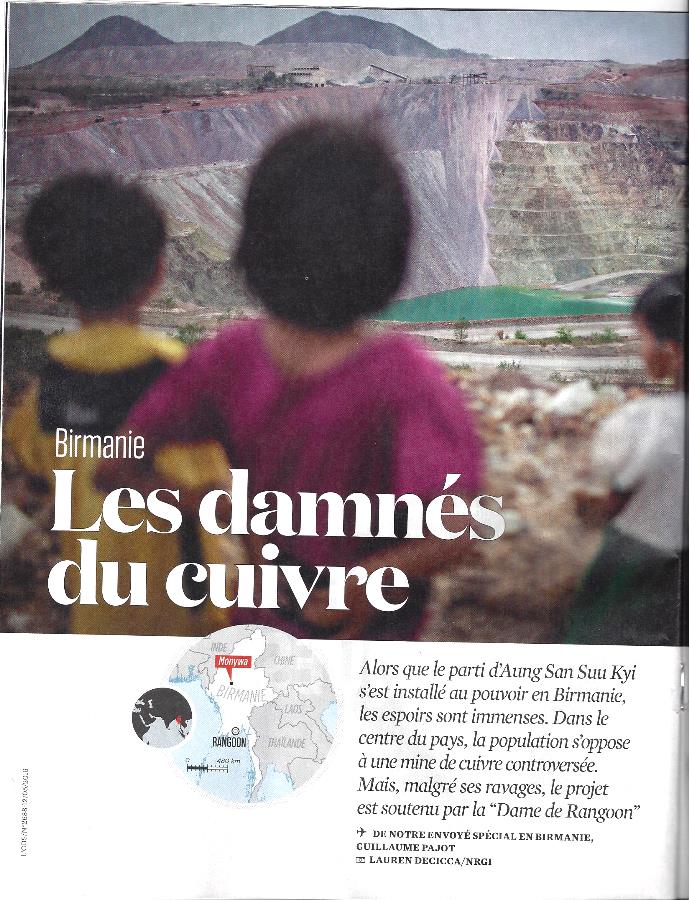
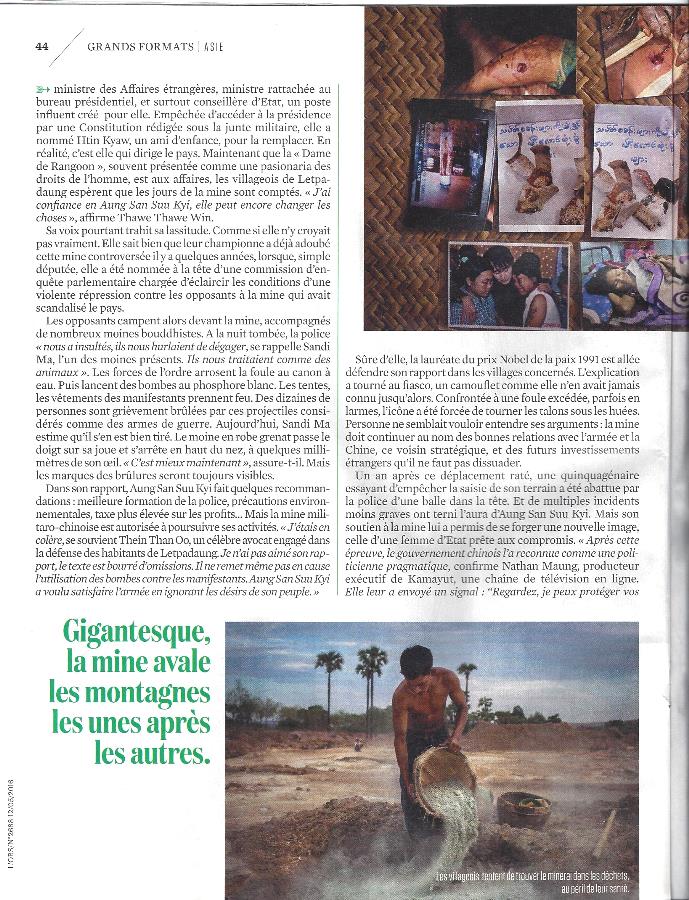
Như bô
xịt với xứ Mít, Miến Điện, đồng. Tờ Obs 12-18
Mai, 2016 kết án bà Aung, đứng về phía
quân đội, vờ quyền lợi của dân chúng.
Kẻ
Phản Thùng

John
Freeman: The Sympathizer
and Nothing Ever Dies
are published fast on the heels of one another, I wonder
if you could talk about how their thinking was linked.
Viet
Thanh Nguyen: Both of these books
come out of a line of me wanting to deal with Vietnam,
and more broadly, the question of war and memory in
general. The ideas in Nothing Ever Dies
grew slowly—I worked on it for over a decade, but the
book itself I wrote in a year. I threw out all the articles
I’d written and then wrote it from scratch after I had
finished The Sympathizer. Some of those
ideas had filtered into the fiction—but all the work of
the fiction worked itself into the writing of the nonfiction.
The ambition in the back of my mind—I may not be there yet—is
that I would love to be able to write fiction like criticism and
criticism like fiction. I think of W.G.
Sebald—a hero of mine—I can’t tell the difference in his work,
whether it is fiction or nonfiction, it all feels like literature.
So as I was writing these books closely together, I was doing the
best to incorporate criticism into the fiction, and fiction into
the criticism, so with The Sympathizer I was hoping to construct
a narrator who could say dramatically very critical things, but
who wouldn’t be restricted as an academic to source his beliefs.
In Nothing Ever Dies, I couldn’t find a way to find a sense
of humor into that book, but I really did try to take everything
I had learned from the novel—narrative rhythm, for example—even
working my basest unsaid feelings into the very shape of the thing.
One of things I want both books to do is to move the reader both
emotionally and intellectually.
Gấu biết đến Sebald là
qua 1 bài viết của Sontag. Bà coi ông,
1 thứ nhà văn của nhà văn. Viet Thanh Nguyen
coi ông là “hero” của mình, và rất
mê lối viết trộn lẫn nhiều thể loại, phê bình,
văn xuôi, hồi tưởng…. Gấu đọc Sebald khác hẳn, một
kẻ săn hồn ma, như chính ông tự nhận, hay, với GCC,
một lương tâm của nước Đức hậu chiến. Vả chăng tuy trộn lẫn
nhiều thể loại, trong khi viết giả tưởng, nhưng với
những bài viết đúng là phê bình,
hay biên khảo, Sebald xuất hiện như 1 vị quan tòa,
và văn của ông, là thứ phán đoán,
truy xét, hỏi tội, Judgment.
TV giới thiệu bài viết mới có được, về
ông, nhân mới xuống phố.
Trong bài
viết, trong cuốn trên, tác giả nối
kết Sebald, với vụ không kích,
và với Thomas Bernhard.
Bài viết của Dyer về Sebald
xoáy vào cuốn mà Gấu mê nhất của
ông, Về lịch sử tự nhiên về huỷ diệt, “On
the natural history of destruction”.
TV “phải”
mua cuốn sách, để “phải” đi 1 đường về Sebald,
là vì bài viết này, chưa
kể bài viết về “Cuộc Tình Bỏ Đi” của Scott
Fitzgerald, “Tender Is the Night” [cuốn “Một Chủ Nhật
Khác” là cùng dòng với nó]
On
the Natural History of Destruction goes to the epicenter of
ruination, examining the Allied bombardment of German cities in
the Second World War. Given the scale of the calamity, Sebald asks,
why have German writers been so silent about it? How had it come about
that 'the sense of unparalleled national humiliation felt by millions
in the last years of the war had never really found verbal expression,
and that those directly affected by the experience
neither shared it with each other nor passed it on to
the next generation'?
Geoff
Dyer: W. G. Sebald, Bombing and Thomas
Bernhard
Viet Thanh Nguyen coi Sebald
là “hero” của ông, vì cách viết
pha trộn, nào giả tưởng, nào phê bình,
hầm bà làng, như anh viết, và, nếu như thế
thôi, thì, theo GCC, đọc chưa tới Sebald!
Cõi văn của Sebald,
như của Kertesz, là 1 cõi đồng vọng cho “hồn
thiêng” Lò Thiêu, đúng như từ của Viện
Hàn Lâm ban cho ông.
Đồng Vọng cho Hồn Thiêng
Lò Thiêu
http://www.tanvien.net/cn/cn_kertesz_medium.html
Ông ta viết như một hồn ma.
W.G. Sebald, Bombing and Thomas Bernhard
The first thing to be said
about W G. Sebalds books is that they always had a posthumous
quality to them. He wrote - as was often remarked - like a
ghost. He was one of the most innovative writers of the late
twentieth century; and yet part of this originality derived from
the way his prose felt as if it had been exhumed from the nineteenth
Geoff Dyer
Điều đầu tiên được nói
về những cuốn sách của Sebald, là chúng
đều có cái air di cảo. Ông ta viết, như một
hồn ma. Là 1 trong những nhà văn làm mới
số 1 của hậu thế kỷ 20, tuy nhiên, 1 phần của cái uyên
nguyên, là từ cái cách ông viết
văn xuôi, như thể chúng được lôi
lên từ cái xác thế kỷ 19!
Viết
My Old Saigon
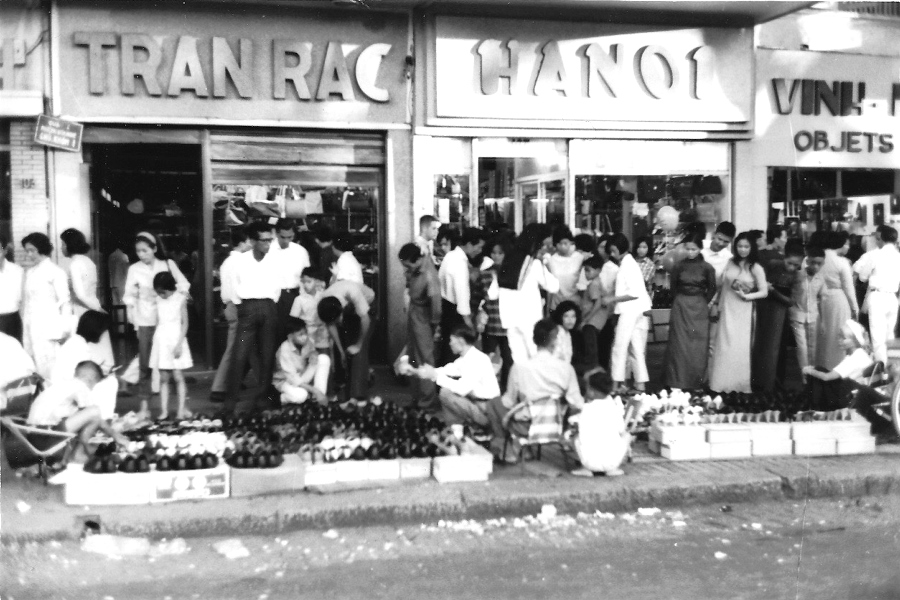
manhhai
SAIGON 1966 - by Mikey Walters
- Tiệm giầy Trần Rắc và Hà Nội trên
phố giầy Lê Thánh Tôn
https://www.flickr.com/photos/13476480@N07/
Sau 1975, thằng con trai lớn, thấy
Bố thiếu thuốc, bèn kêu bạn học tới nhà,
cho Bố dậy tiếng Tây. Trong có 1 đứa, con ông
chủ tiệm giầy, trên.
Không nhớ tiệm nào.
Nghe nói, cái
hầm từ Dinh ông Diệm, ăn ra tới khu mấy tiệm giầy. Hai ông
chui lên, chạy vô Nhà Thờ Cha Tam, Chợ Lớn, gửi e mail cho Big Minh, xin hàng.
Người cho xe tăng vô rước.
Trên đường về, Người cho cận vệ đòm cả hai,
lấy 40 ngàn đô chia nhau xài chơi.
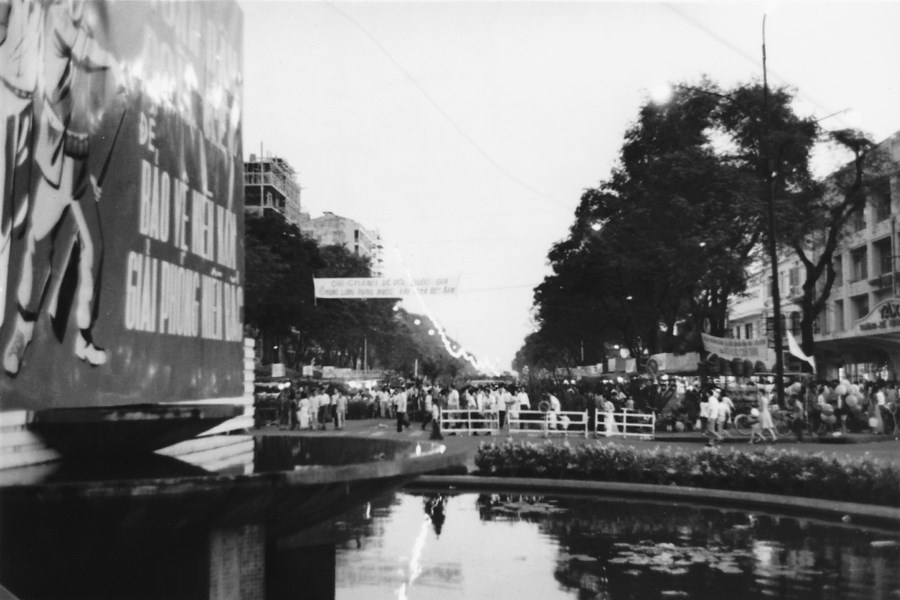 Bảo vệ Đàng Trong
Bảo vệ Đàng Trong
Giải Phóng Đàng
Ngoài
|
Trang NQT
art2all.net
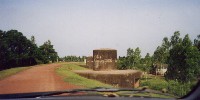
Lô
cốt
trên
đê
làng
Thanh Trì,
Sơn Tây
|

http://www.tanvien.net/Tuong_niem/war_pix_requiem_4.html

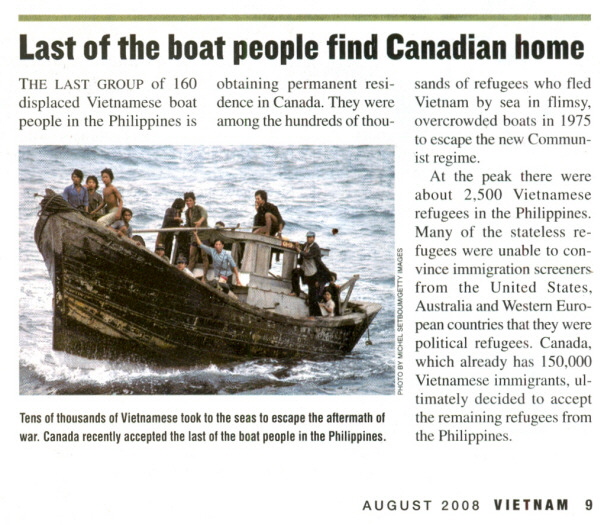
Note: Hai bức hình trên,
TV chôm từ một số báo của Mẽo
Vinh danh 4 phóng viên
nhiếp ảnh chết trong cuộc chiến Việt Nam
Apr 09, 2008
4 phóng viên nhiếp ảnh
quốc tế chết trong Cuộc chiến tranh Việt Nam được cải
táng và vinh danh tại một viện bảo tàng
sắp khánh thành ở thủ đô Washington. Theo hãng
thông tấn AP, chiếc phi cơ trực UH-1 Huey chở 4 phóng
viên nhiếp ảnh đã bị bắn rơi tại một khu vực núi
non hiểm trở ở nam Lào vào ngày 10 tháng
2 năm 1971. Trên chiếc phi cơ này còn có
7 binh sĩ Việt Nam Cộng Hòa, tổng cộng là 11 người.
Cho đến năm 1998, hài cốt của các phóng viên
này mới được tìm thấy cùng với những thứ như
các phần hư sét của máy ảnh, phim, đồng hồ và
mảnh vụn của xác chiếc phi cơ. Hài cốt của các
phóng viên này nay được đưa về chôn tại viện
bảo tàng Newseum sắp khánh thành nằm trên
đại lộ Pennsylvania ở trung tâm thủ đô Washington.
Một tấm bảng nhỏ bằng bạc khắc tên
4 phóng viên này, gồm ông
Larry Burrows 44 tuổi là ký giả của tạp chí
Life; Ông Henri Huet 43 tuổi của hãng thông tấn
AP, Kent Potter 23 tuổi của hãng thông tấn UPI;
và ông Keisaburo Shimamoto 34 tuổi, một phóng
viên độc lập cộng tác với tạp chí Newsweek. Ông
Richard Pyle là một phóng viên của AP trước
đây từng là trưởng phòng tin của AP tại Việt
Nam, nói rằng các phóng viên này
đã hy sinh mạng sống của họ trong nỗ lực ghi lại những điều
mắt thấy tai nghe trong lúc xảy ra cuộc chiến. Vào
thời điểm chiếc phi cơ trực thăng của họ bị bắn rơi, quân đội
miền nam Việt Nam đang mở Cuộc hành quân Lam Sơn 719 trên
lãnh thổ Lào. Mục đích của cuộc hành quân
này đã để cắt đứt đường mòn Hồ Chí Minh
vốn được quân đội miền bắc dùng để đưa quân, tiếp
tế lương thực và vũ khí vào chiến trường miền nam.
Ông Tom Curley, giám đốc hãng AP nói rằng
trong thời kỳ Chiến tranh Việt Nam, bốn phóng viên này
tháp tùng trên chuyến bay đi quan sát mặt
trận trên lãnh thổ Lào.
Một buổi lễ tưởng nhớ các
phóng viên báo chí trang
trọng, với một danh sách hơn 1,800 tên của các
phóng viên đã mất từ năm 1837 cho tới nay,
vừa được cử hành tại viện bảo tàng mới này.
Riêng lễ tưởng niệm bốn phóng viên nhiếp ảnh hôm
thứ Năm vừa qua được tổ chức để thân nhân và
bạn bè của các phóng viên chết ở chiến
trường Việt Nam có dịp tưởng nhớ về họ. Phi cơ của họ bị
bắn rơi vào thời điểm mà cuộc chiến tranh Việt Nam đang
diễn ra ác liệt. Cho đến đầu thập niên 90 Hoa Kỳ mới được
các nước Việt Nam, Lào và Cam Bốt cho phép
mở những cuộc tìm kiếm hài cốt các quân nhân
chết trong chiến tranh. Vài năm sau đó thì hài
cốt của các phóng viên này mới được tìm
thấy tại Lào. Ban đầu có đề nghị cải táng hài
cốt của bốn phóng viên này tại nghĩa trang quốc
gia ở Hawaii, nhưng sau đó viện bảo tàng truyền thông
báo chí đề nghị cải táng về địa điểm của viện bảo
tàng ở Washington.
Trích Calitoday
*
Chuyến bay trên, Gấu đã
viết về nó, trong bài viết Tên của cuộc chiến.
Henri Huet, Pháp lai, lớn
lên tại Miền Nam, làm cho UPI sau qua
AP. Ken Potter là sếp của Gấu.
Tên của cuộc chiến
Note: Trên, trích NKTV. Nay có
thêm bài viết của Đỗ Dzũng, Người Việt,
được Web Quốc Học Huế đăng lại, TV bê về Blog 360 plus
Larry Burrows
In 1997 Horst Faas and Tim
Page published Requiem, a homage to the 135 photographers
who died while covering the wars in Indochina and Vietnam.
The work of Larry Burrows, who photographed the war in Vietnam
from 1962 until he died in a helicopter shot down on the border
with Laos in 1971, was central to that undertaking. Vietnam, a
more extensive selection of his work, enables us to see his achievement
more extensively and to define it more clearly.
Burrows
was born in London in 1926. He left school at sixteen and
got a job in Life magazine's London bureau, where
he printed thousands of pictures by Robert Capa and others. It
would be hard to exaggerate the effect of this apprenticeship on
his subsequent career. Cap a practically invented the genre of
combat photography and defined the standards by which it would
be judged. If your pictures aren't good enough, he was fond of saying,
that's because you're not close enough. Burrows took Capa at his word.
In Vietnam a colleague decided that Burrows was either the bravest
man in the world or the most short-sighted. Tales of that myopic bravery
are legion, and Burrows himself thought 'the best thing that happens
. . . is when someone turns around and says, "Well, you've taken
your chances with the rest of us.'" Like other photographers in
Vietnam Burrows fell into the habit of edging right up to death, but
whereas Page and Sean Flynn (son of Errol) were swash-buckling, wild,
stoned, Burrows was distinguished by his patience and meticulous calm.
It is possible to detect these qualities in the formal elegance of
the work. While Capa said he would 'rather have a strong image that
is technically bad than vice-versa', Burrows was obsessed with making
strong, technically perfect images. Looking at his best photos reminds
me of some documentary footage I once saw of men coming suddenly under
fire in Bosnia. Everyone hit the dirt. It took a while to take in what
was so strange and unnerving about this footage. Then I realized that
the camera recording it all had remained absolutely steady:
This unflinching
quality is seen to dramatic effect in a black-and-white
photo-essay published in Life in April 1963.
Burrows was photographing a Marine helicopter squadron, focusing
on James Farley, a fresh-faced twenty-one-year-old gunner. In
the course of what was expected to be a routine mission the squad
comes under heavy fire. One of the helicopters goes down and Parleys
chopper lands nearby, attempting to rescue the crew. By the time
they are airborne again two badly wounded men are sprawled on the
floor of the helicopter. One of them dies. The resulting photos have
all the cramped panic and horror of Snowdon's death in Catch-22. But
what makes them into a perfect story is the shot of Farley back at base,
sobbing, aged by more than a decade in the course of a dozen photographs.
That was
the luxury of working for Life: an absence of deadlines
and the freedom to construct a narrative around photographs
rather than taking them to illustrate breaking news. Burrows
used these freedoms to similar effect in the color sequence
on Operation Prairie (1966), which culminates in the famous
image of the wounded black sergeant apparently reaching towards
his white comrade, also wounded. On the one hand it's an unadulterated
image of the chaos, mud and blood of the aftermath of combat. But
it is also a classic Life-like image in that it is, simultaneously,
a statement of fact (this really happened) and, precisely by virtue
of the unimpeachable quality of its evidence, an illustration
of a larger truth (in this case the equality of suffering and
tenderness between races) which might not be true at all. What we
have, in other words, is a vivid example of the camera's unique capability:
not the creation of a myth but its depiction. It would be a mistake,
therefore, to see images like this as proof of the photographer's
anti-war stance. At that time, in fact, Burrows was still, in his
own words, 'rather a hawk'. It was only later, in 1969, that he attained
A Degree of Disillusion. That was the title of another photo-essay,
belatedly focusing on the impact of the war on the Vietnamese,
as Philip Jones Griffiths had done throughout his time there. By
then Burrows said the faces all over Vietnam were 'more tired' and
'dazed' than he had ever known. In Roger Mattingly's well-known 1971
portrait that fatigue can be seen in Burrows' own face. He looks exactly
like one of the combat-numbed grunts he had so often pictured:
a sign of how the gap between photographer and his subjects was
shrinking, lethally. This is suggested still more powerfully by
Henri Huets picture in Requiem of Burrows helping to carry a wounded
soldier, whipped back by a chopper's downdraught. Burrows' thick-
framed spectacles make him instantly recognizable, which is slightly
odd given that the photo is so like one by him, thereby forcing
the viewer to concede that a Burrows image is not as instantly recognizable
as is often claimed. Indeed, to this observer, Huets images and Burrows'
are often almost interchangeable. Since the two photographers died
together on that helicopter flight on the Laos border this is not inappropriate.
But the images in the pages of Vietnam also have much in common with
those in Page's Nam (1983). Page was spectacularly high on the 'glamour'
of war; according to his epitaph in Life, on the other hand, when Burrows
looked at war 'what he saw was people'. Except, it turns out, his
coverage of 'The Air War' shows Burrows to be just as intoxicated by
the psychedelic technology of American fire- power as Page was. Two
almost identically framed shots, taken at the same moment, in 1969,
in Cholon - one in color by Burrows, the other in black-and-white by
Griffiths - of a blood-drenched woman with a soldier kneeling over her,
staring nine hundred yards into the distance, crop up in both Vietnam
and Vietnam Inc. (the Welshman's camera can be seen in the bottom right-hand
corner of Burrows' picture). *
This is
not to diminish Burrows' individual talent or achievement.
It is simply to recognize the accuracy of Sontag's judgement
from the 70s, namely that 'the very success of photojournalism
lies in the difficulty of distinguishing one superior photographers work from another,
except insofar as he or she has monopolised a particular
subject' - and in Vietnam they were all shooting the same subject.
Similarly, Burrows has always been praised for his humanity
and compassion when, if you think about it, what would really
set a photographer apart would be the ability to photograph injury,
suffering and death with a lack of compassion, even, possibly, with
a touch of glee. No, Burrows is a great photographer less because
of what distinguishes him as an artist than because of what he has
in common with his colleagues and subjects. And I think that those
trademark spectacles of his enable us to view his legend (in the
cartographic sense) more clearly.
It's a
classic sixth-form debate: whether to take photographs
of the injured or to try to help them. Burrows repeatedly took
photographs of wounded men being helped by their comrades,
even when they were themselves wounded. He was drawn to such
scenes because .hey dramatised that ethical dilemma so clearly
as to simultaneously resolve it. Looking at photos like this
it is striking how often one or nore of the people doing the helping
are wearing spectacles like surrows'. Maybe it's just a coincidence
(though that in itself is almost neaningless in a medium that is
about visual coincidences) but it is lifficult not to regard these
bespectacled helpers as the active repreentatives of Burrowss own
seared conviction: that showing the wound 'as also a way of tending
to it.
2002
• Actually, they are even
more similar than I thought: although Jones Griffiths'
image is printed in black-and-white in Vietnam Inc., it
was shot in colour.

John Freeman:
The Sympathizer and Nothing
Ever Dies are published fast on the heels of
one another, I wonder if you could talk about how their
thinking was linked.
Viet Thanh
Nguyen: Both of these books come out
of a line of me wanting to deal with Vietnam, and more
broadly, the question of war and memory in general.
The ideas in Nothing Ever Dies grew slowly—I
worked on it for over a decade, but the book itself I
wrote in a year. I threw out all the articles I’d written and
then wrote it from scratch after I had finished
The Sympathizer. Some of those ideas had
filtered into the fiction—but all the work of the fiction worked
itself into the writing of the nonfiction. The ambition in the
back of my mind—I may not be there yet—is that I would love to
be able to write fiction like criticism and criticism like fiction.
I think of W.G. Sebald—a hero of mine—I
can’t tell the difference in his work, whether it is fiction or nonfiction,
it all feels like literature. So as I was writing these books
closely together, I was doing the best to incorporate criticism
into the fiction, and fiction into the criticism, so with The
Sympathizer I was hoping to construct a narrator who could say
dramatically very critical things, but who wouldn’t be restricted
as an academic to source his beliefs. In Nothing Ever
Dies, I couldn’t find a way to find a sense of humor into that
book, but I really did try to take everything I had learned from
the novel—narrative rhythm, for example—even working my basest unsaid
feelings into the very shape of the thing. One of things I want
both books to do is to move the reader both emotionally and intellectually.
Gấu
biết đến Sebald là qua 1 bài viết của Sontag. Bà
coi ông, 1 thứ nhà văn của nhà văn. Viet
Thanh Nguyen coi ông là “hero” của mình,
và rất mê lối viết trộn lẫn nhiều thể loại, phê
bình, văn xuôi, hồi tưởng…. Gấu đọc Sebald khác
hẳn, một kẻ săn hồn ma, như chính ông tự nhận, hay,
với GCC, một lương tâm của nước Đức hậu chiến. Vả chăng tuy
trộn lẫn nhiều thể loại, trong khi viết giả tưởng, nhưng với những
bài viết đúng là phê bình, hay biên
khảo, Sebald xuất hiện như 1 vị quan tòa, và văn của
ông, là thứ phán đoán, truy xét,
hỏi tội, Judgment.
TV giới
thiệu bài viết mới có được, về ông,
nhân mới xuống phố.
Trong bài
viết, trong cuốn trên, tác giả
nối kết Sebald, với vụ không kích,
và với Thomas Bernhard.
Bài viết của Dyer
về Sebald xoáy vào cuốn mà Gấu mê nhất
của ông, Về lịch sử tự nhiên về huỷ diệt, “On the
natural history of destruction”.
TV “phải” mua
cuốn sách, để “phải” đi 1 đường về Sebald, là
vì bài viết này, chưa kể bài viết
về “Cuộc Tình Bỏ Đi” của Scott Fitzgerald, “Tender
Is the Night” [cuốn “Một Chủ Nhật Khác” là
cùng dòng với nó]
On the Natural
History of Destruction goes to the epicenter of ruination, examining
the Allied bombardment of German cities in the Second World War. Given
the scale of the calamity, Sebald asks, why have German writers been
so silent about it? How had it come about that 'the sense of unparalleled
national humiliation felt by millions in the last years of the war had
never really found verbal expression, and that those directly affected
by the experience neither shared it with each other
nor passed it on to the next generation'?
Geoff Dyer:
W. G. Sebald, Bombing and Thomas Bernhard
Câu hỏi trên,
1 cách nào đó, có thể áp
dụng vào Miền Bắc xứ Mít: Tại sao chúng
vờ luôn Công Ơn Trời Biển của Thiên Triều?
B ài phỏng vấn W.G. Sebald do Eleanor
Wachtel thực hiện, Tin Văn quả có nhắc tới, qua cái
tên là Kẻ săn hồn ma, Ghost Hunter. Bài mới,
chắc là bài cũ, nhưng thêm phần nhận xét
của Wachtel.
Ghost Hunter
Eleanor Wachtel [CBC Radio’s
Writers & Company on April 18, 1998]:
Sebald viết một kinh cầu cho
một thế hệ, trong Di dân, The Emigrants, một cuốn sách
khác thường về hồi nhớ, lưu vong, và chết
chóc. Cách viết thì trữ tình, lyrical,
giọng bi khúc, the mood elegiac. Ðây là những
câu chuyện về vắng mặt, dời đổi, bật rễ, mất mát, và
tự tử, người Ðức, người Do Thái, được viết bằng 1 cái
giọng hết sức khơi động, evocative, ám ảnh, haunting, và
theo cách giảm bớt, understated way.
Di dân có
thể gọi bằng nhiều cái tên, một cuốn tiểu thuyết,
một tứ khúc kể, a narrative quartet [Chắc giống
Tứ Khúc BHD
của GCC!], hay, giản dị, không thể gọi tên, sắp hạng.
Ông diễn tả như thế nào?
WG Sebald:
Nó là
một hình thức của giả tưởng văn xuôi, a form
of prose fiction. Theo tôi nghĩ, nó hiện hữu thường
xuyên ở Ðại lục Âu châu hơn là
ở thế giới Anglo-Saxon, đối thoại rất khó chui vào
cái thứ giả tưởng văn xuôi này….
EW: Một nhà phê
bình gọi ông là kẻ săn hồn ma,
a ghost hunter, ông có nghĩ về mình như
thế?
WGS: Ðúng như thế.
Yes, I do. I think it’s pretty precise…

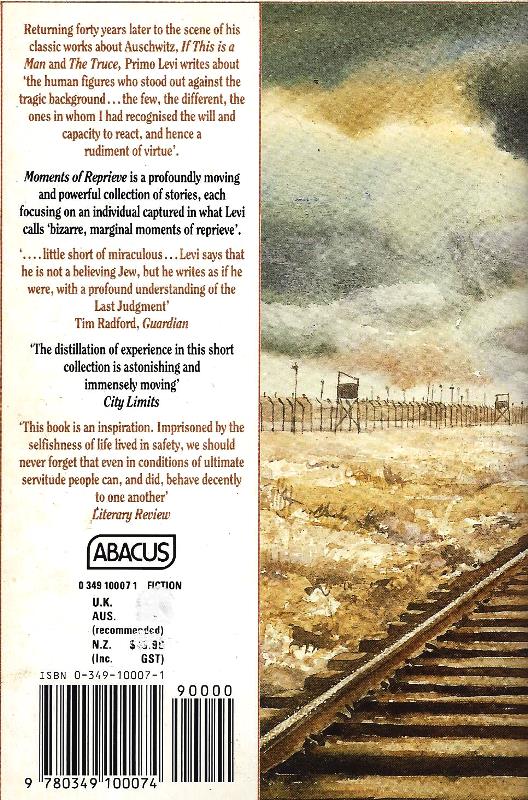
Mua xon. Thần
sầu!
Những khoảnh khắc
tạm hoãn án tử hình!
Tớ là 1
tên Bắc Kít không có niềm tin Ky
Tô - đúng là 1 đại ân hận - nhưng rất
am hiểu, uyên bác, thấu đáo, về Phán
Xét Cuối Cùng!
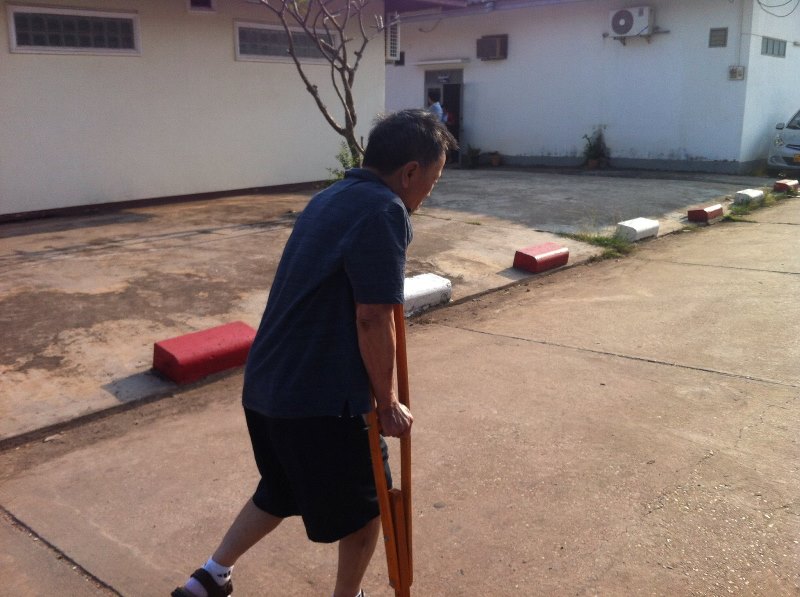
Người Què Gánh Tội
Trên thế
giới, có, và luôn luôn có,
36 người què, còn được gọi là 36 vì
công chính, mà sứ mệnh của họ, là,
biện minh thế giới, trước Thượng Đế.
Họ là
những tên què gánh tội, Lamed Wufniks.
Họ không
biết nhau, và rất ư là nghèo khổ.
Nếu có
1 tên biết rằng mình là tên què
gánh tội, là bèn lập tức, ngỏm củ tỏi.
Và một
người khác, có lẽ ở đâu đó trên
thế giới, thế chỗ anh ta.
Không
có 36 tên cà chớn này, là
liền lập tức, Thượng Đế xóa sổ thế giới.
http://www.tanvien.net/Viet/Borges_Imaging_Beings.html

Note:
Tin Văn đã giới thiệu một số phỏng vấn do
Wachtel thực hiện cho 1 đài phát thanh.
Bài về Sebald,
cũng đã giới thiệu. Đây là cuốn thứ
nhì của tác giả. Đọc bài về Pamuk, thú
quá bèn bê về.
WACHTEL Dogs seem to
play an important role in this novel, and even make
appearances in other novels of yours. But here, Mevlut, the
central character in A Strangeness in My Mind, is extremely
afraid of the packs of dogs that roam the streets of Istanbul
at night. Do they worry you also?
PAMUK Traditionally,
Istanbul was left to dogs at night. Western observers
thought that packs of dogs were dominant at night, and so
strong during the day that you could feel their domination,
lying in the middle of the street, barking at anyone who passed
by, begging for food from the shopkeepers, et cetera. Gerard de
Nerval, the French writer-a man of immense, poetic, and melancholic
imagination-came to Istanbul in the 1850s and wrote about it in
his Journey to the Orient.
He observed that packs
of dogs survived in Istanbul because they had a municipal
function-they ate the trash-and that's why the people
of Istanbul like their dogs. Dogs in Istanbul also have a symbolic
value, especially from the beginning of the eighteenth century.
The Ottoman rulers, the sultans and elites, wanted to slaughter
all the dogs because they thought the streets of Europe, their
aspirational standard, were free of dogs. This they considered
modernization. There were many attempts to kill the dogs;
including sending them to a nearby island so they would eat
each other-very brutal, modernist attempts to get rid of
the dogs. Conservative, old-fashioned residents of Istanbul wrote
petitions to the bureaucracy, to the sultans: Please give us our
dogs back. We'll keep our dogs. So while dogs were sometimes just
pets, the desire to extinguish them, to kill them, was also part
of the East-West arguments in Turkey.
Bài phỏng vấn Sebald, chưa đi trên
TV, nhưng GCC đọc rồi.
Bài phỏng vấn
Kincaid mà chẳng tuyệt sao. Đám Mít
hải ngoại, tên nào cũng thù da trắng, nhất
là Mỹ trắng, nhất là đám ở Mẽo, quốc tịch Mẽo quái
thế.
Chúng có lẽ nên đọc bài
phỏng vấn Kincaid,
sau đây.
Người Mẹ trong tác phẩm của Kincaid
Bài
dịch này, cũng là từ hồi mới qua Canada, 1997. Ng.
Tuấn Anh cũng là bút hiệu của Gấu Cà Chớn
Đọc bản
tiếng Anh 1 phát, là trúng đòn liền, vì
Gấu cũng 1 thứ không thương Mẹ mình, và đây
là độc hại di truyền từ bà nội Gấu.
Bà rất thù
cô con dâu, và đổ diệt cho mẹ Gấu, vì
ngu dốt quá, khiến chồng bị chúng giết.
Bà
cụ Gấu do tham phiên chợ cuối năm 1946, tại Việt Trì,
và khi trở về làng quê bên kia sông,
tay thủ lãnh băng đảng chiếm Việt Trì lúc đó,
là 1 tên học trò của ông cụ, đã
đưa cái thư mời dự tiệc tất niên, nhờ bà đưa cho
chồng. Nhận được thư, đúng bữa ba mươi Tết, ông cụ đi, và
mất tích kể từ đó. Gấu đã viết về chuyện này
trong Tự Truyện.
Lần trở lại đất Bắc,
Gấu muốn tìm hiểu coi cụ mất đích thực ngày
nào, và thắp 1 nén hương cho bố mình.
Bãi
sông Việt Trì, nơi ông cụ Gấu mất. Khi Gấu về,
cầu đang thi công. Gấu xuống xe, thắp hương, cúng, khấn
Bố.
Bà chị Gấu không
xuống xe. Hình như Bà chưa lần nào cúng
Bố.
Cúng Mẹ thì
lại càng không.
Note: Bản trường ca, hoá
ra là trang Tin Văn, chỉ để tố cáo Cái Ác
Bắc Kít.
Kincaid viết về quê hương
của Bà:
Bạn cứ tới những nơi chốn, nơi
cái xiềng thuộc địa thật sự bằng thép,
và tỏ ra hết sức hữu hiệu: Phi Châu, vùng
Caribbean, hay một nơi nào khác trên địa cầu.
Phi Châu là một thảm họa. Tôi không hiểu
đất đai con người ở đây rồi có ngày lành
mạnh trở lại, hay là không. Thật khó có chuyện,
những ông chủ thuộc địa bỏ qua, không đụng tới cái
phần tâm linh của con người Phi Châu. Bởi vậy, chuyện
tiểu thuyết hóa là đồ dởm. Những người Phi Châu
đối xử với nhau thật là độc ác; bạn chỉ việc nhìn
tất cả những con người đói khát đó thì
thấy. Làm sao có chuyện những ngài thủ lãnh
Phi Châu nhìn vào mặt con dân của họ, và
rớt nước mắt? Họ cứ tiếp tục duy trì, theo một con đường
tệ mạt khốn kiếp, cái điều đã xẩy ra khi còn
chế độ thuộc địa. Sự thực, là bất cứ đâu đâu, cái
gọi là di sản của chủ nghĩa thuộc địa, đó là:
độc ác, tàn nhẫn, trộm cướp. Cách những tên
thực dân đối xử: mild way, nhẹ nhàng thôi, đôi
lúc có xoa đầu những người dân cô lô
nhần, bây giờ chúng ta đối xử với nhau, theo một cách
cay độc hơn, khốn kiếp hơn. Và bạn biết không, chúng
ta cứ mắm môi mắm lợi, lấy hết sức lực ra, full force, để mà
"chơi" nhau. Bởi vậy, có thể dưới luật thuộc địa, người Phi
Châu ăn rất ít; dưới luật của người Phi Châu, họ
chẳng ăn gì hết - và cứ như thế.
Có
1 cái gì đó, y chang xứ Bắc
Kít, thời Pháp Thuộc.
Khi vô Nam, là
Gấu nhận ra liền, xứ này không giống xứ Bắc
Kít, và Gấu mơ hồ hiểu ra, sự khác biệt là
do đâu.
Gấu nhớ, hồi mới vô Sài
Gòn, lần đầu vô 1 quán ăn xã
hội, chỉ phải mua đồ ăn, cơm tha hồ ăn, khỏi trả tiền,
thằng bé Bắc Kít sững người, ú a ứ ớ…. Rồi những
lần đi chơi Bình Dương, vào vườn chôm chôm,
cũng tha hồ ăn, nhưng đừng mang về, rồi, rồi, chỉ đến khi
vô tù VC, thì mới gặp lại xứ Bắc Kít
ngày nào.

Kẻ
Phản Thùng
ACKNOWLEDGMENTS
Many of the
events in this novel did happen, although I confess
to taking some liberties with details and chronology.
For the fall of Saigon and the last days of the Republic
of Vietnam, I consulted David Butler's
TheFall of Saigon, Larry Engelmann's
Tears Before the Rain, James Fenton's
"The Fall of Saigon;' Dirck Halstead's "White Christmas;'
Charles Henderson's Goodnight Saigon,
and Tiziano Terzanis Giai Phong!
The Fall and Liberation of Saigon. I am particularly
indebted to Frank Snepp's important book Decent
Interval, which provided the inspiration for Claude's
flight from Saigon and the episode with the Watchman. For
accounts of South Vietnamese prisons and police, as well as Viet
Cong activities, I turned to Douglas Valentine's
The Phoenix Program, the pamphlet We
Accuse by Jean-Pierre Debris and Andre Menras, Truong Nhu
Tang's A Vietcong Memoir and an article in the January
1968 issue of Life. Alfred W. McCoy's A
Question of Torture was crucial for understanding
the development of American interrogation techniques from the
1950s through the war in Vietnam, and their extension into the
American wars in Iraq and Afghanistan. For the reeducation camps,
I made use of Huynh Sanh Thong's To Be Made Over,
Jade Ngoc Quang Huynh's South
Wind Changing, and Tran Tri Vus Lost Years.
As for the Vietnames resistance fighters who attempted to invade Vietnam,
a small exhibit in the Lao People's Army History Museum in Vientiane
display their captured artifacts and weapons.
While those fighters have been largely forgotten,
or simply never known, the inspiration for the Movie can
hardly be a secret. Eleanor Coppola's documentary
Hearts of Darkness and her
Notes: The Making ofApocalypse Now
provided many insights, as did Francis Ford Coppola's commentary
on the Apocalypse Now DVD. These works
were also helpful: Ronald Bergan's Francis
Ford Coppola: Close Up Jean-Paul Chaillet and Elizabeth
Vincent's Francis Ford Coppola, Jeffrey
Chowns : Hollywood Auteur: Francis Coppola, Peter
Cowie's The Apocalypse Now Book and Coppola:
A Biography. Michael Goodwin
and Naomi Wise's On the Edge: The Life and Times
of Francis Coppola, Gene D. Phillips and Rodney Hill's
Francis Ford Coppola: Interviews, and Michael Schumacher's
Francis Ford Coppola: A Filmmaker's Life. I
also drew on articles by Dirck Halstead, 'Apocalypse Finally", Christa
Larwood, "Return to Apocalypse Now", Deirdre McKay and Padmapani
L. Perez, "Apocalypse Yesterday Already! Ifugao Extras and the
Making of Apocalypse Now" Tony Rennell,
"The Maddest Movie Ever"; and Robert Sellers, "The Strained
Making of Apocalypse Now."
The exact words of others were occasionally important
as well, in particular those of To Huu, whose poems appeared
in the Viet Nam News article "To Huu:
The People's Poet"; Nguyen Van Ky, who translated the proverb
"The good deeds of Father are as great as Mount Thai Son,"
available in the book Viet Nam Exposé,
the 1975 edition of Fodor's Southeast
Asia; and General William Westmoreland, whose ideas concerning
the Oriental's view of life and its value were given in
the documentary Hearts and Minds
by director Peter Davis. Those ideas are attributed here
to Richard Hedd. Finally, I am grateful to a number of organizations
and people without whom this novel would not be the book that it
is. The Asian Cultural Council, the Bread Loaf
Writers Conference, the Center for Cultural Innovation, the Djerassi
Resident Artists Program, the Fine Arts Work Center, and the
University of Southern California gave me grant, residencies,
or sabbaticals that facilitated my research or writing. My agents,
Nat Sobel and Julie Stevenson, provided patient encouragement and
wise editing, as did my editor, Peter Blackstock. Morgan Entrekin and
Judy Hottensen were enthusiastic supporters, while Deb Seager, John
Mark Boling, and all the staff of Grove Atlantic have worked hard
on this book. My friend Chiori Miyagawa believed in this novel from
its beginning and tirelessly read the early drafts. But the people
to whom I owe the greatest debt are, as ever, my father, Joseph Thanh
Nguyen, and my mother, Linda Kim Nguyen. Their indomitable will and
sacrifice during the war years and after made possible my life and
that of my brother, Tung Thanh Nguyen. He has been ever supportive,
as has his wonderful partner, Huyen Le Cao, and their children, Minh,
Luc, and Linh.
As for the last words of this book, I save them for
the two who will always come first: Lan Duong, who read every
word, and our son, Ellison, who arrived right on time.
[VTN]
Theo GCC,
"nguồn" của cuốn Kẻ Phản Thùng,
chính là điệp vụ, mission, của Cao Bồi,
khi anh nghĩ là Bắc Kít sẽ cho anh di
tản vào ngày 30 Tháng Tư 1975, và
tiếp tục nằm vùng trong thế giới Ngụy ở hải ngoại.
Anh đã
chẳng cho di tản vợ con ư?
Cái
cú giúp bạn quí Trần Kim Tuyến lên
máy bay ở trên mái nhà 1 căn cứ
của XỊA, theo GCC, là cũng để "dùng vào
việc" sau đó, nhưng đến giờ chót Bắc Bộ Phủ phán,
NO, vì sợ lộng giả thành chân, anh sẽ thực
sự trở cờ.
Bắc Kít
huỷ điệp vụ của PXA, và, thay vì di tản, thì đi
học tập cải tạo.
Chúng
chỉ muốn thịt tôi, nhưng tôi chọc chúng
đủ giận, nhưng không quá mức để chúng không
có cớ giết tôi, PXA chẳng đã từng
trả lời cái tay phỏng vấn ông, trong bài
viết trên tờ Người Nữu Ước?
Thành
ra cuốn Kẻ Phản Thùng, chính
là giấc mơ di tản của Cao Bồi đã được thực hiện
qua 1 cuốn tiểu thuyết.
Trong lời
cám ơn, VTN không nhắc tới PXA, kể như 1
thiếu sót lớn, theo GCC.
Đọc lời cảm
ơn, ảnh hưởng lớn lên VTN, là
Trái Tim Của Bóng Đen, qua tiểu
thuyết, và qua phim, khi Coppola chuyển thể nó,
Tận Thế Là Đây.
Bạn đọc TV chắc
còn nhớ câu phán thần sầu của Coppola:
Tận Thế Là Đây, LÀ, Việt
Nam?
Nếu như thế,
thì Kẻ Phản Thùng, cũng
LÀ, Việt Nam!
VTN nhắc tới
Tố Hữu, đúng ra, nên nhắc tới Trần Dần:
Sartre (Situations,
I) nhắc tới "ý hướng tính", coi
đây là tư tưởng cơ bản của hiện tượng
luận: "Husserl đã tái tạo dựng (réinstaller)
sự ghê rợn và sự quyến rũ vào trong
những sự vật. Ông tái tạo thế giới của những nghệ
sĩ và của những nhà tiên tri: Ghê sợ, thù
nghịch, nguy hiểm trùng trùng, với những bến
cảng, nơi trú ẩn của ân sủng và tình
yêu."
Tôi
đã lầm, khi nghĩ, chẳng bao giờ người ta lại
được đọc những trang sách tuyệt vời, về Hà-nội.
Có thể là do một câu thơ và viễn
ảnh khủng khiếp nó gây ra ở nơi tôi. "Chỉ
thấy mưa sa trên mầu cờ đỏ" (Trần Dần), câu thơ
như một "Apocalypse Now" (Tận Thế Là Đây), không
phải chỉ riêng cho Hà-nội.
Làm
sao mà thi sĩ lại nhìn thấy suốt cuộc chiến
sau đó, không phải chiến thắng, mà huỷ diệt,
một thành phố, rồi cùng với nó, là
biểu tượng của cả một dân tộc ?
CBS's Cameraman & UPI's Radiophoto
Operator
Đồng Nghiệp
Thời Chiến
Gấu: Nhớ xừ luỷ không?
Nguyễn Ngọc
An [CBS's Cameraman]:
Ẩn hả? Nhớ
chứ. Bữa nào mà chẳng gặp ở Press
Center.
The Vietnam War (or American War, as
it is called in Vietnam) was long and bloody.
The Vietnamese estimate that between 1954 and 1975
about one million communist fighters and four million
civilians died. According to US numbers, nearly 60,000 American
soldiers died or went missing in action, 300,000 were injured
and about 250,000 South Vietnamese soldiers were killed.
In terms of media
coverage, the Vietnam War was unique: not only did
journalists have unlimited access, it was also the first
war where images had a profound influence on the public opinion.
Although an indisputable connection between media imagery
and the course of war has never been demonstrated, the idea
that photos and TV footages had played a major role in political
and strategic decisions firmly fixed itself in the collective
consciousness. This perception of the Vietnam War would also
influence the US restrictions imposed on the media during
the Persian Gulf War (1990-1991), the war in Afghanistan
(2001-) and the Iraq War (2003-2010).
Cuộc chiến Mít khủng khiếp còn
ở điểm này: Báo chí tha hồ đưa tin.
Ngụy chết vì
thế, trong khi cả cuộc chiến VC chỉ có phạm
1- một- tội ác,
như Tin Văn đã từng báo cáo!
Cái mánh loại trừ là
bản năng tự vệ của mọi chuyên viên
The trick of elimination
is every expert’s defensive reflex.
Stanislaw Lem: Imaginary
Magnitude
Vụ da cam đang nóng, nóng
dây chuyền tới những vụ khác, như
thảm sát Mậu Thân, mà những tài
liệu từ một diễn đàn trên lưới cho thấy, không
phải VC mà là CH [Cộng Hoà] gây
nên. Rồi ngày nào, là vụ pháo kích
vô một trường học ở Cai Lậy, cũng pháo CH, không
phải hoả tiễn VC.
Nếu có chăng,
là độc nhất một tấm hình, chụp một ông
xã trưởng bị VC chặt đầu, rồi dùng chính
cái sọ dừa, dằn bản án lên bụng tử thi,
trên bìa tờ Time của Mẽo ngày nào,
mà độc nhất Gấu tui còn nhớ.
Ngoài ra
là… chấm hết!
Cả cuộc chiến,
VC không gây một tội ác nào khác.
Nếu có, là phải đợi tới sau 1975.
Chúng ta
tự hỏi, liệu sau này, lịch sử sẽ phải giải thích
như thế nào, về trường hợp quái dị trên
đây?
Cả một dân
tộc chạy ra biển cả để trốn VC, mà VC thì
tốt như thế, không hề gây ra tới… “hai” tội ác.
Để giải thích
trường hợp quái dị trên đây, Gấu tui
đành mượn một câu, nhà văn Đức Sebald trích
dẫn, trong cuốn Về Lịch Sử Tự Nhiên Của Huỷ Diệt,
On The Natural History Of Destruction, của ông:
Cái mánh loại trừ là
bản năng tự vệ của mọi chuyên viên
The trick of elimination is every
expert’s defensive reflex.
Stanislaw Lem:
Imaginary Magnitude
Nói rõ
hơn, mấy ông VC rất rành về chuyện chùi
mép - nghĩa là loại trừ mọi rủi ro, bị phanh
phui, bị bật mí - này.
Chỉ tội ông
tướng Loan, nghe nói, đã từng mời báo
chí Mẽo tới chứng kiến ông xử một anh VC ngay
tại trận tiền, những ngày Mậu Thân.
Độc giả Tin Văn đã biết về Sebald,
qua bài tưởng niệm ông, khi ông qua
đời sau một vụ đụng xe. Cuốn Lịch sử tự nhiên về huỷ
diệt, cũng là do một sự ngạc nhiên quái
dị liên quan tới Đồng Minh uýnh nhau với Nazi:
Trong thời Đệ Nhị Chiến, 131 thành phố và
đô thị là mục tiêu ăn bom của Đồng Minh,
nhiều nơi biến thành bình địa. Sáu trăm
ngàn thường dân bị chết, gấp đôi con số
thương vong của Mẽo. Bẩy triệu rưởi thường dân Đức không
còn nhà ở. Sebald ngạc nhiên tự hỏi, tại
làm sao mà lịch sử lại vờ đi một sự kiện như thế,
nhất là ở nơi ký ức văn hoá của chính
nước Đức?
Trong những lời ca ngợi cuốn sách
lạ kỳ của ông, có:
Hầu hết mấy ông
nhà văn, ngay cả thứ ngon cơm, viết cái
điều có thể viết... Thứ quá sá ngon cơm, nghĩa
là thứ đại hảo hạng, viết cái không thể
viết... Tôi nghĩ đến nữ thi sĩ Nga, Akhmatova, và
nhà văn Ý gốc Do Thái, Primo Lévi.
Nay có thêm W.G. Sebald.
Nữu Ước Thời Báo
Bí mật của
nỗi ngạc nhiên đến phải cầm viết viết, và
lên tiếng, của Sebald, là, ông tự thấy mình
cổ lỗ sĩ, khi chọn cho mình thứ tiếng nói của
lương tâm mà hầu như chẳng còn ai nhớ. Đó
là thứ lương tâm của một người nào đó,
và người này nhớ đến sự bất công, và nói
thay cho những người không còn có thể nói
được.
Điểm Sách Nữu Ước
Trong bài viết Không Chiến và Văn Chương, Air
War and Literature, ông có
giải thích về cái sự im hơi bặt tiếng, của
hồi ức văn hoá Đức: Họ coi đây là một điều
cấm kỵ, một vết thương, vết nhục ở trong gia đình, [a
kind of taboo like a shameful family secret].
Cao Bồi, Bạn Gấu Nhà Văn
Cựu chủ
[Time] viết về nhân viên
cũ.
(1)
DIED. Pham Xuan An, 79, Viet Cong colonel who worked during the Vietnam War
as a highly respected journalist for TIME while spying for the communists—a
double life kept secret until the mid-'80s; in Ho Chi Minh City. The first
Vietnamese to become a staff correspondent for a U.S. news
outlet, An said he was an "honest reporter" who did not spread misinformation.
From his unique perch at TIME's Saigon bureau, the popular, plugged-in An
was able to achieve feats for both sides, alerting the Viet Cong to the impending
buildup of U.S. troops in the mid-'60s and secretly arranging for the release
of American journalist Robert Sam Anson, captured in Cambodia by the Khmer
Rouge.
[Từ
trần. Phạm Xuân Ẩn, 79 tuổi, đại tá Việt Cộng, trong chiến tranh
Việt Nam, là một ký giả rất được kính trọng của tờ Time,
cùng lúc còn làm công tác gián
điệp cho Cộng Sản - một cuộc sống kép được giữ kín cho
tới giữa thập niên 1980, tại Thành Phồ Hồ Chí Minh.
Người Việt Nam đầu tiên trở thành
nhân viên chính thức, cho một tờ báo lớn của
Mỹ, tại một trụ sở ở nước ngoài của nó. Ẩn nói,
ông phục vụ như là một "thông tín viên
lương thiện", theo nghĩa, không phao tin dởm. Giống như một con
cú, đậu chót vót trên cao, từ vị trí
độc nhất của mình ở tòa soạn báo Time, con người bình
dân, giao thiệp rộng rãi, nằm vùng là Ẩn đó
có thể hoàn thành những kỳ công cho cả hai bên,
trong đó có việc báo động cho VC về những cuộc điều
động quân đội Hoa Kỳ trong thời gian giữa thập niên 1960, và,
bí mật dàn xếp với lực lượng Khờ Me Đỏ, để họ thả ký
giả Mỹ Robert Sam Anson, bị bắt tại Cambodia.]
Tẫu có câu:
Tiểu lượng phi quân tử
Vô độc
bất trượng phu
(Lượng nhỏ
chẳng thành người quân tử
Không
độc sao nên đấng trượng phu)
Cú
ngửa tay xin tiền bạn cũ của PXA phải nói là
cú tối tối độc, bởi vì, với cái tội để mất
Miền Nam, rồi để mất cả nước, rồi đẩy cả nước xuống biển,
rồi đẩy cả nước vô cơn băng hoại không làm
sao ra thoát [Gấu tin là vô phương!],
biến cả thế giới thành bãi đánh hàng
nữa chứ!, tất tất tật đổ vào đầu PXA, khi ông đánh
bức điện mở cửa Sài Gòn: Yankee mũi lõ chạy
có cờ rồi, chúng không có lý do
nào để trở lại nữa, Yankee mũi tẹt vô mau lên!
Không
có bức điện của PXA, có thể tình hình
khác đi.
Hơn ai hết,
là một tổ sư cớm nằm vùng, như con cú
từ trên cao nhìn xuống, ông quá rành
điều này, như Ngọa Long ngày nào nằm
khểnh trong lều tranh, mà biết thiên hạ sẽ phân
ba.
PXA biết, nhưng không biết,
cái không thể nào biết: Ông xa Đất
Bắc lâu quá, đã mấy đời rồi,
ăn cơm Miền Nam, ị ra cứt Miền Nam cũng đã mấy đời rồi,
trong cứt không còn một tí Bắc Kít
nào hết, nhưng trái tim ông hoàn
toàn là Bắt Kít, một thứ Bắc Kít tuyệt
vời, từ đó, là cái chân lý
tuyệt vời, thống nhất đất nước, biến cả nước thành một
Miền Nam tuyệt vời.
Trong ông
Cái Ác Bắc Kít kể như không
còn.
Vào
những giờ phút cuối cùng, ông đi không
được, là vì những chuyện đó, chắc chắn
như vậy.
*
Năm
học Đệ Nhất Chu Văn An, ông thầy dậy
sử của Gấu là Vũ Khắc Khoan. Học ban B. B8, ngay cổng ra vào,
khi nhà trường còn nằm nhờ truờng Pétrus Ký,
miếng đất sau trở thành Trung Tâm Học Liệu. Người hồi đó
đi solex, rất nhiều khi tới cổng vẫy vẫy, ra ý, hôm nay
Thầy bận, rồi đi. Nếu có vô lớp thì cũng ít
khi nói về sử, mà thường là về kịch, về
“chúng ta đã xuống thuyền”, và về…Hà
Nội.
Có một lần ông
kể chuyện, về mấy anh Tây mũi lõ, ở bên chánh
quốc, thất nghiệp, đói rã họng, bèn
kiếm cách xuống tầu tới Đông Dương, tới Hà
Nội, không phải để kiếm việc làm, thiếu
gì, nhưng mà là để làm “cái
bang”, mỗi khi cần tí tiền, là ra nhà
hàng Godard, lấy cái nón trên đầu
xuống, lật lên, xin tiền đám Mít quí
phái, và đám Tây Đầm.
Lũ Tây Đầm ngượng
lắm, vừa thấy cái nón lật lên, là
thẩy tiền liền. Thấy "đường được", là tếch. Nhất định
không chịu kiếm việc làm. Thế mới thú.
Đám Mẽo làm
hùng hục, chỉ mãi đến khi quá
chán cuộc chiến Mít, mới nghĩ ra trò
này: Ăn xin thay vì làm việc!
Liệu
Cao Bồi biết kỳ tích đó, và
anh sử dụng đòn ăn xin - không phải xin
đám Bắc Bộ Phủ [mày cho tao bao nhiêu cho
xứng công lao gian khổ “nằm Time [Tai, không phải
Gai], nếm XO”, làm một tên cớm VC nằm vùng,
bán đứng cả một miền đất đã từng cưu mang mấy đời
họ Phạm, gốc Hải Dương, Bắc Kít - mà xin mấy anh bạn
báo chí cũ, một công đôi ba việc: Tao
xin tiền tụi bay, vì tao lỡ lừa tụi bay, và chỉ có
cách xin tiền tụi bay, chịu nhục chịu nhã như thế, thì
mới phần nào chuộc tội, với cả tụi mày, và cả
đồng bào của tao.
Tuyệt
chưa?
Thảo nào
đã có thời đánh bạn với Gấu!
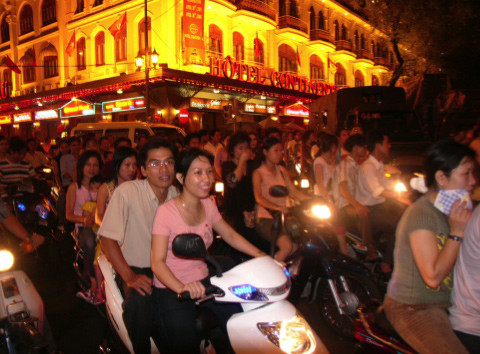
Saigon Streets
© 2005 by Dirck Halstead
Viết
 Kertész, le médium
d'Auschwitz
http://www.magazine-litteraire.com/mensuel/567/kertesz-medium-auschwitz-01-05-2016-139133
Kertész, le médium
d'Auschwitz
http://www.magazine-litteraire.com/mensuel/567/kertesz-medium-auschwitz-01-05-2016-139133
« Vous remarquerez que
je ne me suis pas suicidé... Tous ceux qui ont vécu
ce que j'ai vécu, Celan, Améry, Borowski, Primo
Levi... ont préféré la mort. »
... que le communisme
était en fait une continuation du nazisme.
Đồng Vọng cho Hồn
Thiêng Lò Thiêu
Poland vs. History
Timothy Snyder
Note: Đang lèm bèm
về Tên Phản Thùng, gặp bài này!
Ba
Lan vs Lịch Sử.
Nói rõ
hơn, Ba Lan tính xây dựng 1 Viện Bảo Tàng
tưởng niệm nạn nhân Do Thái.
Đang xây, đúng
hơn, và bèn ngưng!
Việt Thanh Nguyên
nói về cuốn sách của mình, nó
có 1 điều gì đó làm phật lòng
tất cả mọi người!
Quả đúng như
thế.
Và một điều
gì đó, có gì tương tự với
Ba Lan vs Lịch Sử!
SHADED by a tree,
an elderly farmer gestures hopefully at the
scrawny green shoots poking from his small plot
in Vietnam’s Mekong river delta. The sugar crop he planted
earlier in the year has already failed once, poisoned by
dry and salty soil. Fresh growth from the cut-back plants
now offers a second chance, but without rain it may go the same
way. The farmer is lucky to have a pond full of fish, which he
shares with his neighbours. But he says his family will have
to find other work this year to make ends meet.
Tales such as this
are common on the tiny island of Cu Lao Dung
in the delta’s southern reaches (see map), five
minutes from the mainland by scooter-crammed ferry. During
the annual dry season surrounding waters always turn
salty, as brine from the sea pushes up the delta’s channels.
But this is an exceptionally dry year, with river levels at
90-year lows. The water has become unusually concentrated with
salt, which is spreading more extensively. The salt is creeping
through the farmland like damp up a wall.
Drought is plaguing
much of mainland South-East Asia, including
Myanmar, Laos and Cambodia. Thailand’s shortages
are the worst for two decades (though urbanites still
splashed around during Songkran, its annual water festival
in mid-April). Vietnam has been hit as hard as any. The Mekong
basin is home to one-fifth of the population. It produces about
half of the country’s rice. The government says the amount available
for export in the three months to June will be 11% less than
originally forecast. Drought in the country’s Central Highlands
has affected a third of coffee plantations there and now endangers
the region’s supply of drinking water. These woes are weighing
on the economy. Growth in the first quarter slowed by half a percent
year-on-year to 5.5%.
The immediate cause
is El Niño, a recurring weather phenomenon
which causes downpours in the Americas but heat
and drought in much of Asia. Scientists believe
that El Niño’s effects are growing stronger as global
temperatures rise. Last year it was blamed for exacerbating
annual fires on farmland in Indonesia, which smothered much
of the region in a noxious haze.
People living near
the Mekong say there is another problem:
hydroelectric dams built in China near the head
of the river that are holding up its flow. Since March
China has loosened some of the dam gates, ostensibly as a
favour to its neighbours. But locals say the effect on water
levels has been measly. The episode has only heightened
fears that China (with which Vietnam has an enormous trade deficit
and an intense territorial dispute) can use water flow to hold
the country to ransom.
The dams are certainly
stripping the Mekong of essential sediment.
But many of Vietnam’s water woes are self-inflicted.
In the delta, for example, a booming population has
built more than 1m wells since the 1960s. These have made
saline contamination worse, and are also causing subsidence.
In 2014 an American study found that the delta, which mostly
lies less than two metres above sea level, could be nearly a metre
lower by 2050.
A related problem
is the ruling Communist Party’s obsession
with maximising rice production. Straining to
hit absurd targets—inspired by memories of post-war food
shortages—the government has pushed delta farmers
to produce three rice crops per year.
This policy has
caused the poisoning of paddies with pesticides
and has discouraged farming of more profitable,
less thirsty crops. It has also prompted the building
of a massive network of dykes, canals and sluice gates,
which spread pollution from fertilisers and pesticides and
restrict the flow of sediment. Koos Neefjes, a climate-change
expert in Hanoi, the capital, reckons all this infrastructure
has done more to harm the delta than China’s dams.
Fixing this will
mean taking on powerful state-owned rice traders
and exporters, who benefit from intensive production.
Nguyen Xuan Phuc, who took over as prime minister
in early April, is said to be a competent technocrat.
But he may not have the political strength to carry out difficult
reforms. Some simple remedies would be useful, however.
Giving farmers earlier warning of drought would help avoid pointless
ploughing and planting, says Nguyen Huu Thien, an environmentalist.
He says the authorities may soon be caught out by La Niña,
a sodden period which often follows El Niño’s
parching.
At a roadside café
in Cu Lao Dung, young sugar farmers moan about
their lot. Life would be easier if they could work
at tea stalls, they say, with cooling banana-leaf
roofs. Or perhaps on coconut farms, where trees need watering
only every few days. Each year supplies of safe drinking
water get a little tighter, says one. He worries that in
ten years there will be no fresh water at all.
1978: Bucharest
GOVERNMENT OVERSIGHT
According to careful estimates, in the
last earthquake to strike Bucharest 2,500 people
lost their lives; exact calculations, however,
have shown that some 4,000 people perished beneath the
ruins. This number would have been reduced by
500 if the city had acted contrary to the express orders
of the official of the Bucharest administration responsible
for these things to bulldoze the rubble of the hotel
that was totally destroyed rather than to clear it away,
and had actually cleared the rubble away. For a whole week
after the earthquake, people could still hear the cries of
hundreds of those who had been buried coming from the rubble.
The official of the city administration had the area around the
hotel cordoned off until he received reports that absolutely
nothing more was stirring beneath the rubble and not a single sound
was still to be heard from the rubble. Not until two and a half weeks
after the earthquake were the people of Bucharest permitted to
view the heap of rubble, which was completely bulldozed in the third
week. The official is said to have refused, on grounds of expense,
to rescue some 500 guests of the hotel who had been buried. Rescuing
them would have cost a thousand times more than bulldozing, even
without taking into account the fact that probably hundreds of severely
injured people would have been brought out from the rubble who would
then have had to be supported by the state for the rest of their lives.
According to reports, the official had, in the nature of things,
assured himself of the support of the Romanian government. His
promotion to a higher position in the civil service is said to be
imminent.
Thomas Bernhard, ''Decision.'' Bernhard
grew up in Salzburg, where as a teenager he dropped
out of school and went to work in a grocery store. This
report on the aftermath of the Romanian earthquake of
March 4, 1977, was included in his 1978 collection, The
Voice Imitator. When Bernhard died in 1989 his will forbade
any publication or performance of his work in his native
Austria, which he once called 'a common hell in which the
intellect is incessantly defamed and art and science are
destroyed. "
Note:
Báo cáo ngắn này,
về 1 trận động đất, và thái độ của nhà
nước sở tại, xem ra thật giống xứ Mít hiện nay,
trước Họa Biển.
My Old Saigon

https://www.flickr.com/photos/13476480@N07/26198790884/
http://www.tanvien.net/sangtac/sa05_coi_khac.html
Khi đã gần trưa, gã
chuyên viên trẻ bèn ghé hãng, không
biết làm gì xoay qua đổ xí ngầu với Tư Râu,
người chuyên mang hình lên Đài để chuyển
đi. Rồi cuộc chiến ăn sâu tới tận xương tận tuỷ
Miền Nam.
Có những lần Tư Râu phải chạy lên chạy
xuống hàng chục bận, từ 19 Ngô Đức Kế - con phố
nhỏ gần bờ sông, đâm ra Công Trường Mê Linh,
có tượng Đức Trần Hưng Đạo tay chỉ hướng sông hướng
biển khuyên con cháu sau này lấy "nước" mà
dựng "đất", do vậy mà có dân tộc "Boat People"-
tới Đài Liên Lạc Vô Tuyến Điện Thoại Quốc Tế, số 7
Phan Đình Phùng. Mỗi bận như vậy, có khi chỉ để
mang một tấm hình vừa mới rửa xong, từng tấm một vì không
thể chờ đợi, những tấm kia còn đang trong phòng tối, hoặc
còn tươi mùi thịt sống, còn khét mùi
bom đạn đang được cấp tốc từ chiến trường gửi về. Một lần trong khi chạy
xe, anh may mắn chụp được hình, đúng ra là tử thi
viên Bộ Trưởng Giáo Dục Lê Minh Trí, bị hai
tay đi xe gắn máy thả một trái lựu đạn vô xe trên
đường Nguyễn Du.
Note:
Gấu lầm tên vị bộ trưởng với 1 tay nào
khác.
Cũng bị VC làm thịt
như vầy.
Cứ có ông nào
OK, là VC làm thịt, để sau này nhường chỗ
cho toàn 1 lũ bần cố nông, chăn trâu, học lớp
1, hay y tá dạo.
Nguyễn Chí Khả, anh
Nguyễn Chí Kham, đọc truyện, sửa giùm
Bạn thử nhìn lũ Trùm
VC hiện nay, coi, có tên nào có
tí chữ hiện lên mặt không?
Sách
Báo
Cuộc chiến Việt Nam của chúng
ta chẳng bao giờ chấm dứt
Viet Thanh Nguyen
[Tin Văn sẽ post bản tiếng Anh, sau;
ở đây, nhân bài viết, mà
lèm bèm về cuộc chiến, nhân ngày 30
Tháng Tư năm nay]
Los Angeles -Thứ Năm, ngày
cuối cùng của Tháng Tư, là kỷ niệm lần thứ 40
chấm dứt cuộc chiến của tôi. Người Mỹ gọi nó là
Cuộc Chiến Việt và VC gọi nó là Cuộc chiến Mỹ.
Thực sự chẳng có cái tên nào OK cả, [misnomers-
chữ của VTN, “từ” dùng sai, gốc, chắc Tẩy đọc trật, mis-nommer],
kể từ khi nó còn được uýnh, tới mức quá
chán, to great devastation, ở Lào và Căm Bốt,
1 sự kiện mà cả Mẽo lẫn VC cố tình vờ.
Trong bất cứ trường
hợp, với bất cứ ai đã trải qua nó, cuộc
chiến này đếch có tên – GCC biết điều này
từ khuya rồi, nên đã đi 1 bài "thần sầu"
về nó, để tưởng niệm ông bạn nhiếp ảnh viên
UPI, người Nhật, Sawada:
Tên
của cuộc chiến
http://www.tanvien.net/tg/tg07_ten_cua_cuoc_chien.html
Khi mới
tới Sài-gòn, nhân vật đầu tiên
chào mừng, welcome, thằng bé Bắc-kỳ-di-cư-tôi
ngày nào, là khách sạn Majestic.
Khách
coi bộ quá hăm hở, mấy ngàn con người lôi thôi,
lếch thếch, chỉ vì ách nước vận trời mà hân
hạnh được tầu Mỹ chở tới đây. Chưa từng thấy biển, bị "trấn"
ngay cho một chuyến đi suốt chiều dài đất nước. Chưa từng chiêm
ngưỡng thành phố, đụng liền Hòn Ngọc Viễn Đông.
Tuy đã từng ghé Cảng Hải Phòng, những ngày
chờ đợi làm thủ tục, đã "kinh qua" Vịnh Hạ Long, trên
những con tầu há mồm trước khi ra Đệ Thất Hạm Đội, nhưng lòng
dạ nào mà ngắm trời ngắm đất. Thiên nhiên
hình như cũng hết còn là của họ, như cọng rơm
cọng cỏ, con gà con chó, xó nhà miếng vườn,
đành đứt ruột bỏ lại. Ấy là chưa kể, người lớn trẻ con
ói lên ói xuống vì say sóng.
Chen
chúc, luồn lách, cậu bé men
tới mép tầu. Majestic thấp hơn cậu một chút.
Con tầu như hiểu ý, nghiêng hẳn sang một bên,
cậu có thể thò tay với tới.
Lần
thực sự viếng thăm, chỉ ít lâu sau,
là để đập phá khách sạn.
Thời
gian học lớp đệ ngũ trường Văn Hóa, của thầy Nguyễn Khắc Kham. Vẫn "thói"
bắc không thể bỏ, chọn thầy trước khi chọn
trường, chọn lớp. Tiếng là trường, chỉ một căn hộ
trong một con hẻm đường Ngô Tùng Châu gần Ngã
Sáu Sài-gòn. Tiếng là di cư, nhưng chính
ở đây, cậu có người bạn Nam-kỳ đầu tiên.
Cũng lần đầu, cậu nghe anh bạn Trí phát âm "tìn
thươn", thay vì tình thương. Con nhà giầu
miệt tỉnh, mấy chị em kéo lên Sài-gòn mua
nhà thay vì trọ học. Và phải là một
trường Bắc-kỳ. Anh giải thích: ở dưới đó, anh "số dzách",
nhưng ông thầy lắc đầu, không ăn thua gì đâu,
so với đám học trò người bắc. Anh đưa về "khoe" với mấy
anh chị em. Cả nhà đều mến, nhưng phàn nàn với đứa
em: bạn mày nói, tụi tao nghe không ra! Còn
thằng bé cứ há hốc mồm, nghe kể về một miền đất, sáng
rảo bộ ra quán cà-phe nơi đầu ngõ, tiện chân
ngoáy ngoáy một hố đất nơi con rạch, trưa về thò tay
nhấc lên một con cá. Nhưng hình ảnh "Nam-kỳ nhất" ở
nơi cậu, là từ một cô gái "lai", Bắc-kỳ xa xưa từ hồi
nảo hồi nào. Và nó bắt nguồn từ... Hà-nội!
Hồi
đó ở với bà chị họ, nơi ngoại ô
Bạch Mai. Một bữa có một ông chú, từ
Sài-gòn ghé. Gọi là chú, vì
ngày trước học chung với ông già. Chú
Th. quê Phú Hữu, một làng nằm trên sườn
một ngọn đồi, dưới chân núi Tản. Ngày nhỏ
theo bà già từ Thanh Trì, ven sông Hồng,
vượt hết cánh đồng Sơn, đứng từ dưới nhìn lên,
những căn nhà lẩn sau đám cây trên đồi.
Bà già chỉ: nhà bà Hàn kia kìa.
Gái Thanh Trì thường làm dâu Phú
Hữu. Cậu bé có mấy bà cô ở trên đồi.
Trai Phú Hữu thường ra Thanh Trì làm học trò
ông giáo Dực. Ông già và chú
Th. học chung lớp. Chú thi rớt, bị bố la, bỏ xứ Bắc, nhẩy tầu
đi một lèo tới Sài-gòn làm giầu. Ông
già thi vô sư phạm, ra làm hiệu trưởng trường tiểu
học, mỗi nhiệm sở đẻ một đứa con làm dấu. Đứa Hải Dương, đứa
Lục Yên Châu... Nhiệm sở chót Việt Trì (Vĩnh
Yên), năm 1945, rồi "thôi" luôn.
Lần
đó chú Th. ghé chơi trên
đường về quê, mang làm quà cho mấy trái
xoài, và dẫn thằng cháu đi mua cho một
đôi giầy, vô tình cho nó một thú
vui: đánh thật bóng, rồi thử xem bụi hè phố
Hà-nội mất mấy ngày mới làm mờ.
Lần gặp lại, là ở Sài-gòn.
Ông hỏi: "Nước nhà độc lập rồi, còn
'dzô' đây làm gì?" Ông hình
như lấy làm tiếc cho thằng con người bạn học. Cộng
sản "nòi", bố bị đảng phái thủ tiêu. Lý
lịch "tốt" như thế, bỏ đi thật uổng! Chửi một hồi thấy tội,
ông nhắc lại một vài kỷ niệm, hồi học chung với ông
già. Giầu có như vậy, ông vẫn nhớ, và
cười cười, mày chắc cũng đã hưởng qua nhiều lần, cái
thú ngồi giữa đồng làng, làm một trong tứ
khoái, rồi "chịn" lên mặt cỏ tươi. Làng Thanh
Trì của tôi, chú chỉ nhớ có vậy. Thú
thật! Làng Thừa Lệnh, quê Chu Tử, kế ngay bên Phú
Hữu. Hai người hình như quen nhau, từ hồi còn nhỏ. Cô
bé con chú Th. là "mặc khải" miền nam, Sài-gòn
của tôi. Dây mơ rễ má với Hà-nội, là
vậy.
"Nới" rộng ra, nó liên
can đến cả một miền đất.
Nhiều người bắc chắc còn nhớ
cái váy nâu, cái quần
thâm. Vải may xong, nhúng nâu, nhúng bùn,
phơi nắng, cho tới khi cứng như mo cau, mới được xỏ vào
người. Lần bà chị đưa đứa em tới "trình diện"
ông chú, người đàn bà miền nam xuất
hiện trước thằng nhỏ Bắc-kỳ, là hình ảnh một cô
bé trong bộ bà ba đen, mỏng, mượt, mát, như...
làn da thứ nhì của con người.
Đang ngồi học, đột nhiên tất cả
ùa ra khỏi lớp. Phái đoàn Việt Cộng ở khách sạn
Majestic! (1).


Có
lẽ chưa từng có 1 cuốn tiểu thuyết nào
được ca ngợi tới chỉ như cuốn này.
Lượm ra mấy
ý thần sầu. Một tân Hâm Liệt, a modern
Hamlet, torn by his ability to see all sides, tơi tả rách
nát vì khả năng nhìn tất cả các
phía - làm nhớ tới vị thần hai mặt Janus PXA.
Vọng lên
Graham Greene, Conrad, và Kafka.
Note: Cái
tên Cảm Tình Viên, theo
GCC, yếu quá. Phải là Tên Phản Thùng
This
Black April, the 40th, is a time to reflect
on the stories of our war. Some may see our family
of refugees as living proof of the American dream-my
parents are prosperous, my brother is a doctor who leads a
White House advisory committee, and I am a professor and novelist.
But our family story is a story of loss and death, for we are
here only because the United States fought a war that killed three
million of our countrymen (not counting over two million others
who died in neighboring Laos and Cambodia). Filipinos are here
largely because of the Philippine-American War, which killed
more than 200,000. Many Koreans are here because of a chain of
events set off by a war that killed over two million.
We can argue
about the causes for these wars and the apportioning
of blame, but the fact is that war begins, and ends,
over here, with the support of citizens for the war
machine, with the arrival of frightened refugees fleeing
wars we have instigated. Telling these kinds of stories,
or learning to read, see and hear family stories as war stories,
is an important way to treat the disorder of our military-industrial
complex. For rather than being disturbed by the idea that war
is hell, this complex thrives on it.
Viet Thanh
Nguyen: Our Vietnam War never ended
Trước mắt, Tin
Văn sẽ đi bài tiểu luận của VTN, cùng trả lời phỏng
vấn, cùng 1 bài điểm ở cuối sách, trong
khi đọc nó.
GCC có
cảm tưởng nguồn của nó là Tên
Điệp Viên của Conrad.
Nhưng đọc câu
đề từ của Nietzsche, thì lại nghĩ tới Ông
Thánh Lò Thiêu, Jean Améry:
Let us not become
gloomy as soon as we hear the word "torture": in this
particular case there is plenty to offset and mitigate
that word-even something to laugh at.
- Friedrich
Nietzsche, On the Genealogy of Morals
Torture, writes Améry, has "an indelible character". Whoever was
tortured, stays tortured.
Sebald: Chống
Lại Sự Không Thể Đảo Ngược: Về Jean Améry,
trong Lịch sử tự nhiên về huỷ diệt
[Against the Irreversible. On
Jean Améry. On the natural history of destruction,
nhà xb Vintage Canada].
Améry viết, tra tấn
có cái tính quái dị, không thể
tẩy xoá đi được, là: Ai đã từng bị tra
tấn, là suốt đời bị tra tấn.
Câu này, theo Gấu
tôi, đọc [đảo] ngược lại, vẫn có
nghĩa.
Rằng, kẻ tra
tấn, là cứ thèm tra tấn suốt đời!

Auschwitz Tháng
Tư 1942
Obs 20
& 26 Aout 2015
Tiếng Đức
là tiếng mẹ đẻ của Lò Thiêu
Hãy nhớ rõ 1 điều, tiếng Đức
không ngây thơ vô tội trước Lò
Thiêu
G. Steiner:
Phép Lạ Hổng
Martin
Amis : "L’allemand est la langue maternelle de l’Holocauste"
http://bibliobs.nouvelobs.com/romans/20150818.OBS4359/martin-amis-l-allemand-est-la-langue-maternelle-de-l-holocauste.html
Tại
làm sao mà ông đặt tít
cho cuốn sách của mình, là Miền Nhận Hàng
[la Zone d’intérêt: Miền Nam nhận họ, Miền Bắc
nhận hàng]?
[Note: Câu này,
bản in trên báo có tí khác,
bản trên net]
Tôi tính
gọi nó là “Tuyết màu hạt dẻ”, nhưng Simenon
đã chơi cái tít “Tuyết dơ” rồi.
Nabokov phán,
có hai thứ tít. Thứ lòi ra sau khi viết
xong, như người ta đặt tên cho đứa bé, khi nó
ra đời.
Thứ kia mới khủng,
nó có từ trước, ngay từ đầu, nó cắm
mẹ vô não của bạn từ hổi nào hồi nào.
Đây là trường hợp cuốn của tôi. Vùng
nhận hàng, hay, Miền Lợi Tức, là công thức mà
Nazi sử dụng để chỉ Miền Lò Thiêu. Một cái tít
rõ ràng ngửi ra tiền.
Ui chao, thảo nào
Bắc Kít gọi, Đàng Trong: Nhà của chúng.
Đàng Ngoài,
là, tính nhượng cho Tẫu, để trả ơn, nhờ chúng
mà làm thịt được thằng em ruột Nam Bộ, cùng
lúc đánh thắng được cả hai thằng đế quốc thực dân, cũ và mới.
Amis quả đúng
là 1 nhà văn xì căng đan. Cuốn sách
mới xb của ông, bị Gallimard vứt vô thùng
rác, dù đây là nhà xb bạn quí
của ông. Cũng đếch thèm nói năng, phôn,
phiếc gì hết.
Rồi 1 nhà xb
Đức cũng chê. Sau cùng, nhà Calmann-Lévy
in nó. Theo tin hành lang, Gallimard chê,
vì không tới tầm.
Nhưng cuốn này,
quả là khủng.
Gấu mê nhất
cuốn Nhà Hội của ông. Có gần đủ sách
của ông, nhưng thú thực, không chịu nổi!
« La Zone d’intérêt
» est votre second roman consacré à
l’Holocauste. Est-ce que d’écrire sur le sujet impose
une discipline particulière?
J’aimerais vous dire
que c’est pénible d’écrire sur le sujet,
mais ce n’est pas le cas. C’est vrai que c’est la deuxième
fois que je m’y intéresse, de manière assez incongrue
peut-être. Ma femme est à moitié juive,
ma belle-mère a eu des membres de sa famille qui sont
morts pendant l’Holocauste. Mes filles sont liées à
cette tragédie. Ça rajoute sans doute une dimension
personnelle. J’aimerais écrire un troisième roman
sur cette période avant de mourir. Ça terminerait la
trilogie.
Vous
mariez, dans le livre, le sexe à l’extermination.
Est-ce une manière de provoquer encore?
Je n’y ai pas pensé
pendant que je l’écrivais. Je voulais tenter
d’aller au cœur du crime.
Miền
Nhận Hàng, Đàng Trong, Kẻ Phản Thùng....
Lần thứ nhì ông tấn công vô Lò
Thiêu. Hẳn là căng lắm?
Không, phải thêm
cú nữa, mới thành 1 bộ ba cuốn, la trilogie
Tôi muốn đi tới Trái
Tim Của Bóng Đen: Hà Lội!
Chúng
ta tụ tập nơi đây, trong phòng
ốc sáng trưng, quyến rũ như thế này, để
bàn về số phận nhà văn lưu vong, chúng
ta hãy im lặng một phút, để nghĩ tới một vài
người không có mặt ở phòng này.
Hãy tưởng tượng, thí dụ, những người di dân
Thổ nhĩ kỳ đang lang thang trong những con phố ở Tây
Đức; thật xa lạ nhưng cũng thật thèm muốn đối với họ,
là thực tại chung quanh. Hay hãy tưởng tượng những
thuyền nhân Việt Nam đang
chới với ở đầu sóng dữ, nơi biển cao, hay đã
được ổn định tại một nơi chốn xa xôi hẻo lánh
nào ở Úc. Chúng ta hãy tưởng tượng
những di dân lậu người Mễ bò lết ở trong những đường
hầm vượt biên giới ở vùng phiá Nam tiểu bang Cali.
Hay chúng ta hãy tưởng tượng tới những
con tầu chở dân Pakistanis đổ xuống đâu đó
tại xứ Kuwait, hay Saudi Arabia, cố làm sao kiếm
cho được 1 việc làm rẻ mạt, tại xứ sở của những ông
chủ mỏ dầu giầu có, thứ công việc dân sở
tại chê chẳng thèm làm. Hay tưởng tượng hằng
hà những nguời Ethopians đi bộ vượt sa mạc vô
xứ Somalia,
[hay đi vòng vòng theo một lối
khác?] cố làm sao cho khỏi chết đói.
Nhưng
có lẽ chúng ta nên ngưng tại đây,
bởi vì một phút đã qua, mặc dù
danh sách còn dài. Chẳng có
ai đếm được những người này, ngay cả Cao Uỷ Tị
Nạn thì cũng chịu thua. Hàng triệu triệu con
người như thế tạo thành điều được gọi là thiên
di.
Thì
cứ tạm gọi họ bằng cái từ đó, trong khi
nhân loại cố kiếm cho ra 1 từ thân thương hơn.
Cho dù
bạn dùng bất cứ một thứ tiếng nào để
gọi hiện tượng này, di dân hay gì gì
đó, có điều này, là tuyệt đối
hiển nhiên: thật rất khó khăn đối với họ, khi
nhìn thẳng mặt vào người đối diện để nói
về số phận nhà văn lưu vong [one thing is absolutely
clear: they make it very difficult to talk with a straight face
about the plight of the writer in exile.]
Tuy nhiên,
không thể không nói về số phận lưu
vong của nhà văn, bởi vì không chỉ vì
văn chương, và, văn chương, thì cũng giống
như sự nghèo đói, nó có thói
quen tự lo cho nó; nhưng còn là bởi
vì, từ ngàn xưa, chúng ta có niềm
tin, chẳng có cơ sở nào để mà kiểm chứng,
rằng, nếu những sư phụ của thế gian này được truyền tụng
rộng rãi, thì nỗi khổ đau giáng xuống những kẻ
cơ cực được dịu đi…
Kể từ
khi chẳng hy vọng, chẳng trông mong gì,
về 1 thế giới tốt đẹp hơn, và kể từ khi mọi chuyện
thì có vẻ đều hư hỏng, hoặc cách này,
hoặc cách khác, chúng ta đành
chấp nhận, và cố giữ cho được, văn chương là
hình thức độc nhất của sự bảo hiểm đạo đức mà một
xã hội có được, we must somehow maintain that
literature is the only form of moral insurance that a society
has, nó là cái thứ thuốc khử độc, trừ độc,
giải độc, độc nhất, chống lại nguyên lý chó
ăn chó, người ăn người [dog-eat-dog principle], nó,
văn chương, cung cấp cho con người một luận cứ tốt đẹp nhất,
chống lại bất cứ một giải pháp ủi sập đại trà [it provides
the best argument against any sort of bulldozer mass-solution]
– và nếu ‘báu vật của đời’, là văn chương,
thì, văn chương cũng chính là lý do hiện
hữu của cuộc đời.
Chúng
ta phải nói, bởi vì chúng ta phải
nhấn mạnh, văn chương thì lớn lao vĩ đại nhất - chắc
chắn là lớn lao hơn bất cứ một tín ngưỡng nào
– vị thầy của con người về sự tinh tế, và, do can
thiệp vào sự hiện hữu tự nhiên của văn chương,
vào khả năng của con người khi học những bài học
của văn chương, một xã hội kìm hãm tiềm năng
của nó, làm chậm bước tiến hoá, và
sau cùng, nó khiến cho bản chất, yếu tính của
chính cái xã hội đó lâm nguy.
Chính vì thế mà chúng ta phải nói,
không chỉ cho chúng ta mà còn cho văn
chương.
Thích
hay không thích, di dân và tị nạn,
bất cứ kiểu gì, ngắt mẹ cái bông hoa lan cài
trên ve áo của ông nhà văn lưu vong.
Dời đổi, và chọn không đúng cái xứ
để mà dời đổi, displacement and misplacement, là
chuyện thường ngày của thế kỷ. Và cái điều
mà nhà văn lưu vong của chúng ta cùng
có chung với di dân, hay tị nạn, đó là,
cả hai đều chạy từ cái tệ hại tới cái tốt hơn. Cốt lõi
của vấn đề ở đây là, từ một chế độ độc tài con
người ‘chỉ được’ lưu vong tới một chế độ dân chủ! Cái quá
khứ vàng son lưu vong tốt, thì hết rồi. Chẳng còn
cái vụ dời bỏ La Mã văn minh để lưu vong sống đời dã
man, bán khai ở Sarmatia!
Cũng chẳng có vụ lưu đầy 1 người từ Bulgaria
tới TQ, hay xứ Mít!
Không, như là
một luật, là sự chuyển đổi từ một chế độ khốn kiếp
về chính trị, và kinh tế, tới một xã
hội văn minh với ‘lời cuối trên môi’,
là, tự do cá nhân.
Và
có lẽ chính là lý do này,
mà, ‘tôi chọn con đường lưu vong’ hoá
ra là chọn con đường về nhà, bởi vì
nhà văn lưu vong trên đường đi tìm lưu vong
như thế, lại trở nên gần gụi với cái ghế ngồi
viết văn của mình, và với những lý tưởng mà
chính chúng đã gợi hứng cho anh ta viết.
Tuy nhiên,
nếu phải tìm cho ra một dạng nào đó,
a genre, cho cuộc sống của nhà văn lưu vong, thì
có lẽ phải nói, nó thì bi hài,
tragicomedy. Do những nhập thân có trước đó,
[do cũng đã có tí ti hiểu biết về cái
nơi sắp tới], anh ta có thể dễ dàng chấp nhận,
thưởng thức, appreciating, những tiện nghi về mặt xã
hội, về mặt vật chất của 1 chế độ dân chủ, chẳng thua,
và khi còn hơn cả dân bản xứ. Nhưng, chính
vì lý do này, [mà 1 trong những phó
sản phẩm của nó, là rào cản về ngôn ngữ],
anh ta nhận ra, anh ta chẳng là cái chó gì,
chẳng đóng 1 vai trò nào có ý nghĩa,
thấy mình thậm vô ích, trong cái xã
hội mới đó. [Viết cứ như viết vào hư vô, đúng
như nhà văn NMG đã từng than, là vậy!]. Cái
xã hội dân chủ cung cấp cho nhà văn lưu vong một
sự an toàn về mặt vật chất, đồng thời tước mẹ của anh ta
cái lý do hiện hữu, như là 1 nhà văn, nghĩa
là, làm cho anh ta trở nên vô tích
sự, chẳng có ý nghĩa chó gì, về mặt xã
hội. [Viết cứ như là thủ dâm, là… gì gì
như Thầy Cuốc phán, Gấu quên mẹ nó mất, và
được nhà văn Võ Đình gật gù khen, khiếp,
chắc là vì thế này chăng?]
Và
vì cái sự mất mẹ nó ý nghĩa
sống ở trên đời, mà, nhà văn hay không
nhà văn, đếch ai chịu nổi.
Brodsky
The Condition We Call Exile,
or
Acorns Aweigh
As we gather
here, in this attractive and well-lit room, on this cold December
evening, to discuss the plight of the writer in exile, let us pause for
a minute and think of some of those who, quite naturally, didn't make
it to this room.
Let us
imagine, for instance, Turkish Gastarbeiters prowling
the streets of West Germany, uncomprehending or envious
of the surrounding reality. Or let us imagine Vietnamese
boat people bobbing on high seas or already settled somewhere
in the Australian outback. Let us imagine Mexican wet
backs crawling the ravines of Southern California, past the
border patrols into the territory of the United States.
Or let
us imagine shiploads of Pakistanis disembarking somewhere
in Kuwait or Saudi Arabia, hungry for menial jobs the
oil-rich locals won't do. Let us imagine multitudes of
Ethiopians trekking some desert on foot into Somalia (or is
it the other way around?), escaping the famine. Well, we may
stop here, because that minute of imagining has already passed,
although a lot could be added to this list. Nobody has ever counted
these people and nobody, including the UN relief organizations,
ever will: coming in millions, they elude com
Joseph Brodsky: Đi để đừng bao giờ trở về.
I don't
know anymore what earth will nurse my carcass.
Scratch
on, my pen: let's mark the white the way it marks
us.
Brodsky:
"The Fifth Anniversary", 1977
Tôi
không còn biết nữa, mảnh đất nào sẽ
bú mớm cho cái thân xác này.
Cây
viết của tôi ơi: Hãy tiếp tục vạch lên
nền trắng, cách mà mi vạch nên chúng
ta.
“Kỷ niệm
năm thứ năm xa quê hương”, 1977
… Nếu có gì tốt về lưu vong, thì
đó là, nó dậy cho một
con người sự khiêm tốn. Và một con người như thế,
có thể dấn thêm một bước nữa, và giả dụ,
rằng, bài học tối hậu của lưu vong, là bài
học về đạo hạnh. Và bài học này thì vô
giá, nhất là đối với một nhà văn, bởi vì,
nó đem đến cho nhà văn một viễn tượng dài
rộng nhất có thể có được [the longest possible perpective].
“And thou art far in humanity”, như Keats nói. (1). Bị mất
tăm mất tích trong nhân loại, trong đám đông,
– đám đông ư? ở giữa hàng triệu triệu con
người: trở thành cây kim trong đống cỏ, như cách
ngôn đã từng nói – nhưng là cây
kim mà mọi người tìm kiếm – đó là điều
mà lưu vong là.
Thì
cũng vưỡn ‘vô thường’ thôi, như 'cô
bạn' của Gấu đã từng làm thơ [2], mi là
chi đâu, chỉ là 1 hạt cát ở trong
sa mạc. Hãy so đo, kèn cựa, phách lối,
kiêu ngạo, chính Gấu mi, không phải
với mấy đấng bạn văn quí hoá, mà là
với nhân loại vô cùng kia cơ: Đó là
cái điều tệ hại phi nhân ở nơi một thằng cu Gấu như
mi!
Hãy
so đo, vì & với cái điều mi muốn &
sẽ nói ra, không phải vì & với ham
muốn, hay tham vọng.
[Mô
phỏng 1 đoạn trong "Phận Lưu Vong" của Brodsky]
(1) Câu
này, gõ Google, nó ra như thế này:
“And thou art distant in Humanity.
Tạm dịch:
Và bạn thì đi xa trong Nhân Loại
(2) Hồn Đông Phương thất lạc Buồn Tây
Phương...
Dấy lên
từ bụi vô thường,
Ngày qua
tháng lại tà dương kiếp người…
Thơ TKKA

Kafka’s Only Enemy
Kafka's
social life is striking for the fact that he was generally
well received by all: by men and women, Germans and Czechs,
Jews and Christians alike. Not only was Kafka popular
among his colleagues and superiors, who had known him for
a long time, he was also at ease with the tables of strangers
he might join at a hotel or sanatorium, and he was well liked
by the more distant acquaintances of his close friends. In
his everyday life, Kafka was friendly, helpful, charming, a sensitive
listener, but also discreet. His witty, self-ironizing observations
prevented anyone from seeing him as a sexual or intellectual
rival.
Kafka kept
his distance from any sort of public feuds, and we
find no harsh words for him in the diaries or letters that
his close contemporaries left behind.
With one notable exception.
"The longer I'm away from Kafka, the
more I dislike him, with his slimy maliciousness."
These words were
written by the doctor and writer Ernst Weiss in a letter
to his lover, the actress Rahel Sanzara. Weiss had been one
of Kafka's few friends not from Max Brod's circle, and
he competed with Brod in a certain sense. In Weiss's view,
the only way that Kafka could conceivably solve all of the
problems in his life was to extract himself from his many obligations
and entanglements in Prague, and begin a new literary existence
in Berlin.
It is not entirely clear what led these two men
to part ways, but it seems Weiss was angry that Kafka, who
had long promised to write a review of his novel Der Kampf
(The Struggle), ultimately declined. The novel was published
in April 1916, at a time when Kafka was suffering from a
long spell of unproductivity and felt himself incapable of even
the slightest literary work, but Weiss saw that as an excuse. "We
plan to have nothing more to do with one another until things begin
to go better for me," Kafka wrote to Felice Bauer. "A very reasonable
solution."
In the years after the war, the two writers managed
a half-hearted reconciliation, but this did not quell
Weiss's latent animosity, which experienced a resurgence
after Kafka's death. Thus Weiss assured Soma Morgenstern,
an admirer of Kafka, that Kafka had behaved "like a scoundrel"
toward him. And as late as the 1930S, Weiss was still portraying
his one-time friend as socially autistic, as he did in the
magazine Mass und Wert (Measure and Value), even while expressing
admiration for his literary work.
 Kẻ thù
độc nhất của Kafka
Kẻ thù
độc nhất của Kafka.
Nhờ viết bài
thổi cuốn sách mà cũng vờ, sao không
thù?
GCC có
nhiều kẻ thù là vậy!

Writers who spied
The unsurprising
link between authorship and espionage
Nhà văn cớm
Cái link chẳng có
gì là ngạc nhiên giữa viết văn và
làm nghề gián điệp
Of
the CIA spy, Alden Pyle, Greene’s narrator in
“The Quiet American”, observes, “I never knew a man
who had better motives for all the trouble he caused.”
Về tên Xịa,
Alden Pyle, nhân vật kể chuyện – anh ký giả
già, ghiền Hồng Mao, Fowler - trong Người
Mỹ Trầm Lặng nhận xét, tôi chưa từng biết
1 tên với nhiều thiện ý, về tất cả trouble,
do anh ta gây ra.
*
Greene chọn Norman Sherry, giáo
sư văn chương đại học Trinity San Antonio, Texas,
là người viết tiểu sử, là do mê
ông này, khi viết về Joseph Conrad [Conrad’s Western
World]. Nhất là sự kiện Norman Sherry, để viết về Conrad,
đã thực hiện những chuyến đi thực tế tới vùng
Viễn Đông và đặc biệt là những khám phá
của Norman Sherry ở Tây Phi về Trái Tim Của Bóng
Đen, của Conrad. Chính Greene đã tìm cách
tiếp cận Sherry, qua một nhà báo, William Igoe. Ông
này nói với Sherry, trong một bữa cùng ăn trưa,
“Có một tay, đúng là một huyền thoại của chính
thời đại của anh ta, và tay này rất mê tác
phẩm của bạn”. Sau đó, hai người gặp gỡ, vào lúc đó,
như Sherry sau này mới biết, Greene đang bị gia đình và
bạn bè đòi hỏi, phải kiếm cho ra một tay viết tiểu sử
về mình. Và trong khi ông đang tỏ ra thích
thú bởi nụ cười rất ư là đặc biệt, và cặp mắt xanh
của Greene, bất thình lình, ông này nói:
“Bạn khó mà viết về tôi, như là bạn viết
về Conrad. Bạn khó có thể viết về tôi, bởi vì
bạn không thể tới Sài Gòn." [Bối cảnh của cuốn
Người Mỹ Trầm Lặng là Sài Gòn thập niên 1950.
Câu nói của Greene là vào năm 1974, tình
hình chiến sự và thái độ của nhà cầm quyền
miền nam không cho phép Sherry tới đây, như đã
từng tới Phi Châu, khi viết về Conrad.]
*
Khó khăn thứ nhì,
Greene đòi hỏi, Sherry, người viết tiểu
sử của mình, phải "theo từng bước chân của
tôi". Thế là Sherry phải đi thực tế tới những nơi từng
làm bà đỡ cho những tác phẩm lớn của Greene,
như Mexico, Liberia, Cuba, Việt Nam, và cả lố những vùng
chẳng hề thân thiện với đám mũi lõ. Trong khi
cố gắng hoàn thành lời hứa, đi theo những vết chân
của tôi, ông đã tới những vùng như Haiti,
Argentina, Paraguay, Japan, Malaya, Sierra Leone, và nhiều nơi
khác nữa, và trong những chuyến đi thực tế như vậy, đã
bị mù sáu tháng, bị sốt rét tại Africa, và
hoại thư, khiến ông mất một khúc ruột tại Panama.
Sherry gần như xục xạo tới từng chi tiết trong
đời Greene, và ông khám phá
ra, tất cả những nhân vật của Greene đều có nguyên
mẫu ở ngoài đời, và nguyên mẫu số một, còn
ai trồng khoai xứ này nữa, nếu không phải là
chính chàng!
Điều này gây
trở ngại lớn. Greene sống, đến mút chỉ đời mình,
và có rất nhiều mối tình, tình nào
cũng lâm ly bi đát. Có nhiều mối tình
cùng xẩy ra một lúc, sóng đôi sóng
ba mí nhau. Ông làm điệp viên cho MI6,
phản gián Anh. Ông hít tô phe. Đi xóm
hằng bữa! Càng "đi" nhiều càng viết khỏe. Làm
sao nhuần nhuyễn tất cả, mà vẫn tôn trọng sự kín
đáo, vẫn bảo vệ đời tư của tất cả, và nhất là
của Greene? Bản thân Greene cũng chơi tới hai cuốn nhật ký,
viết song song, hai ấn bản khác nhau, để giấu giếm những lần đi
chơi điếm, hoặc tới động hút. Có lần ông viết cho
Catherine Walston, một trong những cô bồ lâu ngày
của mình: "Nếu có ai cố tìm cách viết tiểu
sử của tôi, người đó sẽ thấy rắc rối, phức tạp làm
sao, và rất dễ lầm đường lạc lối như thế nào."
Nhưng như trên đã viết, cái
chiều sâu thăm thẳm của tác phẩm của Greene chỉ được
vén mở, nếu chúng ta nhìn lại giá sách
của ông, và nhận ra rằng, người đi trước, “thần tượng”
của ông, chính là Henry James, hay nói theo
Zadie Smith, trong tiểu thuyết của Greene cũng như của James, tất cả
những thăng trầm của một kiếp người, “những thói đời”, đều được
đem lên bàn mổ. Cá tính nhân vật, mà
người đọc cảm thấy như là nói về chính mình,
và hãnh diện về chúng [“Tốt lành như tôi
đây, còn nó, bạn thấy đấy, chỉ là một tên
đểu giả”], đột nhiên bị lột trần, và chẳng là cái
đếch gì cả khi bị đẩy tới cực điểm: Chiến Tranh, Chết Chóc,
Mất Mát, Đổ Vỡ, Tình Yêu…. Đúng như Greene
nhận xét: Bản chất con người không đen và trắng, mà
là đen xám, hay đúng hơn, xám xịt.[Human
nature is not black and white but black and grey].
Chính trong cái
bầu khí xám xịt đó, là
Sài Gòn thập niên 1950, mà cuộc tình
tay ba, trong Người Mỹ Trầm Lặng, với ba đỉnh của nó,
được mở ra: tính dễ bị mua chuộc, mà cũng rất
ư là thành thực, không mầu mè, của một cô
Phượng [với giấc mơ lấy chồng Mẽo, làm dâu Mẽo,
hay tệ hại hơn, làm dâu Đài Loan, Đại Hàn…
như những cô Phượng hiện nay ở Việt Nam…], tính dãn
ra, chẳng còn muốn vướng vào những vấn đề của một xứ
xở thuộc địa như Việt Nam, của anh mũi lõ già nghiền
thuốc phiện, là Fowler, và sự ngây thơ của một
anh Mẽo trẻ tuổi đẹp trai, thiện nguyện viên, hay cố vấn Pyle!
Đúng là một tam giác lý tưởng để dựng
nên một cuốn tiểu thuyết lý tưởng! Nó làm
cho Zadie Smith [trên tờ Guardian] nhớ tới trò chơi “jack
straw”, trong đó mỗi người chơi, tới lượt mình, rút
một cọng rơm mà không đượcđụng những cọng rơm còn
lại. Tài nghệ của tiểu thuyết gia ở đây, là làm
sao cân bằng cả ba, bắt từng nhân vật đối diện với chính
mình, và với hai kẻ kia, trong tấn trò đời, với
tất cả những lên voi xuống chó, những hy vọng, những
thất bại - và nhất là, phải làm sao cho độc
giả đừng trông mong có được một nhận định, đánh
giá sau cùng, khi gấp sách lại, [và thở
phào, rằng, việc đọc của ta như vậy là xong!]. Greene không
thích những độc giả của ông có được sự hài
lòng, thoải mái, theo nghĩa này: “Khi chúng
ta không chắc chắn, như vậy là chúng ta vưỡn còn
sống!”
Trường hợp Người
Mỹ Trầm Lặng, bầu khí mang chất đạo hạnh trong
đó được xây dựng từ từng mỗi viên gạch của
nó, như Zadie Smith đã nói tới, về một hệ
thống đạo đức được so đo đong đếm đến từng chi tiết. Nó
làm Zadie Smith nhớ tới Henry James trong tác phẩm
Những Người Âu Châu, nhưng có khác,
với Greene, câu chuyện không xẩy ra ở trong một căn
phòng, mà là ở trận địa. Có gì là
chắc chắn khi lọt vào một trận địa. Độc giả, như Greene,
bị đẩy vào trong những cuộc tranh chấp dơ dáy, bẩn
thỉu, tởm lợm nhất của thế kỷ, thí dụ như cuộc chiến Việt
Nam, và rất nhiều cuộc chiến khác, một khi con người
vẫn cứ lăn xả vào nhau, chém giết nhau, cho dù
những “nghĩa cả” đã trở nên tối mò mò, chẳng
ai còn tin tưởng vào chúng nữa. Những nhân
vật của Greene làm bật ra sự bất toàn, tính không
thể nào xác định được, của cái gọi là đạo
đức, đạo hạnh, sự lẫn lộn, chẳng biết đàng nào mà
lần, một khi con người sống ở trong một cuộc chiến không [làm
sao] chấm dứt. Nhưng, cho dù vậy, tại Việt Nam, trong Người
Mỹ Trầm Lặng, Phượng và tay phóng viên Fowler đã
tìm được nhau, đúng là một sự chúc phúc,
quá mức mong đợi ít ra là đối với Fowler. Đây
đúng là một sự cứu nguy vào phút chót,
sắp sửa chìm lỉm thì vớ được sợi thừng cứu mạng!
“Tôi là một kẻ có
niềm tin lớn lao vào Lò Luyện Ngục”, Greene
đã từng trả lời như vậy, trong một cuộc phỏng vấn. “Lò
Luyện Ngục, với tôi, là có ý nghĩa…. một khi
bị ném vào đó, con người có ấn tượng về
sự du di, chuyển động. Tôi không thể nào tin vào
Thiên Đàng. Mọi người cứ ỳ ra, ở đó. Đâu còn
có điều gì để mà làm nữa!”
Ở Lò
Luyện Ngục đó - ở cuộc chiến Việt Nam đó
– Fowler vô trước, sau tới anh chàng thiện
nguyện, cố vấn Mẽo, đẹp trai, trẻ măng. Anh này tin vào
Thiên Đàng. Anh ta tới, được trang bị bằng cả
một tự sự lớn [a great narrative], về Việt Nam. Anh ta sẽ
bắt ép Việt Nam phải “thích hợp” với nó – Tiền
Đồn Chống Cộng cho cả một trái đất sẽ không còn
Cộng Sản nữa, thí dụ vậy. Anh ta có một câu
chuyện của anh ta về Fowler, và ngược lại, Fowler cũng có
một câu chuyện riêng của mình, về tên thực
dân mới ngu si đần độn, cứ tưởng mình sẽ đem tự do
dân chủ theo kiểu Mẽo đến cho thuộc địa cũ của Tây, và
đây là giọng kể chính của cuốn tiểu thuyết.
Cả hai tay này lại có những câu chuyện của
riêng của họ về Phượng. Chẳng có một câu chuyện
nào tin được. Chúng đều được dựng lên, theo yêu
cầu của từng cá nhân, cho hợp với vai trò của
mình. Greene hiểu rất rõ, những toan tính vị
kỷ, nằm nơi đáy sâu con người, sẽ đẩy con người đi tới
đâu. Ở trong Người Mỹ Trầm Lặng, những toan tính cá
nhân này được hiện rõ ra, trên cái
nền chính trị, và cùng với nó, là một
xứ sở. Qua Phượng, người đọc cảm thấy, đây là một người
đàn bà thực, đang hít thở không khí,
không phải là một ý tưởng về một người đàn bà
mà Pyle đang chôm từ Fowler.
Gừng càng già càng
cay, càng ngày, tính ngây thơ
ngốc ngếch, mù tịt về thế giới của anh chàng cố vấn
Mẽo Pyle càng nổi lên cùng với cuốn truyện, kể từ
khi được xuất bản, đúng như Fowler cảnh cáo anh
ta:
“Tôi cầu mong Chúa
làm cho anh hiểu được những gì anh
đang làm ở đây. Ôi, tôi hiểu rất rõ,
những nguyên nhân, những mục đích, những
ý hướng tốt đẹp của anh.
Chúng luôn luôn tốt… Tôi chỉ mong,
đôi khi anh có được một vài ý hướng xấu,
có lẽ anh sẽ hiểu thêm được một tí, về thế thái
nhân tình, về con người. Điều này áp dụng
luôn cho cả cái xứ Mẽo của anh đấy, Pyle ạ.”
Nhưng theo Zadie Smith [Guardian],
Pyle không chịu học. Sau cùng, anh
ta cho rằng, niềm tin quan trọng hơn hoà bình,
tư tưởng sống động hơn con người. Sự ngây thơ của anh ta,
trên bình diện thế giới, chẳng khác gì một
thứ chính thống giáo [fundamentalism]. Đọc lại
cuốn truyện càng củng cố thêm lên nỗi sợ của Zadie Simith, về tất cả những me-xừ
Pyle trên toàn thế giới. Họ đâu có muốn
làm cho chúng ta bị thương tổn. Chúng tôi
tới với bạn là do thiện ý, do niềm tin, cơ mà?
Nhưng chính những me-xừ Pyle này làm chúng
ta đau khổ, làm thương tổn chúng ta. Thành quả lớn
lao của Greene ở trong Người Mỹ Trầm Lặng, là cho tên
già đểu giả, Fowler, nhân danh “nghĩa cả”, khi chỉ vào
đống xác người mà Pyle coi, đó chỉ là biểu
tượng. Fowler, và những người như anh ta, đều lý tưởng
quá đủ, để mà chứng minh rằng, trên trái
đất này, chẳng có một lý tưởng nào xứng đáng
để mà lăn xả vào nhau, chém giết lẫn nhau, vì nó. Khi Pyle hỏi
Fowler, như vậy, anh tin vào điều chi, “Tôi tin, tin
chứ. Tôi tin, mình đang tựa lưng vô tường, và
có một họng súng ở đằng kia kìa”. Pyle lắc đầu:
“Tôi đâu tính hỏi bạn như vậy”.
Nhưng tác phẩm của Greene
là đúng như vậy đó. Ông mang tới cho người
đọc, một hy vọng, thứ hy vọng mà một người
quan sát viên dán mắt vào sự kiện đem lại
cho chúng ta. Theo nghĩa đó, Greene là
tay ký giả bậc thầy. Ông dâng hiến cho chúng
ta những chi tiết, và những chi tiết chính chúng,
sẽ chiến đấu, trong một cuộc chiến đấu nhằm chống lại những
thùng rỗng kêu to, nói rõ hơn, những ý
nghĩ, tư tuởng lớn lao, nhưng vô ngã, vô vị, vô
hình, vô ảnh, như của Pyle.
Ruth Franklin trên tờ Người
Nữu Ước, tìm ra, Thượng Đế là ở trong những chi tiết, ngược
hẳn với Zadie Smith, trên tờ Guardian, bà thấy Ma Quỉ ở trong
những chi tiết, khi đọc Greene. Nhưng bà thêm vô, cứu
chuộc cũng là từ đó.
Và có thể, đó
cũng là của Greene, như ông từng có
lần cầu nguyện, “Một vài người trong chúng
ta có thiên hướng tin yêu Chúa. Một vài
người khác, có thiên hướng tin yêu
con người. Cầu xin làm sao thiên hướng của tôi đừng
bị phí phạm”.
Cầu sao được vậy.
Nó quả đã không
bị phí phạm.
NQT
Trở lại với Zadie Smith. Greene,
1 cách nào đó, là
Thầy của Gấu. Thế là bèn mò đọc thêm
về Zadie Smith. Mua vài cuốn của bà, trong
có cuốn Changing my mind, On beauty… Hoá ra
bà này còn mê cả Barthes. Rồi lại thấy
Thầy Đạo dịch ZS trên Gió O nữa chớ!
30 Tháng Tư mà
đọc bài này cũng thú.
Rảnh thì
đọc thêm bài của đệ tử của GG, viết cả 1 cuốn sách
về thầy của mình.

 GG by Pico
Pico Iyer
GG by Pico
Pico Iyer
Theo GCC, cuốn Người
Mỹ Trầm Lặng được phát sinh,
là từ cái tên Phượng, đúng như trong
tiềm thức của Greene mách bảo ông.
Cả cuốn
truyện là từ đó mà ra. Và nó
còn tiên tri ra được cuộc xuất cảng người phụ
nữ Mít cả trước và sau cuộc chiến, đúng
như lời anh ký giả Hồng Mao ghiền khuyên Pyle,
mi hãy quên “lực lượng thứ ba” và đem Phượng
về Mẽo, quên cha luôn cái xứ sở khốn kiếp
Mít này đi!
Sách
Báo


http://www.economist.com/news/books-and-arts/21695369-fun-and-philosophy-paris-smokey-and-bandits
Existentialism
Smokey and
the bandits
Fun and philosophy in Paris
Mar 26th 2016 | From the print
edition
Quán
Chùa ở Paris: Khói, Sex, và
Hiện Sinh
At the Existentialist Café:
Freedom, Being and Apricot Cocktails.
By Sarah Bakewell. Other
Press; 439 pages; $25. Chatto & Windus;
£16.99.
EXISTENTIALISM is the only philosophy
that anyone would even think of calling
sexy. Black clothes, “free love”, late nights
of smoky jazz—these were a few of intellectuals’
favourite things in Paris after the Simone de Beauvoir
was “the prettiest Existentialist you ever saw”,
according to the New Yorker in 1947. Her companion,
Jean-Paul Sartre (pictured) was no looker, but he
smoked a mean Gauloise. Life magazine billed their friend,
Albert Camus, the “action-packed intellectual”.
Certainly there was action. One
evening in Paris, a restaurant punch-up
involving Sartre, Camus, de Beauvoir and Arthur Koestler
spilled out on to the streets. In New York another
novelist, Norman Mailer, drunkenly stabbed his
wife at the launch of his abortive campaign to run for
mayor on an “Existentialist Party” ticket in 1960. In
addition to such excitements, existentialism offered a
rationale for the feeling that life is absurd.
Countless adolescents, both young
and old, have discovered the joys of angst
through the writings of Sartre and his ilk. In her
instructive and entertaining study of these
thinkers and their hangers-on, Sarah Bakewell, a British
biographer, tells how she was drawn as a teenager to Sartre’s
“Nausea” because it was described on the cover as “a
novel of the alienation of personality and the mystery
of being”.
It was over apricot cocktails on
the Rue Montparnasse that Sartre and de
Beauvoir glimpsed a novel way to explore such mysteries.
The year was 1932, and their friend Raymond Aron,
a political scientist and philosopher, had just
returned from Germany with news of the “phenomenology”
of Edmund Husserl and Martin Heidegger. “If you are
a phenomenologist,” Aron explained, “you can talk
about this cocktail and make philosophy out of it!” The
idea was to glean the essence of things by closely observing
one’s own experience of them, preferably in mundane settings.
Sartre and de Beauvoir set out to do just that.
Drawing on considerable personal
knowledge, Sartre delved into “the meaning
of the act of smoking”, among other things. Observing
the behavioural tics of waiters, he noted that
they sometimes seemed to be play-acting at being waiters.
This led to labyrinthine reflections on the nature
of freedom and authenticity. De Beauvoir’s efforts were
more focused. By dissecting female experience of everyday
life, she illustrated the ways in which gender is
shaped by self-consciousness and social expectations. Ms
Bakewell plausibly suggests that de Beauvoir’s pioneering
feminist work, “The Second Sex”, was the most broadly
influential product of European café philosophy
of the period.
When Norman Mailer was asked what
existentialism meant to him, he reportedly
answered, “Oh, kinda playing things by ear.” Serious
existentialists, such as Sartre, earned their
label by focusing on a sense of “existence” that is
supposedly distinctive of humans. People are uniquely
aware of—and typically troubled by—their own state of
being, or so the theory goes. Human existence is thus
not at all like the existence of brute matter, or, for that
matter, like the existence of brutes. People, but not animals,
find themselves thrown into the world, as existentialists
liked to say. They are forced to make sense of it for themselves
and to forge their own identities.
The café philosophers came
to regard each other’s existence as particularly
troubling. Except for Sartre and de Beauvoir,
who remained an intellectually devoted pair
until his death in 1980, the main characters in
post-war French philosophy drifted apart with varying
degrees of drama. So did the German philosophers
who inspired them.
Sartre’s embrace of Soviet communism,
which he abandoned only to endorse Maoism
instead, led Aron to condemn him as “merciless
towards the failings of the democracies but ready
to tolerate the worst crimes as long as they
are committed in the name of the proper doctrines”. Ms
Bakewell credits the existentialist movement, broadly
defined, with providing inspiration to feminism,
gay rights, anti-racism, anti-colonialism and other
radical causes. A few cocktails can, it seems, lead
to unexpected things.
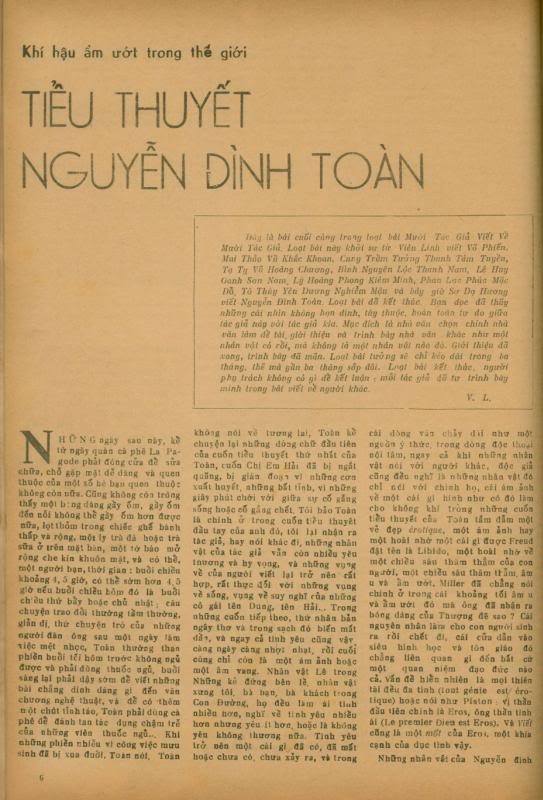
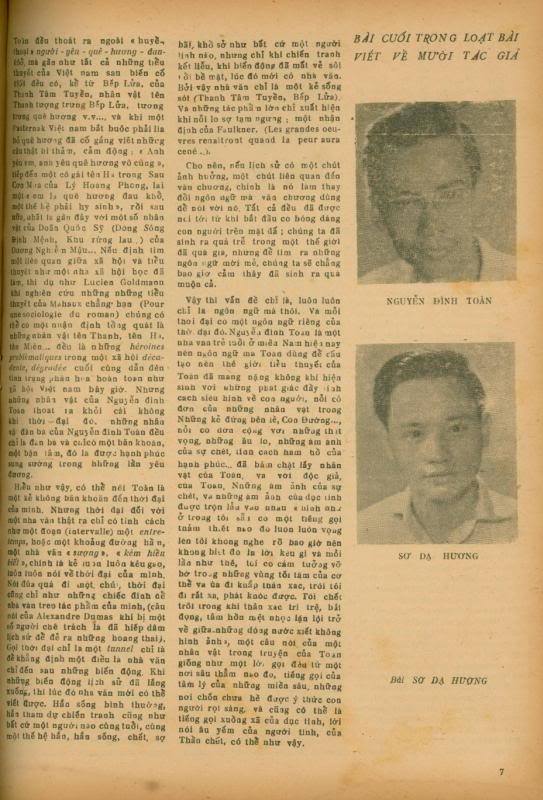
Sài gòn bảnh hơn nhiều, có hơn 1 bướm
de Beauvoir:
Bướm anh lên em nhé, mưa không ướt đất,
bướm mèo đêm, lao vào lửa, bướm vết
thương dậy thì, vòng tay học trò.
Ra tới hải ngoại, vẫn còn bướm, nhà có
cửa khóa trái!


http://www.economist.com/news/books-and-arts/21695369-fun-and-philosophy-paris-smokey-and-bandits
Existentialism
Smokey and the bandits
Fun and philosophy in Paris
Mar 26th 2016 | From the print edition
Quán Chùa ở Paris:
Khói, Sex, và Hiện Sinh
At the Existentialist Café:
Freedom, Being and Apricot Cocktails.
By Sarah Bakewell. Other Press; 439 pages;
$25. Chatto & Windus; £16.99.
EXISTENTIALISM is the only philosophy that anyone
would even think of calling sexy. Black clothes,
“free love”, late nights of smoky jazz—these
were a few of intellectuals’ favourite things in Paris
after the Simone de Beauvoir was “the prettiest Existentialist
you ever saw”, according to the New Yorker in 1947.
Her companion, Jean-Paul Sartre (pictured) was no looker,
but he smoked a mean Gauloise. Life magazine billed their
friend, Albert Camus, the “action-packed intellectual”.
Certainly there was action. One evening in Paris,
a restaurant punch-up involving Sartre, Camus,
de Beauvoir and Arthur Koestler spilled out on to
the streets. In New York another novelist, Norman Mailer,
drunkenly stabbed his wife at the launch of his abortive campaign
to run for mayor on an “Existentialist Party” ticket
in 1960. In addition to such excitements, existentialism
offered a rationale for the feeling that life is absurd.
Countless adolescents, both young and old, have
discovered the joys of angst through the writings
of Sartre and his ilk. In her instructive and entertaining
study of these thinkers and their hangers-on, Sarah
Bakewell, a British biographer, tells how she was drawn
as a teenager to Sartre’s “Nausea” because it was described
on the cover as “a novel of the alienation of personality
and the mystery of being”.
It was over apricot cocktails on the Rue Montparnasse
that Sartre and de Beauvoir glimpsed a novel
way to explore such mysteries. The year was 1932, and
their friend Raymond Aron, a political scientist and philosopher,
had just returned from Germany with news of the “phenomenology”
of Edmund Husserl and Martin Heidegger. “If you are
a phenomenologist,” Aron explained, “you can talk about
this cocktail and make philosophy out of it!” The idea
was to glean the essence of things by closely observing one’s
own experience of them, preferably in mundane settings. Sartre
and de Beauvoir set out to do just that.
Drawing on considerable personal knowledge, Sartre
delved into “the meaning of the act of smoking”, among
other things. Observing the behavioural tics of
waiters, he noted that they sometimes seemed to be play-acting
at being waiters. This led to labyrinthine reflections
on the nature of freedom and authenticity. De Beauvoir’s
efforts were more focused. By dissecting female experience
of everyday life, she illustrated the ways in which gender
is shaped by self-consciousness and social expectations.
Ms Bakewell plausibly suggests that de Beauvoir’s pioneering
feminist work, “The Second Sex”, was the most broadly influential
product of European café philosophy of the period.
When Norman Mailer was asked what existentialism
meant to him, he reportedly answered, “Oh, kinda
playing things by ear.” Serious existentialists, such
as Sartre, earned their label by focusing on a sense
of “existence” that is supposedly distinctive of humans.
People are uniquely aware of—and typically troubled
by—their own state of being, or so the theory goes. Human existence
is thus not at all like the existence of brute matter, or, for
that matter, like the existence of brutes. People, but not animals,
find themselves thrown into the world, as existentialists liked
to say. They are forced to make sense of it for themselves and
to forge their own identities.
The café philosophers came to regard each
other’s existence as particularly troubling. Except
for Sartre and de Beauvoir, who remained an intellectually
devoted pair until his death in 1980, the main characters
in post-war French philosophy drifted apart with
varying degrees of drama. So did the German philosophers
who inspired them.
Sartre’s embrace of Soviet communism, which he
abandoned only to endorse Maoism instead, led
Aron to condemn him as “merciless towards the failings
of the democracies but ready to tolerate the worst
crimes as long as they are committed in the name of the
proper doctrines”. Ms Bakewell credits the existentialist
movement, broadly defined, with providing inspiration
to feminism, gay rights, anti-racism, anti-colonialism
and other radical causes. A few cocktails can, it
seems, lead to unexpected things.


Sài gòn
bảnh hơn nhiều, có hơn 1 bướm de Beauvoir:
Bướm anh lên em
nhé, mưa không ướt đất, bướm mèo đêm,
lao vào lửa, bướm vết thương dậy thì, vòng
tay học trò.
Ra tới hải ngoại, vẫn
còn bướm, nhà có cửa khóa trái!
Trong cuốn
mới mua của W. Gass có 1 bài có tí liên
quan tới đề tài mà Tin Văn đang lèm bèm,
nhân cú “hỏi nhỏ” của DS, con trai của TTT, về cuộc
duel giữa hai anh em, TTT vs GCC.
Ông con
trai coi cái cú “mặc khải”, lần đầu đến
nhà, nhìn thấy TTT ngồi chồm hỗm trên cái
ghế, viết văn, mà GCC bèn ngộ ra rằng, số
kiếp của “me” (mi), sau này sẽ y như vậy!
Không
phải cái cú đọc cọp BL trên đường
phố Saigon, theo DS.
Quả thế. Nhưng
đúng hơn, cái nọ bổ túc cho cái
kia, và chúng liên quan tới 1 vấn nạn
lớn hơn nhiều, liên quan tới những từ như “phép
lạ, ân sủng, mặc khải” [Ky Tô giáo], “ngộ”
[Phật giáo].
Và nó
còn liên quan tới tác phẩm “Những người
mộng du”, “The Sleepwalkers” của Koestler.
Liên quan
tới Dos nữa, hà, hà!
Trong 1 bài
viết về Dos, mà Gấu đã có lần
thuổng, khi đọc Hồi Ký Viết
Dưới Hầm, bản dịch của Thạch Chương, khi còn
Sài Gòn, Nathalie Sarraute, [trong bài
viết "Từ Dos đến Kafka"], cho rằng, nhân vật của Dos chia
thành hai tuyến; một, đẻ ra 1 phát là cứ thế
mà đi tới với Chúa, trên con đường thẳng băng.
Còn một, gặp đủ thứ trầm luân, xuống nhiều lần [tầng,
cũng được] địa ngục,
và rồi cũng gặp được Chúa [hay "con K" của Buzzati thì
cũng vậy]
TTT, là
thứ thẳng băng 1 lèo như thế.
Gấu không
có cái may mắn như thế, hà, hà!
Thầy Kuốc chẳng
đã từng hất hàm, có mấy tên [khốn nạn]
NQT?
Note: Gass viết
essay lạ lắm, khác hẳn những tác giả Gấu
thường đọc.
Trong cuốn mới
mua [xon], có 1 bài về Kafka thật lạ, mới
viết, vì nội dung xoay quanh bộ tiểu sử khổng lồ mới
ra lò về Kafka mà Tin Văn có nhắc tới, “Kafka,
Half a Man, Half a Metaphor”.
Bài khá
dài, để tính sau.
Liên quan
tới đề tài đang lèm bèm, là bài
cảm tạ khi nhận giải thưởng văn chương, dưới đây.
THE LITERARY MIRACLE
PHÉP
LẠ VĂN CHƯƠNG
An
acceptance speech for the 2007
Truman Capote Award
for Literary Criticism
I have already participated
in the Truman Capote Prize for Criticism, first as a nominator, then
as an evaluator, so I am familiar with many of the texts
which have been considered for it in the past. They comprise
a company I should be proud to say I keep, and I am grateful
that you have now encouraged me to that immodesty.
I have always been interested in miracles-not just in
the one we are presently celebrating, but especially in the
secular kinds. A miracle is something that cannot happen, and
shouldn't, and won't again, but has occurred all the same,
despite laws, odds, expectations. A miracle is also something
fortunate for somebody, and suggests the influence of a higher
power-doubtless a holdover from its sacred use. We don't say,
"Wow, five hundred people died from eating the same ice-cream
cone. It's a miracle!" though it is remarkable, even deplorable,
depending upon the flavor.
There is another sort of miracle, though, equally unlikely,
equally difficult to explain, but one that occurs with
satisfactory frequency despite enemies almost as persistent
as mortality itself, and that is a phenomenon called consciousness
and its tendency toward individuation.
Hume, I think, was right in insisting that any event
that deserved to be classified as a miracle should be examined
by a host of competent observers who had nothing to gain if
Lazarus, to take a famous example, were to wake from his death
to boast that now only his bellyached. Suppose dispassionate
and qualified observers could be found in Beijing, Berlin, and
Boston. Then Lazarus would have to oblige by dying (when he wasn't
booked elsewhere) in front of gathered specialists in these varied
cities, who might attest then to his pre- and postmortem condition.
Of course, if his revival was used to support the claims of any
religion, political party, or upcoming movie, it would be immediately
disqualified for violating the impartiality rule, and if it passed
all tests it would simply become another exceptional break in an
otherwise impeccable regularity, like black swans or albino squirrels,
and no longer a miracle at all. Footnotes would merely mention that
a few folk, each one named Lazarus and owning a mole on his left cheek,
occasionally returned to life after their deaths, if their deaths occurred
on the second of February, and they performed their demises in public
before qualified officials for the edification and amusement of many.
This kind of circular begging of the question is okay if Hume does it.
Not content, we would explain the anomaly by showing
that- whatever the exemplary occurrence was-some subatomic
particle, not the butler, had done it, and further that
this surprising breach of the laws of nature formed a pattern
with others of a similar sort (like albinism), and was, in
fact, establishing a February second, mole-cheeked regularity
of its own. If black swans can do it, why can't the Lazarites?
The finer works of art are miracles in the sense that
they are so unlikely to have emerged from the ignoble and bloody
hands of man that we stand in awe of them, and that they
have been written or built or composed at the behest of
superstitions so blatantly foolish as to embarrass reason,
and cause common sense to snicker, is itself wondrous and beyond
ordinary comprehension. However, the fact that a gay guy painted
the Sistine ceiling is not nearly as dumbfounding as the papacy's
protection of pederasts in spite of their official attitude toward
such "objectionable" practices-one of which ought to be
the ceiling itself, for if anything is unnatural, for them,
genius is.
The secular miracle is an incomprehensible juxtaposition
of events, not a rare or occasional break in the order
of things, but a paired regularity that persists in making
no sense: the first being the creation of inspired art,
and the second requiring a wonder equal to it, namely, that
such astonishments are accomplished, often, by quite ordinary
or even subpar human beings. For a long time I have been trying
to understand these two things-the miracle of their appearance
and the unlikely nature of their cause. Moreover, some of these
artists are required to perform their miracles many times, for patrons
and audiences everywhere, something we know Lazarus could not manage.
No wonder the Muses worked overtime, and inspiration,
itself inexplicable, was often offered as an explanation.
As cognitively empty as the concept has always been,
there was this much to it: when inspiration struck,
the vain slow-witted poet of commonplaces left his body like
someone removing a soiled shirt, and the spirit of a
higher power took his place. Pete the poet didn't do it,
any more than Paul the prophet had the vocal cords to speak
for God, but simply lip-synched the deity's messages, which
had been conveniently prerecorded for this purpose.
Yeats writes amazing poems on behalf of a personal mythology;
Blake also roars at the wind like a hound at the moon; dozens
and dozens of other poets, ditto; Wagner rises to unheard-of-or
rather heard-heights despite a character that would not
be chosen by a jackal; Mozart often played the fool; Marlowe
was a murderer; some artists are bigots, some are thieves,
far too many were Tories. Out of the mouths of sewers fine wine
flows; out of bitter British laureates, truths sneak like thieves.
What is to be made of all this? What are the contents of these
revelations?
Are we really to suppose that Dante was right about
the after-world? Is that why his Comedy is so compelling?
Or that he was just such a fine chap he should have been canonized
by the Church as well as the academy? And his genius pours
out of him like wine from a bottle he couldn't stopper? Ah
... it's because it is a handsome tale of revenge and redemption.
Well, an act of revenge it surely is. No one ever got even as
unfairly or as often as Dante.
Gertrude Stein (not one of the slow wits) said: "Let
me recite you what history teaches. History teaches." And painters
paint, musicians compose, and writers put one word next
to another, as we all do when we write, so what is the difference?
But Shakespeare had profound thoughts, deep feelings, a proud
incorruptible pen ... didn't he? We wish we knew. What we do
know is that his words, led by their music, rich in range and reference,
a remarkable image in every line, expressed ideas with the force
of a fist, evoked passions more profound than the abyss (not the
pits which are easily provoked but as shallow as a saucer), and,
to consider that proud pen's problems ... well, it probably made
humiliating accommodations to stagecraft, actors, donors, and the
political weather.
What works of art testify to is the presence in this
world of consciousness, consciousness of many extraordinary
kinds. Not that of the artists themselves, for theirs
are often much the same as any other person's. They are merely
partaking of the evolutionary miracle found most obviously
in man, but not necessarily any more useful to his survival than
a raven's, or a cat's, or a chimp's is to its. It is not the writer's
awareness I am speaking of but the awareness he or she makes.
For that is what fine writing does: it creates a unique verbal
consciousness. And how it happens, and what value it has,
has been a persistent question in my little essayistic exercises.
Emerson's essays build the mind that thinks them. It
is that mind that is the miracle that interests me. Did he
think the thinker who then thinks his thoughts? "The eye
is the first circle; the horizon which it forms is the second;
and throughout nature this primary figure is repeated without
end. It is the highest emblem in the cipher of the world." I don't
believe he began by having "the eye is the first circle" arrive
in his own inward office like a parishioner with a problem, and
that, subsequently, he copied this thought down exactly the way
it appeared when it knocked, and as he would have been required
to had the words come from Allah or from God. He wrote them down so
he could think their thought. And when he thought, “the eye is the
first circle," I'll bet he didn't know what the second circle was.
But writing notions down means building them up; it means to set forth
on a word, only to turn back, erasing and replacing choosing and
refusing alternatives, listening to the language, and watching
the idea take shape like solidifying fog.
“Dream,” he writes ... "Dream delivers us to dream, and
there is no end to illusion. Life is a train of moods like
a string of beads, and, as we pass through them, they prove
to be many-colored lenses which paint the world their own
hue, and each shows only what lies in its focus." Apparently
life is a train made of metaphors: life is just a bowl of cherries,
life is rosy as a cheek, life is alum, stinging nettles, a bog,
a lawn, a log on which we may sit in good company while we converse
beneath another, not yet fallen, tree. I feel fulfilled and
ripe today, rich with juice, but yesterday I was as sour as a grape.
In essays like "Circles" and "Experience," Emerson takes the measure
of our moodiness, our vagaries, in different sentences, other
images, changing speeds. It is not the idea, but an awareness of
it that he catches. "What I write, whilst I write it, seems the
most natural thing in the world; but yesterday I saw a dreary vacuity
in this direction in which now I see so much; and a month hence, I
doubt not, I shall wonder who he was that wrote so many continuous
pages. Alas for this infirm faith, this will not strenuous, this vast
ebb of a vast flow! I am God in nature; I am a weed by the wall."
Thoughts are assembled, worried like a cat with its
mouse, armed against enemies, refined and refashioned,
slid forth into the world like a christened ship. Perceptions,
feelings, energies, and images are parts of the same verbal
enterprise that creates, for instance, a poem. "For it
is not metres, but a metre-making argument, that makes a poem-a
thought so passionate and alive, that, like the spirit of a plant
or an animal, it has an architecture of its own, and adorns
nature with a new thing."
To adorn nature with a new thing: that is the miracle
that matters. Most prose flows into an ocean of undifferentiated
words. To objectify through language a created consciousness,
provide it with the treasured particularity we hope for
for each human being-that is the cherished aim of the art.
What does make a sentence or a line of verse rise from
the dead and walk again, run for a record, and even dance
as dancers do when blessed? It is important for the reader
to respond to these miracles with belief when they occur,
because two or three inspired lines can turn a sonnet into a
masterpiece, or make what might have been a rather slight little
song into an arresting aria. It is equally crucial for the
critic to be aware of those who merely mimic greatness through
grandeur's empty gestures, and not be taken in by inarticulate
simplicity's pretense to profundity, or answer to the trumpets
that announce the coming of deep feeling as they might the
queen. In addition, the critic should remain suspicious of imaginative
sweeps more suitable to a broom, or a rhetoric that's about to
ride long-haired but bareback through the streets.
Matthew Arnold called genuine poetic moments "touchstones,"
since it seemed to him they were exemplary instances
of inspiration, and Paul Valery, who liked to think
artistry was an arm of intellect, confessed that some
lines, images, or phrases appeared suddenly, inexplicably,
from who knew what embarrassingly irrational depths, and
between these glistening peaks were the dull unambitious
gullies that the skills of the poet had to fill with intelligence
and technique, as you might try to level a road. In short, between
these rare and wonderful gifts from the gods, a chain gang's labor.
Though the three greatest masters of English prose-Thomas
Hobbes, Jeremy Taylor, and Sir Thomas Browne-came to
their loose syntax and noble music by way of Latin, they were
capable of some resounding Anglo-Saxon when those notes
were needed, and it is among their sentences that the miracles
I have been speaking of can be most frequently found. Emerson
may have had passages from Browne's Urn Burial in mind when he
wrote "Circles"-especially the one by Sir Thomas that begins:
Circles and right lines limit and
close all bodies, and the mortal right-lined
circle must conclude and shut up all. There is no
antidote against the opium of time, which temporally
considereth all things; our fathers find their graves in our
short memories, and sadly tell us how we may be buried in our
survivors. Grave-stones tell truth scarce forty years. Generations
pass while some trees stand, and old families last not three
oaks.
I can repeat these clauses with the same appreciation
I have for the greatest poetry: "our fathers find their graves
in our short memories"; "grave-stones tell truth scarce
forty years"; "old families last not three oaks."
But the sons and daughters of such sentences-Virginia
Woolf, for instance, Henry James-aspire always to, and often
realize, such heights. From their eminence they urge even
us, with our lesser talents, to make the climb, because,
though we must halt at a ledge halfway, the view of the valley
below is still sublime.
William H. Gass
V/v Koestler.
GCC đọc Bóng
Đêm, mê quá, lần ra Những Kẻ Mộng Du.
Mê quá, ngồi Quán Chùa khoe với ông
anh. Hoá ra ông cũng quá mê K. Và
còn kể ra thêm cả 1 bộ ba, chứ không chỉ cuốn
đó. Ông còn biểu thằng em, đó là
nhờ Koestler có thời gian ngồi lỳ trong thư viện, và
viết nổi bộ này.
Đọc net, đọc FB,
thiên hạ Mít nhân 30 Tháng Tư,
lèm bèm về "DMCS"….
Nghĩa là toàn
nhìn ra cái ác của nó, ở xứ Mít
CS.
Không phải
như vậy. Chủ nghĩa CS, chính là giấc mơ tuyệt
vời nhất của nhân loại, nhưng sở dĩ nó trở nên
khốn nạn, chính là do con người cứ muốn thay Thượng
Đế, mà ra.
Koestler cũng đã
từng theo CS. Camus, Simone Weil, nhiều lắm.
TTT mà không
quá mê CS ư? Ông được đưa về trường Đại
Học Đà Lạt, về làm báo ở Bộ Quốc Phòng,
vì là 1 chuyên gia, lý thuyết gia
về chủ nghĩa CS.
Chính Cái Ác
Bắc Kít đưa xứ Mít xuống hố, cũng như Cái Ác
Ác Á Châu đưa Liên Xô, Tẫu xuống
hố. Không liên can đến chủ nghĩa CS, chỉ là "cái
cớ", cái dịp, cái cơ hội làm cho nó bùng
nổ ra, như Tolstaya phán
Chuyện “giải phóng
miền Nam” hay “chống Mỹ cứu nước” chỉ là chiêu bài
nhằm khích động quần chúng, vì Bắc Việt
dư biết trước đó Hoa Kỳ đã giúp Tây Đức,
Nhật Bản, Nam Triều Tiên, mà người Mỹ không hề
xâm lăng các nước này. Chiêu bài
“chống Mỹ cứu nước” còn được sử dụng nhắm mục đích
kêu gọi viện trợ của Liên Xô và Trung
Quốc, vì theo đúng đường lối của QTCS.
Nguyên nhân
thực sự duy nhất đưa đến chiến tranh 1960-1975 chỉ
là tham vọng độc quyền cai trị Việt Nam của Đảng LĐVN do
Hồ Chí Minh làm Chủ tịch. Các lãnh
tụ Đảng LĐVN lúc đó chẳng những muốn độc chiếm Việt
Nam, mà còn muốn làm bá chủ cả Đông
Dương nữa (Trích Việt sử đại cương tập 6).
© 2010 Trần
Gia Phụng
© 2010 talawas
Vấn nạn mà
TV muốn nêu ra ở đây là:
Cuộc chiến vừa qua:
Có thực sự
đúng như TGP nêu ra, trên?
Liệu còn lý
do khác nữa không?
Có mắc mớ
gì tới tư tưởng của Berlin, về Toàn Trị, về
Không Tưởng...?
Có mắc mớ,
chỉ riêng đến xứ Mít, dân Mít?
Cuộc chiến vừa qua,
theo Gấu, là giấc đại mộng của dân Mít
kể từ có dân Mít. Nó còn Toàn
Trị hơn cả Toàn Trị, Không Tưởng hơn cả Không
Tưởng, [Muốn ăn trứng Ôm Mơ Lết, thì phải đập
quả trứng, muốn có cái nhà Mít... thì
phải giải phóng Miền nam thống nhất đất nước!].
Sở dĩ nó trở
nên khốn nạn như là bây giờ, thì
là một chuyện khác, không liên quan
tới chủ nghĩa CS!
Vẫn theo Gấu, muốn
có được một ý niệm về nguyên nhân
cuộc chiến vừa qua, nên đọc…. Greene, tạm thời, những
dòng trích ở trên, luôn cả dòng
sau đây của Trần Gia Phụng (1), qua đó cho thấy,
Mẽo vô xứ Mít đâu có vì tà
ý; cũng thế, Miền Bắc gây cuộc chiến, đâu phải
vì… tham vọng?
Toàn là
thiện ý không hà!
Vậy mới khốn nạn!
(1)…. Bắc Việt dư
biết trước đó Hoa Kỳ đã giúp Tây
Đức, Nhật Bản, Nam Triều Tiên, mà người Mỹ không
hề xâm lăng các nước này. Chiêu
bài “chống Mỹ cứu nước” còn được sử dụng nhắm mục
đích kêu gọi viện trợ của Liên Xô và
Trung Quốc, vì theo đúng đường lối của QTCS.
*
Bởi vì, nếu
chỉ có tham vọng không thôi, thì
Bắc Bộ Phủ không làm sao thực hiện được dã
tâm ăn cướp Miền Nam của họ. Đâu phải tự nhiên
mà nhân dân Miền Bắc khơi khơi, vô tư
lăn xả vào cuộc chiến, chịu đựng những đau thương tang
tóc ghê rợn nhất, đâu phải tự nhiên mà
nhân loại mơ sáng ngủ dậy biến thành Mít:
Trong cuộc chiến
vừa qua, có thể có giấc đại mộng của cả nhân
loại: xây dựng nên, một thứ con người mới, xứng đáng
là… con người! (1)
(1)
Initium
ergo ut esset, creatus est homo, ante quem nullus
fuit
Augustine
That
there might be a beginning, man was created before
whom nobody was
[Tạm dịch nghĩa:
Có thể có một thoạt kỳ thuỷ con người được
tạo ra trước một kẻ mà không ai là kẻ đó]
Hannah Arendt trích
dẫn, trong bài viết Understanding
and politics [Hiểu biết và Chính trị học]
Có lẽ cũng
nên đọc thêm một số bài viết của bà,
như Những tiếp cận "Vấn đề Đức", Approaches to the "German
Problem" [để so sánh với Vấn đề Mít, nhất là,
Vấn đề Bắc Kít], Về bản chất của chủ nghĩa toàn
trị… để tìm hiểu "thêm", về nguyên nhân
cuộc chiến Mít.
Cái sự băng
hoại như hiện nay, của nước Mít, có thể là
do những lời nguyền rủa của "hơn một giống người, xứng đáng
là người" bị tổ tiên Mít tiêu diệt,
từ thuở mang gươm, từ biệt Thăng Long, đi dựng nước!
Nhưng có thể
dùng một cái tít của một cuốn sách
của Koestler, áp dụng một cách thông
minh và thiên tài vào thực thế 30
Tháng Tư 1975, và nước Mít sau đó: The
God That Failed.
Ông Trời cũng
thua!
Thua ai? Thua cái
gì?
Thua Cái Ác
Bắc Kít!
Thua Yankee mũi tẹt!
He loved man, not
men (or women)
Ông ta yêu
con người, không phải những đàn ông [hay
đàn bà]
'I don't believe
in humanity, I believe in the individual'
Tôi không
tin vào nhân loại. Tôi tin vào cá
nhân.
Nguyên nhân
thực sự duy nhất đưa đến chiến tranh 1960-1975 chỉ
là tham vọng độc quyền cai trị Việt Nam của Đảng LĐVN do
Hồ Chí Minh làm Chủ tịch. Các lãnh
tụ Đảng LĐVN lúc đó chẳng những muốn độc chiếm Việt
Nam, mà còn muốn làm bá chủ cả Đông
Dương nữa (Trích Việt sử đại cương tập 6).
Trần Gia Phụng, talawas
*
Borges cho rằng,
quan niệm về một âm mưu ghê rợn của Đức nhằm
thống trị toàn thế giới, là quá tầm phào,
cà chớn.
"Gấu Nhà Văn"
tin rằng Cái Ác Bắc Kít đưa đất nước
Mít xuống hố; Borges, chính cái thứ giáo
dục dậy con nít hận thù gây đại họa.
Facebook
Imperial
ambitions
Mark Zuckerberg prepares
to fight for dominance of the next era of computing
http://www.economist.com/news/leaders/21696521-mark-zuckerberg-prepares-fight-dominance-next-era-computing-imperial-ambitions?cid1=cust/ednew/n/bl/n/2016047n/owned/n/n/nwl/n/n/n/n
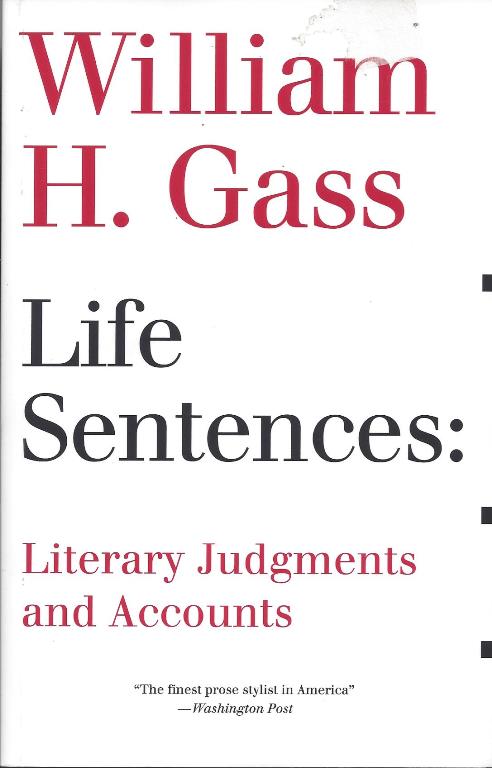
Note: GCC mua cuốn này,
là do đọc Sến khen William H. Gass rầm trời,
qua bài viết về nữ văn sĩ Nobel Canada.
V/v cái chuyện
“viết nhỏ” dưói đây, Mít có câu,
đàn bà đái không qua ngọn cỏ,
nhưng chê bai văn chương phái nữ, bảnh nhất, phải
là Woolf, khi bà phán, đàn bà
chỉ viết nổi, cao lắm là tiểu thuyết, mà tiểu thuyết,
thứ bảnh nhất của họ, là tiểu thuyết xã hội; nhân
vật, thì sẵn ông chồng, hoặc mấy đứa con. Khi
quá chán chồng, thì bèn “tôi nhìn
tôi trên vách”, như tên 1 tác
phẩm của Tuý Hồng.
Cái câu
khen của tờ Washing Post, ở bìa, mà không
ghê sao: Tay viết văn xuôi bảnh nhất Mẽo.
Lạ, là trong bài
viết của mình, Sến thố lộ, Faulkner là nhà
văn số 1 của “ẻn”:
Nếu có thể đơn
giản chia các nhà văn thành hai trường
phái, một bên dùng ngôn ngữ để miêu
tả thế giới, một bên dùng ngôn ngữ để dựng
nên thế giới, thì Alice Munro, chủ nhân giải
Nobel năm nay, thuộc trường phái thứ nhất. Tôi nghiêng
về trường phái thứ hai. Bà không biết phải
làm gì với William Faulkner, một trong những tác
giả tôi ngưỡng mộ. Tôi không biết phải làm
gì với Carson McCullers, một trong những tác giả bà
cảm phục. Tôi sẽ không chọn Alice Munro nếu bị lưu đày
ra một hòn đảo vắng mà chỉ được đem theo một cuốn sách.
Nhưng tôi mừng và biết ơn là đã đọc bà.
Thế giới văn chương mênh mông, gặp được một người như bà
là may mắn.
Cái chuyện Sến
mê Patricia Highsmith, thì Gấu hiểu được, vì
bà này mê Dos, Thầy của bà là
Dos.
Gấu cũng mê bà
này, thì hồi mới lớn, do mê đọc trinh thám
điệp viên, nhưng.... Sến mê Faulkner, hơi bị
lạ!
Phạm Thị Hoài
Có hai nhà
văn nữ mà tôi đọc dồn dập trong một đoạn đời
đọc và đời sống của mình. Người thứ nhất là
Patricia Highsmith. Người thứ hai là Alice Munro.
Gần chục tác phẩm
của Patricia Highsmith tôi đọc trong hai năm, từ
sáu giờ rưỡi đến bảy giờ rưỡi sáng. Hàng
ngày con trai tôi tập võ buổi sáng
từ sáu giờ đến bảy giờ ở sân vận động gần nhà.
Tôi đánh thức con, đưa đi, về chuẩn bị bữa sáng
và trong khi chờ chàng võ sĩ hoàn thành
nghi thức mở đầu một ngày rồi tắm rửa, ăn sáng và
nhảy chân sáo đến trường, tôi có thời
gian cho vài chục trang tiểu thuyết. Tôi thường kể lại
những tình tiết vừa đọc và nêu thắc mắc. Chàng
thường bình luận, mẹ đừng lo, sáng mai vào
giờ này chúng ta sẽ khôn hơn. Cuối tuần và
những ngày dưới 5 độ âm, thầy trò nhà Thiếu
Lâm nghỉ, sách của Patricia Highsmith dừng theo. Rồi
dừng hẳn, khi chàng trai vẫn quá bé bỏng của tôi
nhất định thấy mình đủ lớn để không cần mẹ tháp
tùng.
Khi bước ngoặt trong
cuộc sống riêng của tôi bắt đầu hiện rõ,
tôi khuân về tất cả Alice Munro tìm thấy
trong thư viện, đặt lên chiếc gối ở phần giường bỏ
trống bên trái cho nó đỡ phồng. Mỗi đêm
một câu chuyện, toàn chuyện về đàn bà,
rồi không có ai xoa lưng giấc ngủ cũng đến. Truyện cuối
cùng của bà, tôi đọc gần sáu năm trước,
tên trong nguyên bản là Runaway. Chiếc gối bên
trái đã có chủ.
Cả hai là những
người kể chuyện. Một người kể về những hành vi đàn
ông khác thường, một người kể về những mảnh đời
đàn bà bình thường nhất. Một người tường
thuật sự thản nhiên của tội phạm, một người diễn tả sự
ám ảnh của lỗi lầm. Một người nhìn sâu vào
những đường nứt trong nhân cách, một người chú
mục vào những ngả rẽ chập chờn của số phận. Một người thăng
hoa thể loại truyện hình sự, một người đội lại cho truyện ngắn
chiếc vương miện đã nhiều lần rơi.
Nếu có thể
đơn giản chia các nhà văn thành hai trường
phái, một bên dùng ngôn ngữ để
miêu tả thế giới, một bên dùng ngôn ngữ
để dựng nên thế giới, thì Alice Munro, chủ nhân
giải Nobel năm nay, thuộc trường phái thứ nhất. Tôi
nghiêng về trường phái thứ hai. Bà không biết
phải làm gì với William Faulkner, một trong những
tác giả tôi ngưỡng mộ. Tôi không biết phải
làm gì với Carson McCullers, một trong những tác
giả bà cảm phục. Tôi sẽ không chọn Alice Munro nếu
bị lưu đày ra một hòn đảo vắng mà chỉ được đem theo
một cuốn sách. Nhưng tôi mừng và biết ơn là
đã đọc bà. Thế giới văn chương mênh mông,
gặp được một người như bà là may mắn.
Bà là bậc
thầy của một phong cách: phong cách phi phong
cách, phong cách tác giả giấu mặt. Không
có gì tiết lộ người kể chuyện, người vừa biết
hết vừa không can dự và tự phi tang. Mô hình
đối lập hoàn hảo với bà là William Gass,
cũng một nhà văn Bắc Mỹ, năm nay 89, hơn bà 7 tuổi,
người chủ trương sự hiện diện triệt để của tác giả như yếu
tố thiêng liêng nhất của văn bản văn học. Ông
coi sự giải thể tác giả như tín hiệu suy tàn của
một uy quyền, một thế lực thần học, chẳng khác gì Thần
Zeus bỗng bị lột sạch vũ khí sấm chớp, tuy còn
ngự trên đỉnh Olympus nhưng ngủ trong xe thùng và
đun nấu bằng bếp ga.
Tôi phải thú
nhận, tác phẩm để đời, viết ròng rã 30 năm
của William Gass, tiểu thuyết ngàn trang Đường hầm
(The Tunnel), hai năm nay tôi đọc dở và hứng thú
đọc tiếp ngày càng ít đi, mặc dù có
một số điều ở đó – nói ra thì thật không
công bằng – có thể khiến tôi đánh đổi
rất nhiều trang Alice Munro cộng lại. Bà không có
một magnum opus nào hết. Mọi truyện của bà đều không
quá 40-50 trang, viết khi con ngủ, nghĩ khi gọt khoai tây.
Bà viết nhỏ.
Văn chương, theo
Paul Valéry, là nghệ thuật đùa với tâm
hồn người khác. Có người đùa bằng sức mạnh
của ngôn ngữ. Có người đùa bằng trí
tuệ siêu phàm. Bằng kiến văn bao la. Bằng trí
tưởng tượng rực rỡ. Bằng năng lực đi trước hoặc năng khiếu đi
cùng thời đại. Bằng cảm xúc và cảm hứng. Bằng thủ
pháp hay thủ đoạn. Bằng thử nghiệm hay những mớ thần kinh
cách điệu… Tất cả những thứ ấy không có chỗ trên
những trang viết nhỏ của Alice Munro. Chúng lùi hẳn ra
xa, rất xa, để toàn bộ tâm trí chúng ta, người
đọc, được tập trung vào phần cốt lõi không trang
sức, được cuốn vào những câu chuyện mà bà kể
bằng một giọng văn truyền thống và một ngôn ngữ hết sức giản
dị. Nhiều lần đọc xong một truyện của bà, tôi thầm ghen tị.
Phải bền bỉ, tinh tế quan sát cuộc đời và tôn trọng mọi
khả năng hiện hữu của nó tới mức nào, phải từng trải và
biết kiểm soát mình tới mức nào, phải tôi
luyện tay nghề tới mức nào mới có thể kể được một câu
chuyện như thế.
Hầu hết là chuyện
của những người đàn bà trong những khoảnh
khắc quyết định bước đi này hay bước đi kia của số phận.
Hạnh phúc thì ngắn ngủi và vô định.
Bất hạnh dài gấp đôi. Song với tất cả sự không
khoan nhượng, người kể chuyện lão luyện Alice Munro không
bỏ mặc người đọc cho bi quan. Tôi vốn rất dè chừng với
cái gọi là chức năng nâng đỡ tâm hồn của văn
chương. Nhưng thuở ấy, sau mỗi đêm đọc Alice Munro, sáng
dậy hình như tôi đã nhìn cuộc đời đang khá
vô định của mình điềm tĩnh hơn một chút.
PTH
Cuốn của Gass mua xon.
Bữa nay, đi bác sĩ xin cái giấy đi khám
mắt, tiện đường, ghé nữa. Thấy có cuốn Middle
C, novel của Gass, nhưng bỏ qua, và thay vì nó,
thì là 1 cuốn về Eliot, [T.S. Eliot: The Varieties
Of Metaphysical Poetry] và 1 cuốn thơ & văn xuôi
của Harold Pinter, rất ư là OK.
http://www.tanvien.net/Sach_Moi_Xuat_Ban/disater.html

Vargas Llosa vô
Pleiade
Cuồng tín săn
đuổi văn minh, như một cái bóng
Le fanatisme poursuit
la civilisation comme une ombre
Nếu văn chương phải
chết, thì nhà văn không có, trong
đám
Sách
& Báo Mới
The disaster takes care
of everything
Maurice Blanchot, 1980
To hide and feel guilty
would be the beginning of defeat
Milan Kundera, 1978
Hegel says somewhere
that all great historic facts and personages recur
twice. He forgot to add: "Once as tragedy, and again as farce.
"
-Karl Marx, 1852
Câu này,
THNM, áp dụng vô xứ Mít, tuyệt!
Trước 1975, thảm họa,
sau, trò hề.
Cũng vưỡn nó,
Cái Ác Bắc Kít!
I can't go on, I'll
go on.
-Samuel Beckett, 1953
1894: Alexandria
ONLY THIS
You said: "I'll go to
some other land, I'll go to some other sea
There's bound to be
another city that's better by far.
My every effort has
been ill-fated from the start;
my heart-like something
dead-lies buried away;
How long will my mind
endure this slow decay?
Wherever I look, wherever
I cast my eyes,
I see all around me
the black rubble of my life
where I've spent so
many ruined and wasted years."
You'll find no new places,
you won't find other shores.
The city will follow
you. The streets in which you pace
will be the same, you'll
haunt the same familiar places,
and inside those same
houses you'll grow old.
You'll always end up
in this city. Don't bother to hope
for a ship, a route,
to take you somewhere else; they don't exist.
Just as you've destroyed
your life, here in this
small corner, so you've
wasted it through all the world.
C.P. Cavafy, "The City."
Born in Alexandria in 1863 to Turkish Greeks, Cavafy
lived in Liverpool for seven years before returning to Egypt
to begin a thirty-year career in its ministry of public works.
"The City" is one of only a handful of poems he published
during his lifetime; he circulated the majority of them among
his acquaintances in homemade booklets bound with pins. In 1919
his friend E.M. Forster helped introduce his work to the English-speaking
world in an essay that described Cavafy as "standing absolutely
motionless at a slight angle to the universe. »
Note: Bài thơ
này, TV đã có dịch, nhưng kiếm không
ra
THE CITY
You said: 'I'll go to
another land, I'll go to another sea.
Another city will be
found, a better one than this.
My every effort is doomed
by destiny
and my heart - like
a dead man - lies buried.
How long will my mind
languish in such decay?
Wherever I turn my eyes,
wherever I look,
the blackened ruins
of my life I see here,
where so many years
I've lived and wasted and ruined.'
Any new lands you will
not find; you'll find no other seas.
The city will be following
you. In the same streets
you'll wander. And in
the same neighborhoods you'll age,
and in these same houses
you will grow grey.
Always in this same
city you'll arrive. For elsewhere - do no
hope-
there is no ship for
you, there is no road.
Just as you've wasted
your life here,
in this tiny niche,
in the entire world you've ruined it.
C.P. Cavafy
Bạn nói: “Tớ
sẽ đi tới một biển trời khác,
Và sẽ kiếm thấy
một Sài Gòn khác, bảnh hơn Sài Gòn
này.”
Mọi cố gắng của tớ thì
đều bị số phận trù ẻo
Và trái
tim của tớ – như một người chết – bị chôn vùi.
Tớ còn phải nức
nở than van bao lâu nữa, trong cái thành
phố thối rữa như thế này?
Nhìn đi đâu,
về hướng nào,
Thì cũng vẫn
những điêu tàn đen đủi, là cuộc đời của
tớ mà tớ nhìn thấy,
Ở một nơi trong bao
tháng năm, tớ hoang phế đời mình."
Bạn sẽ chẳng tìm
thấy một biển trời mới mẻ nào đâu, nghèo
mà ham!
Sài Gòn
sẽ tò tò bám theo bạn, như một con đỉa
đói!
Cũng vẫn những con phố
đó,
Nào ngã
tư Đinh Tiên Hoàng, Đa Kao (1) nào con hẻm
72 Thị Nghè,
Nào Đống Rác
Chợ Cũ, nào Xóm Ken bên kia Thủ Thiêm
Vẫn những chòm
xóm đó mà bạn cứ thế mà mòn
mỏi, tàn tạ đi
Mớ tóc xam xám,
rồi muối tiêu, rồi bàng bạc, rồi trắng toát!
Vẫn Sài Gòn
mà bạn sẽ tới!
Ui chao đừng hy vọng,
đừng trông mong,
Chẳng có tầu,
mà cũng chẳng có đường.
Như bạn tàn tạ
cuộc đời của bạn, ở đây.
Ở Sài Gòn-Toronto
này!
*
1971: Nigeria
CASUISTRY
And because somebody
fired a gun
at somebody else
at Sarajevo
but more because
of a man named Darwin
who said his daddy
was an ape
and proved it in a book;
therefore did the nations
fight amongst themselves
to see who was fittest
to survive
and killed a few million
people
among whom were Africans
conscripted to serve;
bloodied, that is, to
prove a point
concerning civilization's
monkey-mongering ways.
Ifeanyi Menkiti, "Veteran's
Day." Born in Onitsha, Nigeria, Menkiti came to the
U.S. in 1961 to attend Pomona College and later earned a
doctorate in philosophy from Harvard, where he studied under
political philosopher John Rawls. He published his first
volume of poetry in 1971 and two years later became a professor
of philosophy at Wellesley College. "There are a lot of problems
in the world," Menkiti told a reporter in 2011. "To think that
philosophy and literature don't have anything to do with fixing
them is wrongheaded. "
Lầu bầu
Bởi là vì
có 1 thằng cha VC nằm vùng nào đó,
hô hoán lên rằng Diệm đầu độc tù
ở Phú Lợi cho nên mới có cuộc chiến Mít,
làm chết 3 triệu người, và sau đó, biến
nước Mít thành địa ngục.
Nhưng, đúng hơn,
có 1 thằng mũi lõ tên là Darwin phán,
cha của hắn ta là 1 con khỉ, và chứng minh
điều đó, bằng 1 cuốn sách, từ đó, nước này
đánh nhau với nước kia loạn xà ngầu, coi thằng
nào bảnh nhất thì sống sót
Thế giới là một
hài kịch, với những kẻ, nghĩ;
Một bi kịch, với những
kẻ, cảm.
This world is a comedy
to those that think,
a tragedy to those that
feel
Horace Walpole, 1776
|
























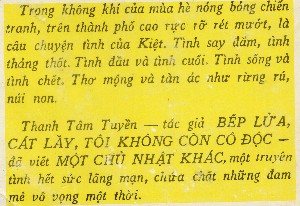










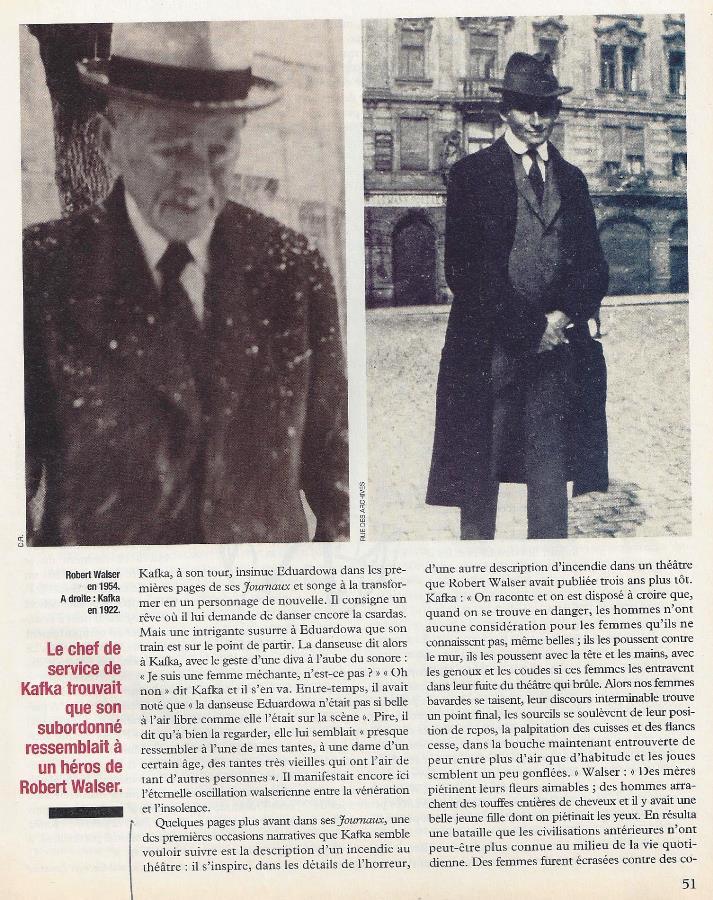





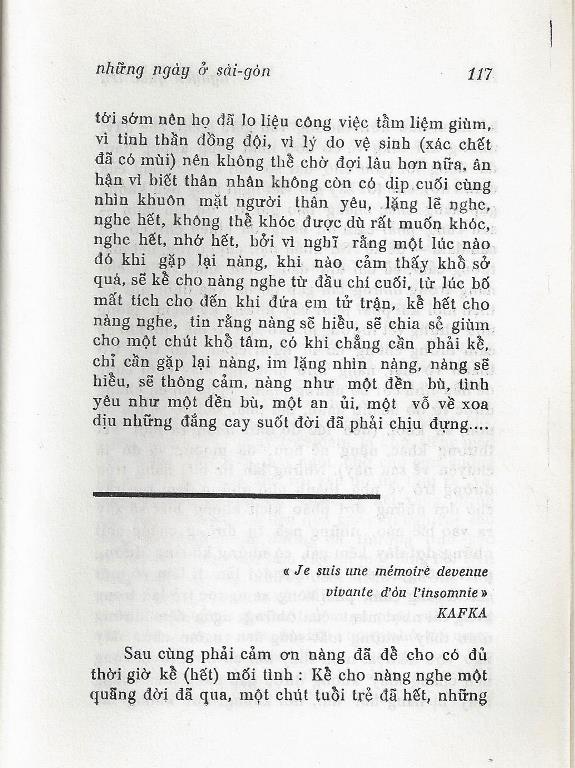



















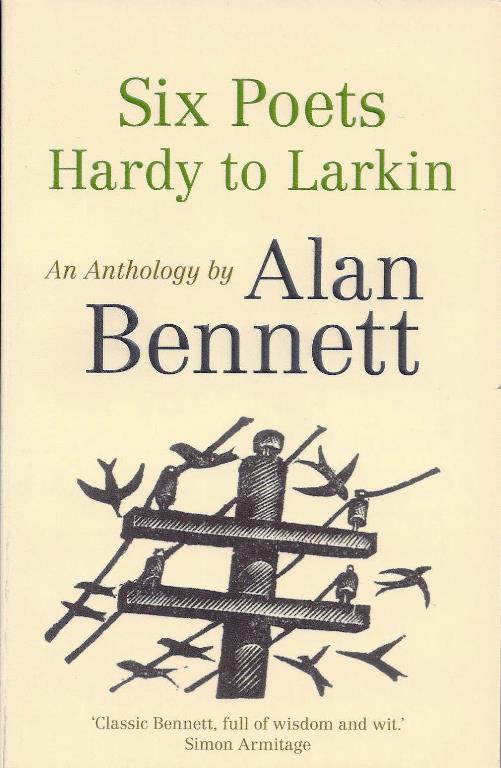














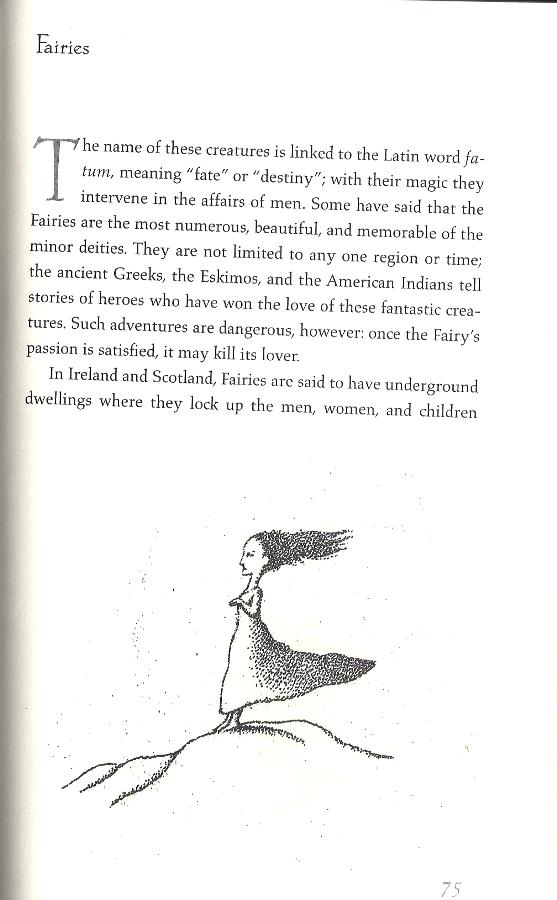















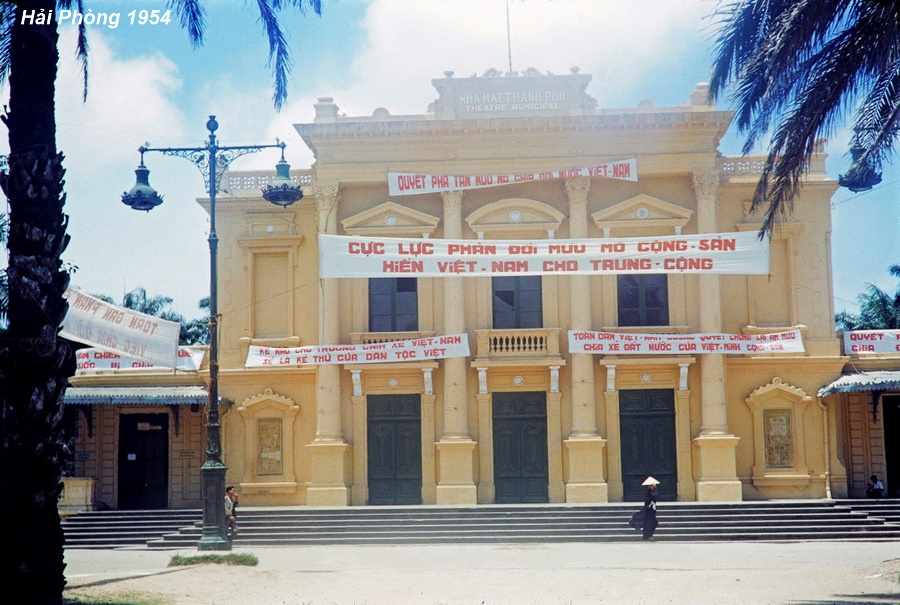



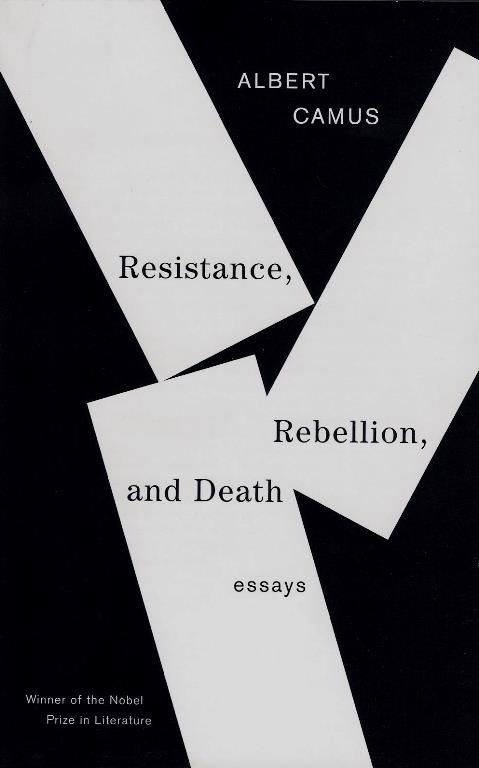

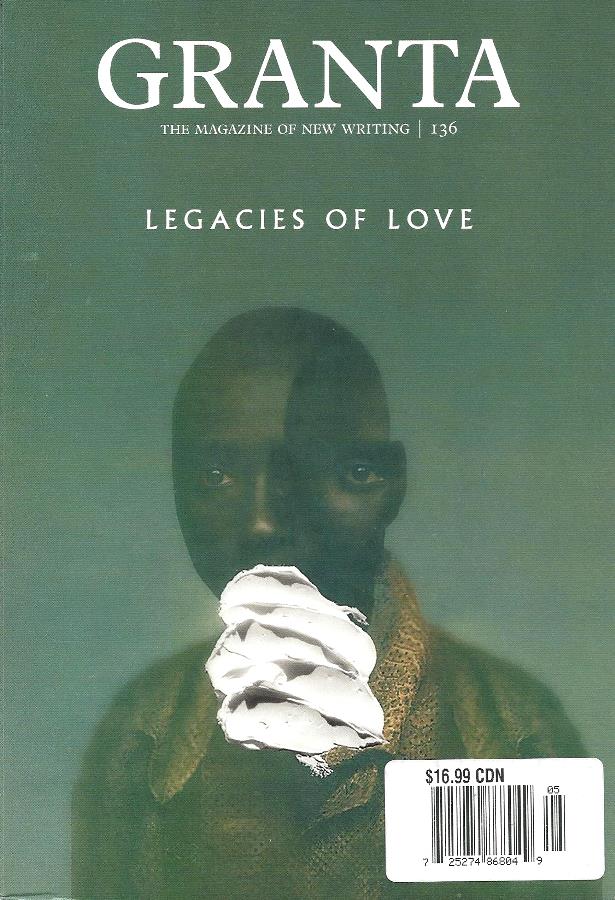






















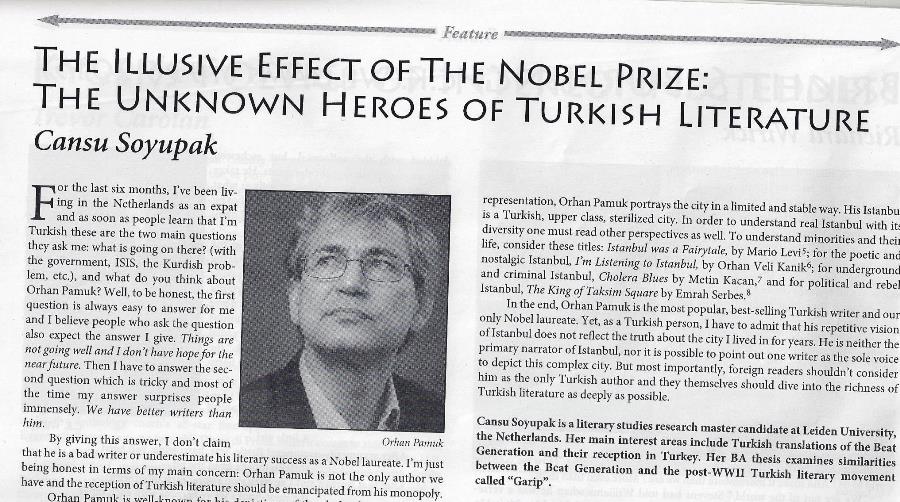



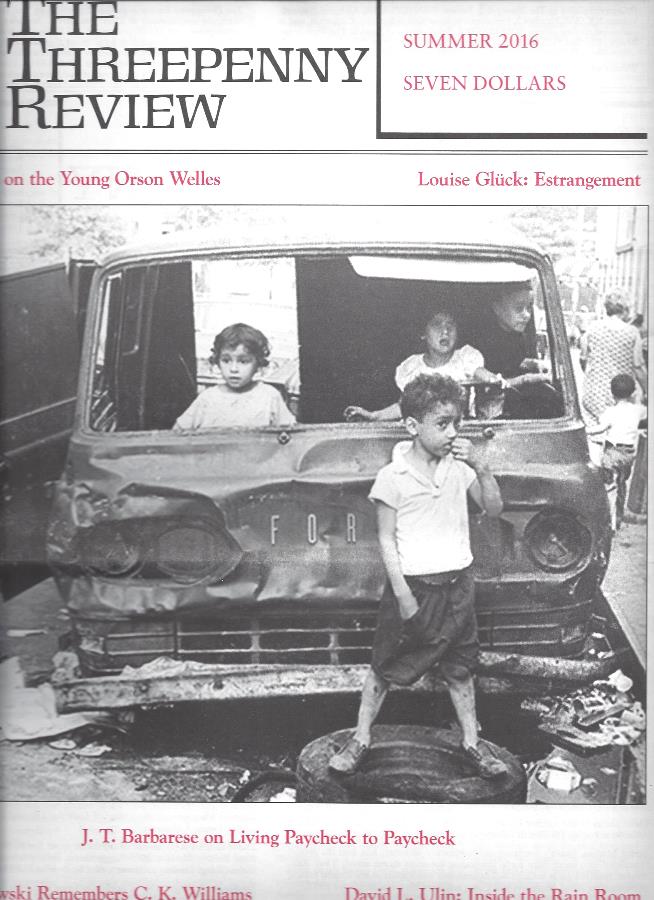
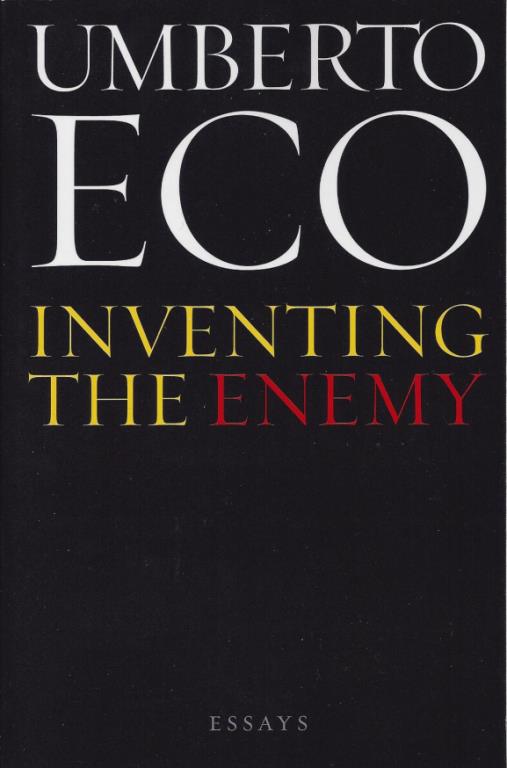
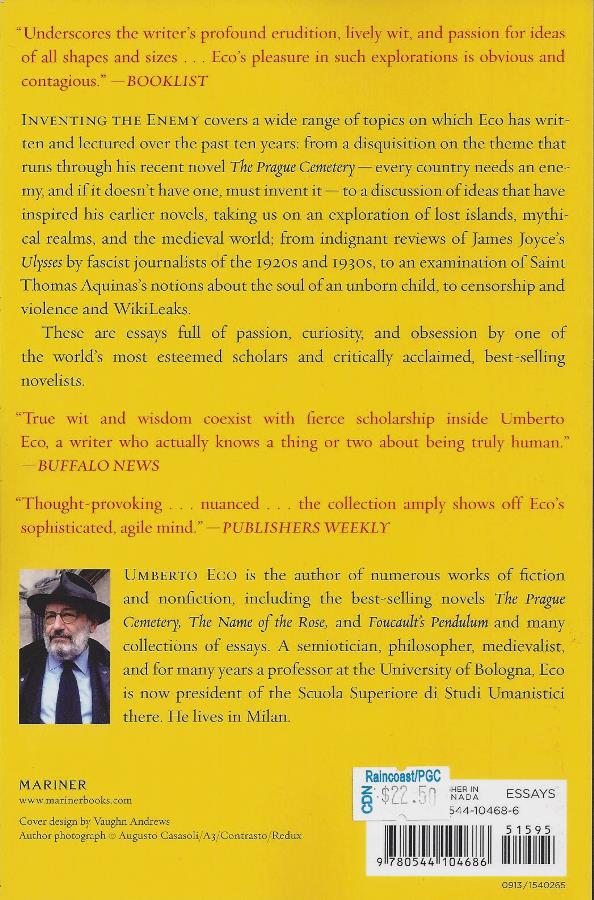
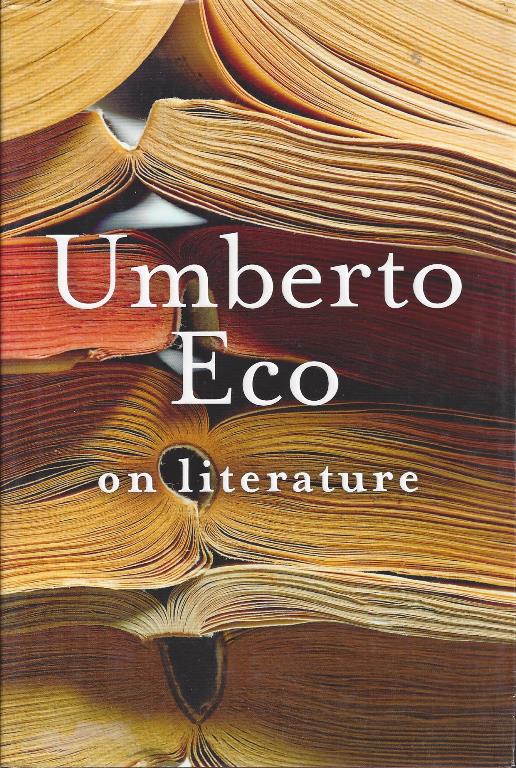


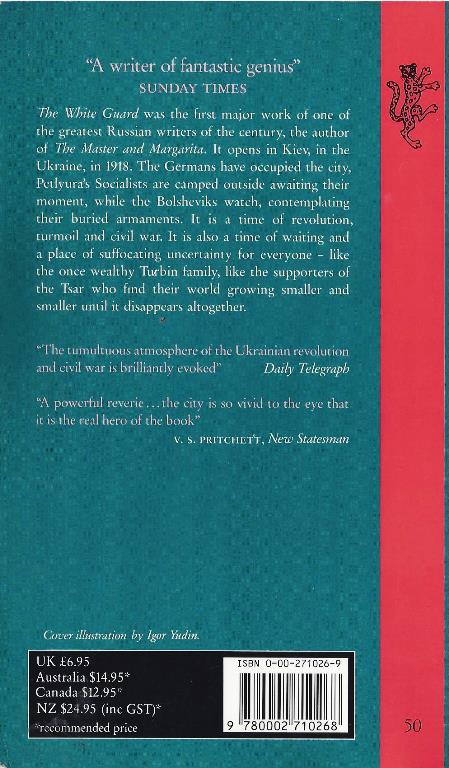































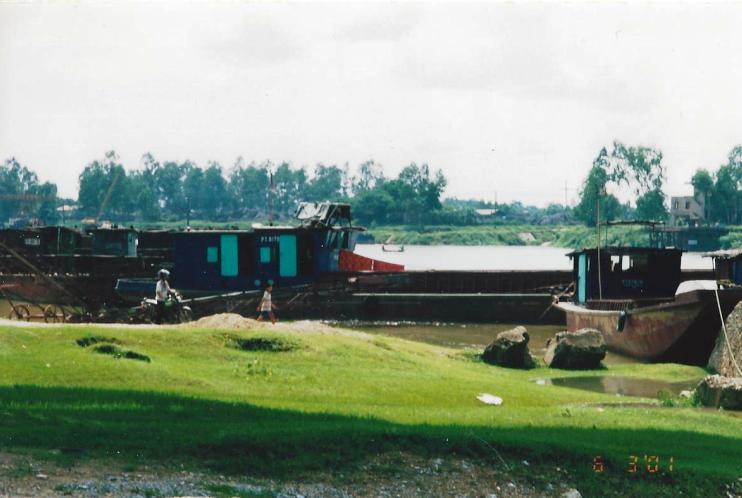

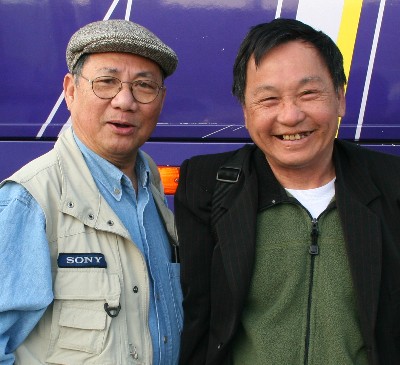
















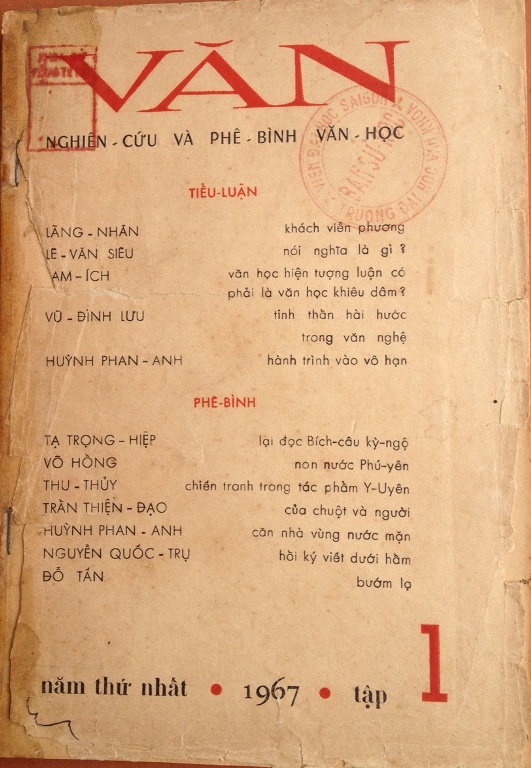


Cám ơn Bác ghé thăm và comment. Bác nhầm Geoff Dyer với Pico Iyer rồi. Pico Iyer là người này đây. https://en.wikipedia.org/wiki/Pico_Iyer. Có thể không nổi tiếng bằng Dyer nhưng cũng là một tác giả có hạng rồi.
Like
Lầm thật. Mắt già, lé, nhìn người nọ ra người kia.
Like
Pico Iyer là tay đệ tử của Grrene,tôi cũng đang đọc, cùng lúc với Dyer, nên lộn. Đọc “Người đàn ông trong đầu của tôi”, The Man Within My Head,của Pico, mới thú. Viết về Greene, về Người Mỹ Trầm Lặng và về Saigon.
Liked by 1 person
Văn phong của Pico Iyer có nét lãng mạn nhẹ nhàng hao hao với cái lãng mạn trong văn phong của Micheal Ondaatje.